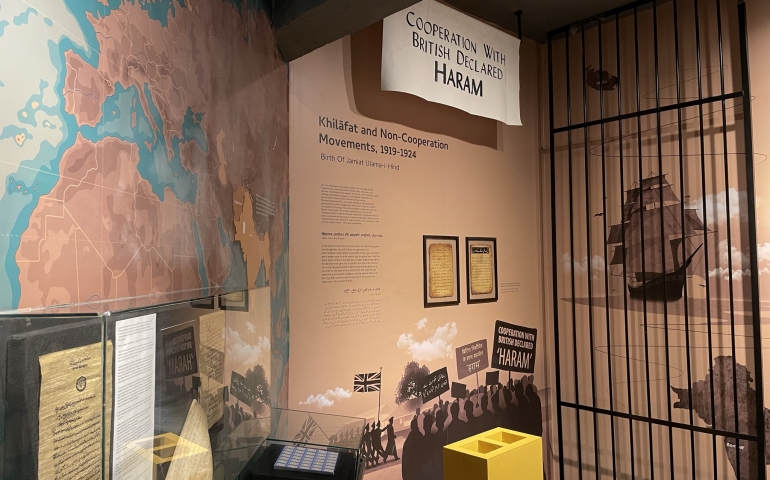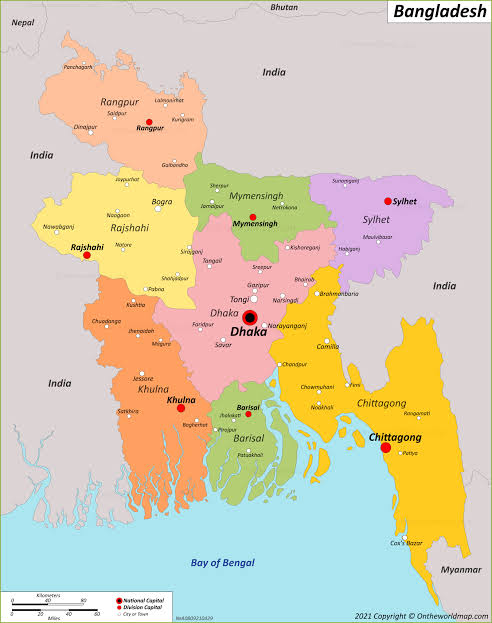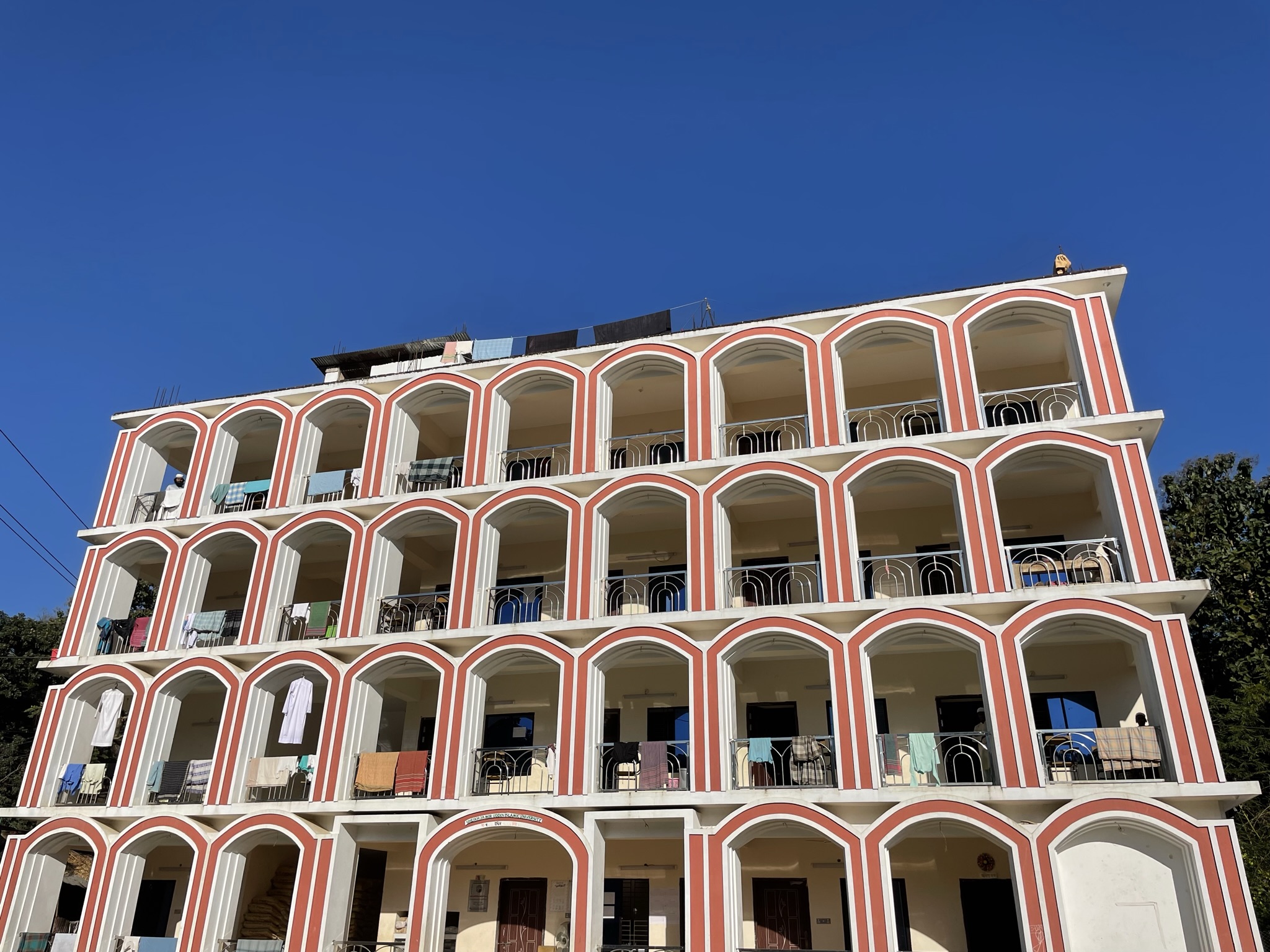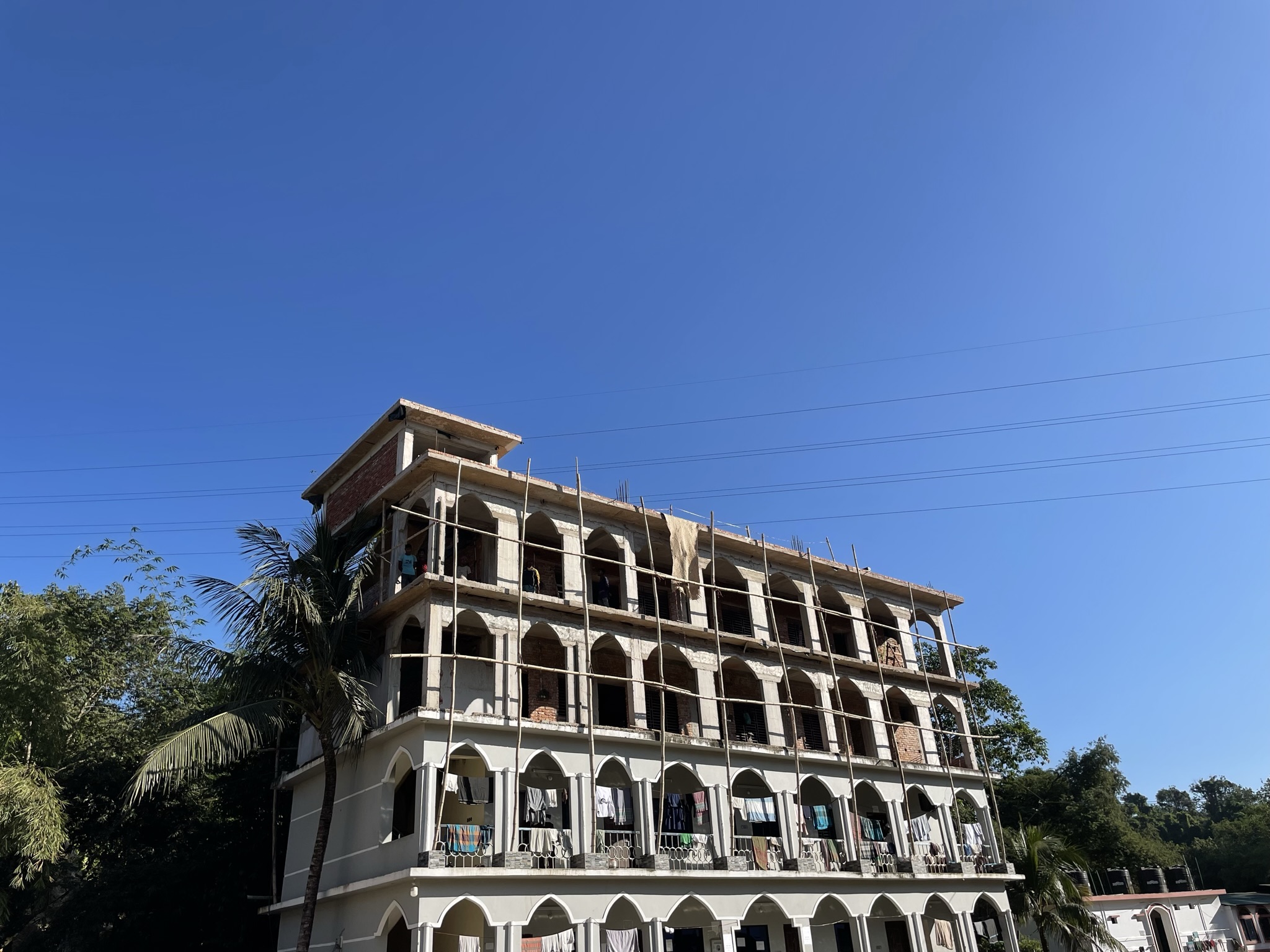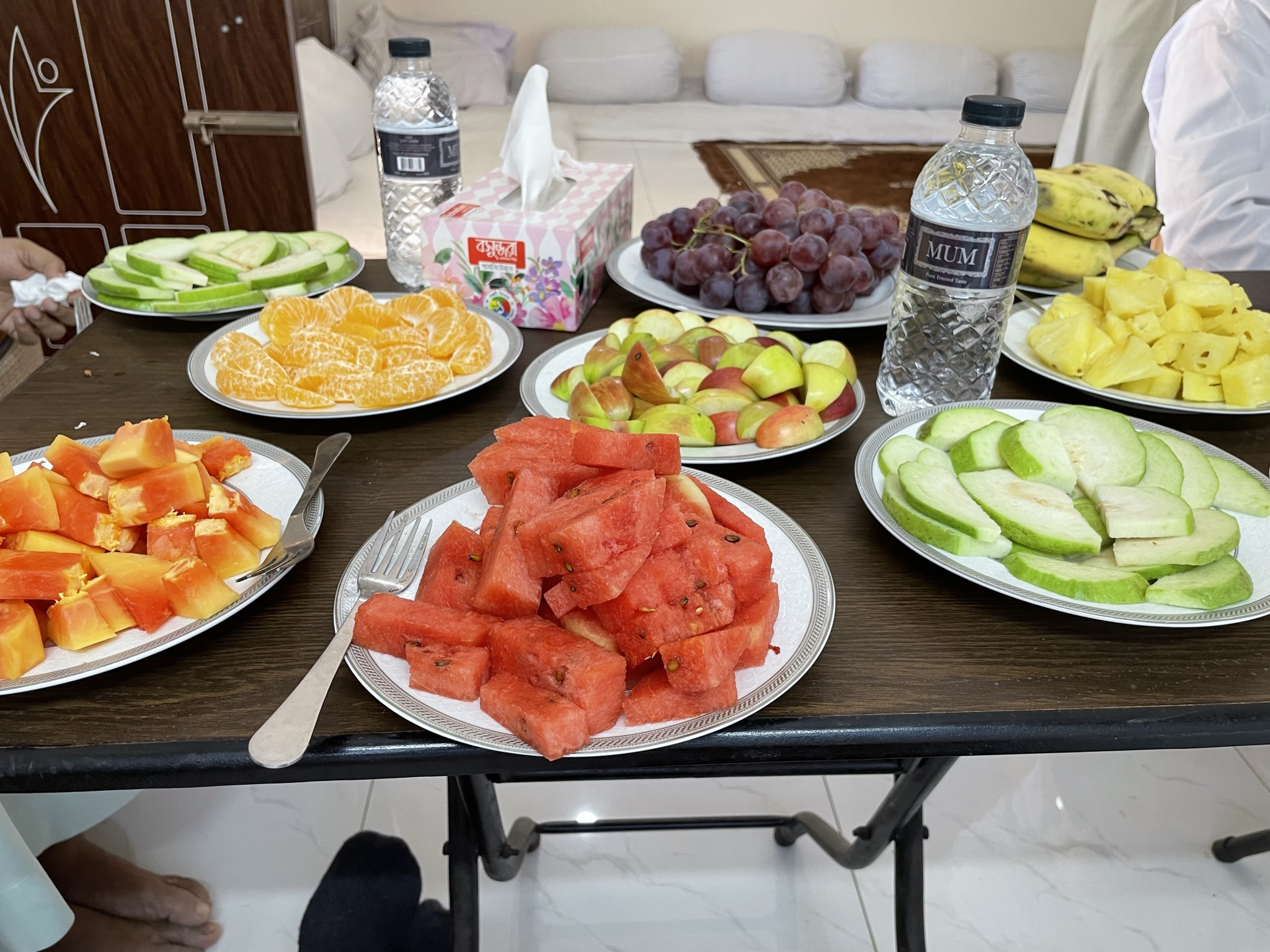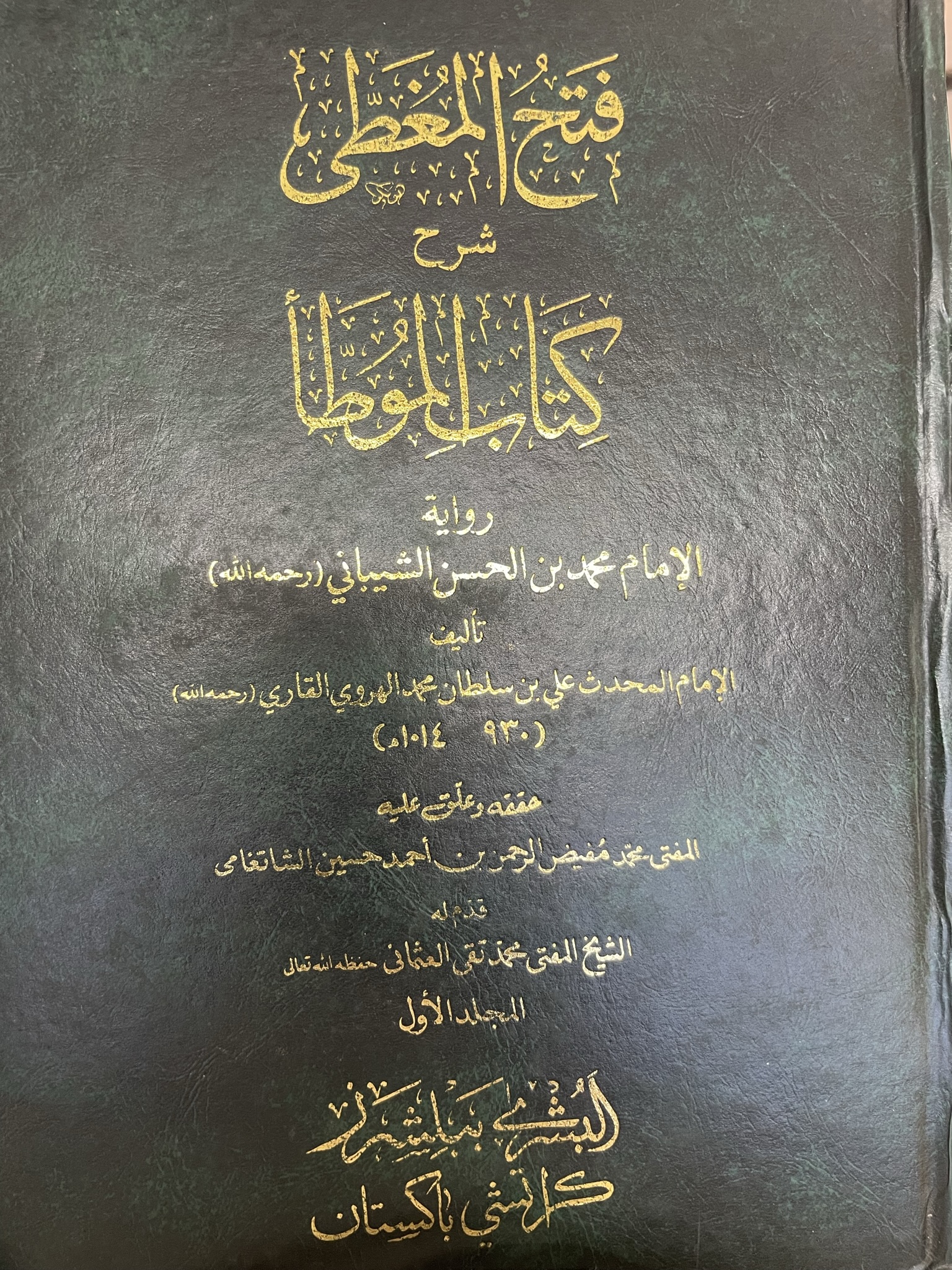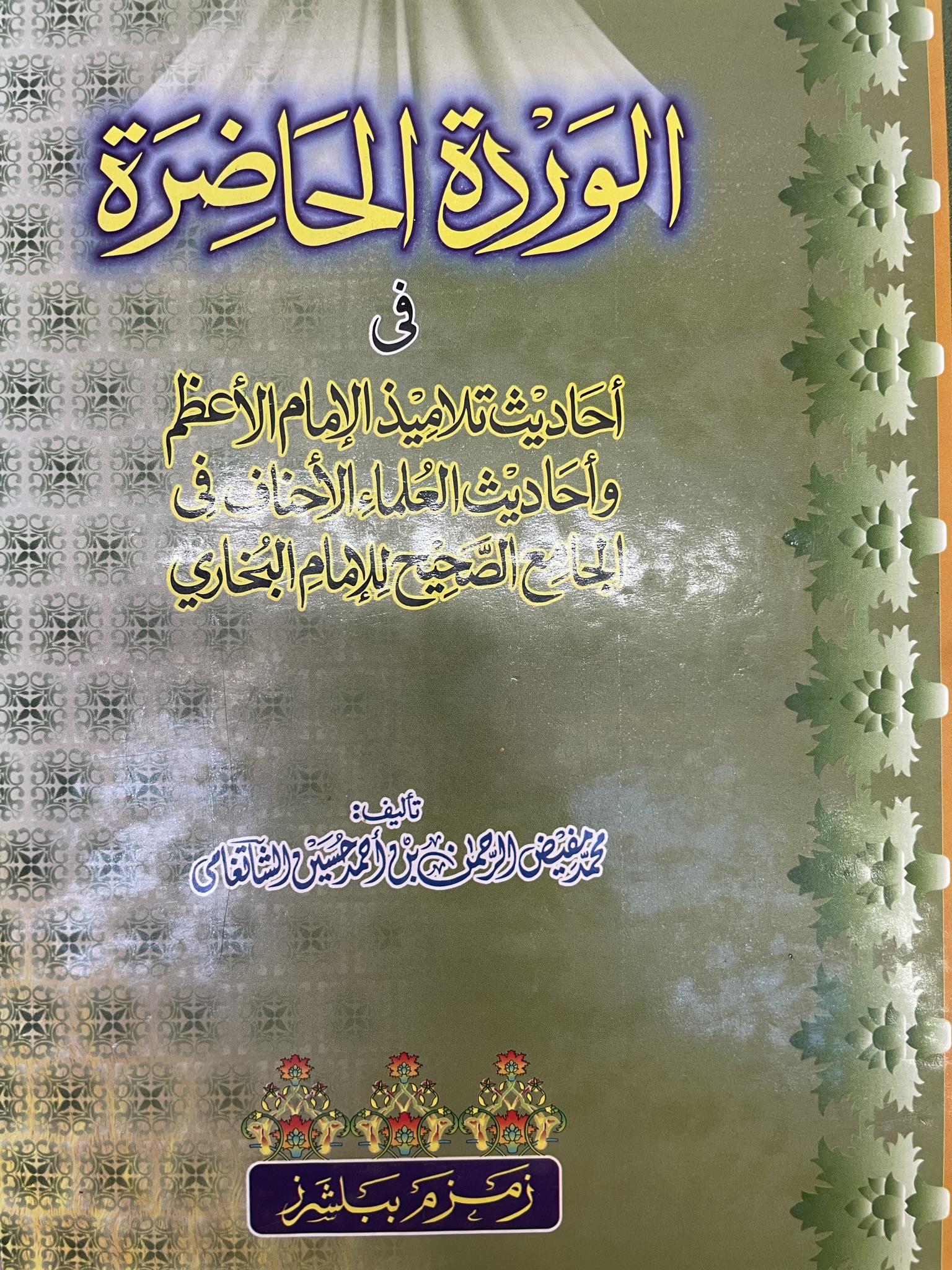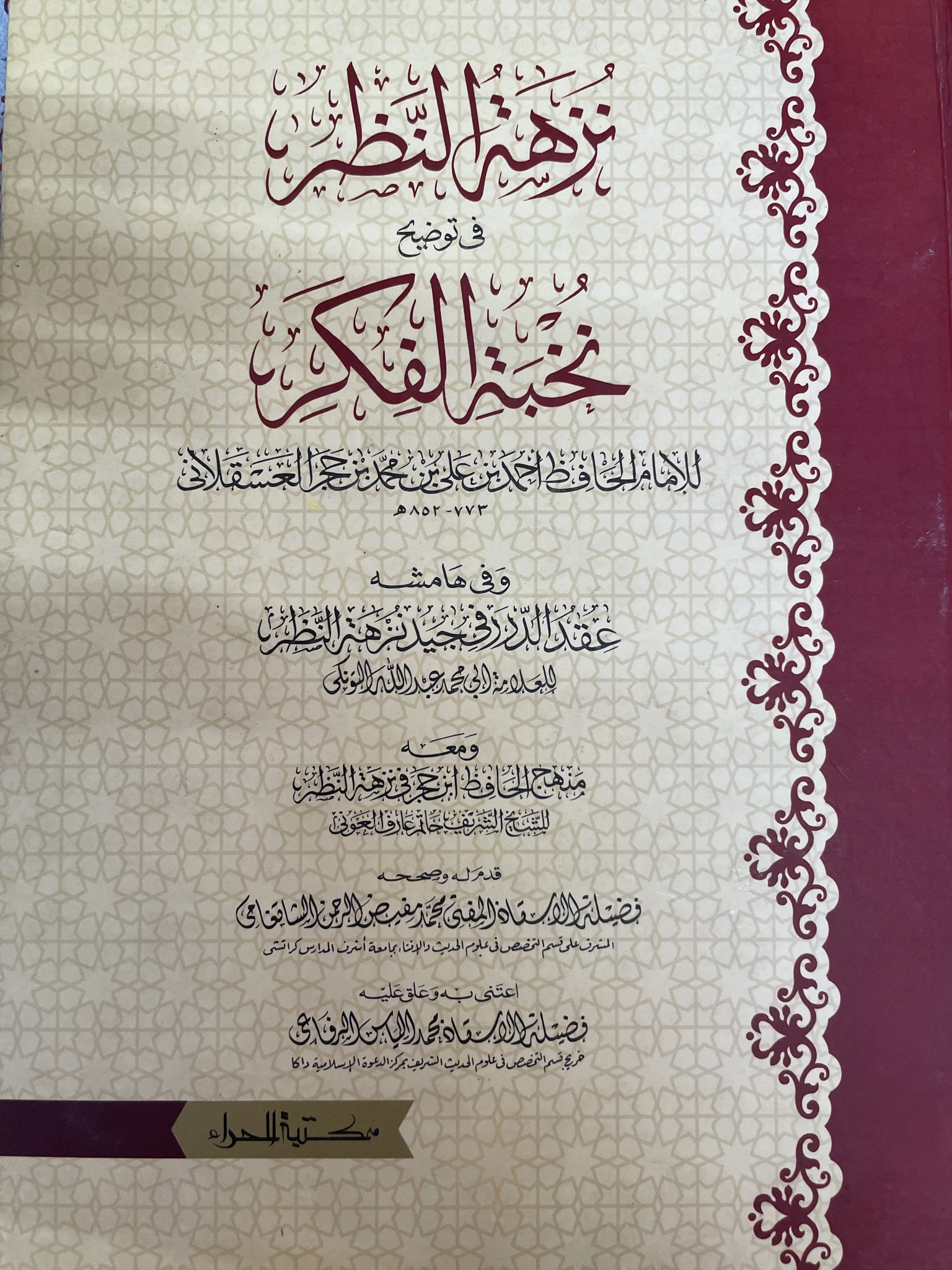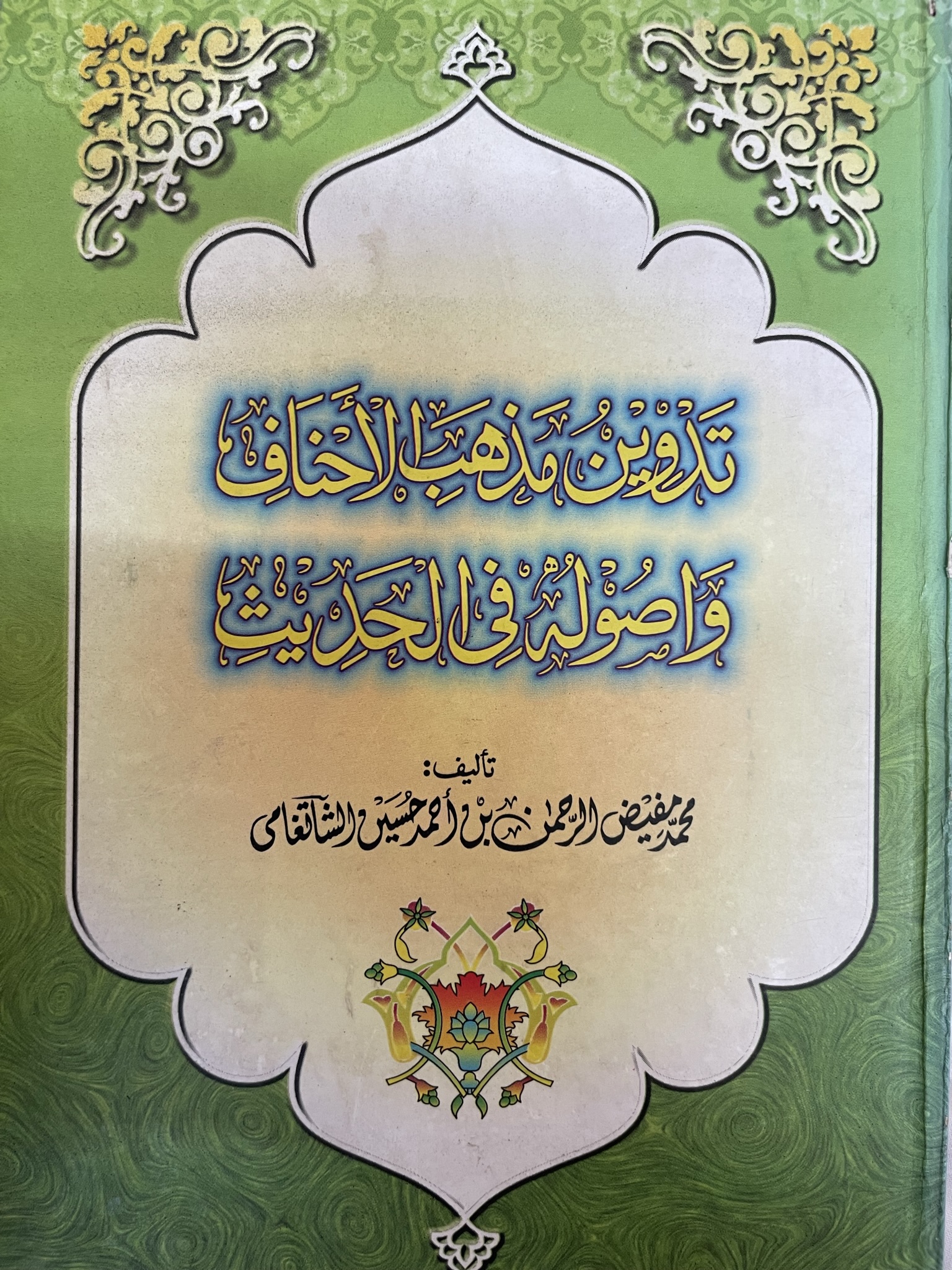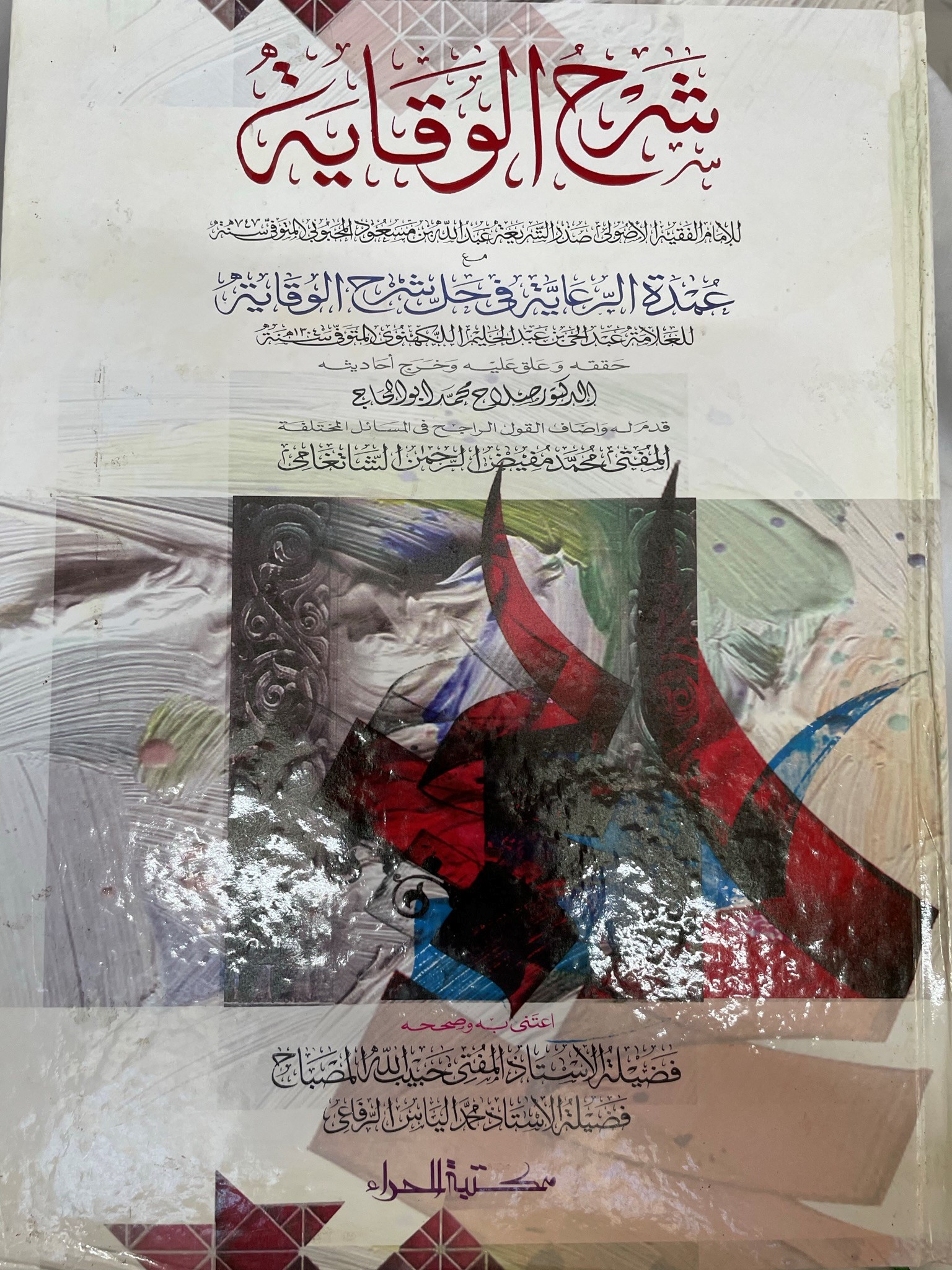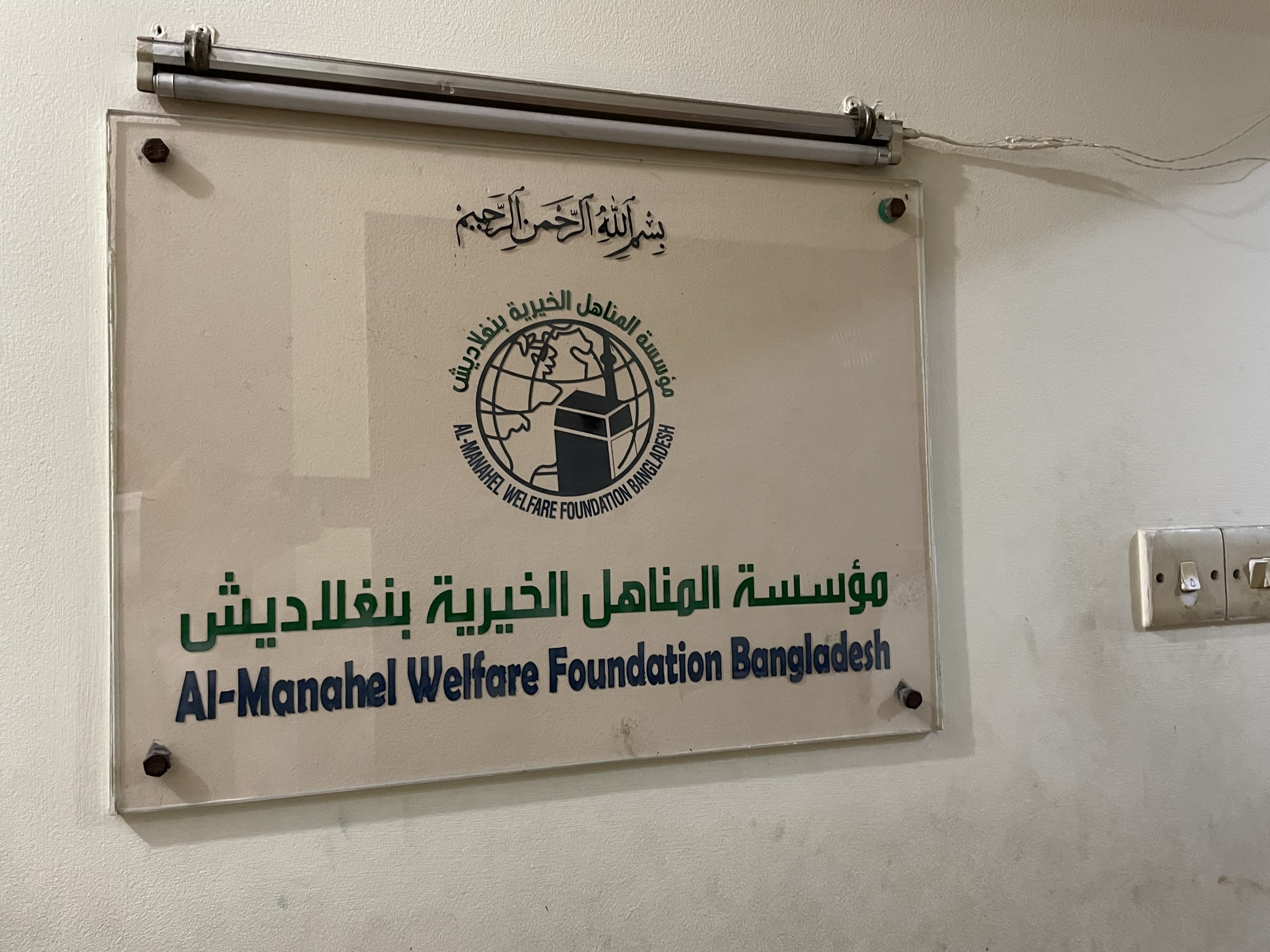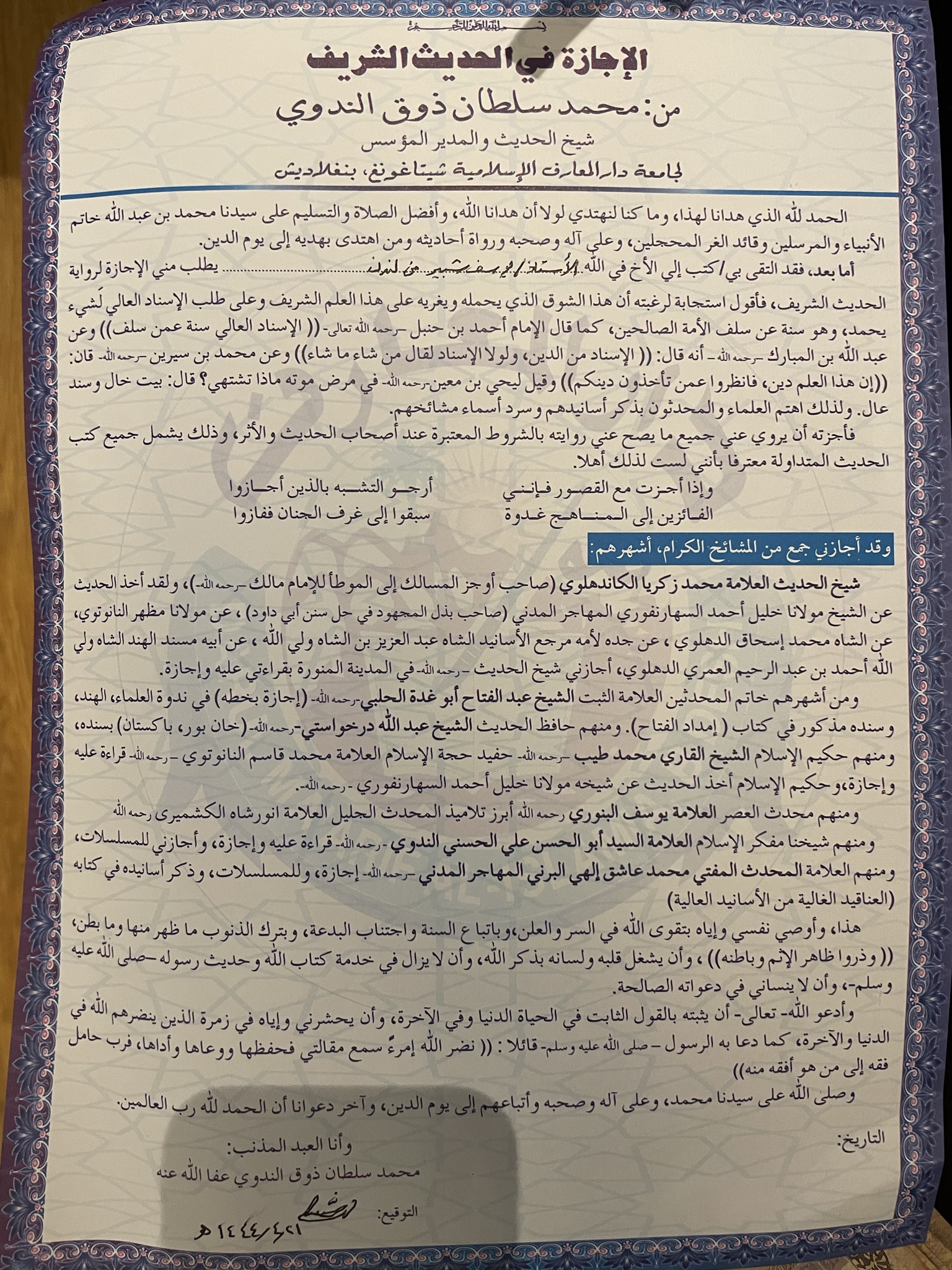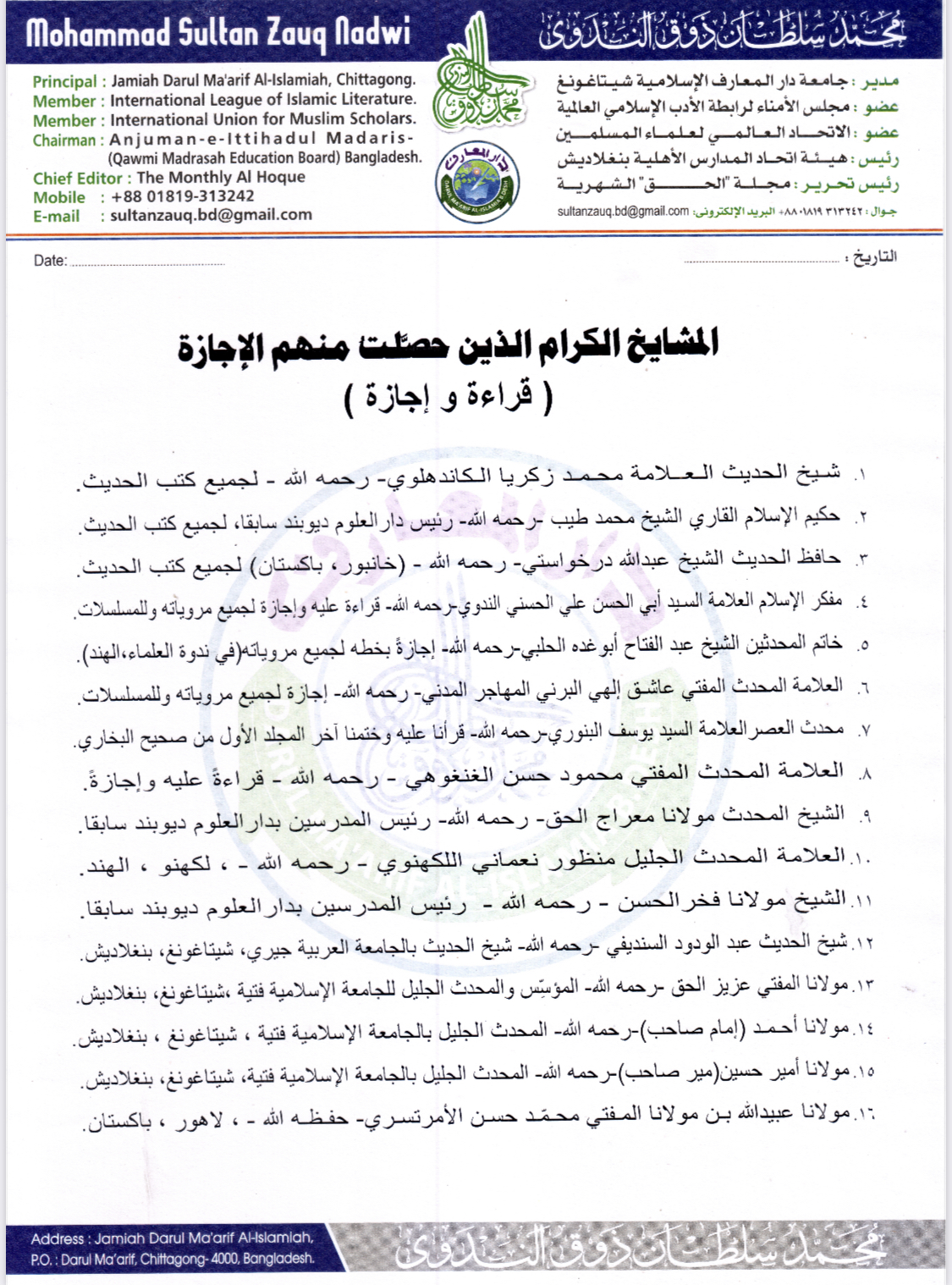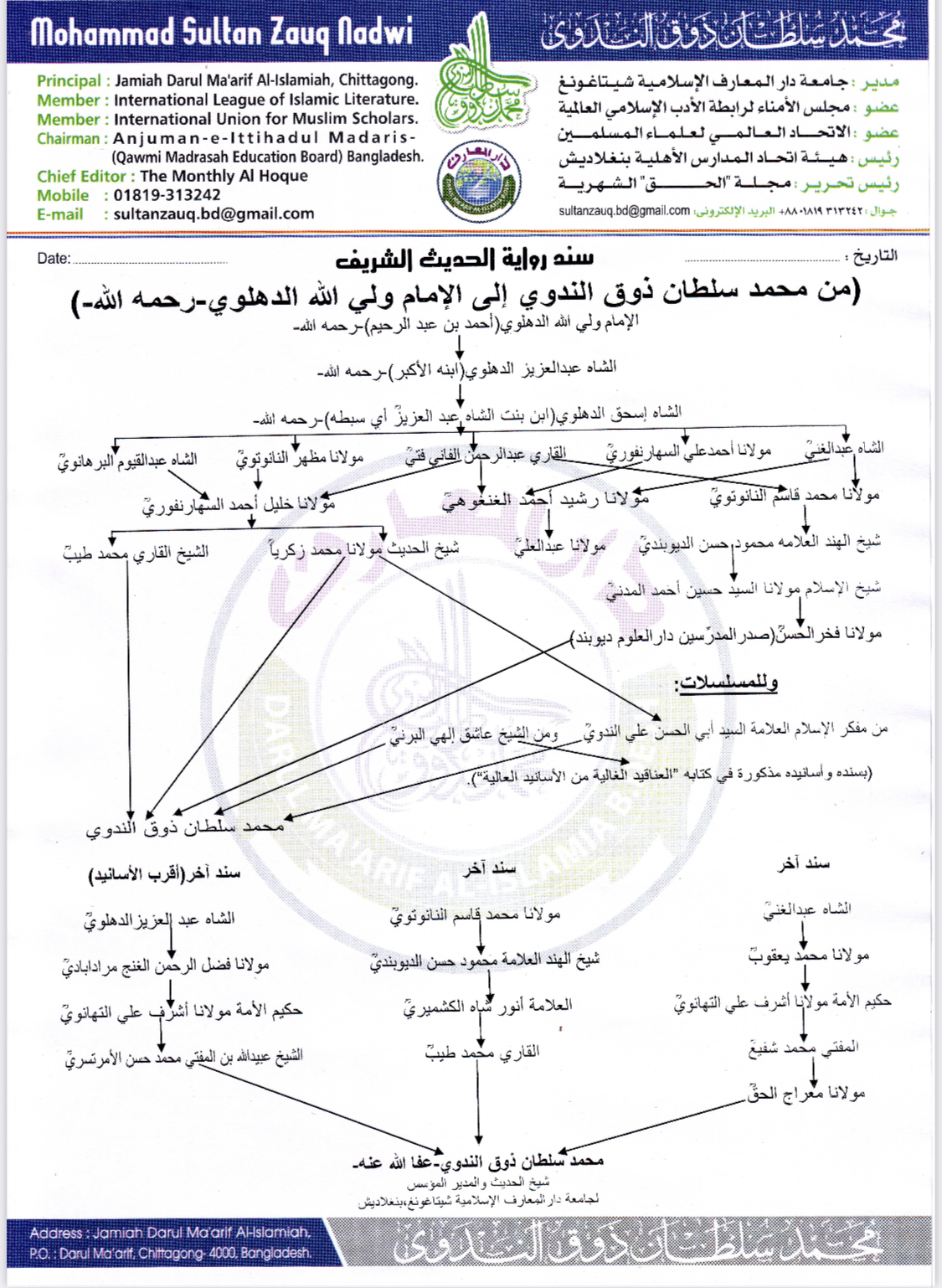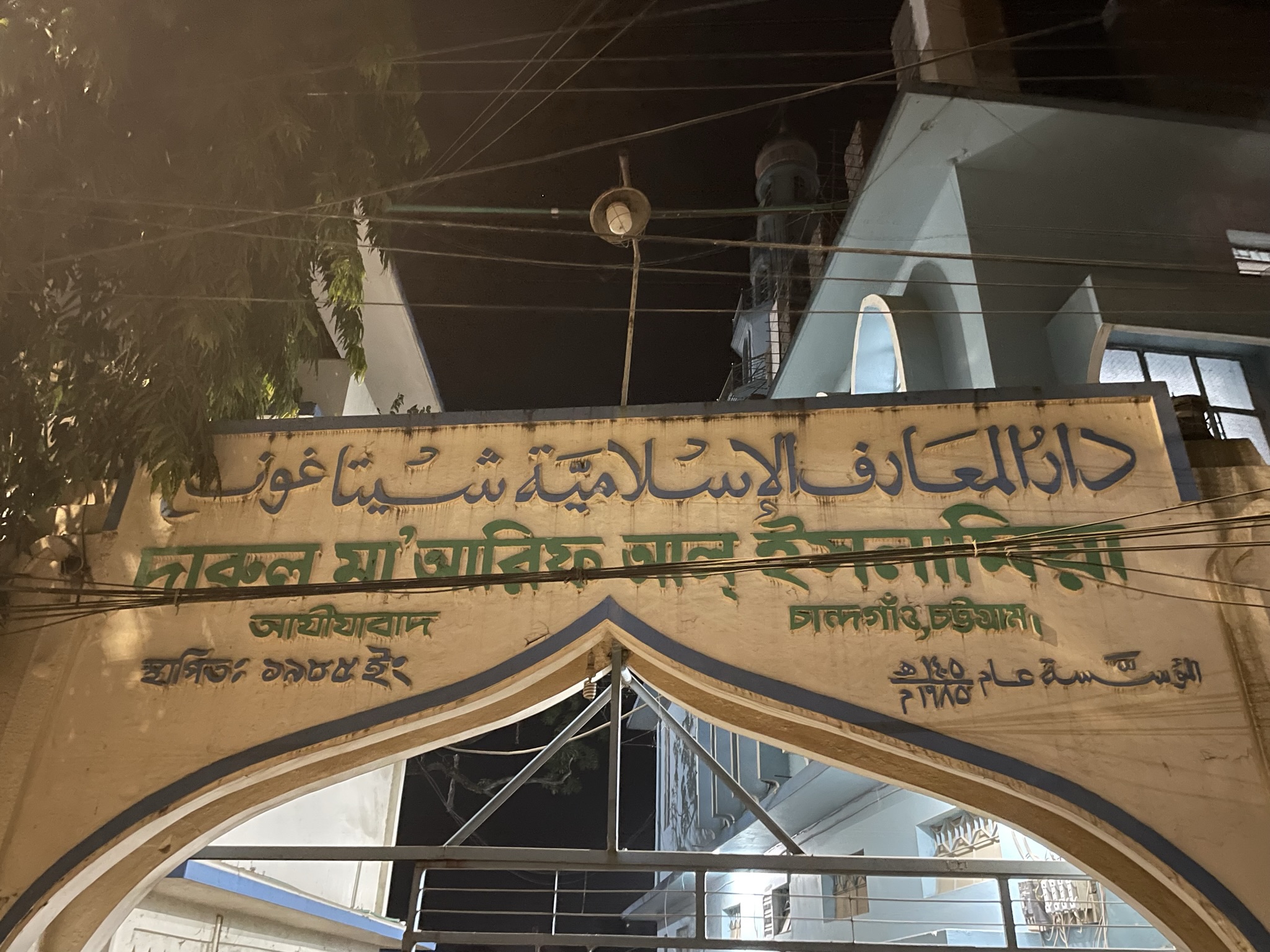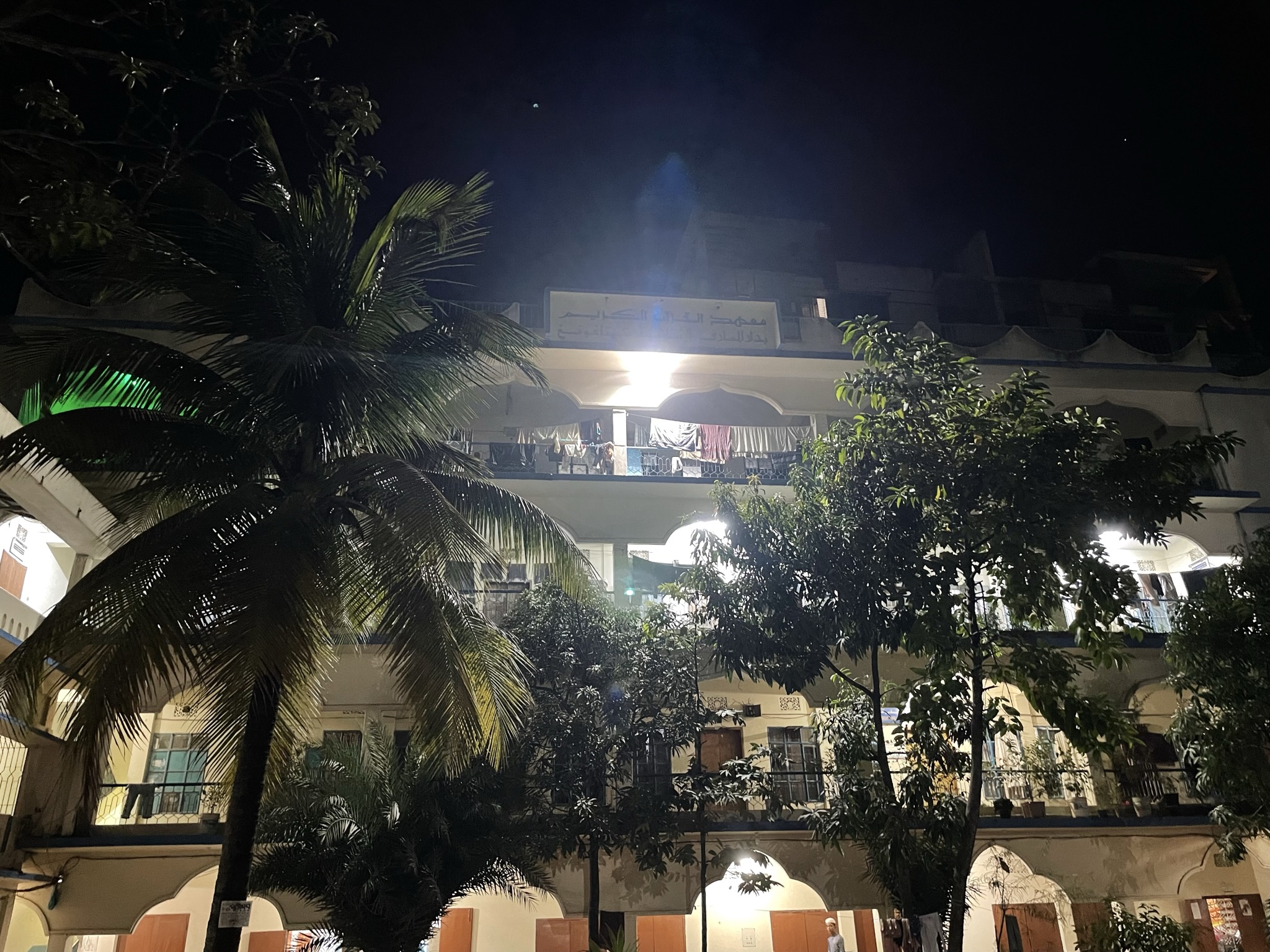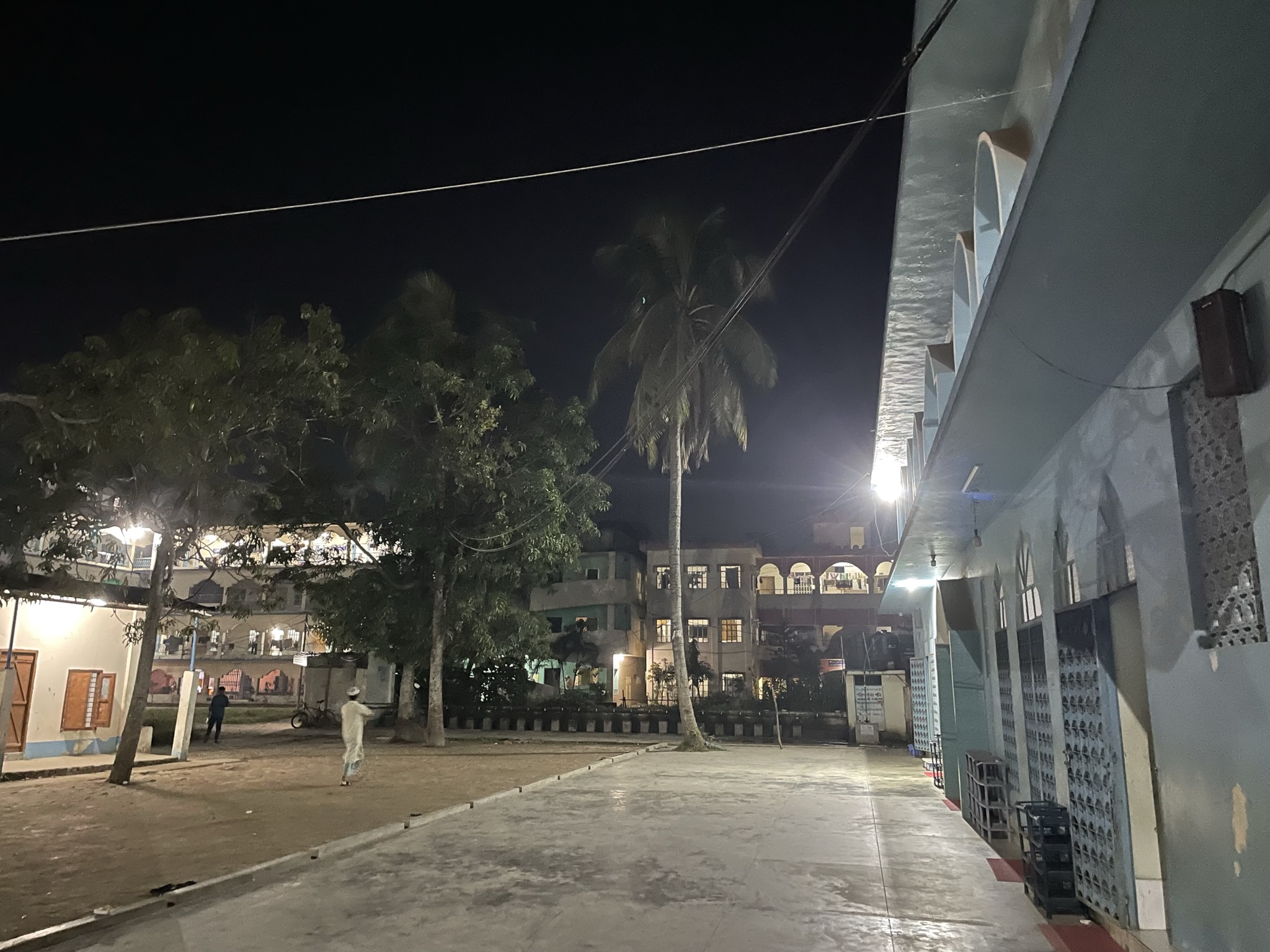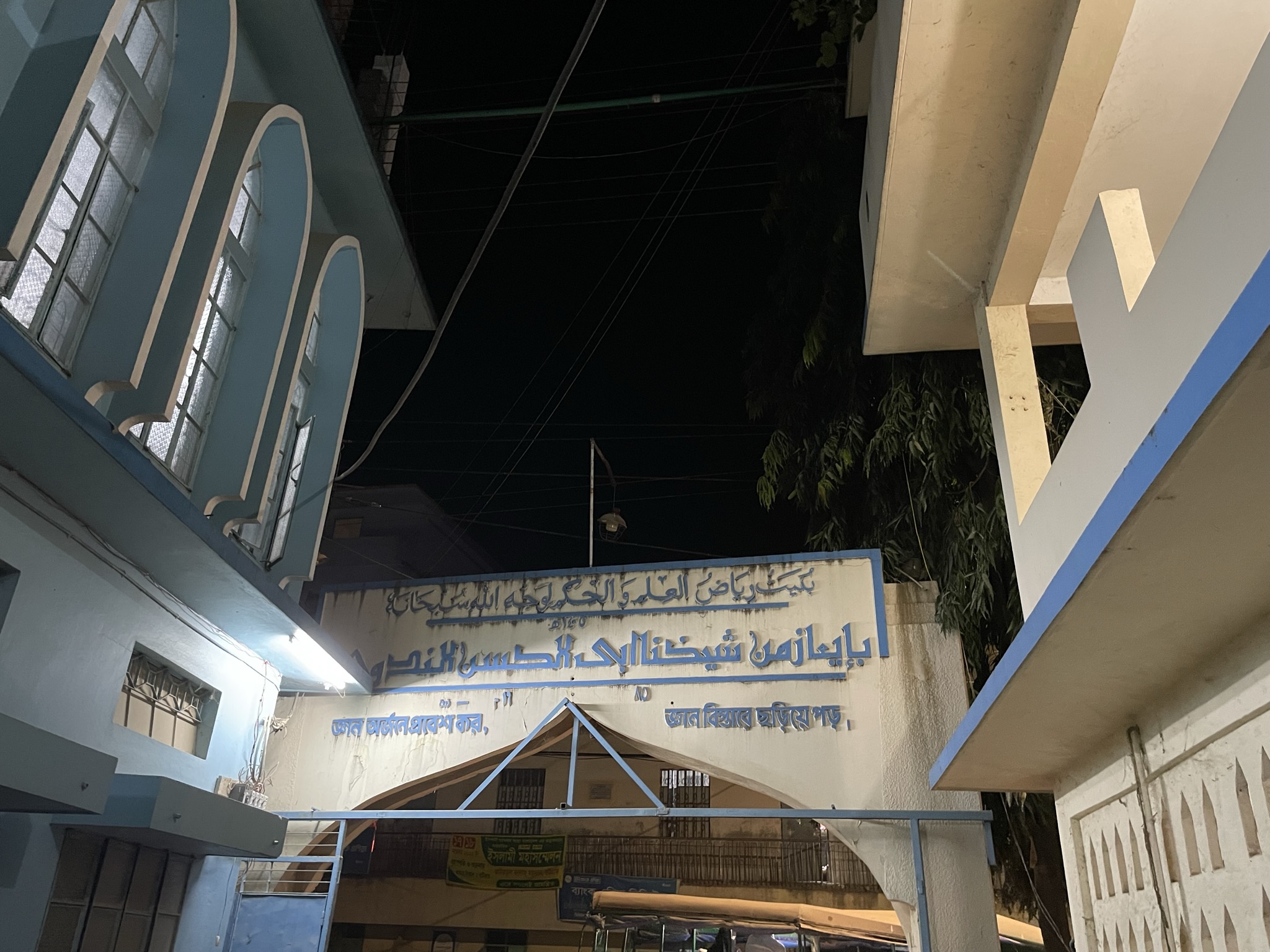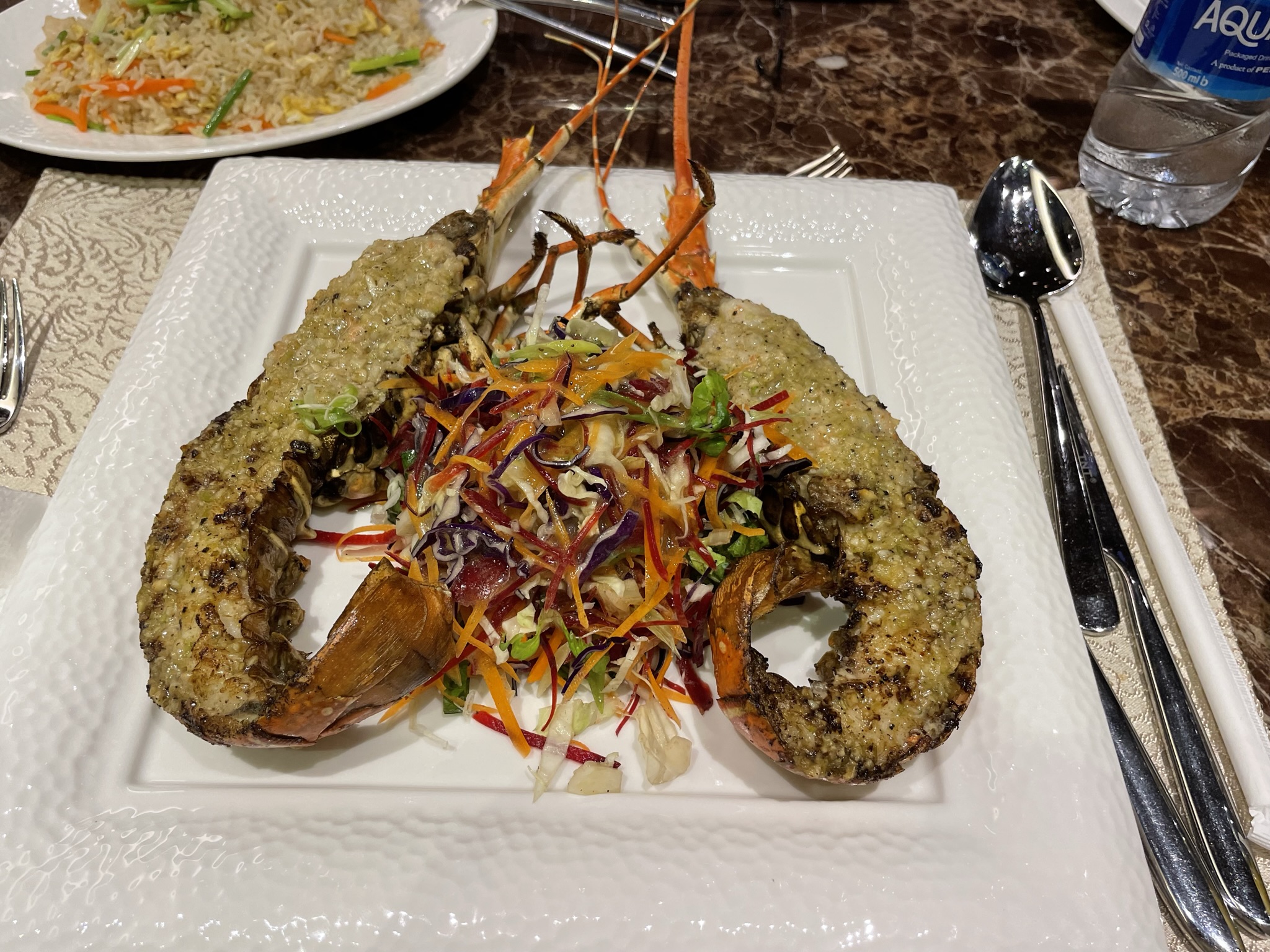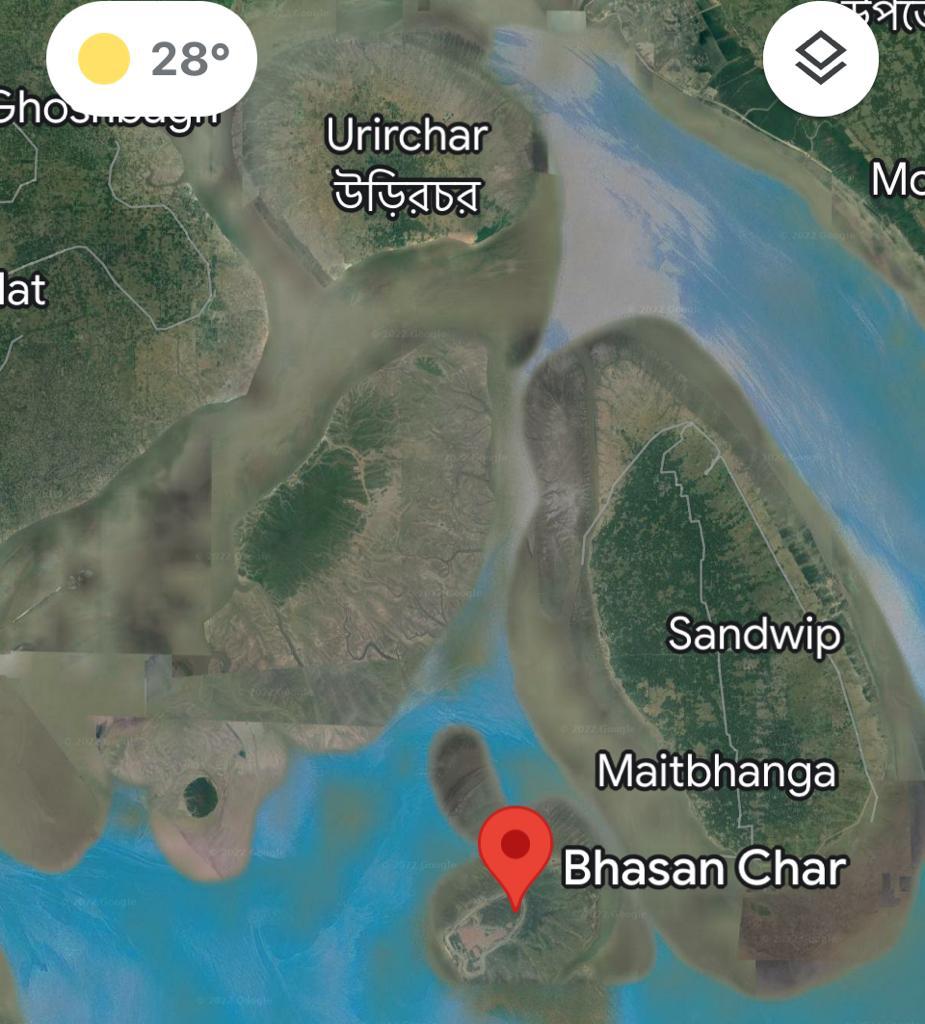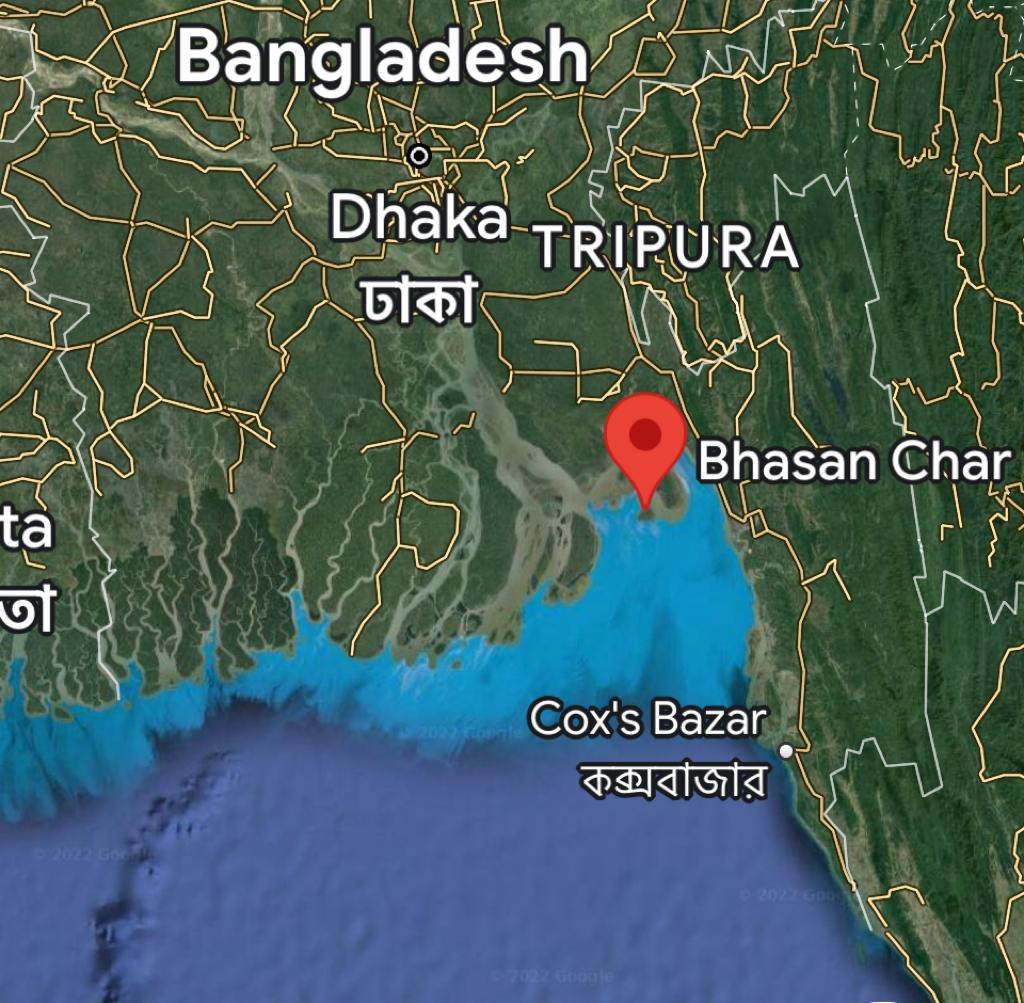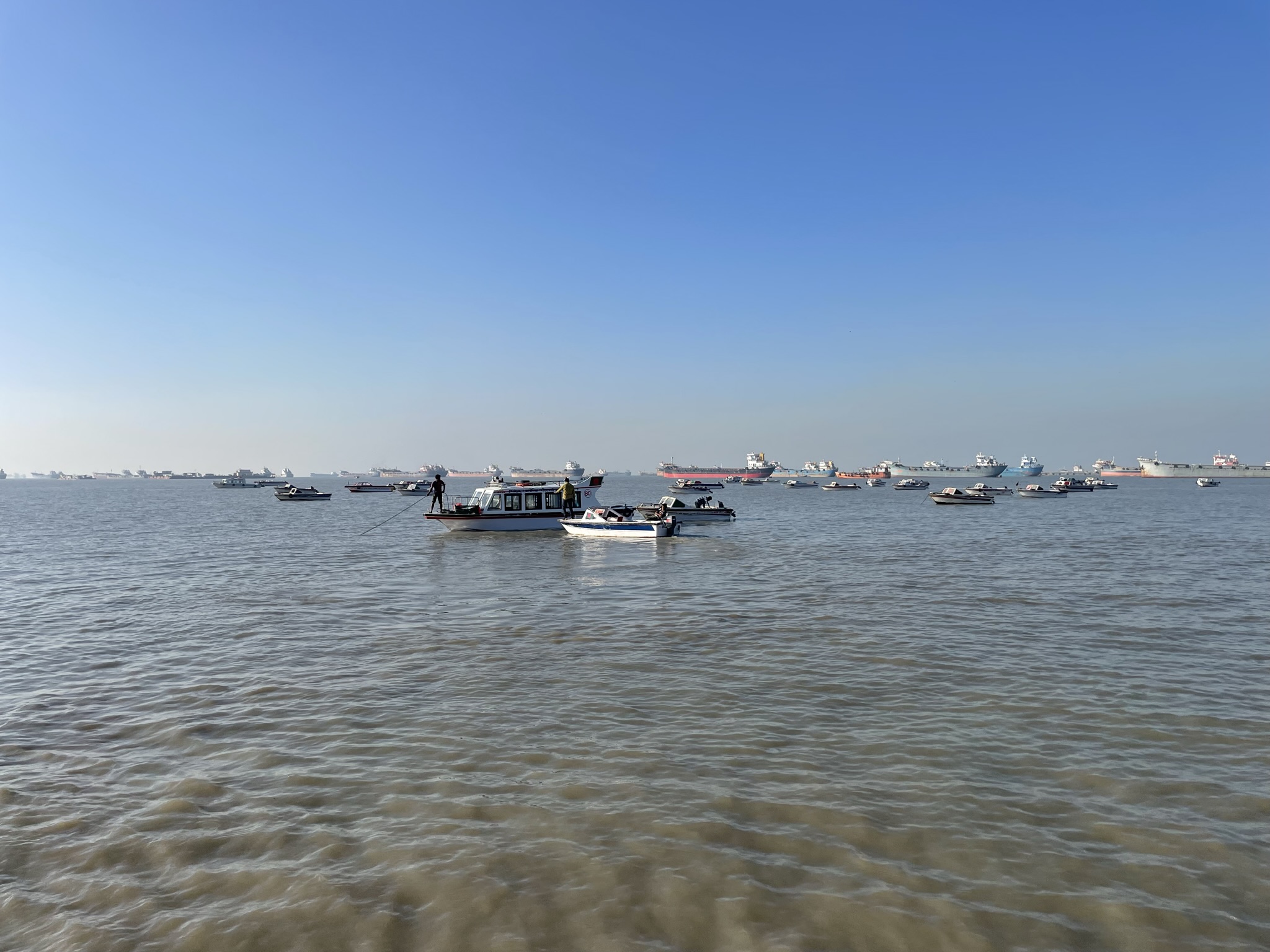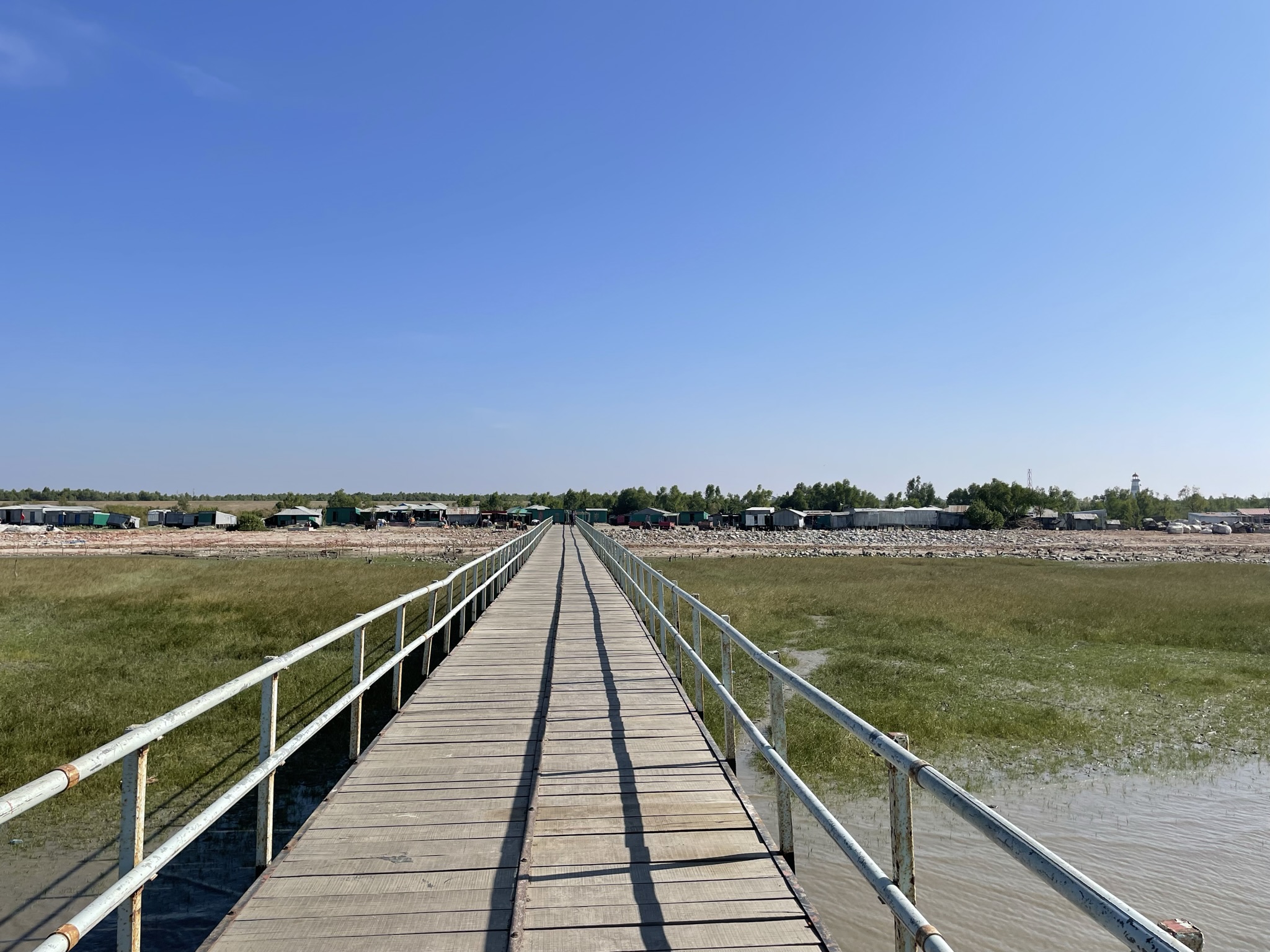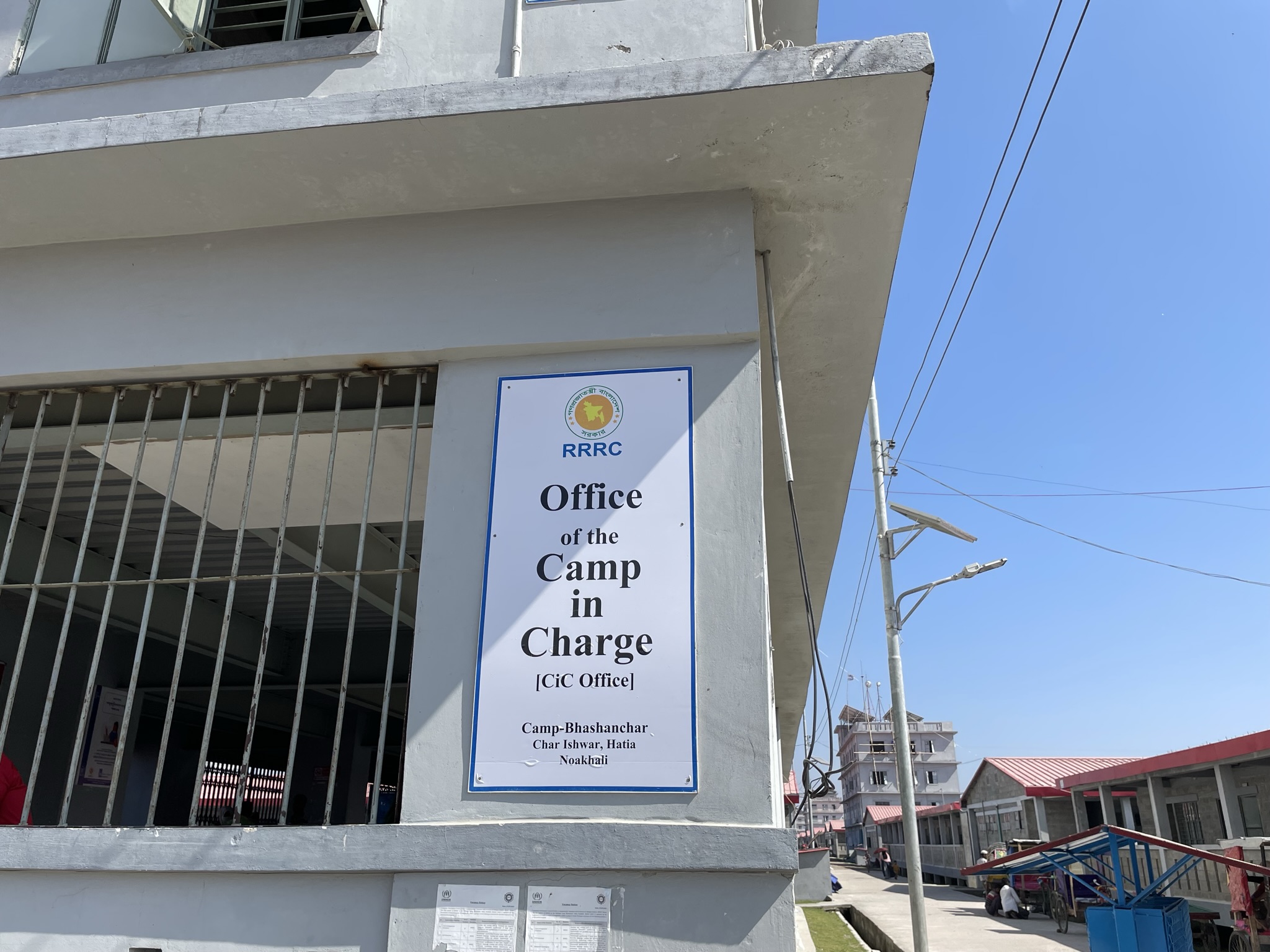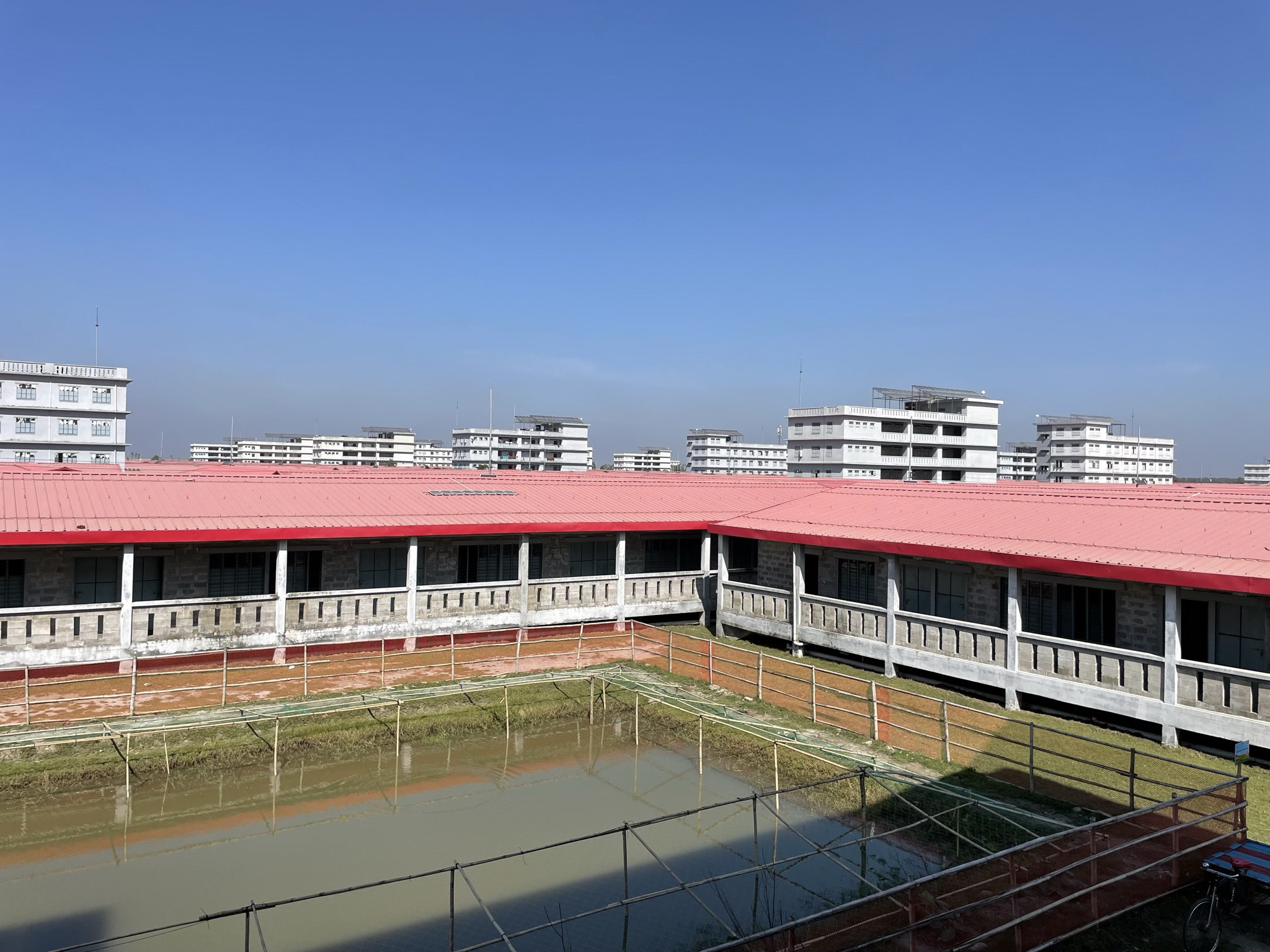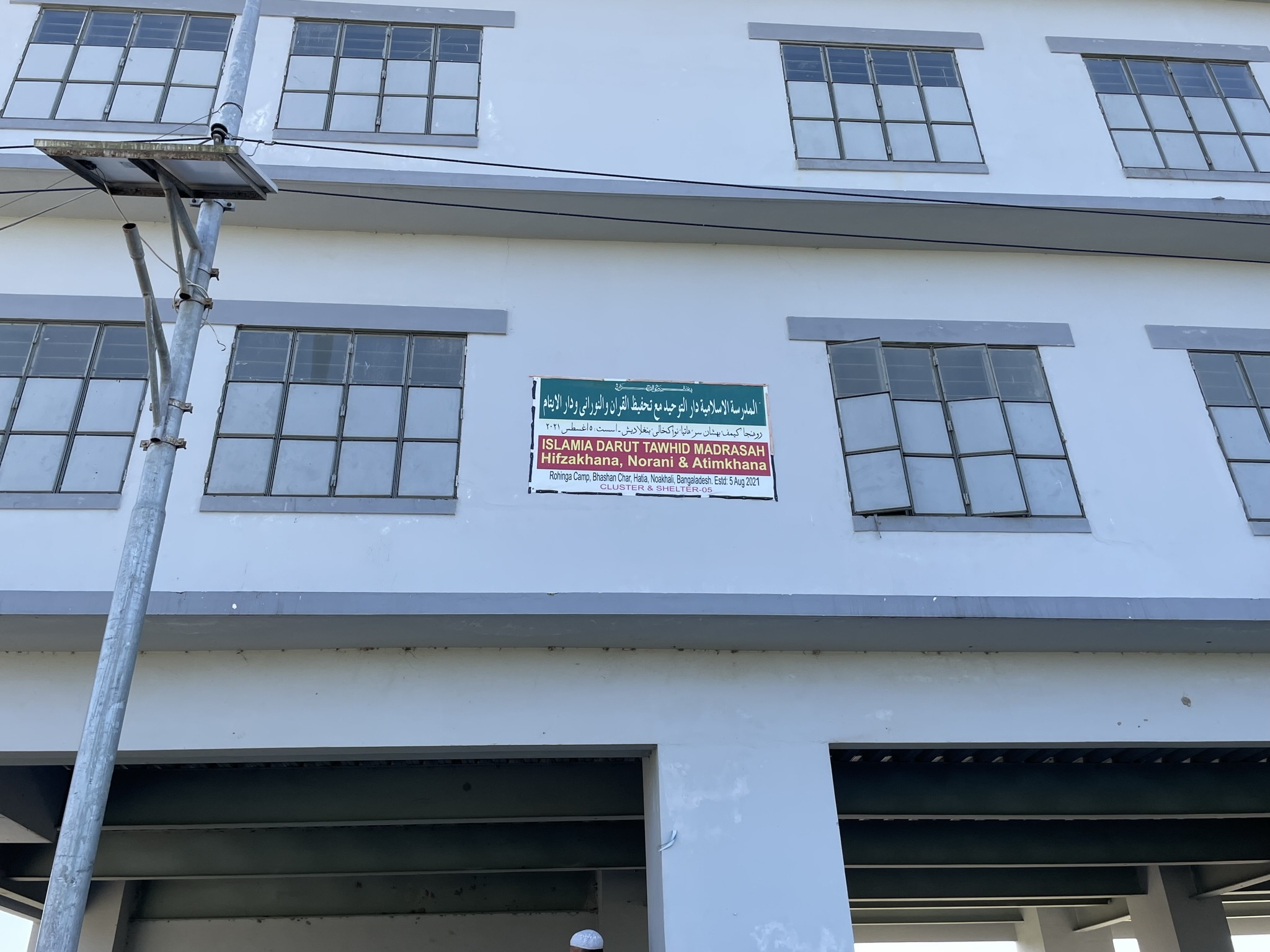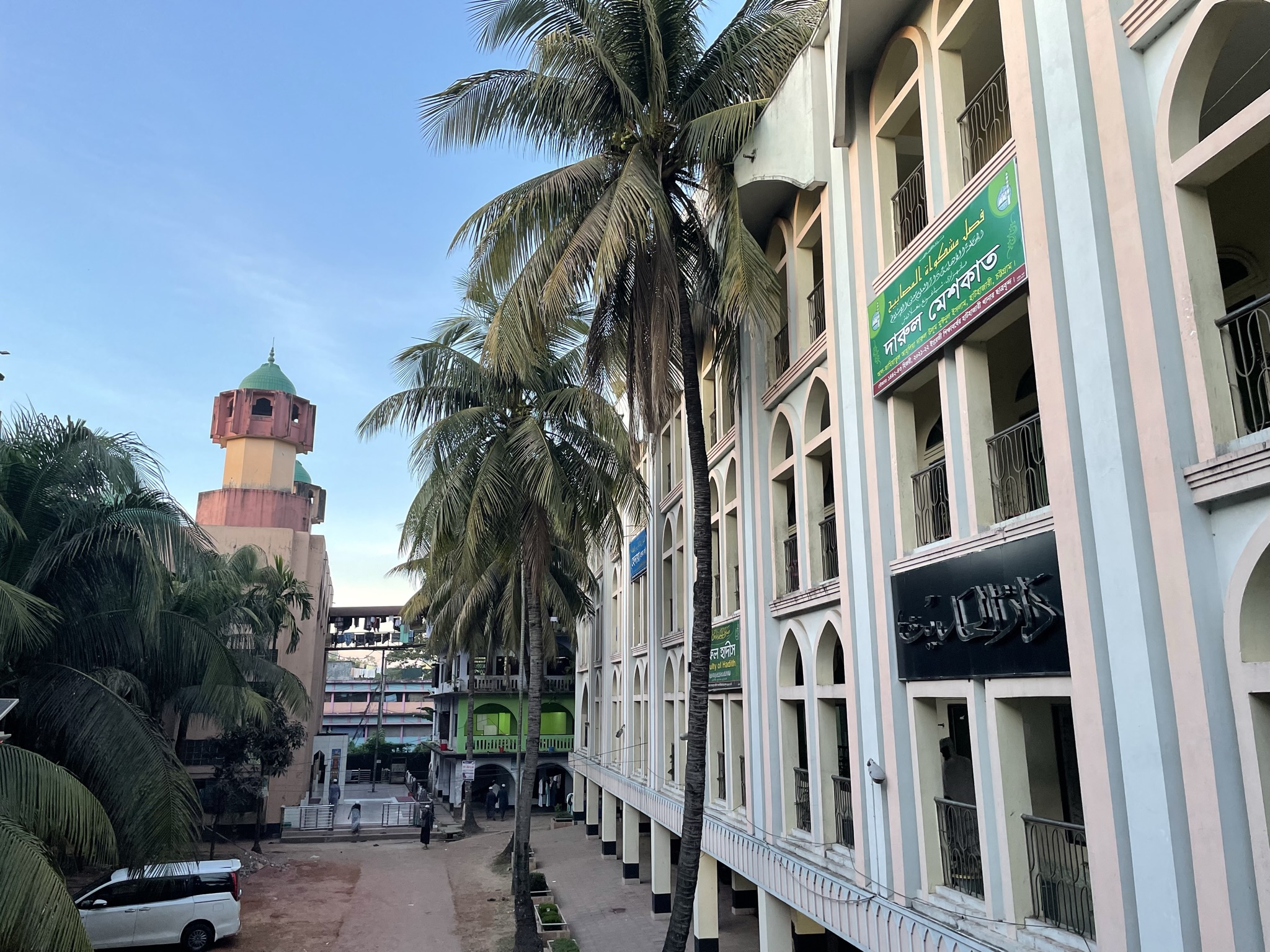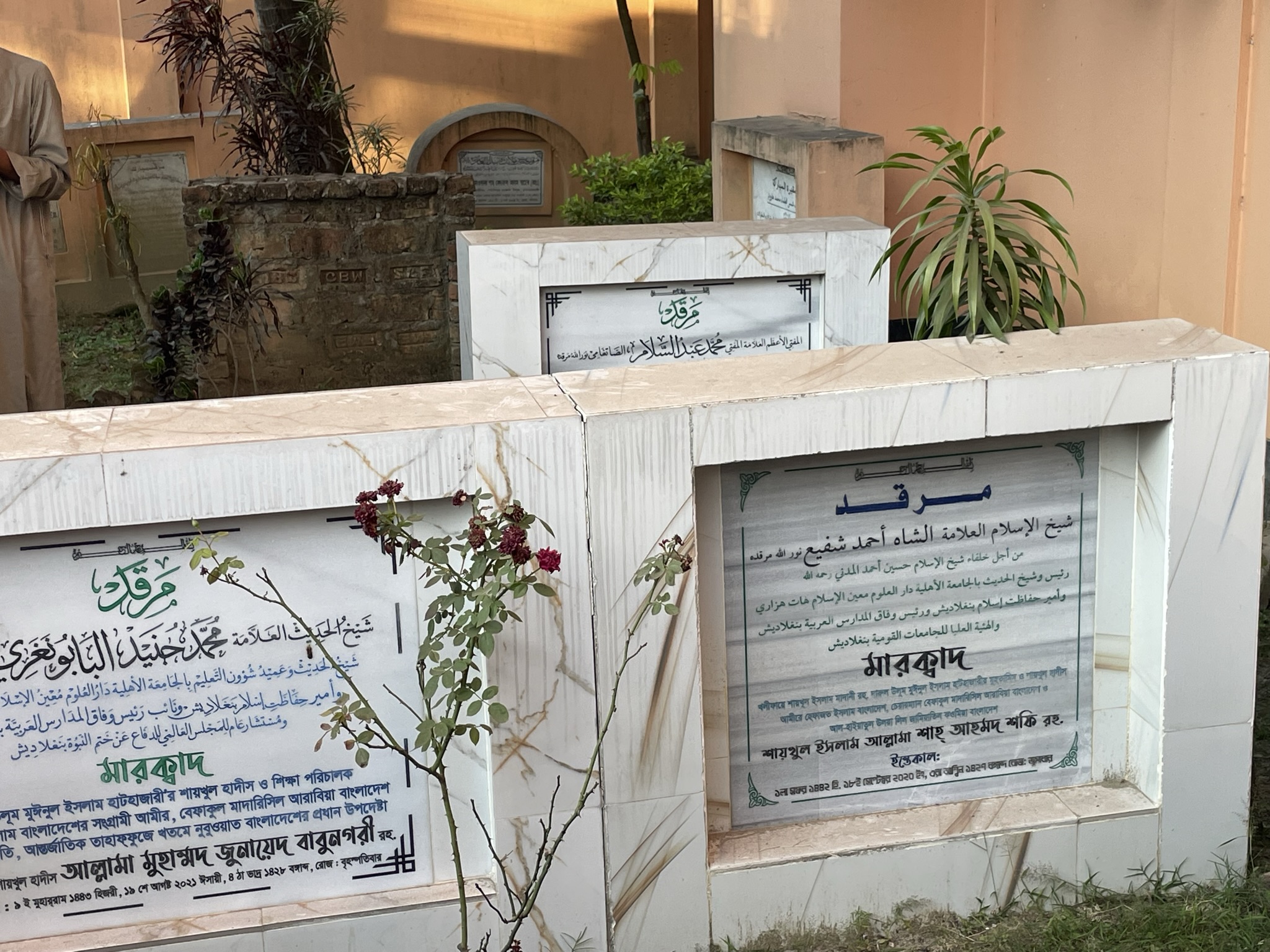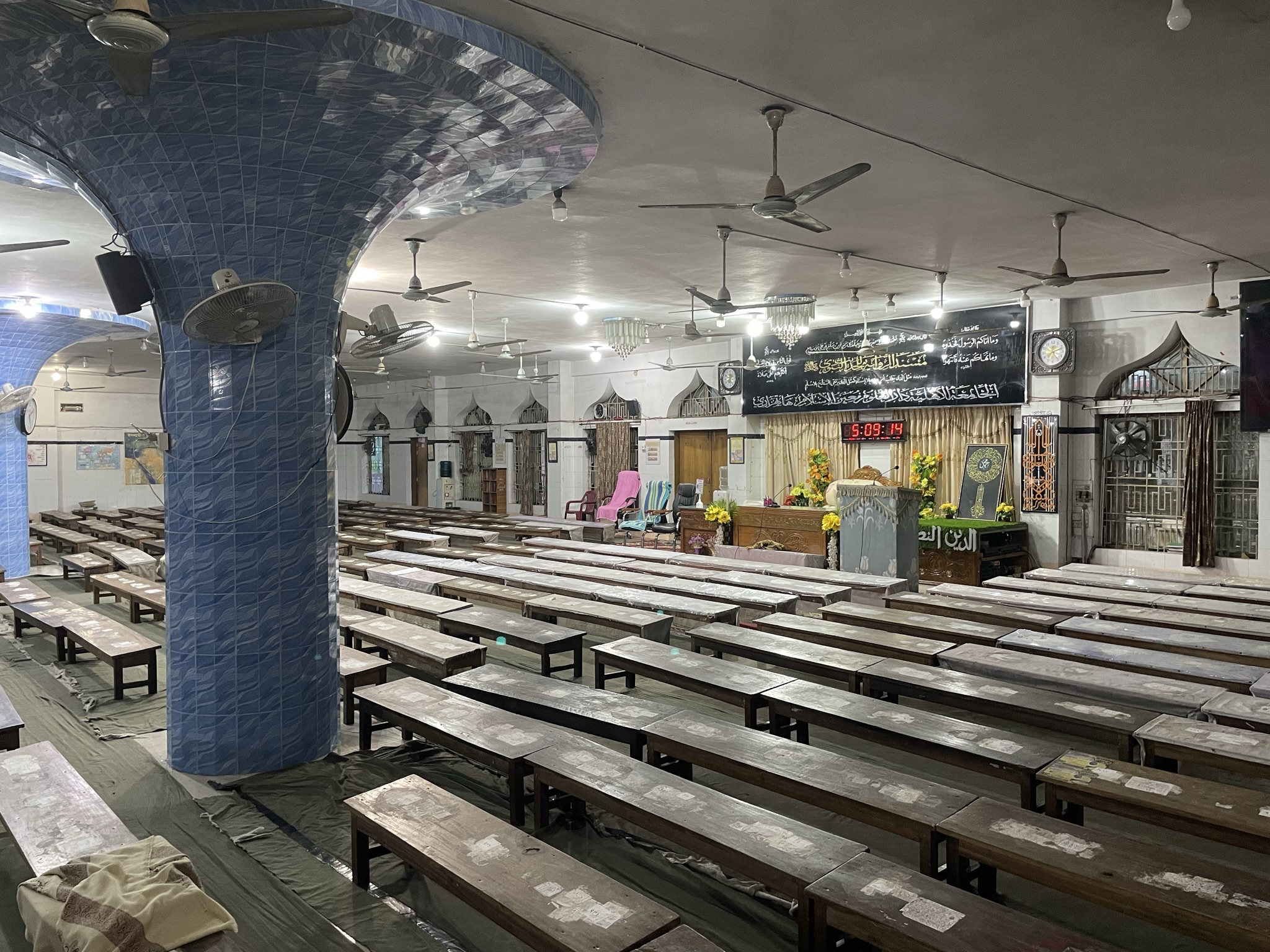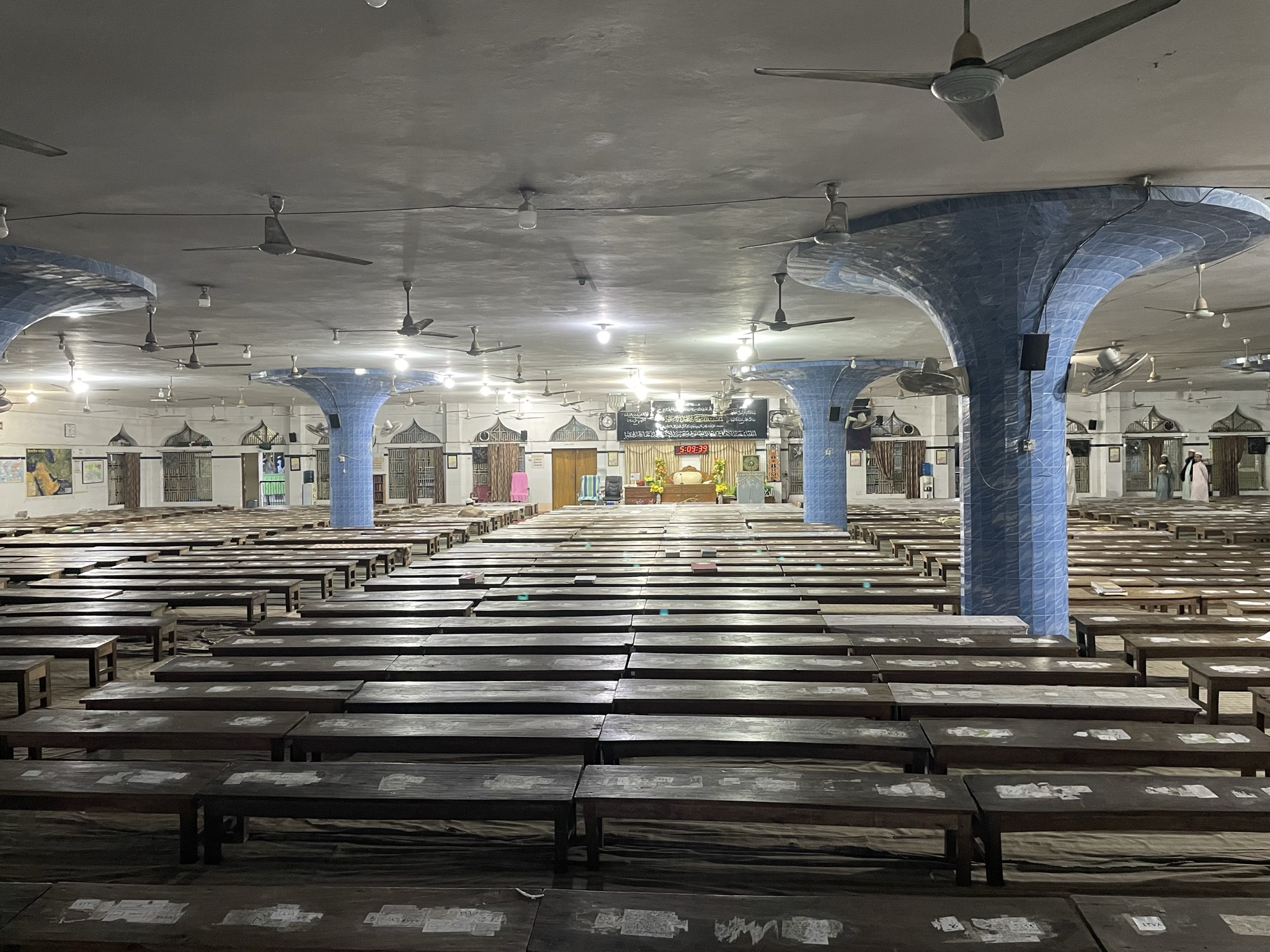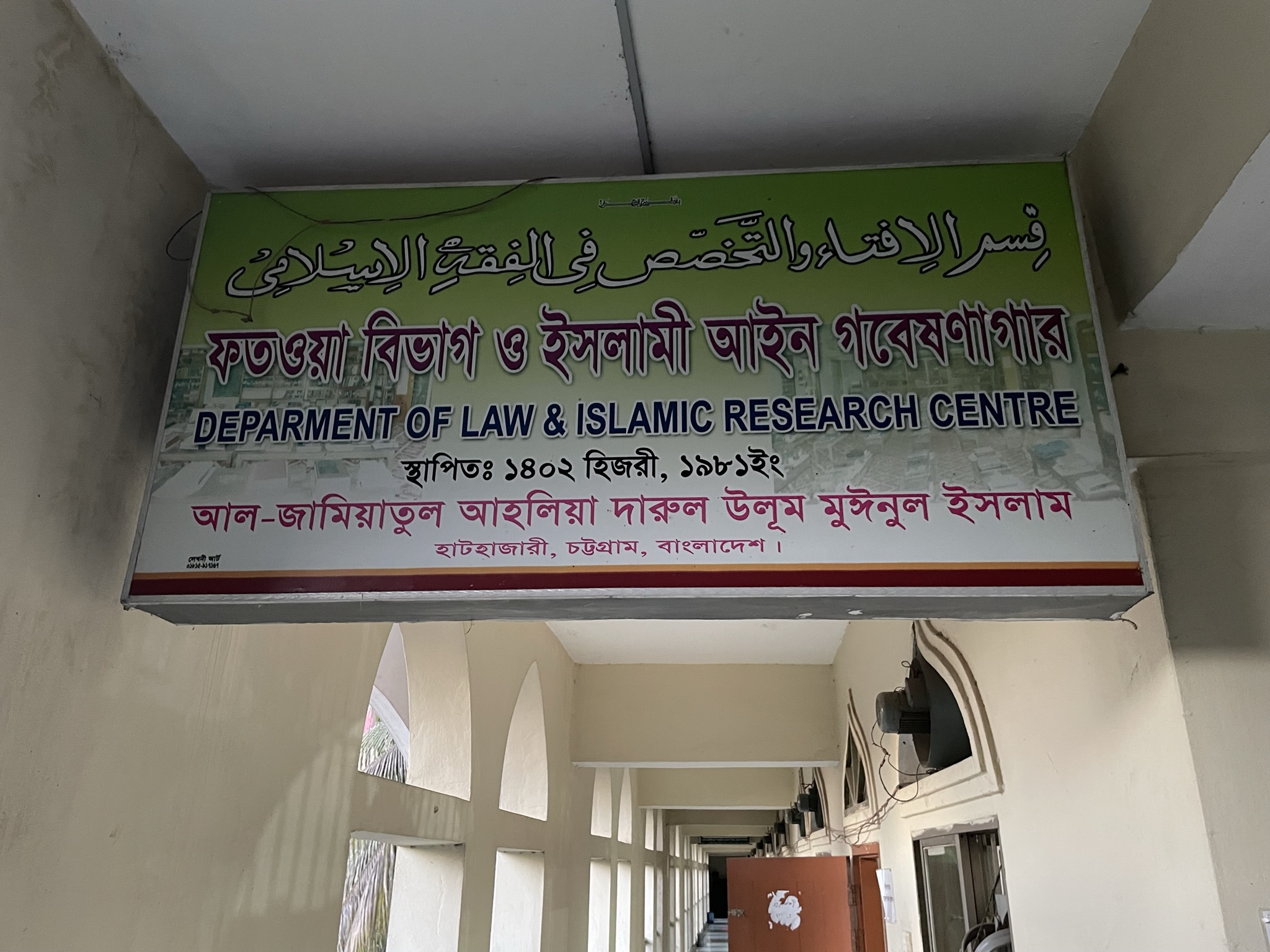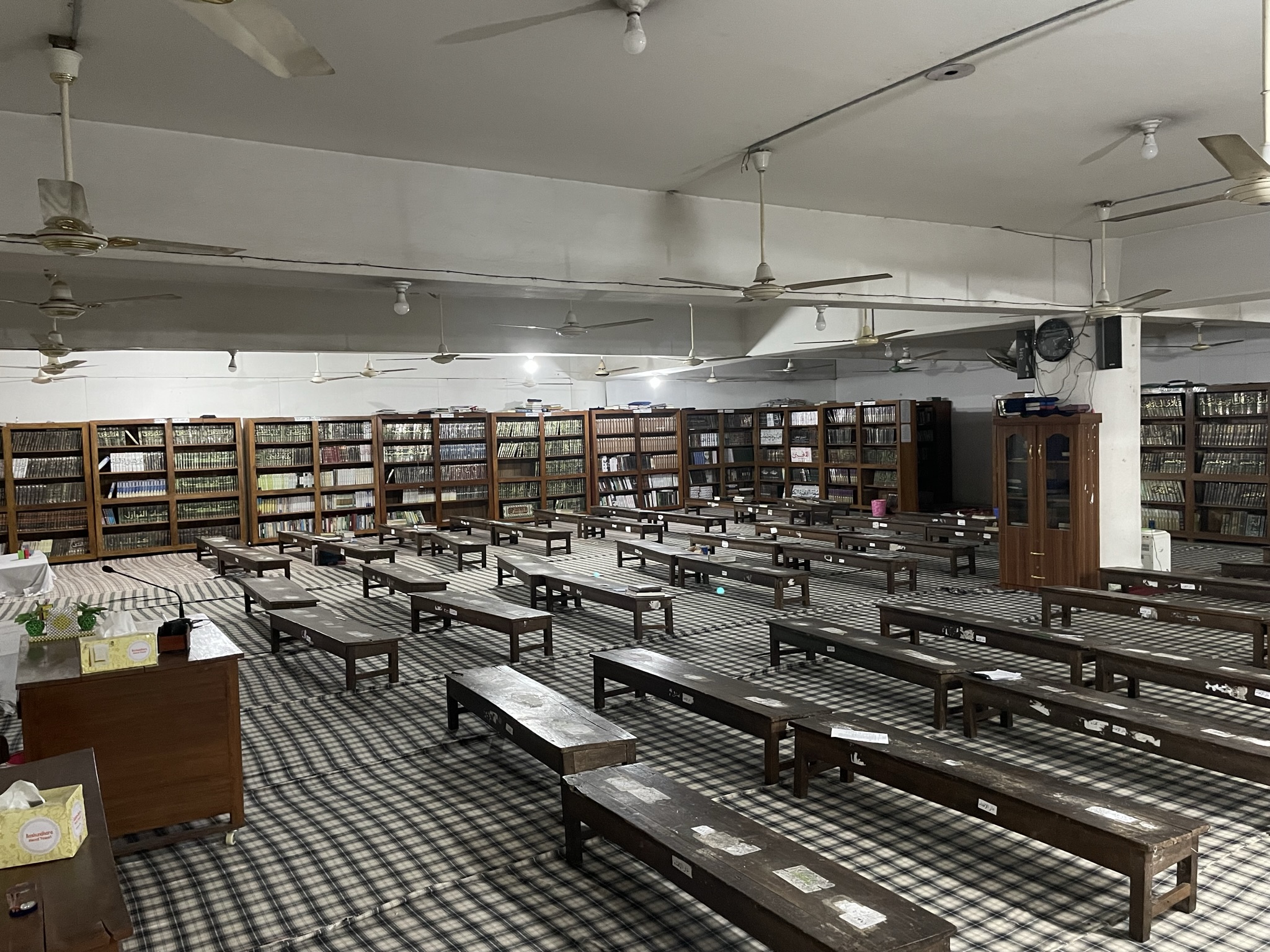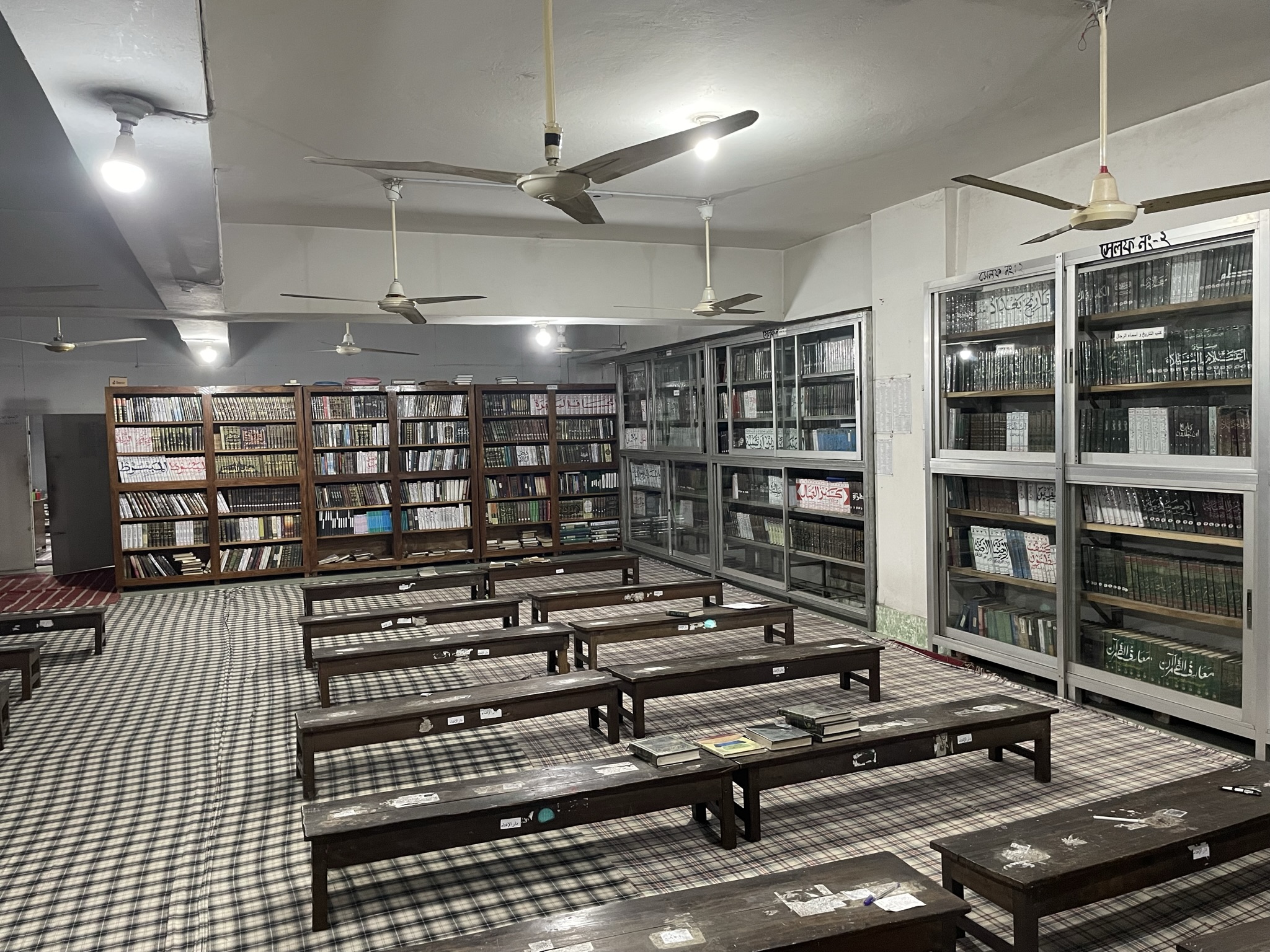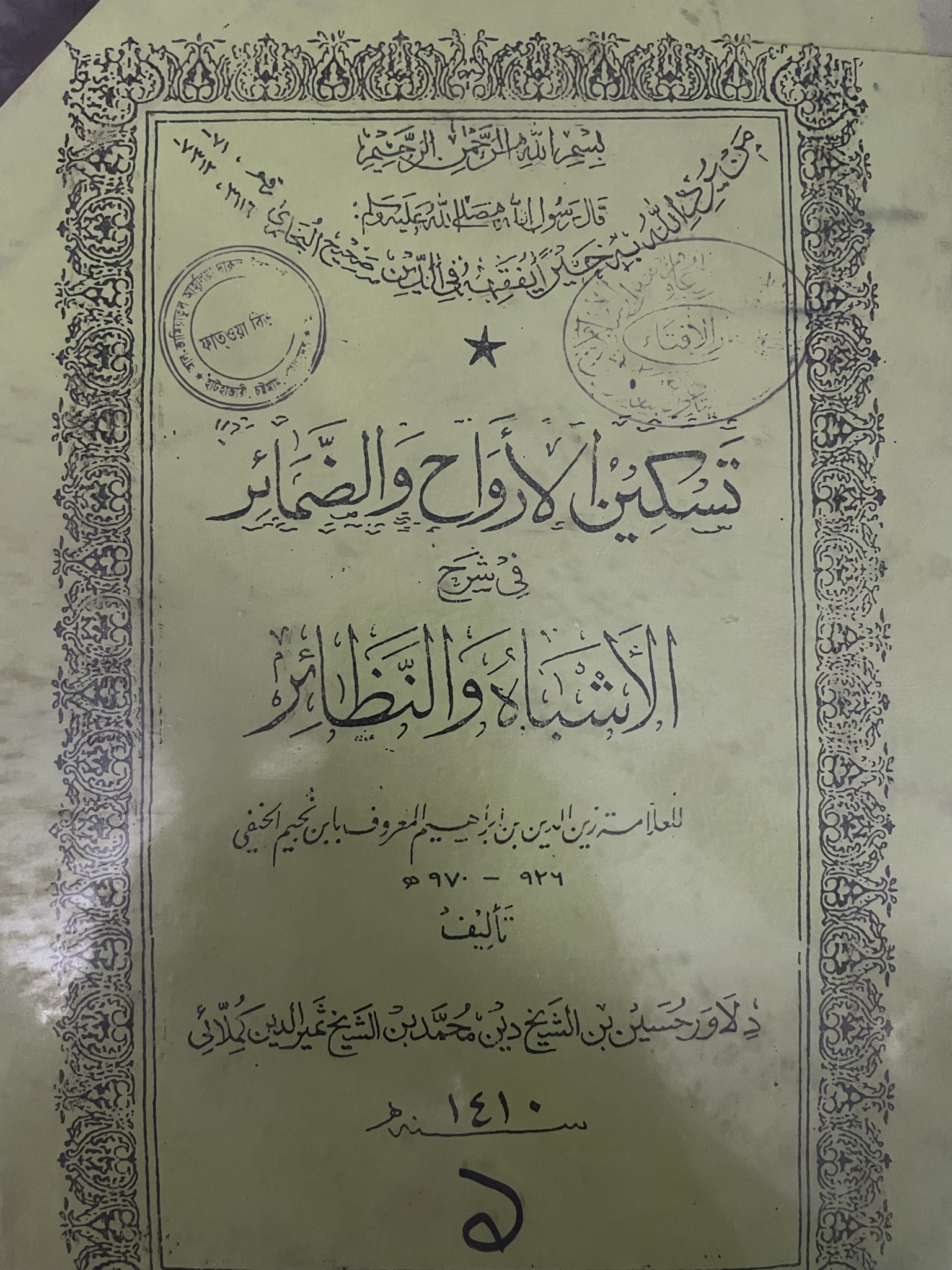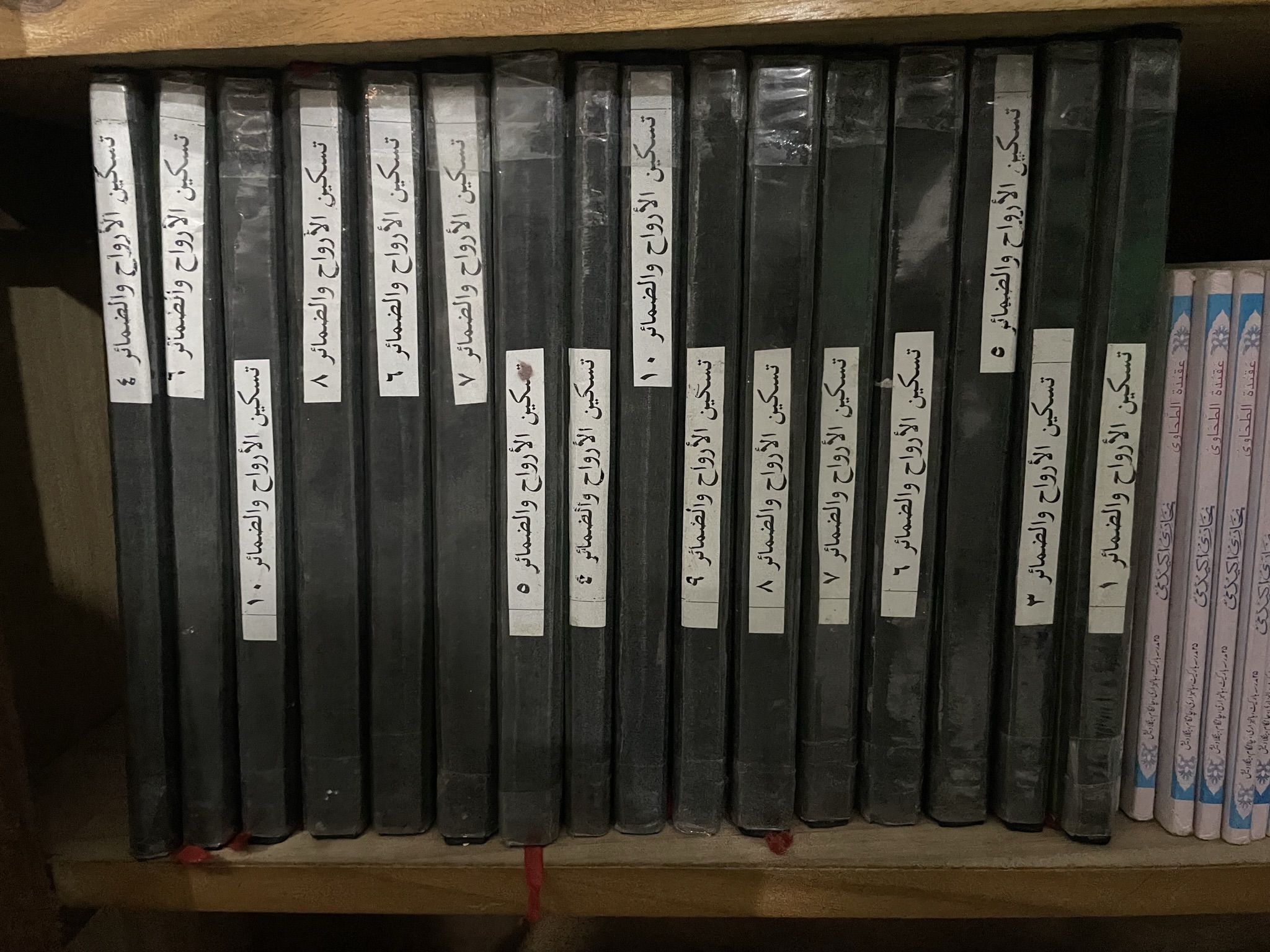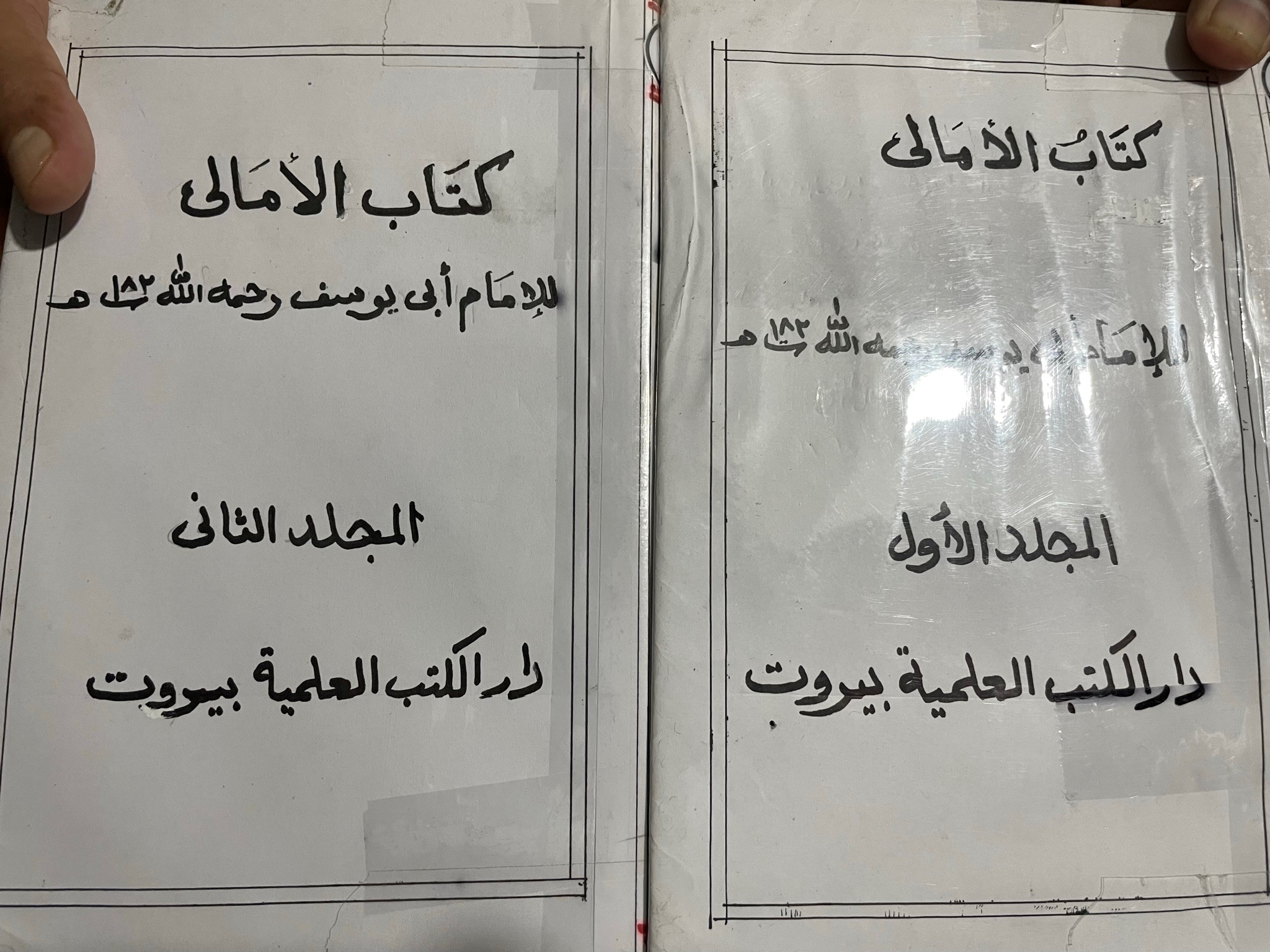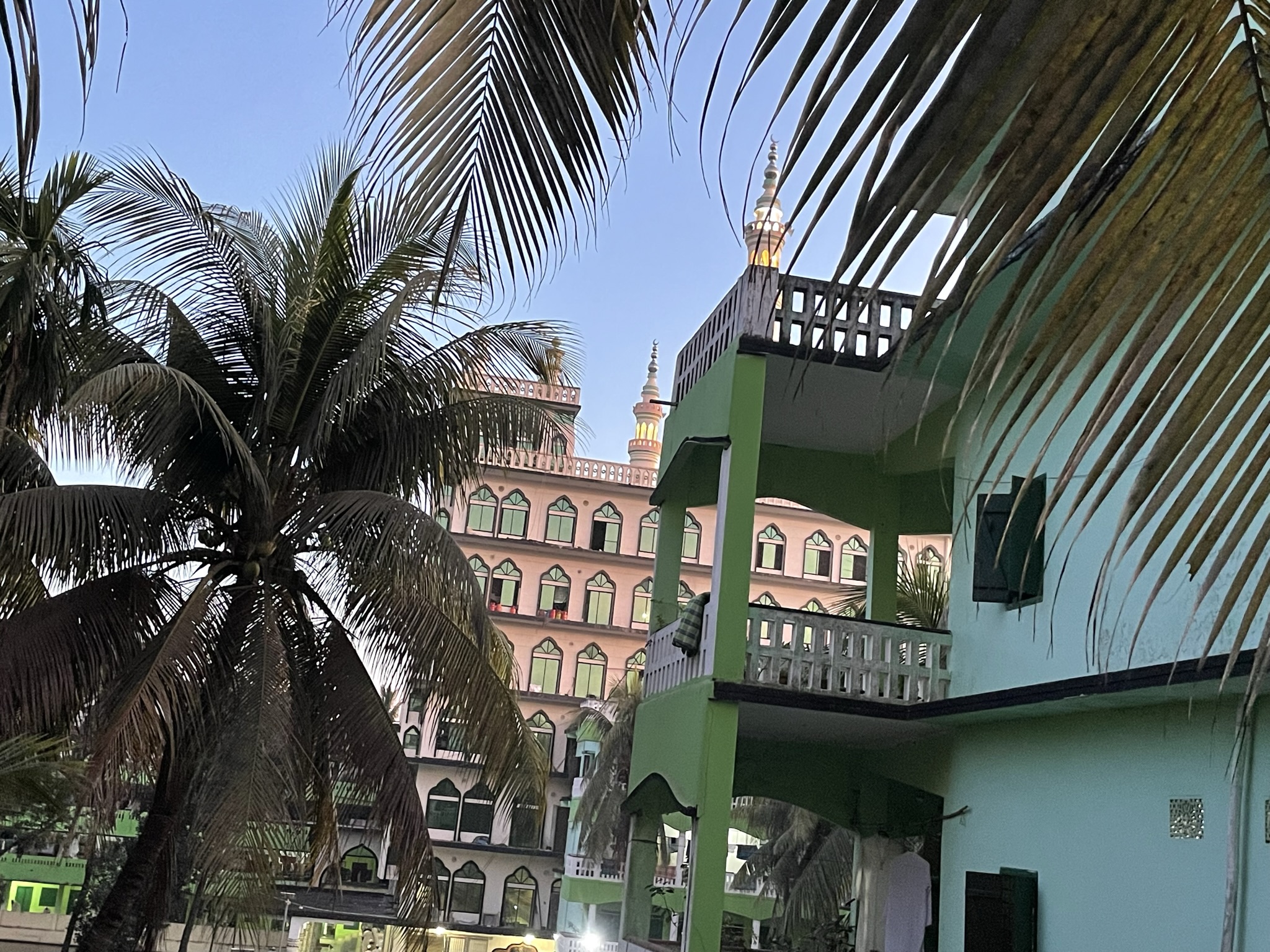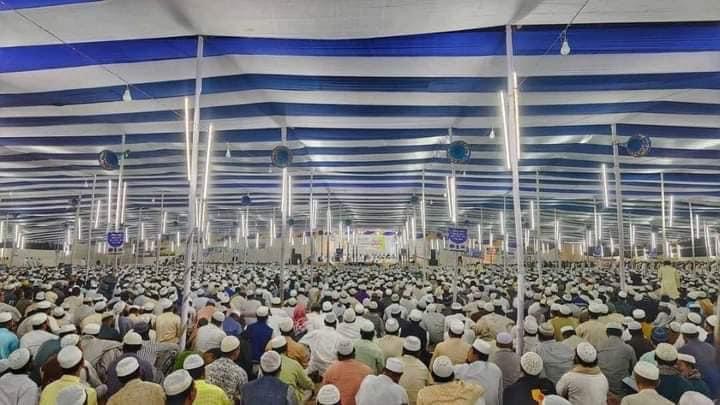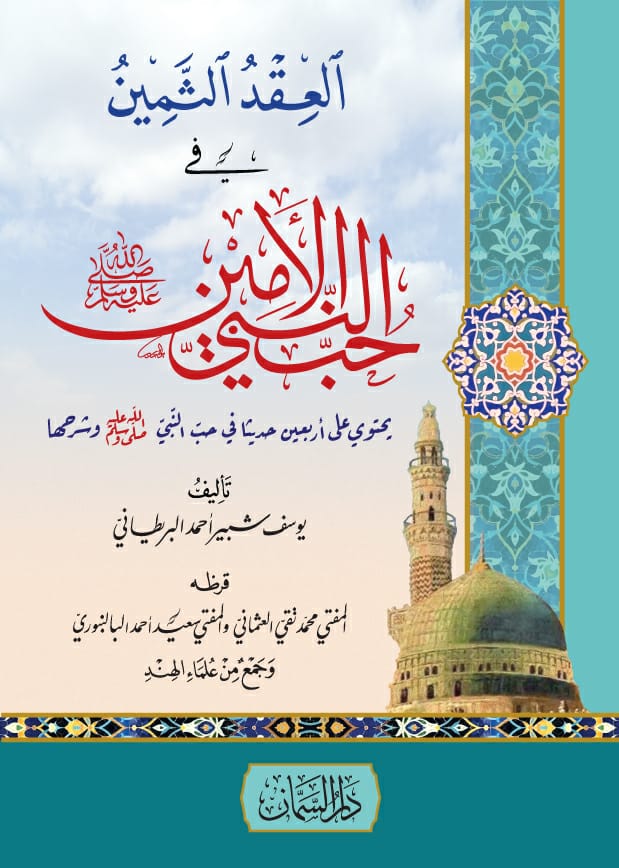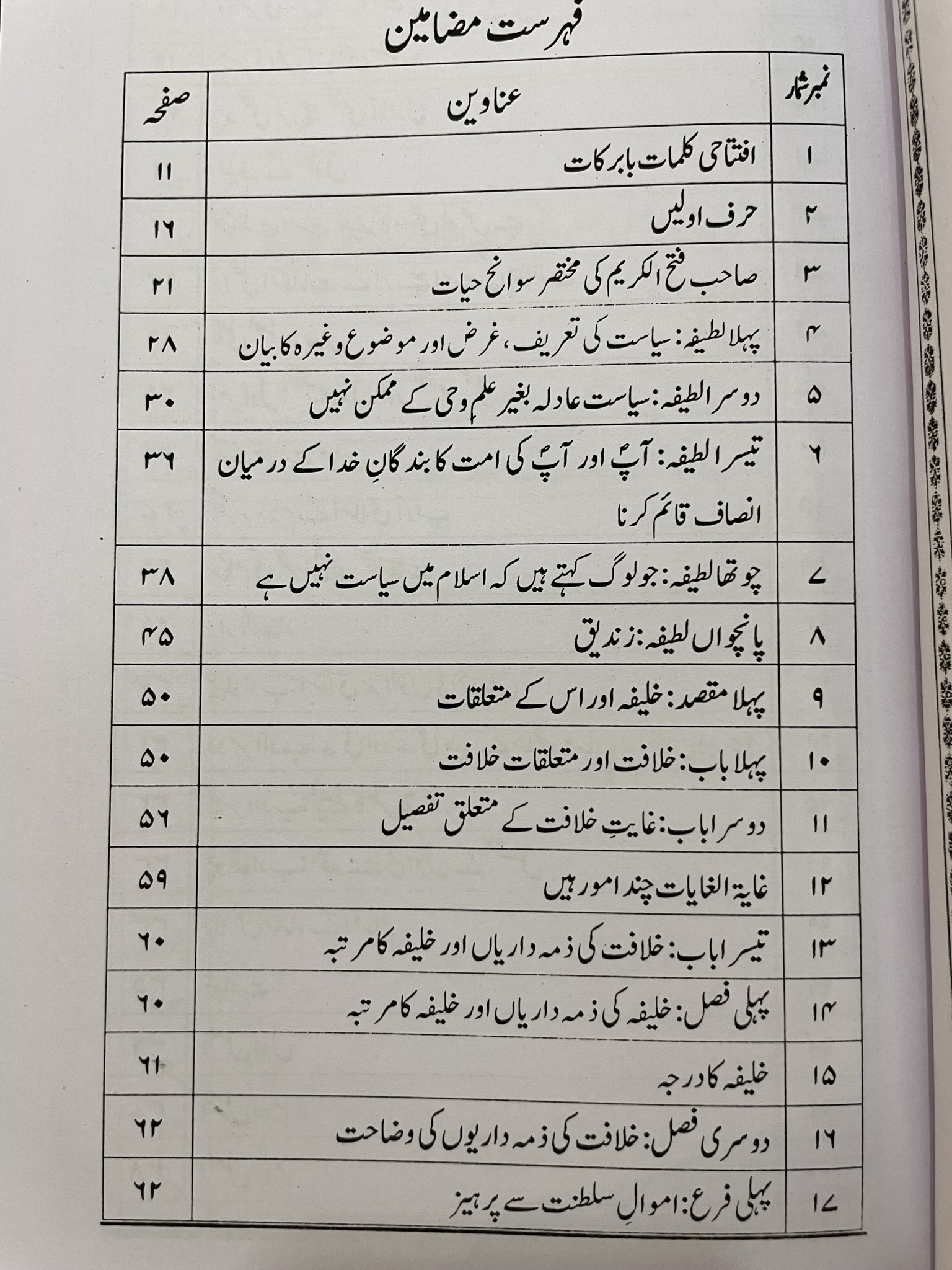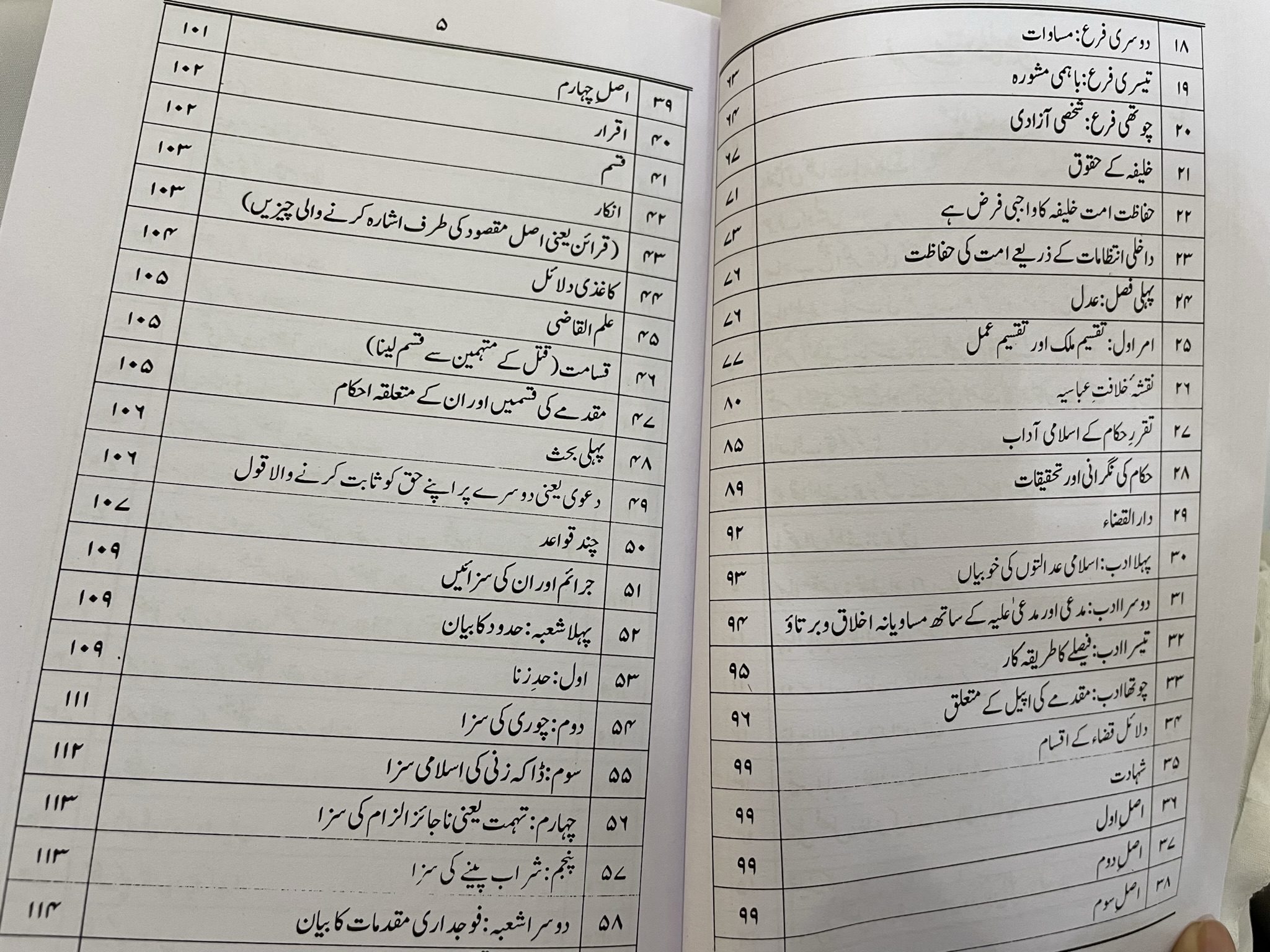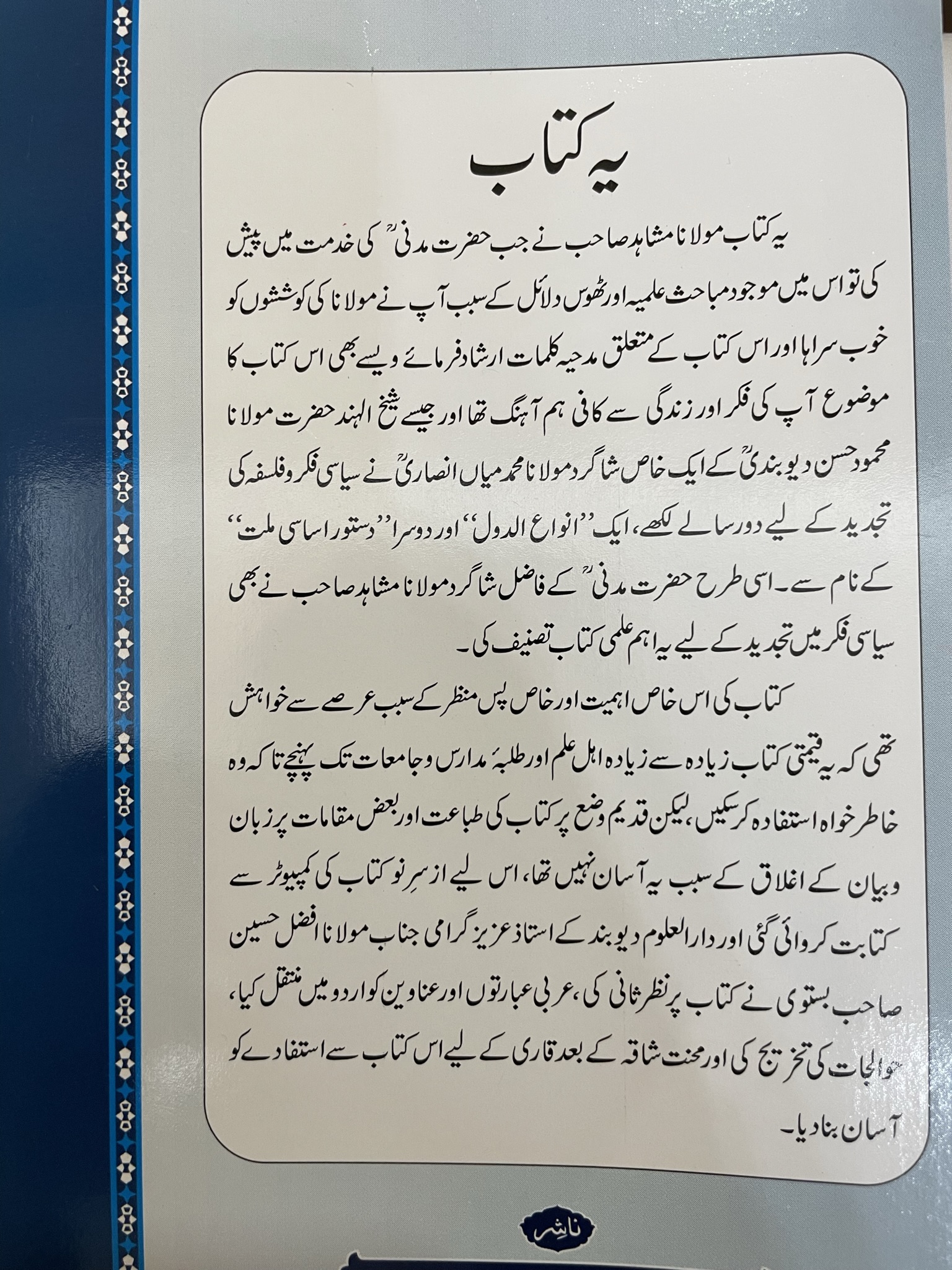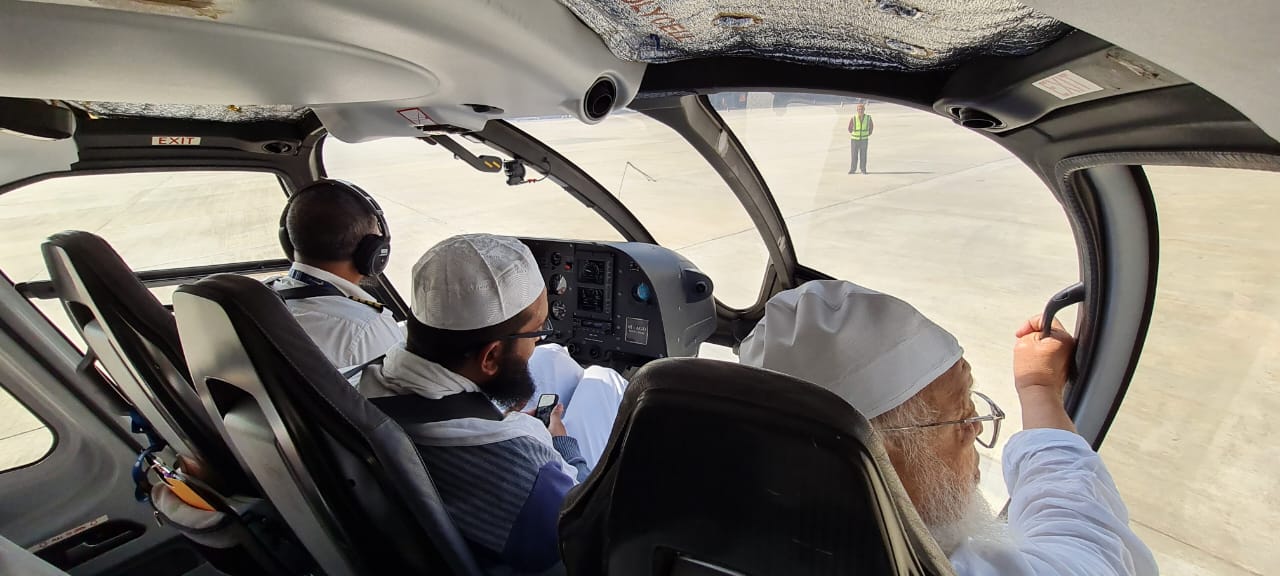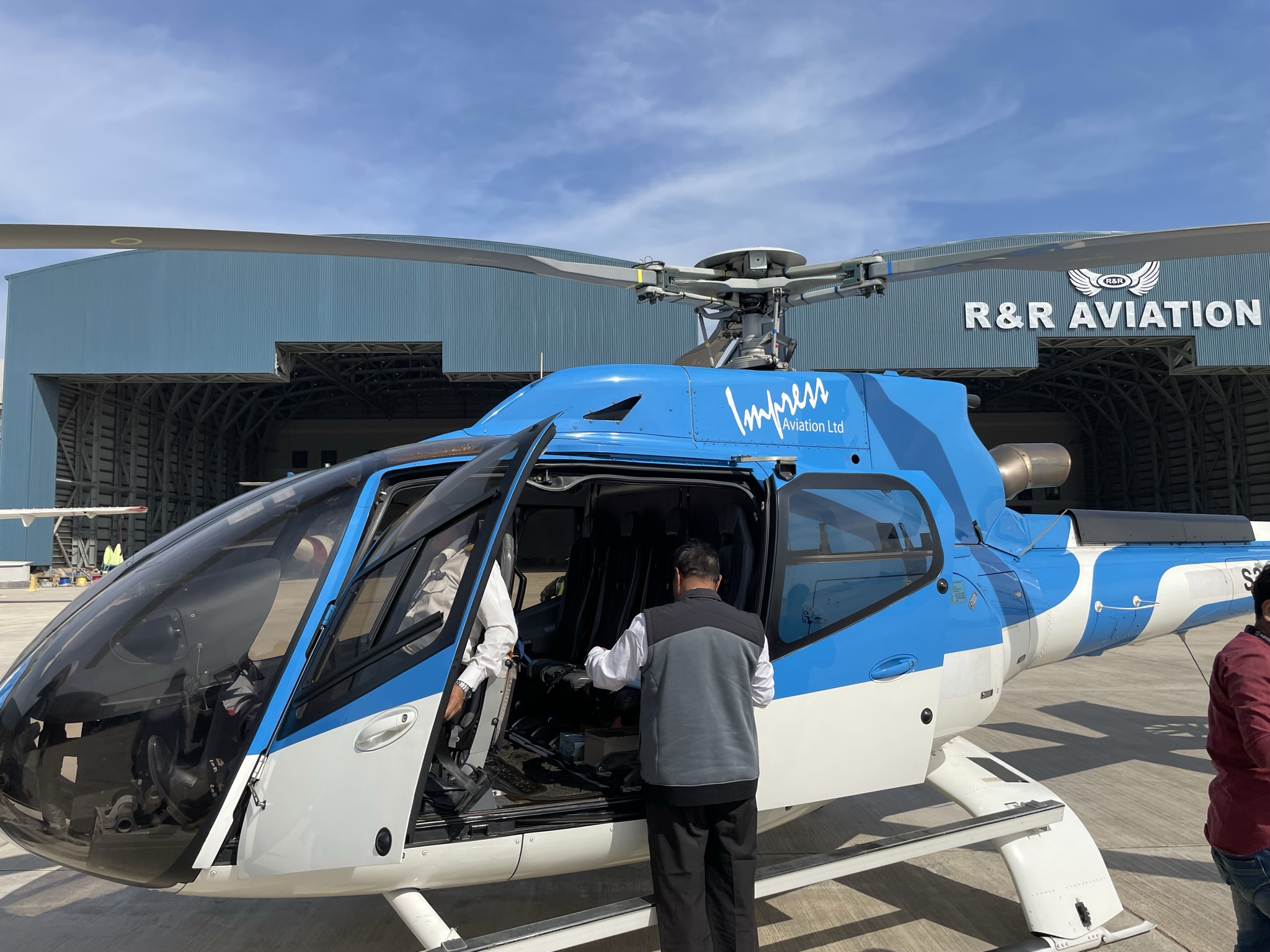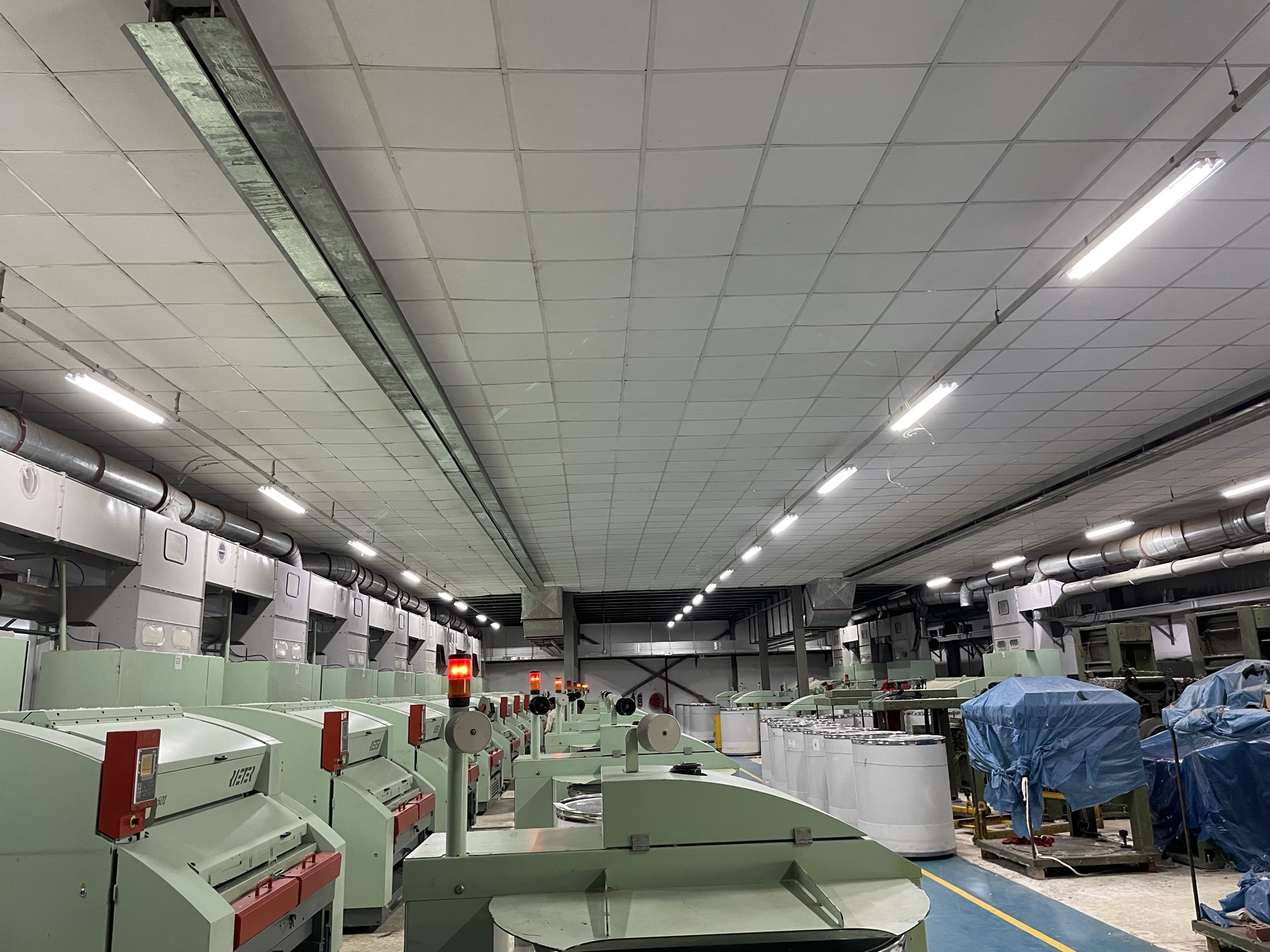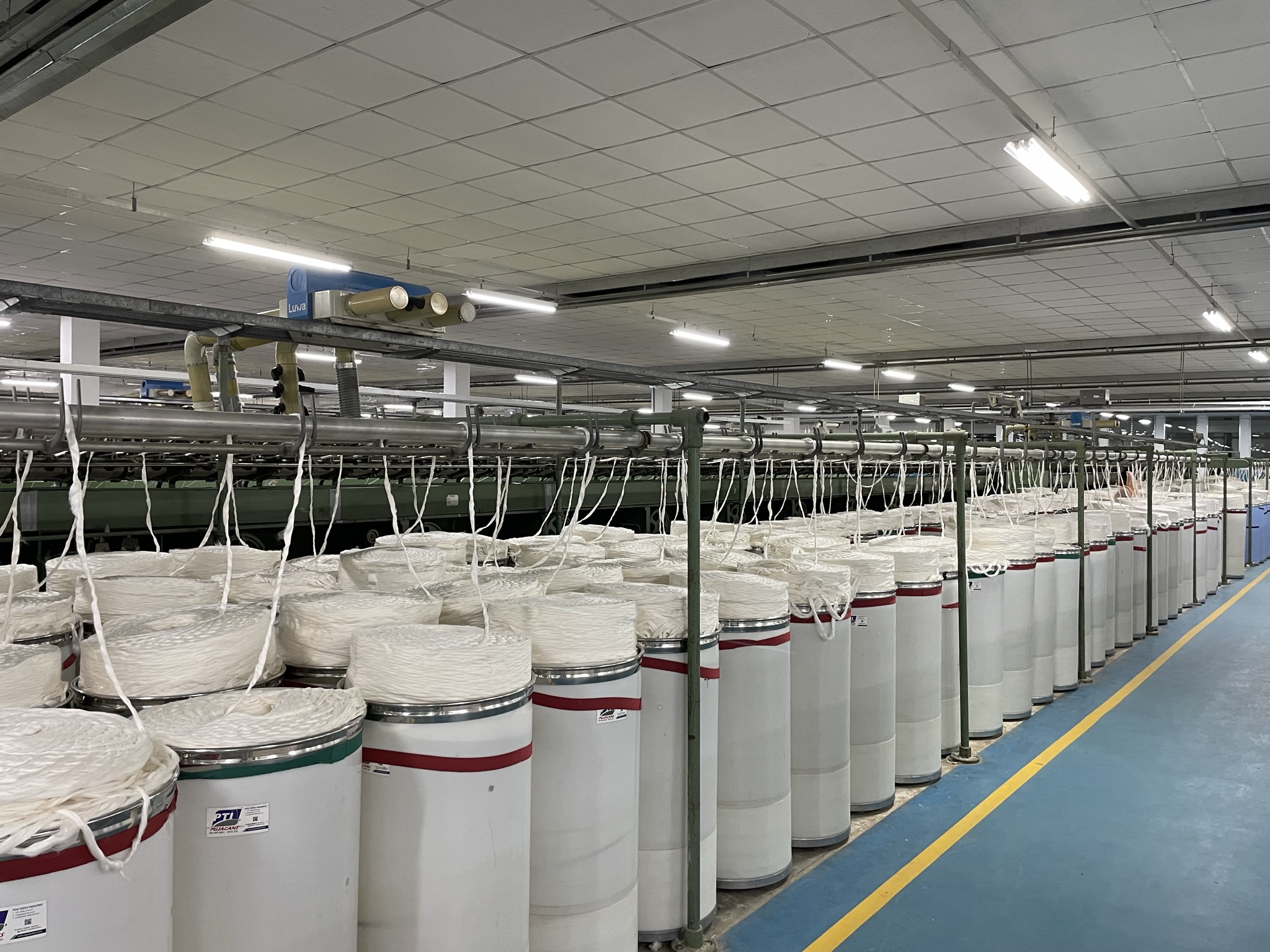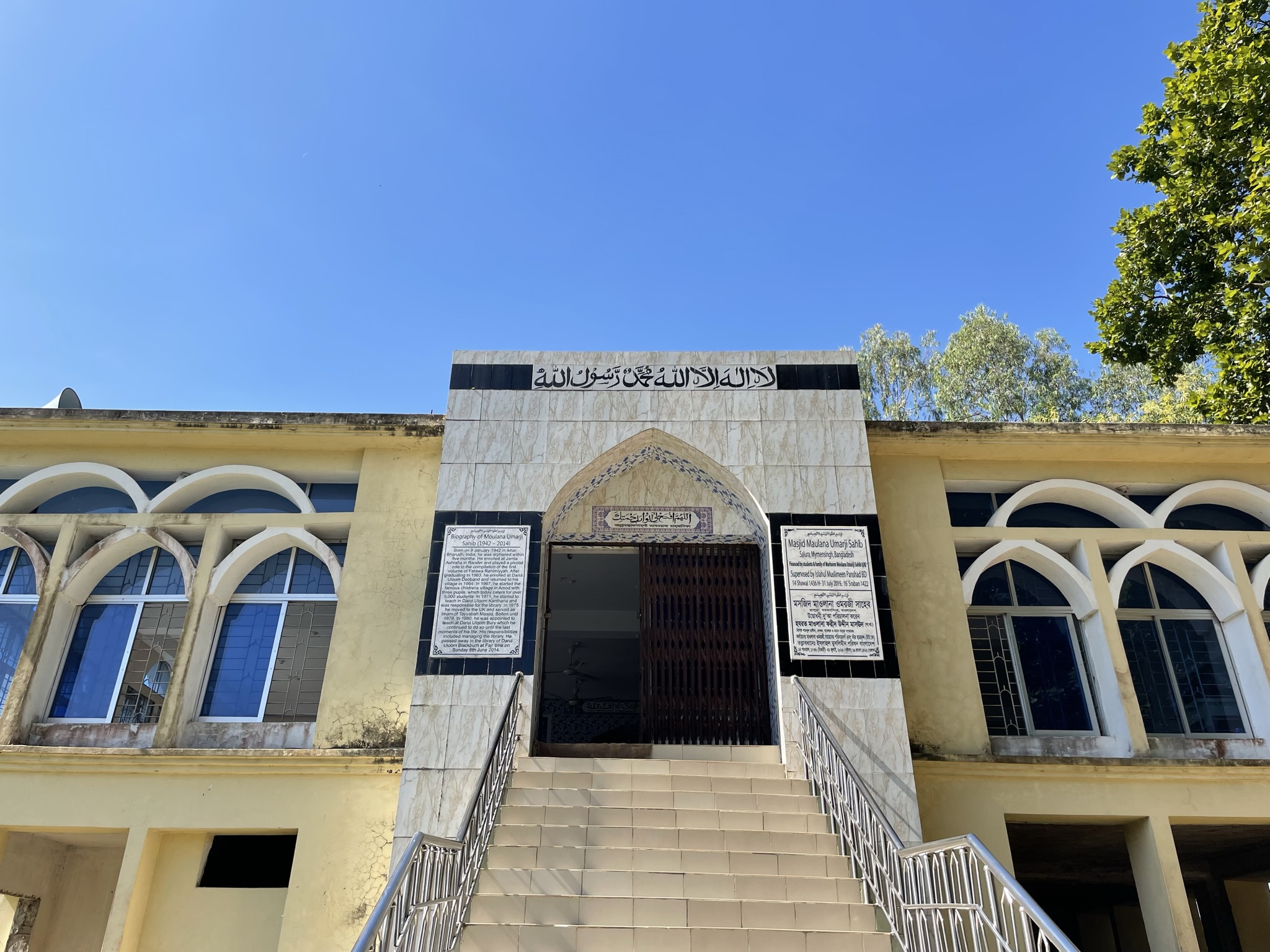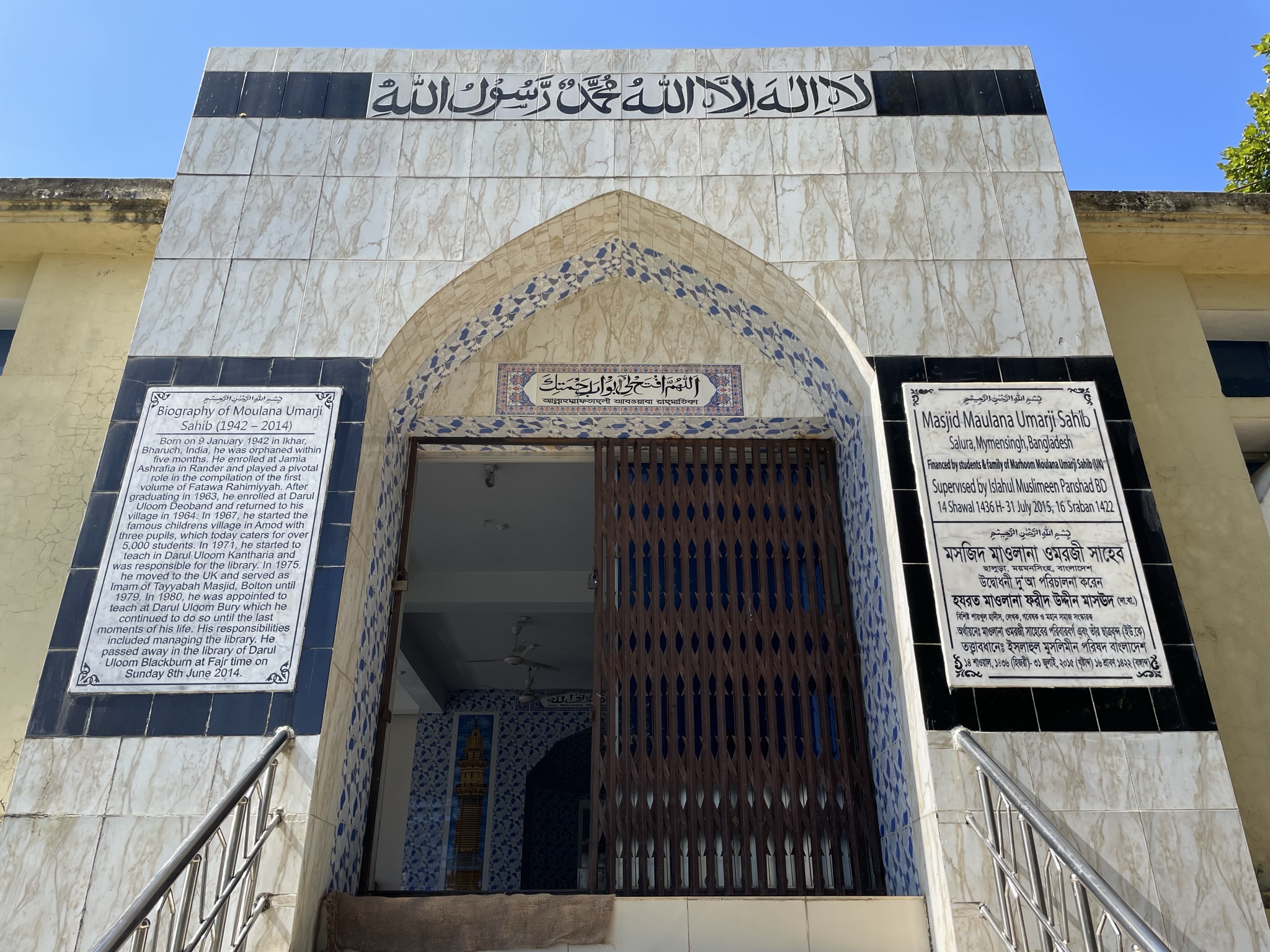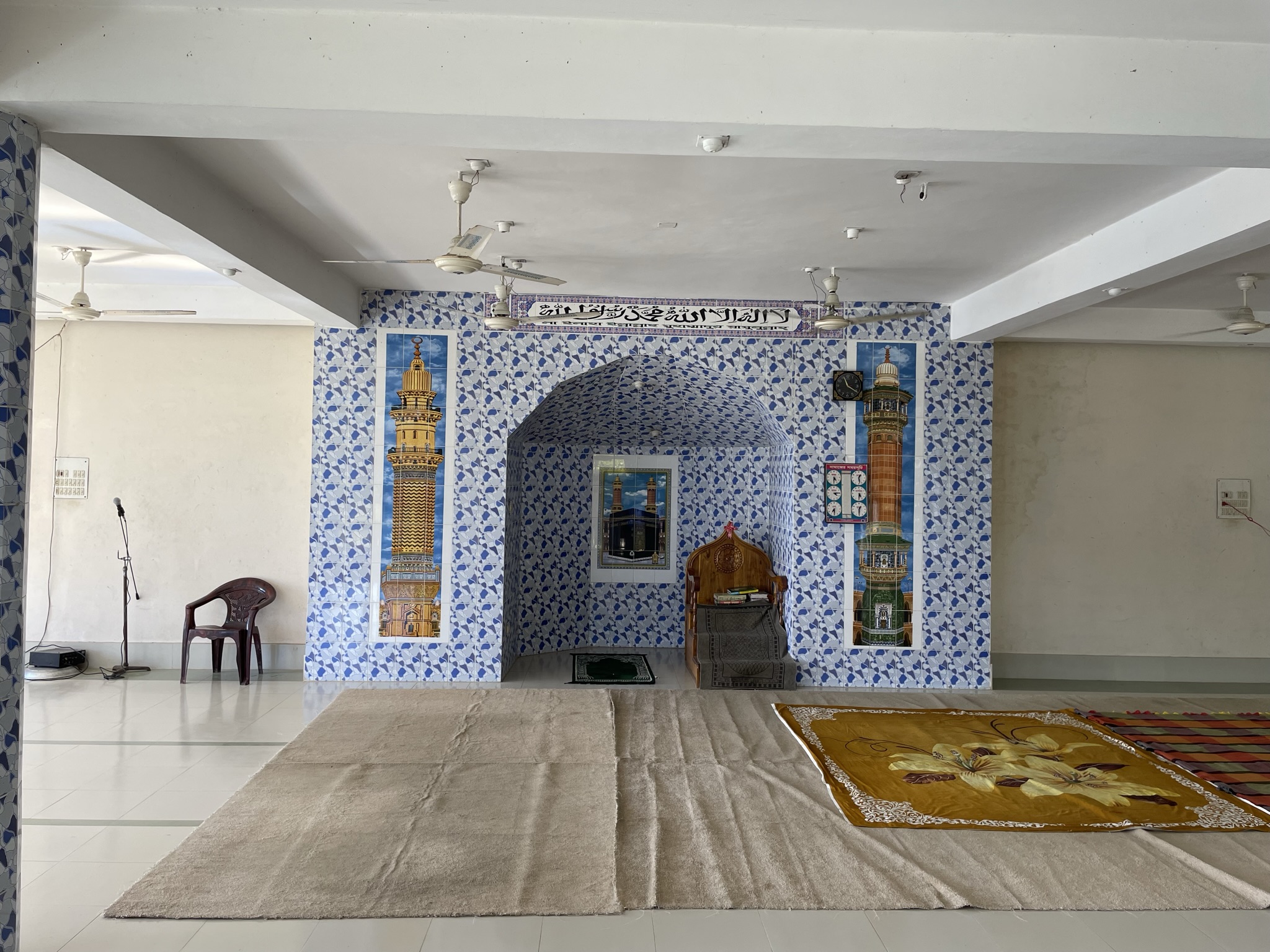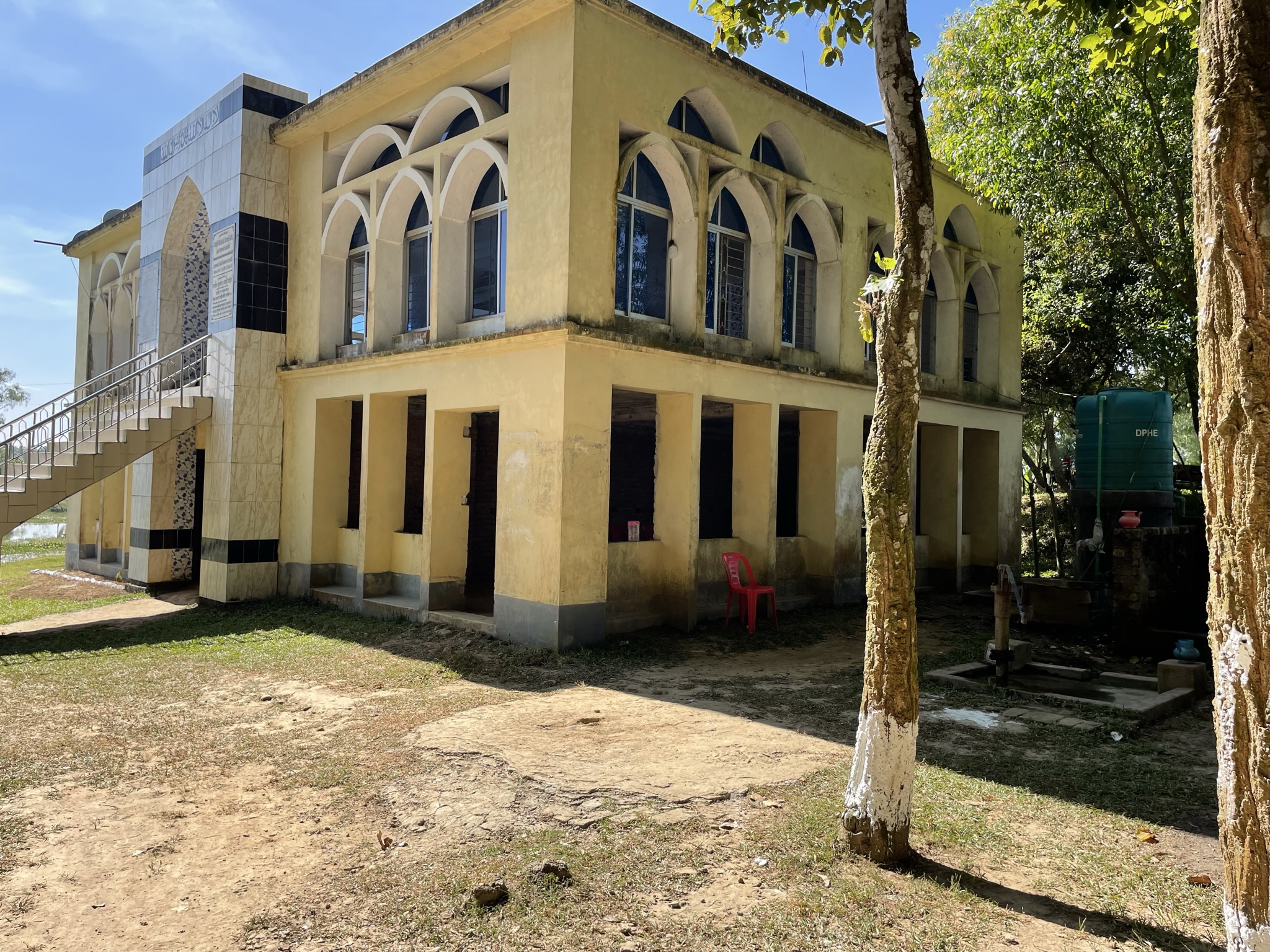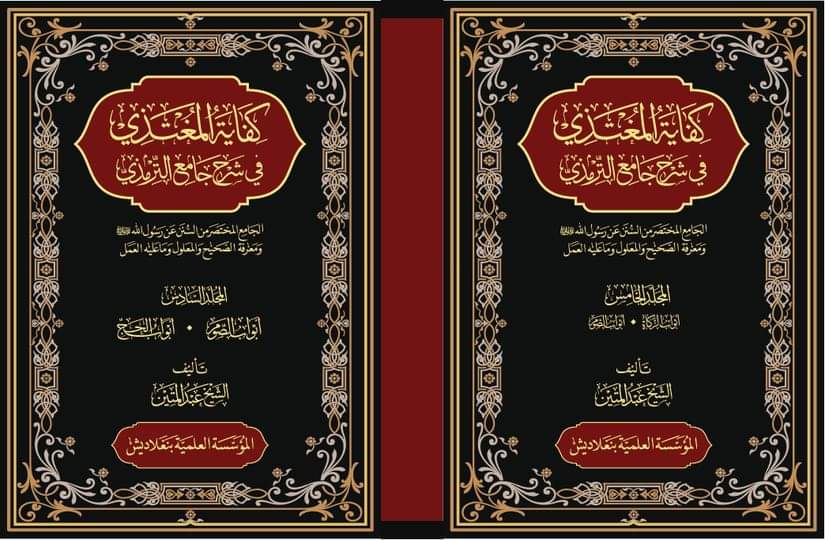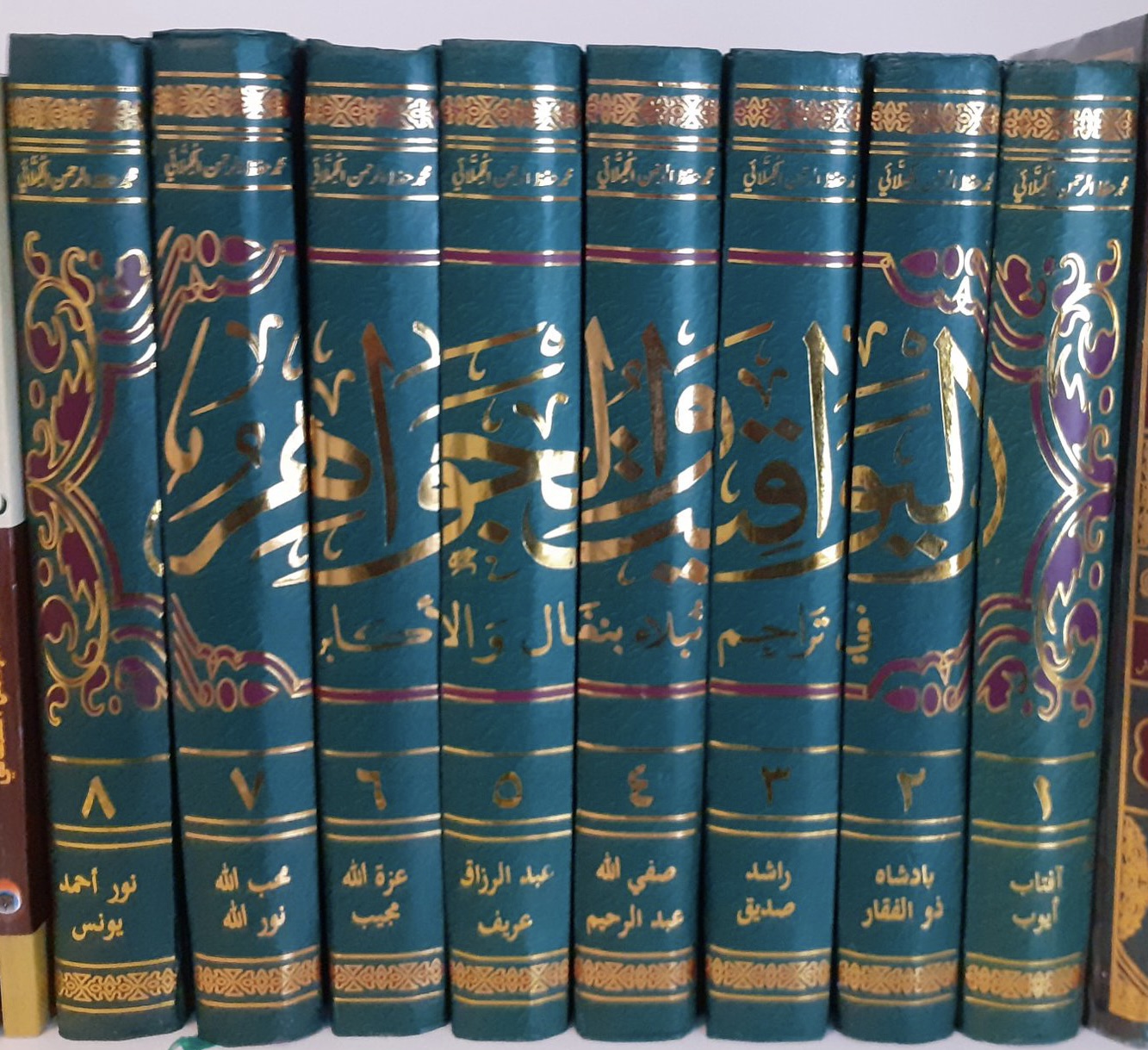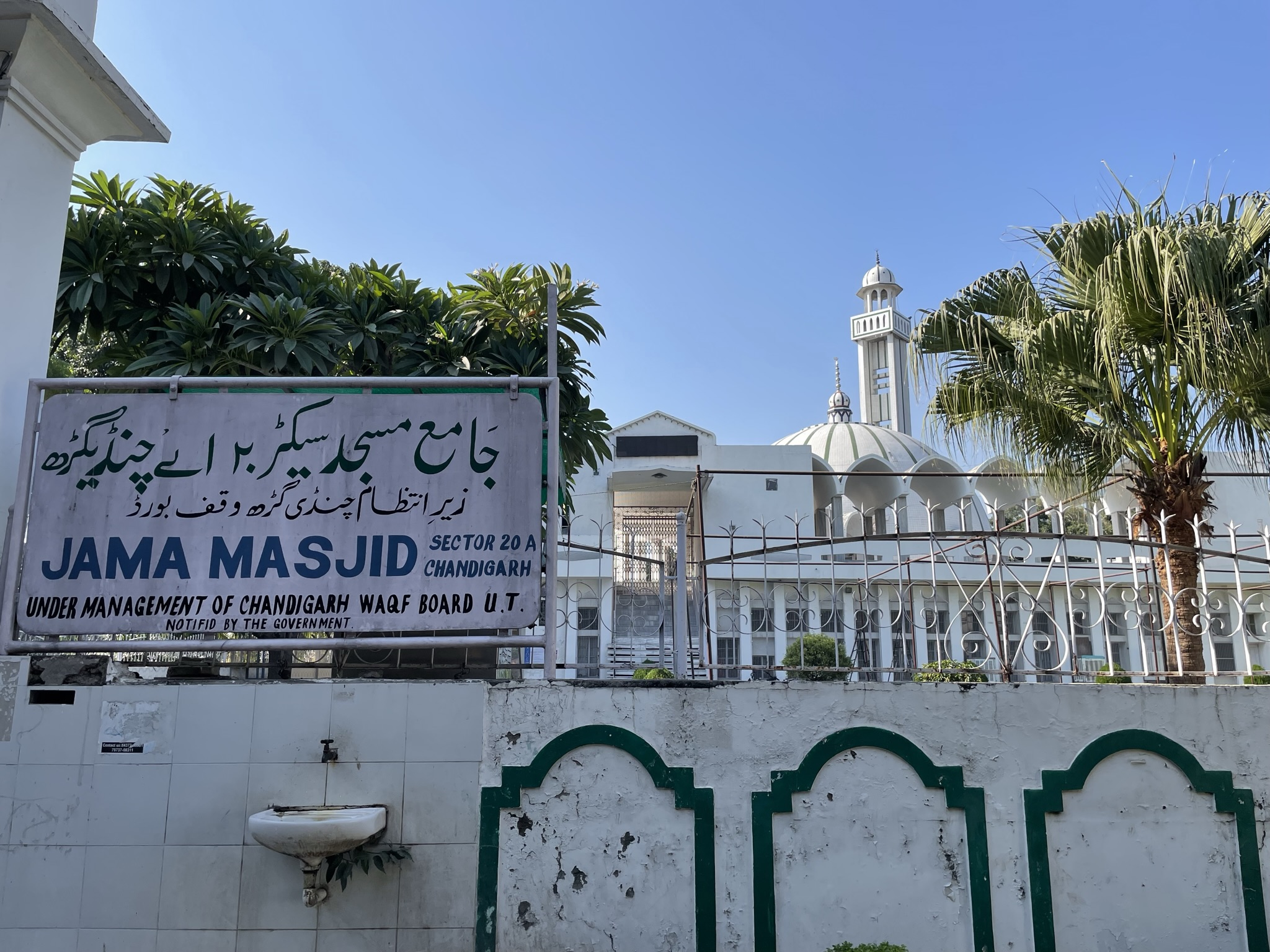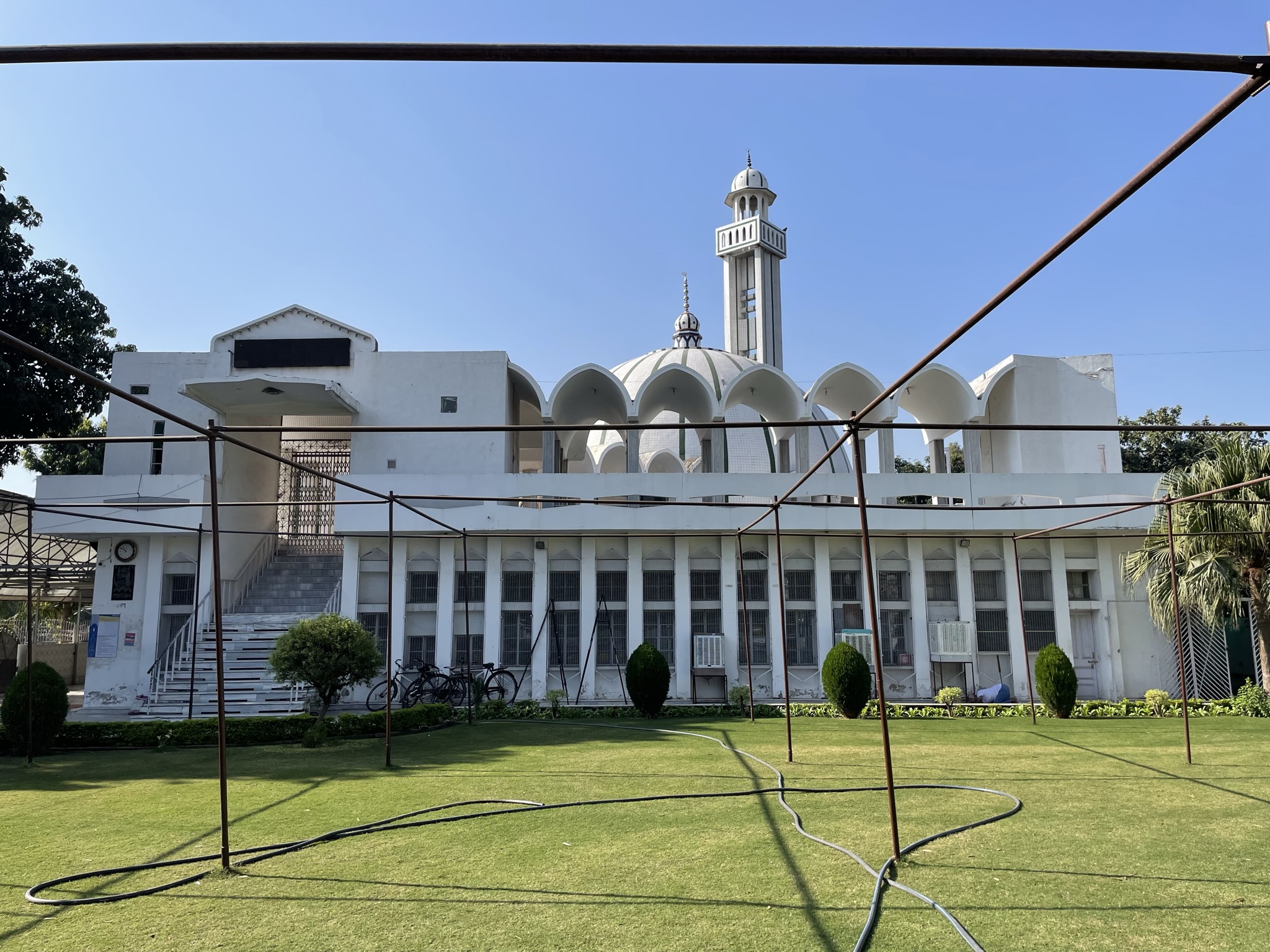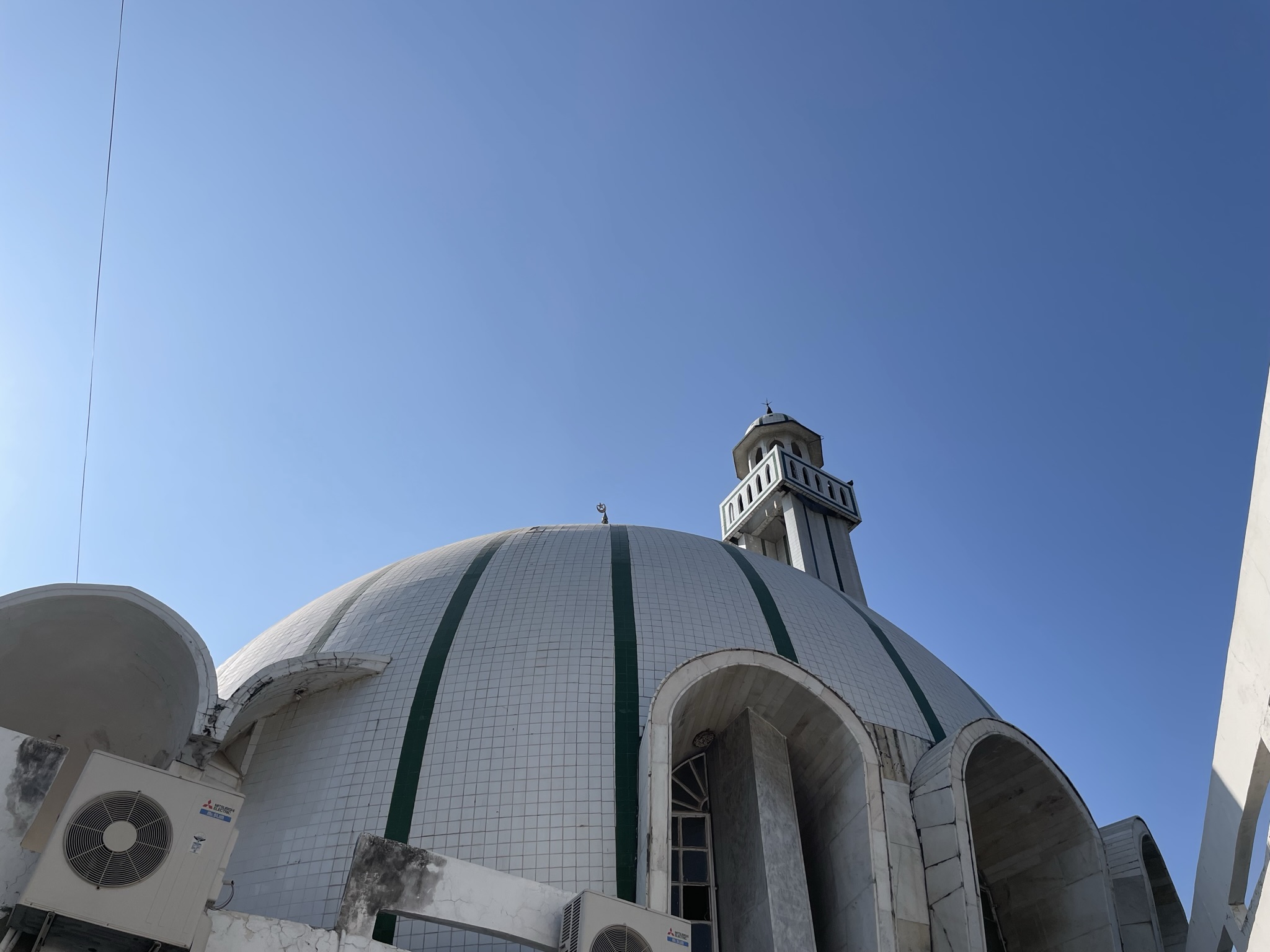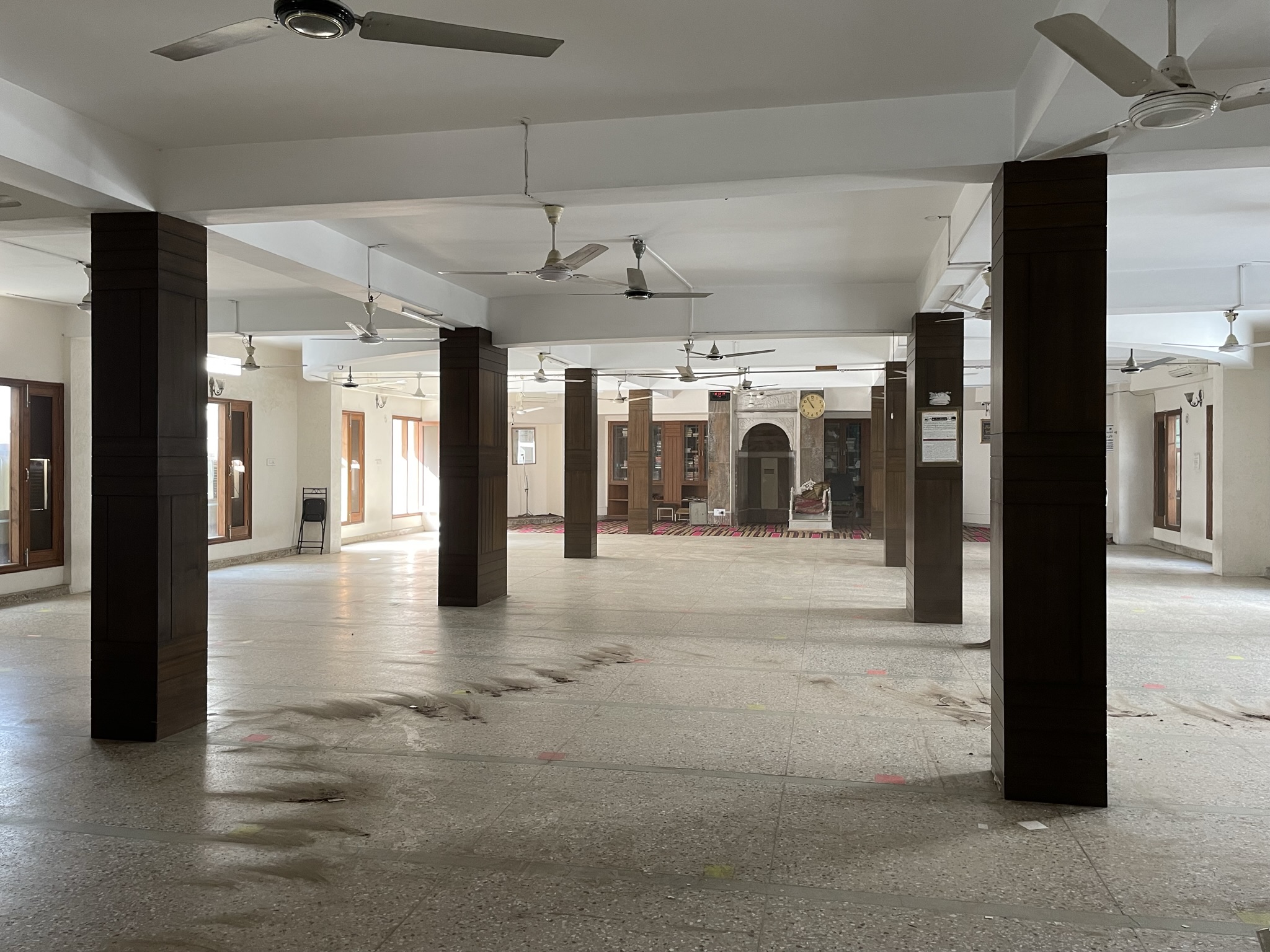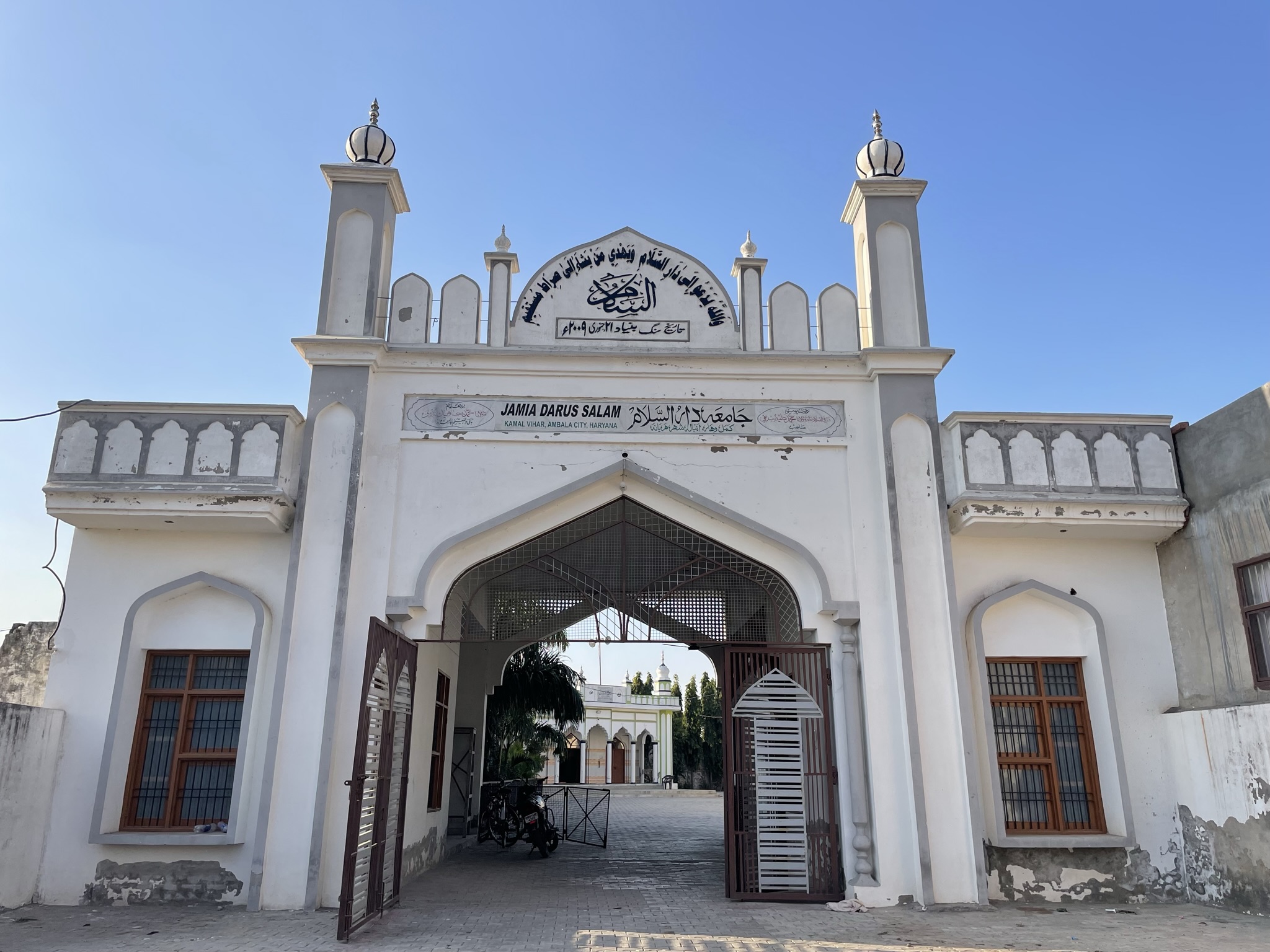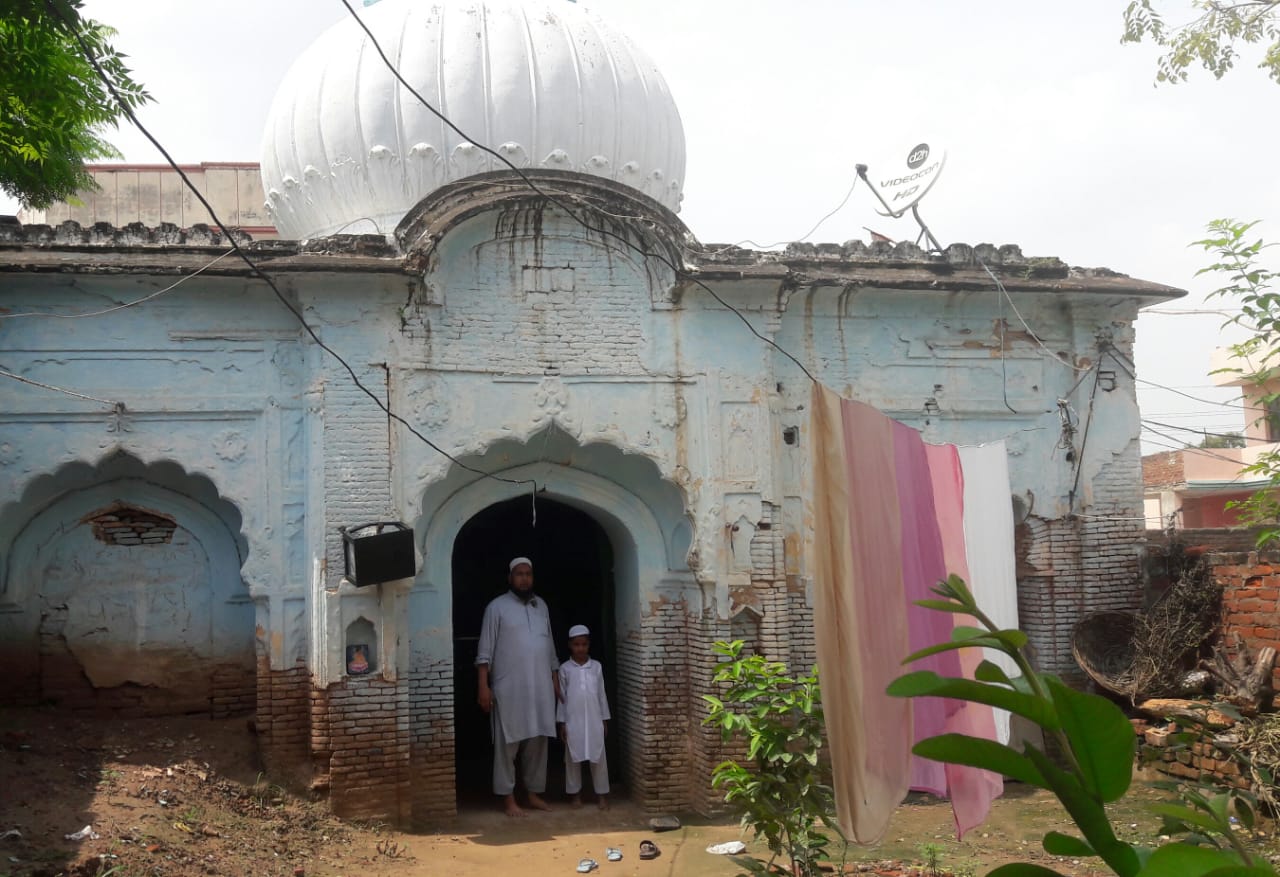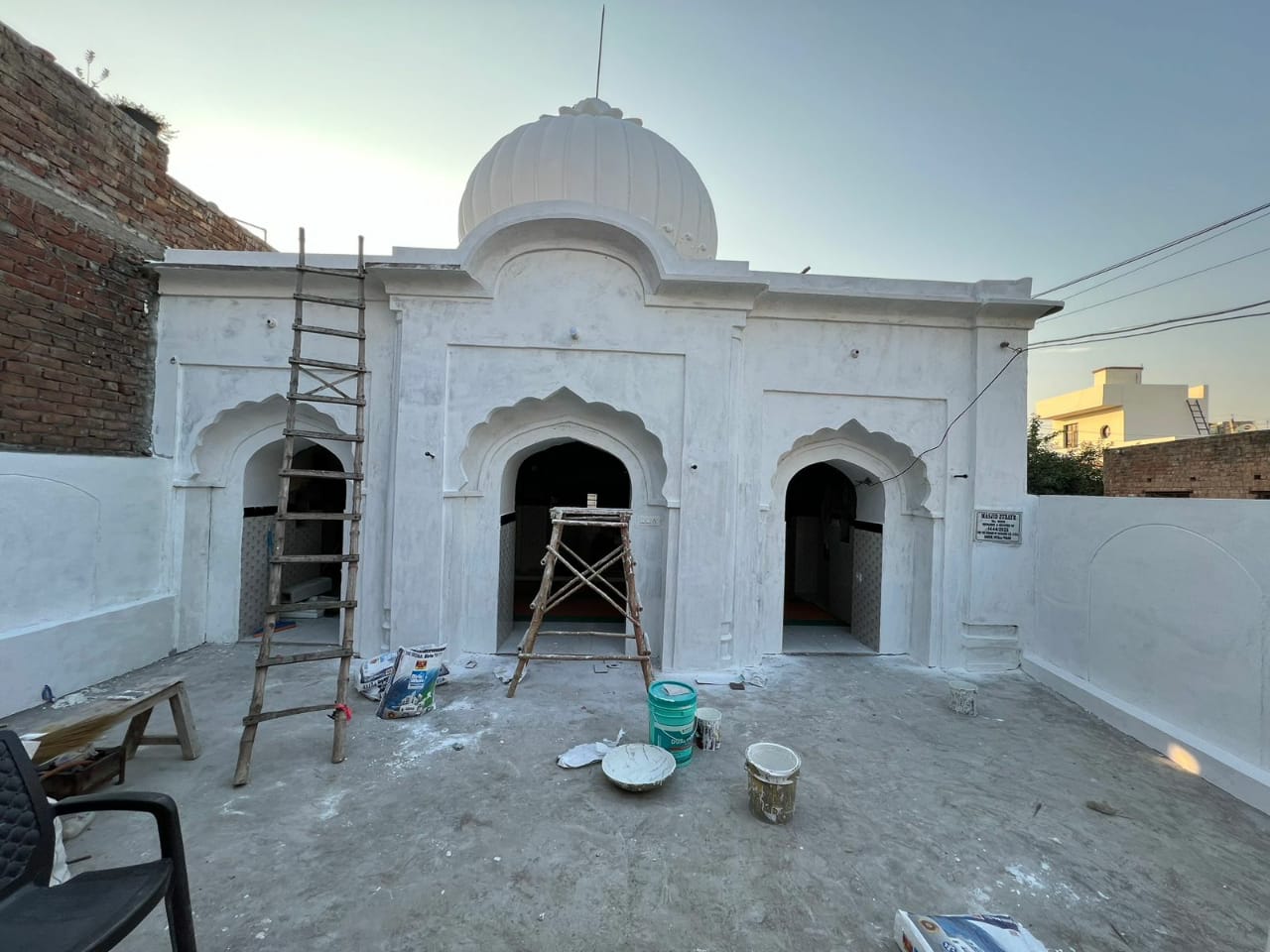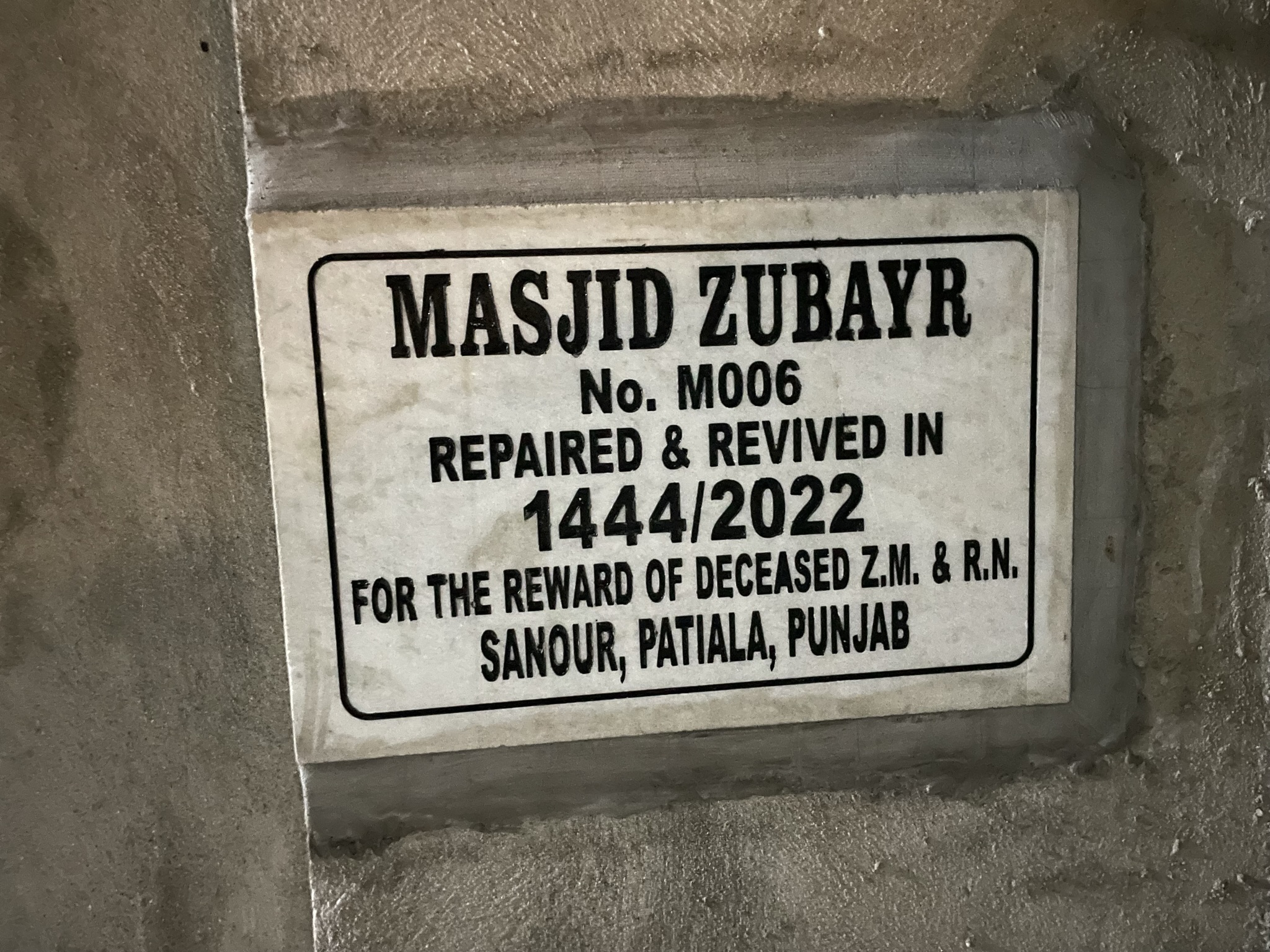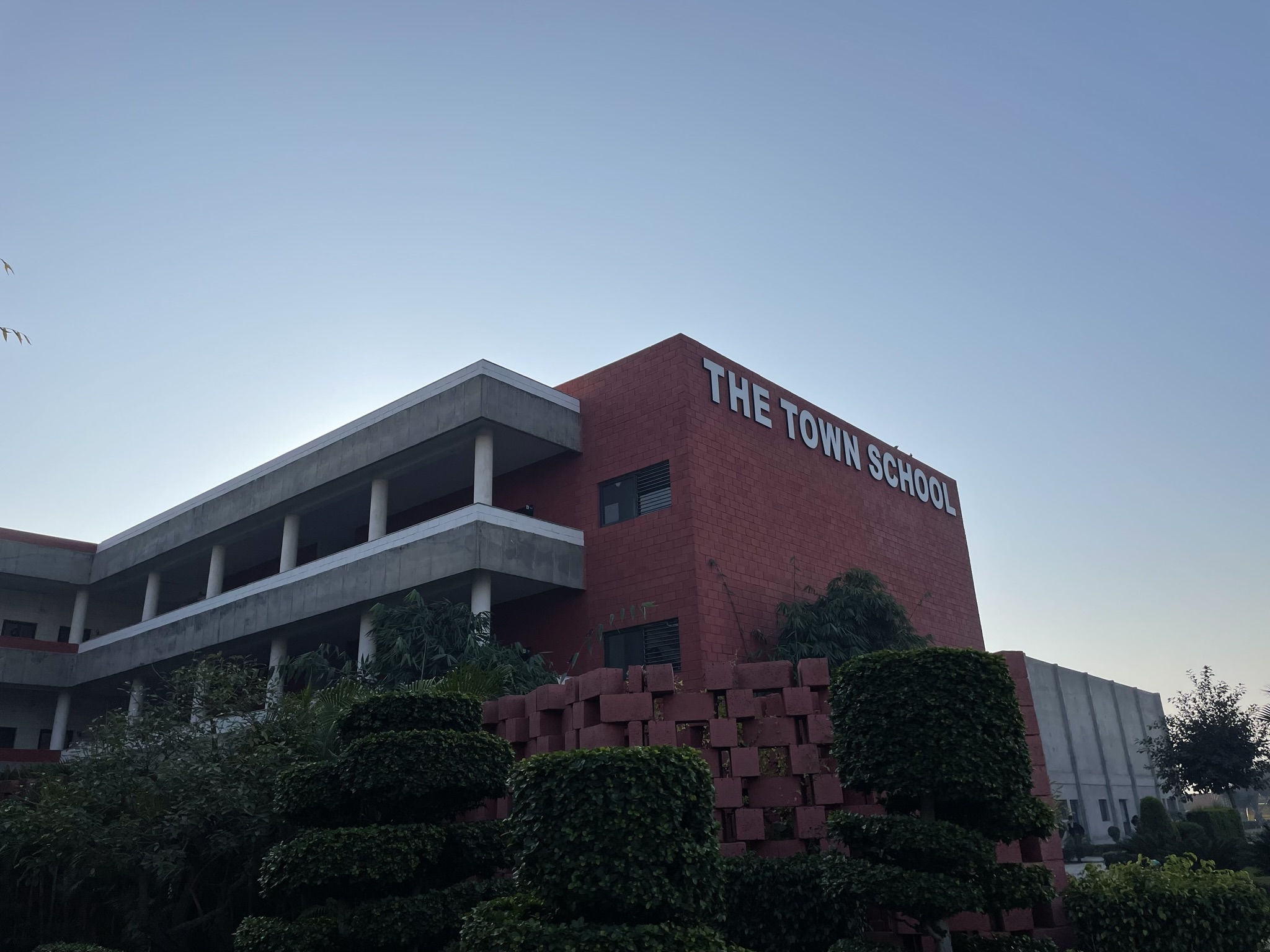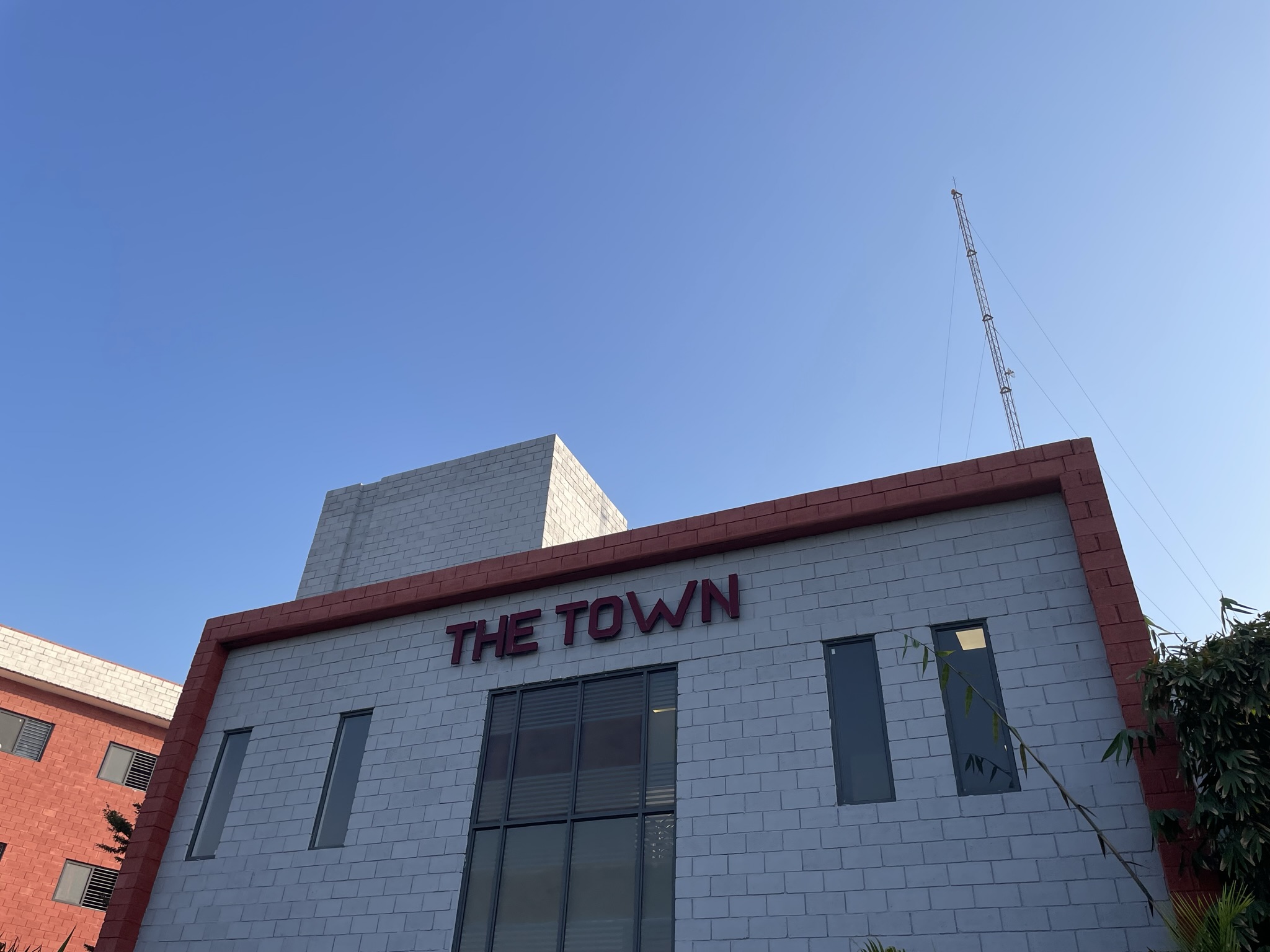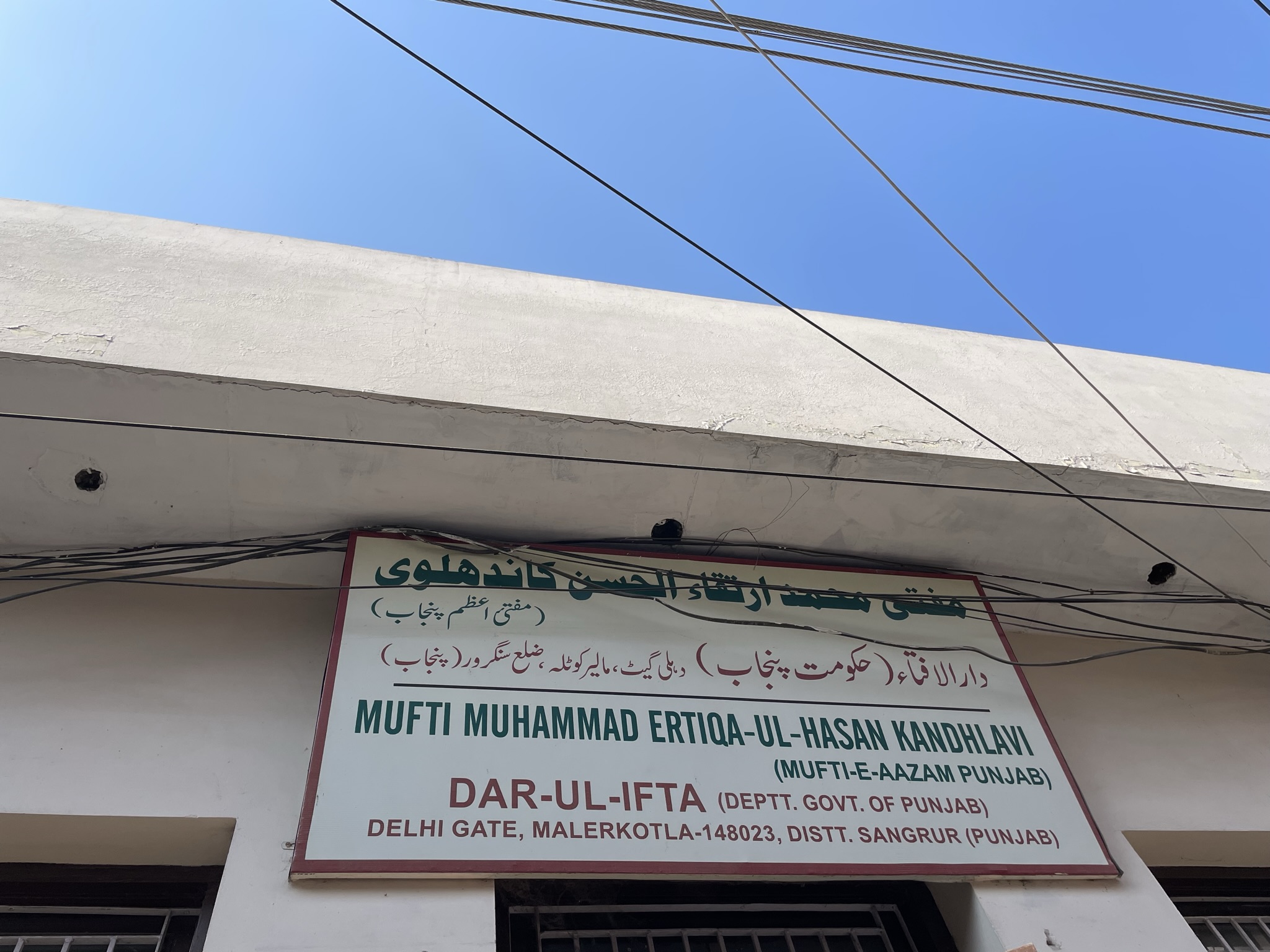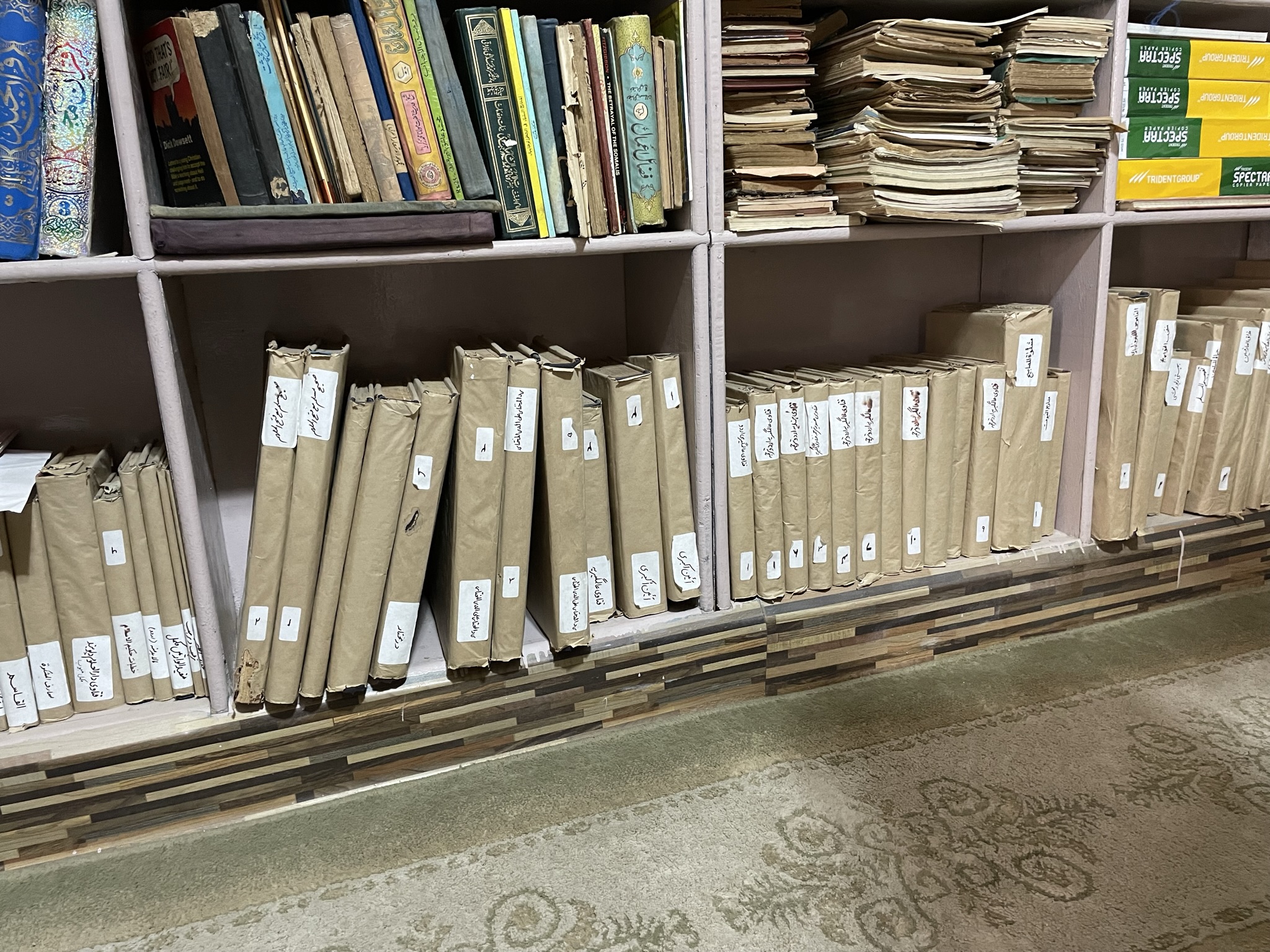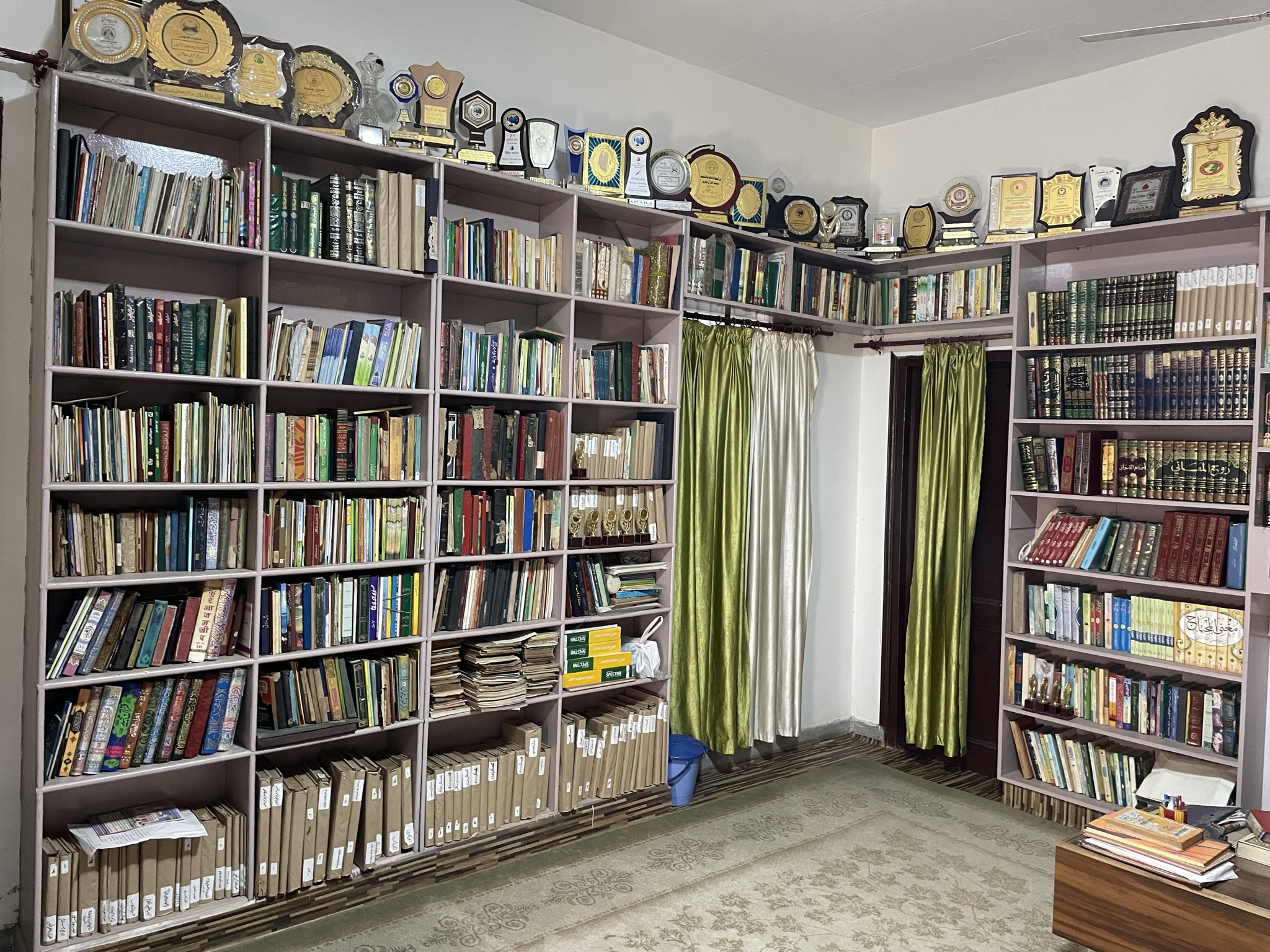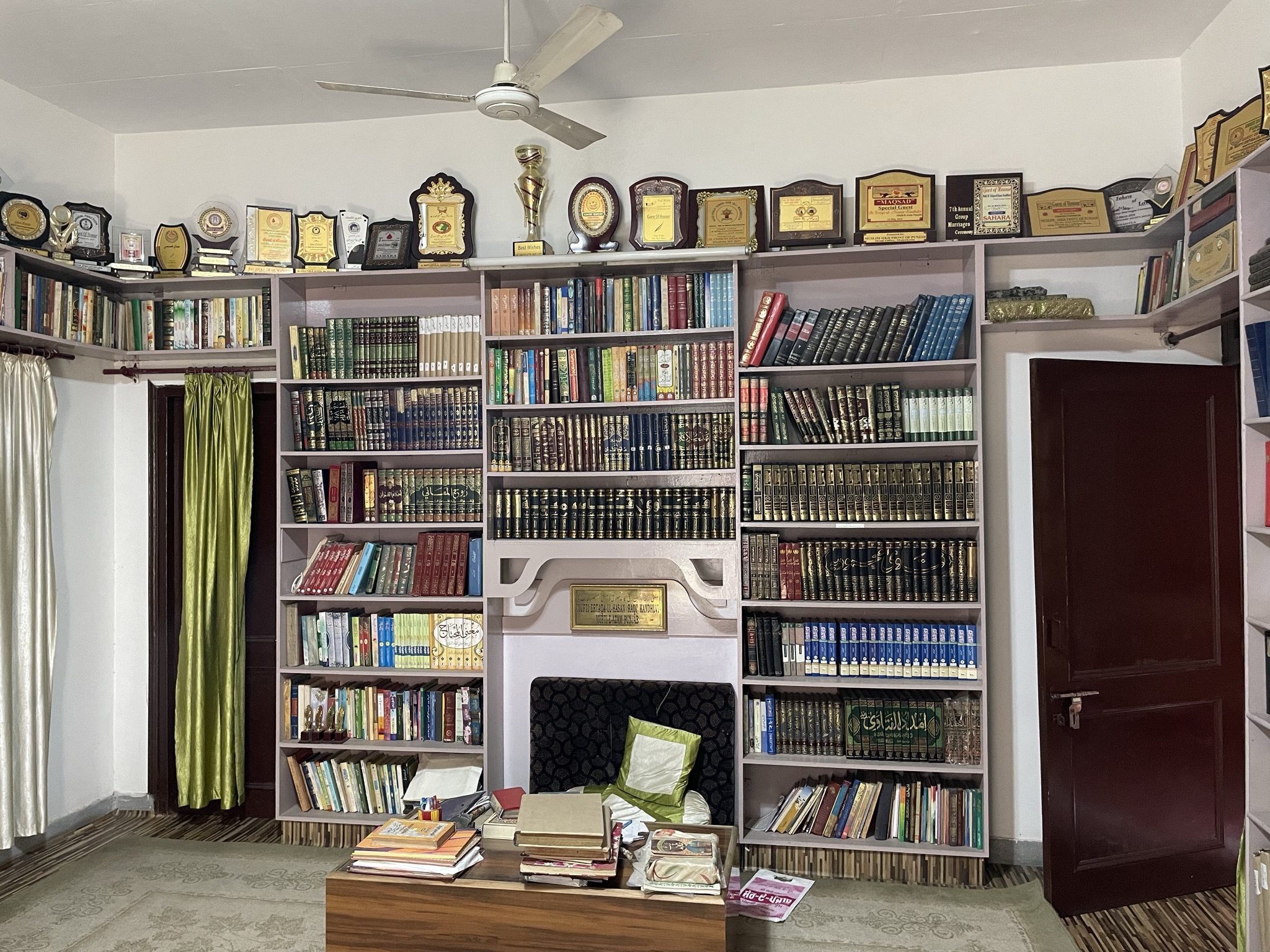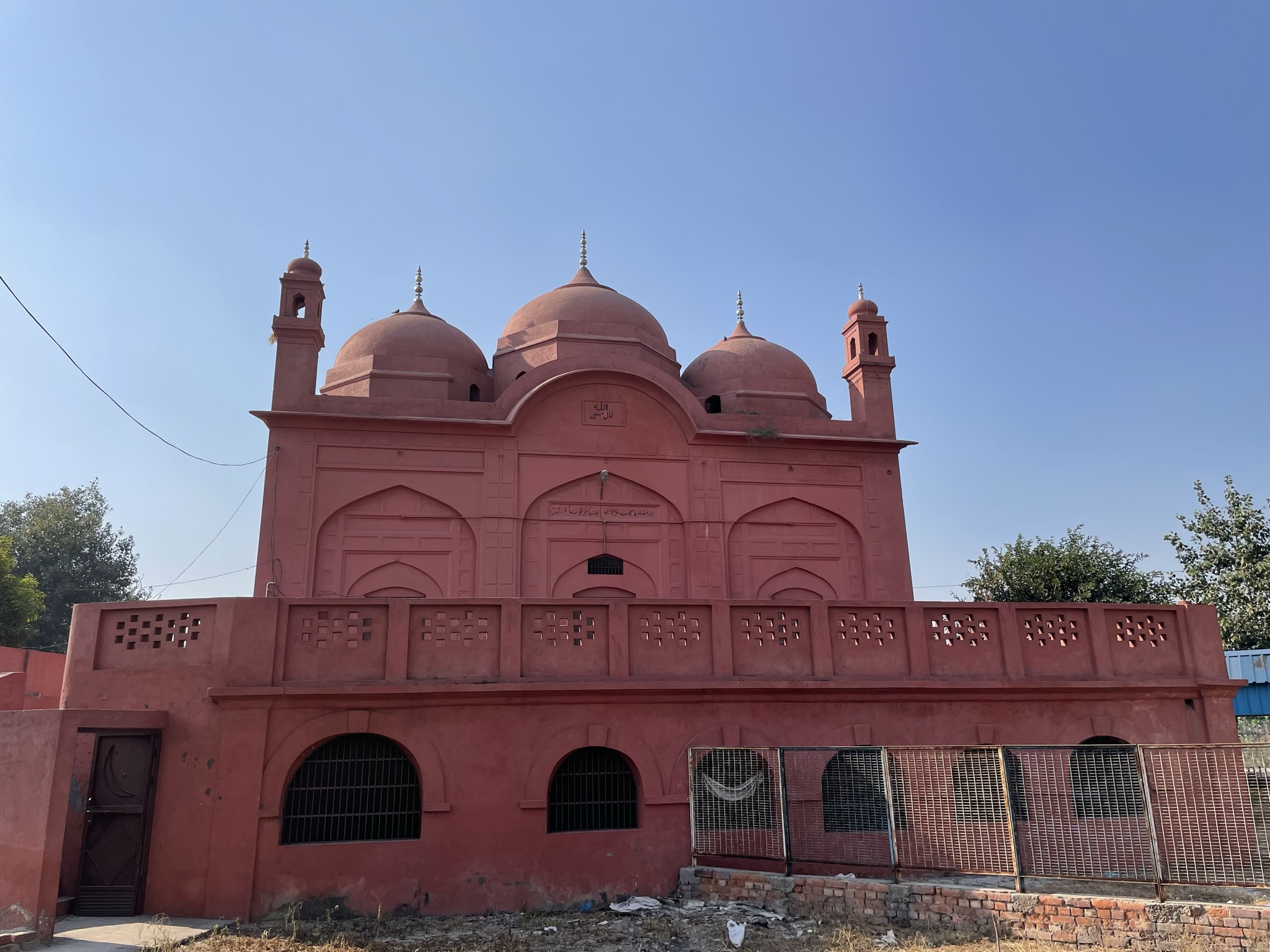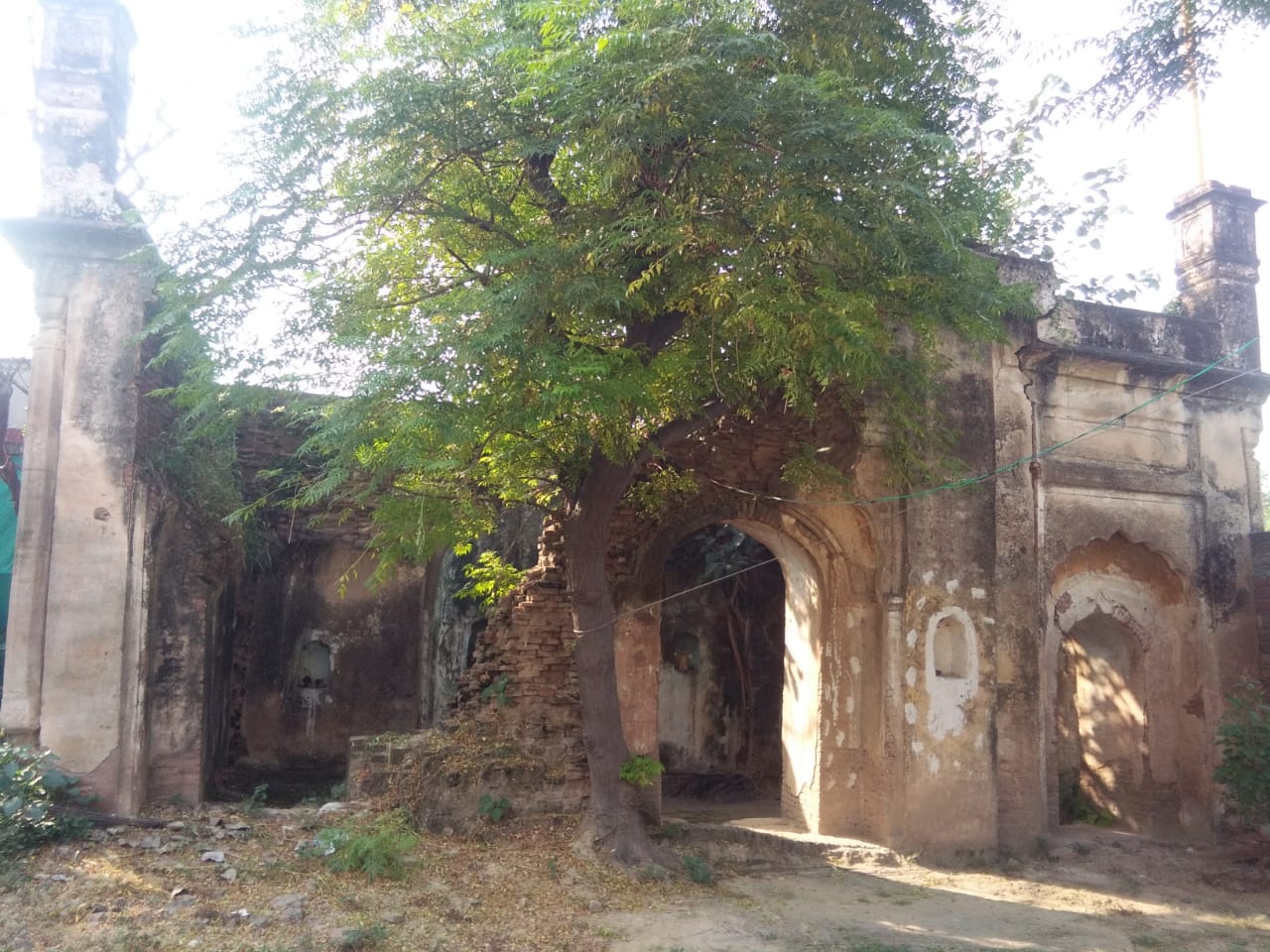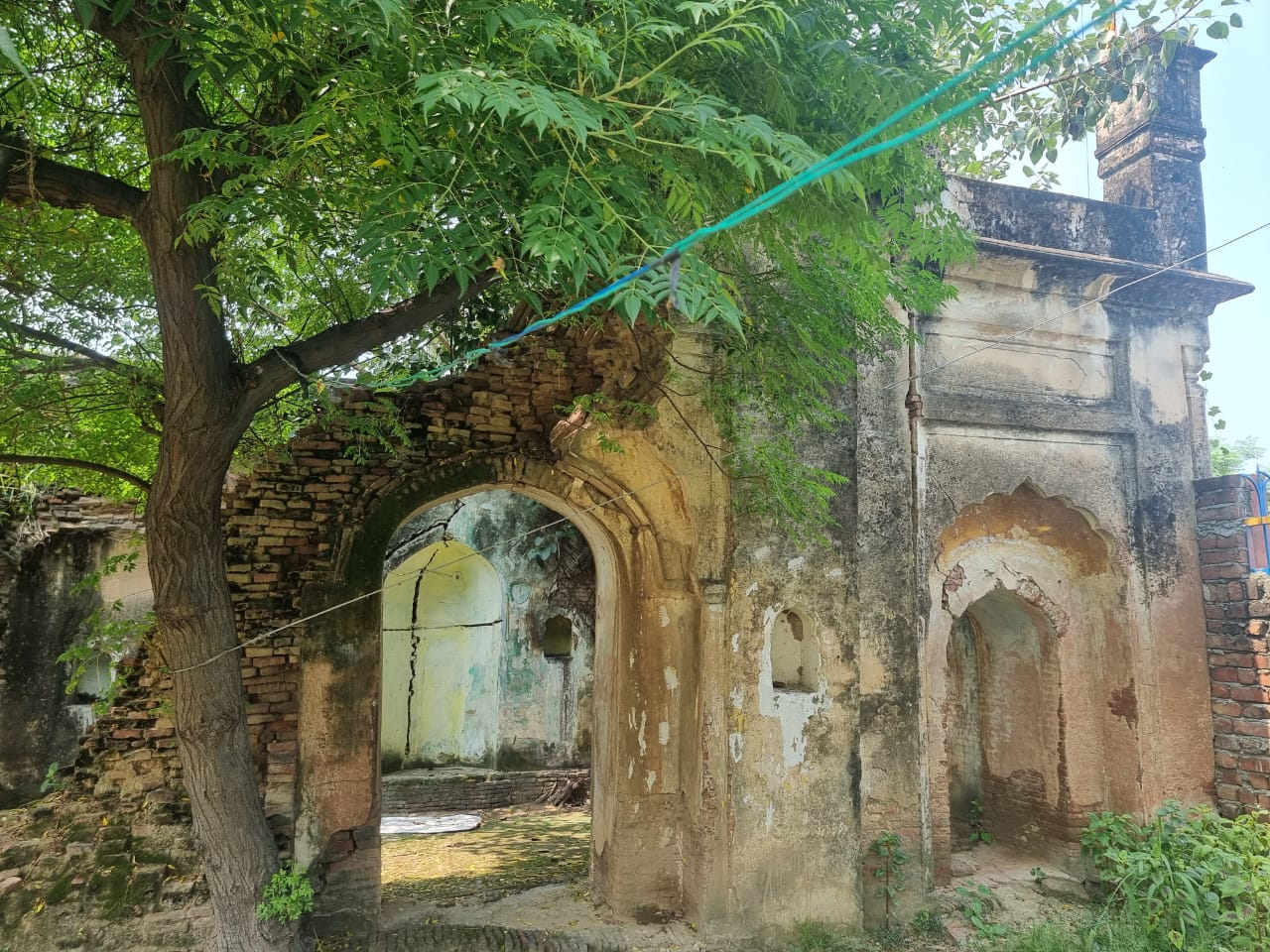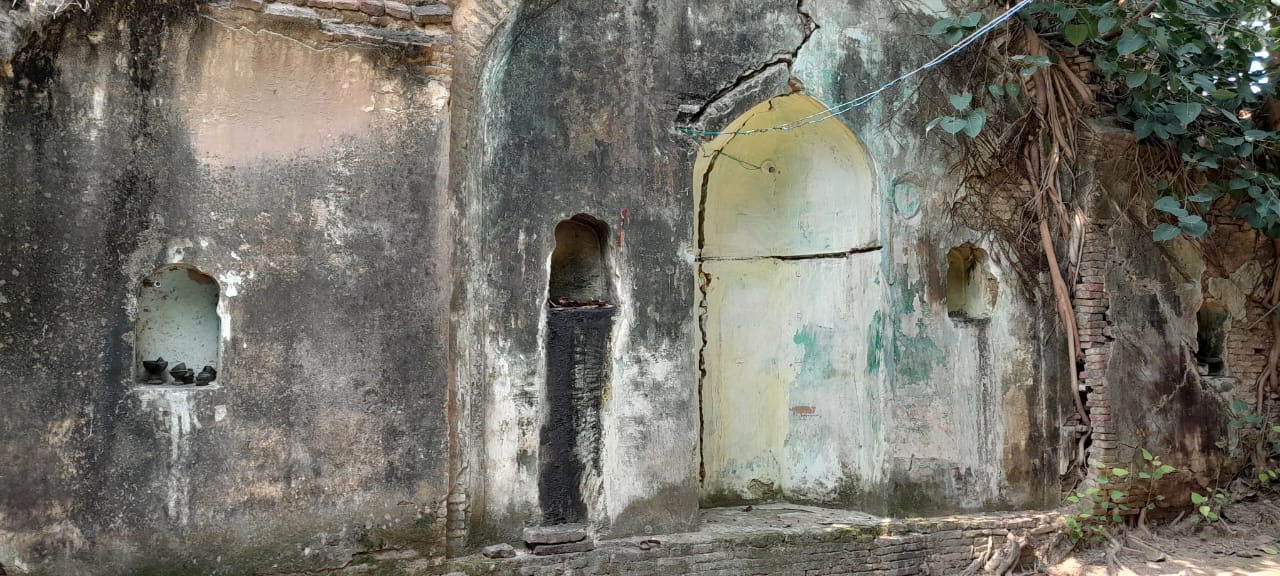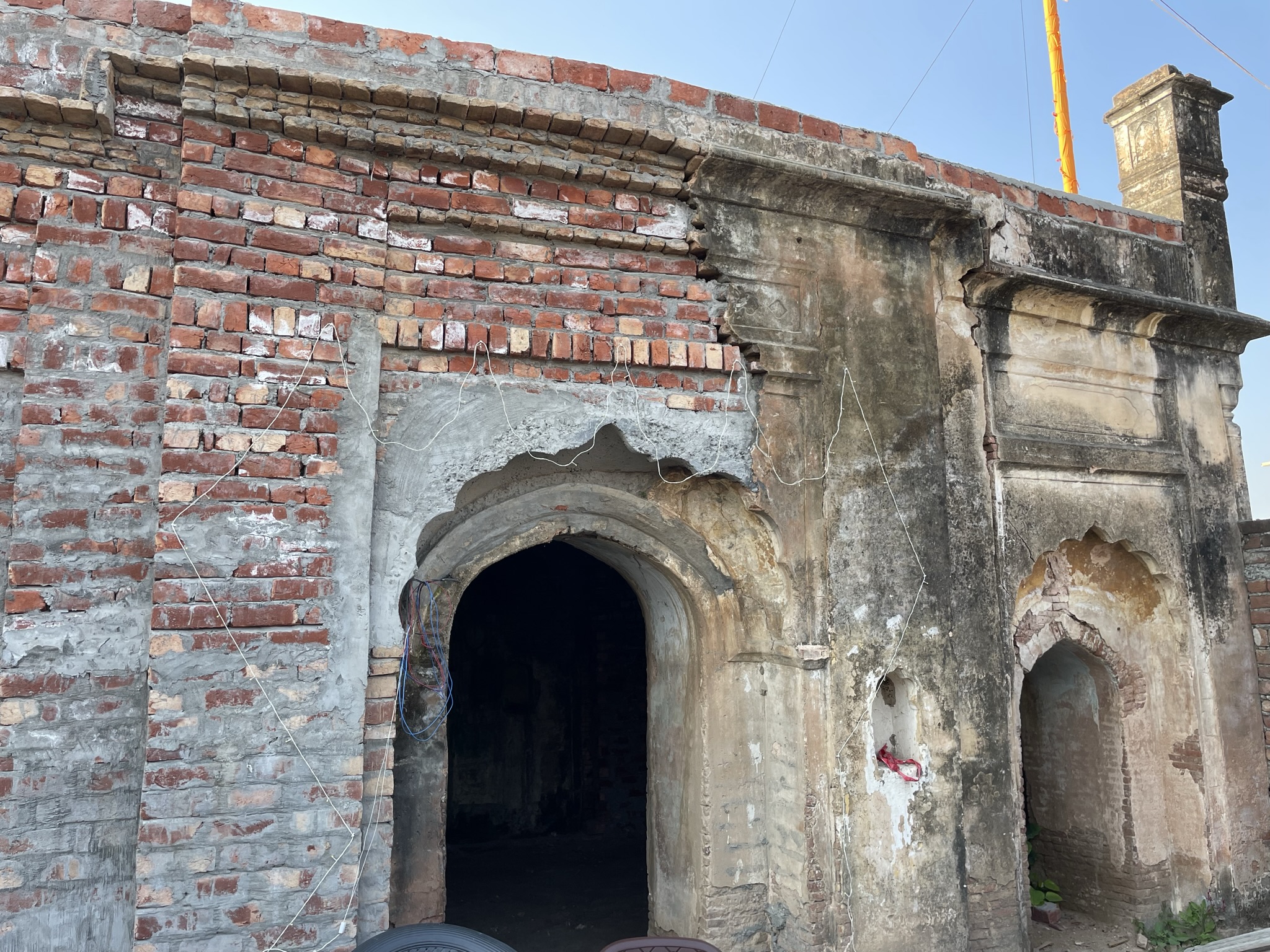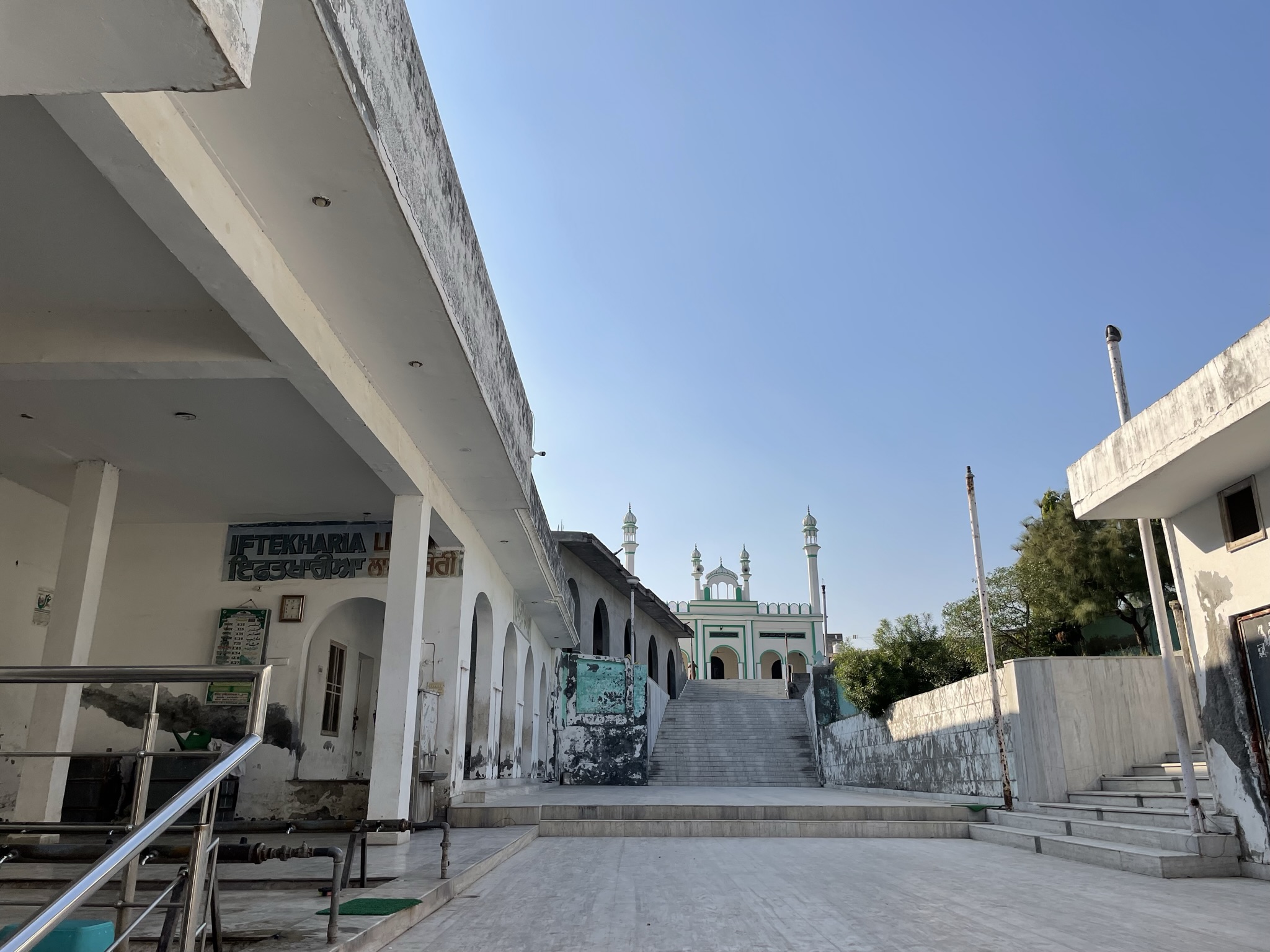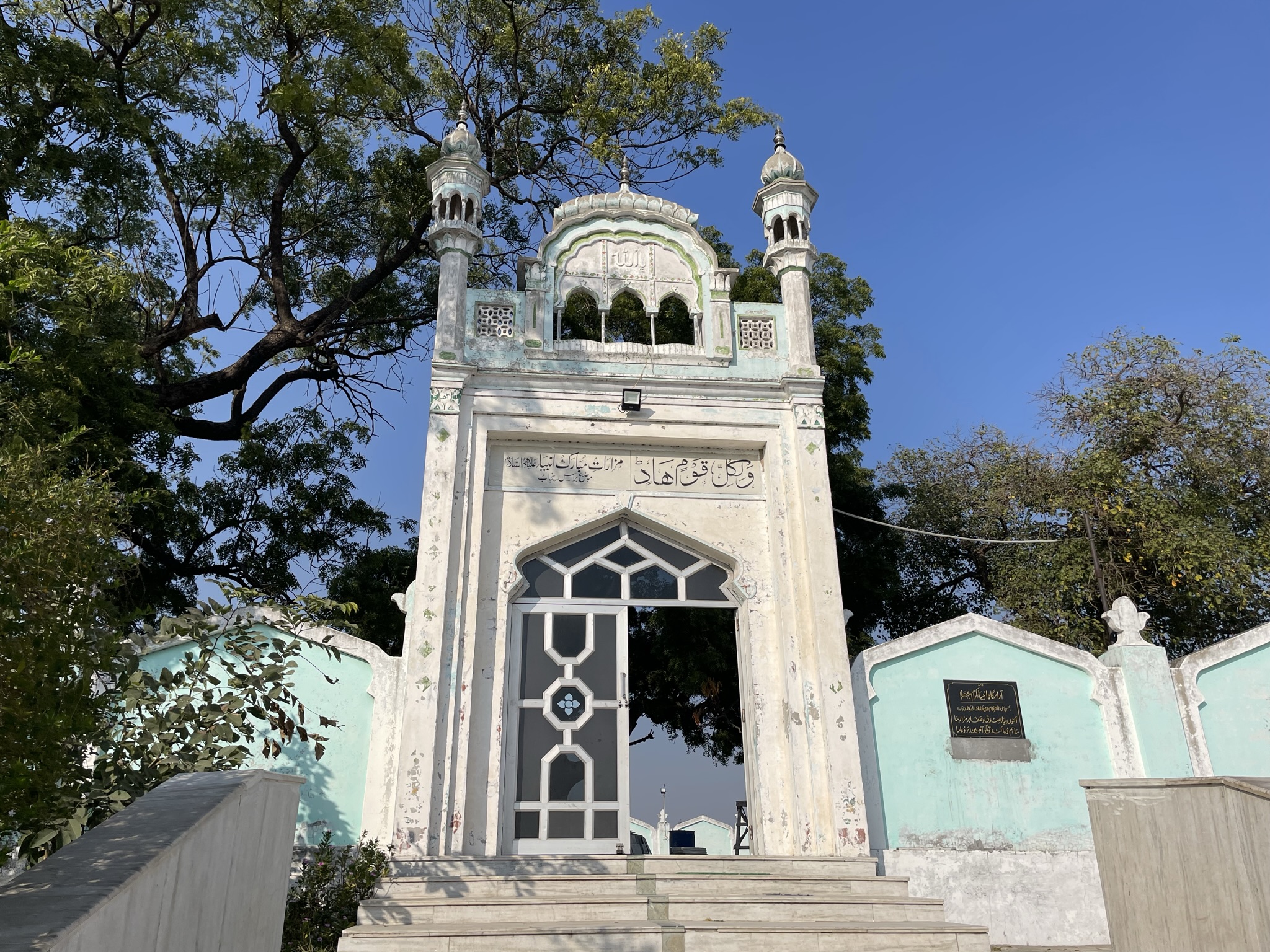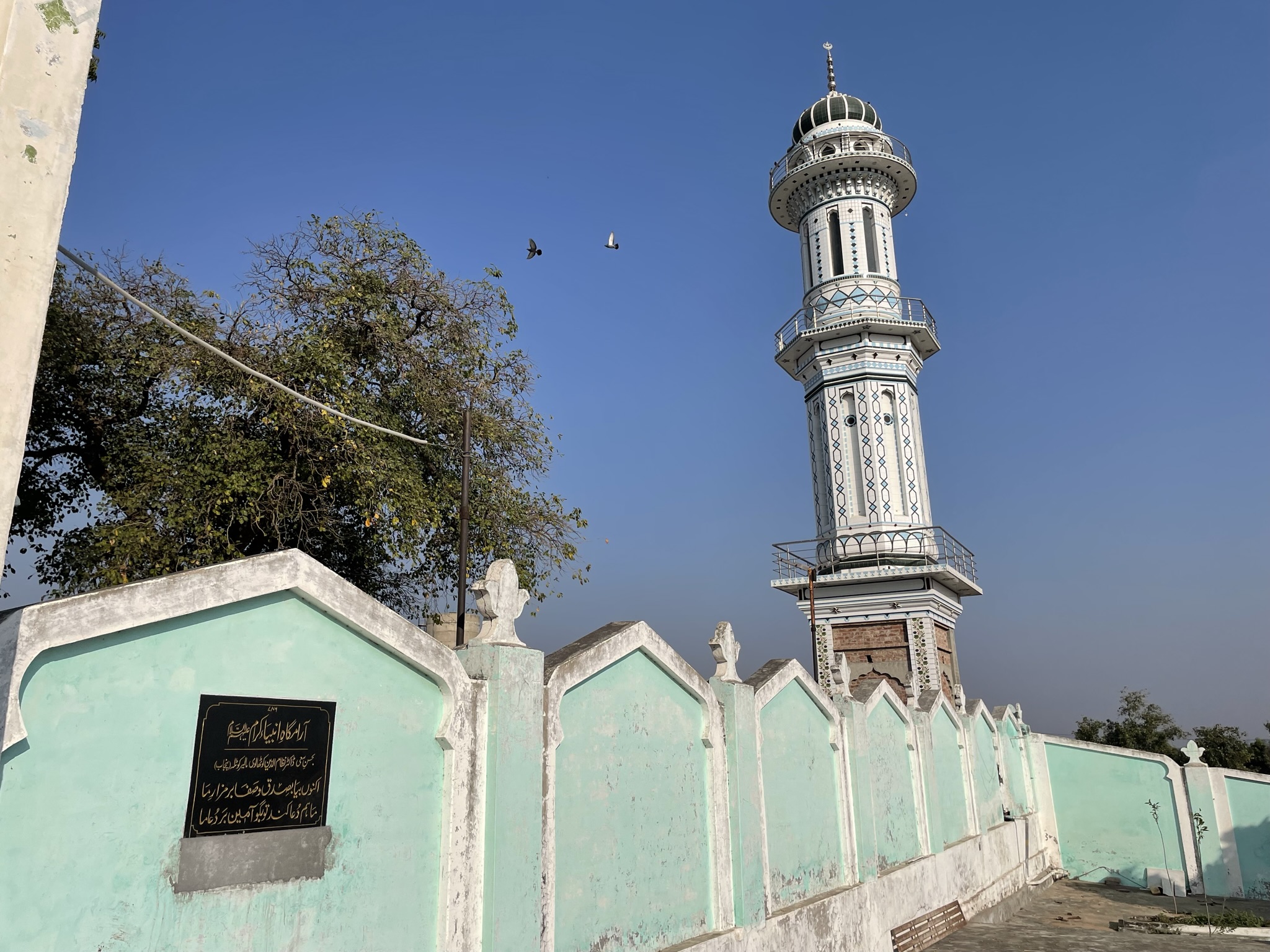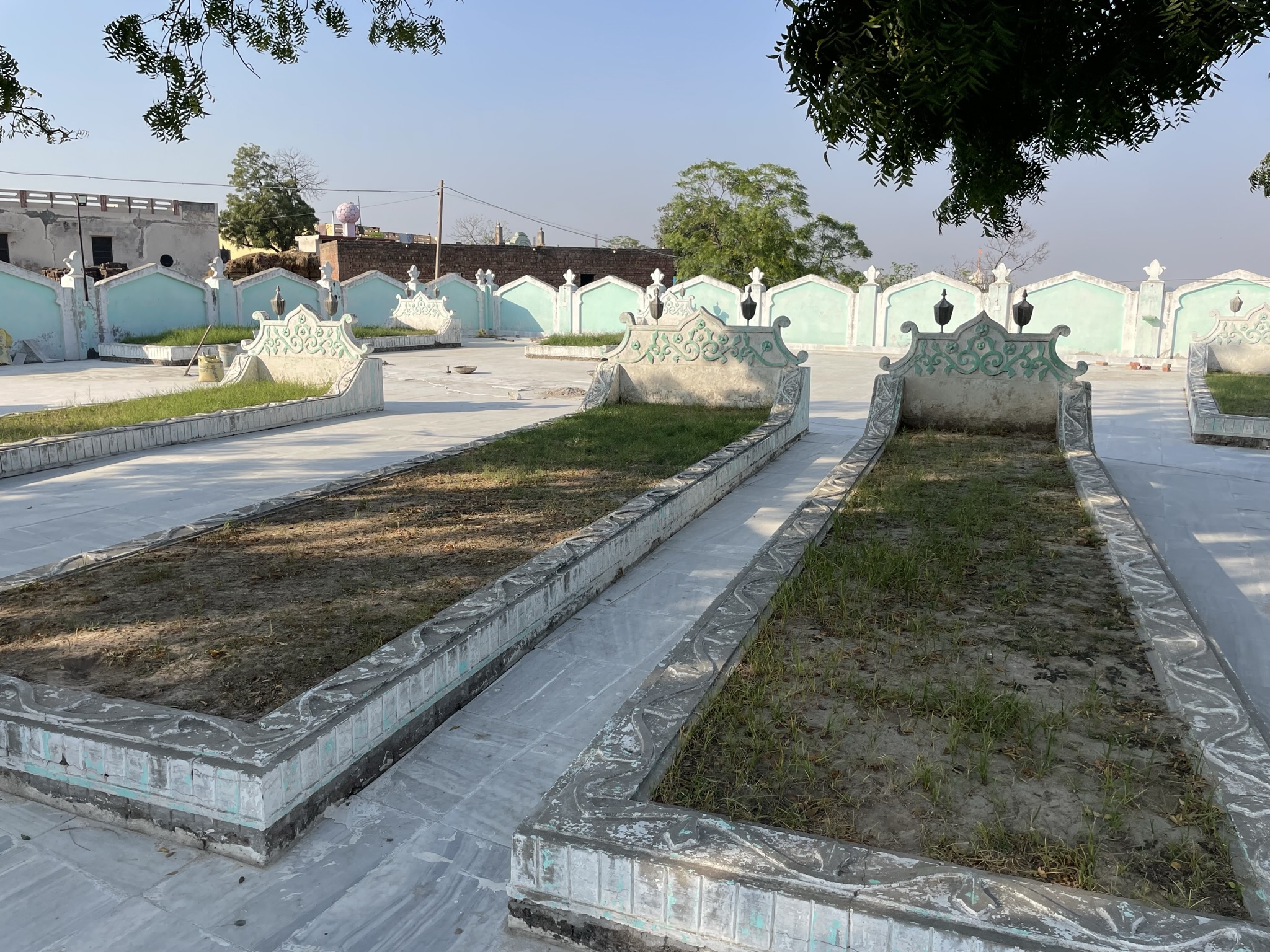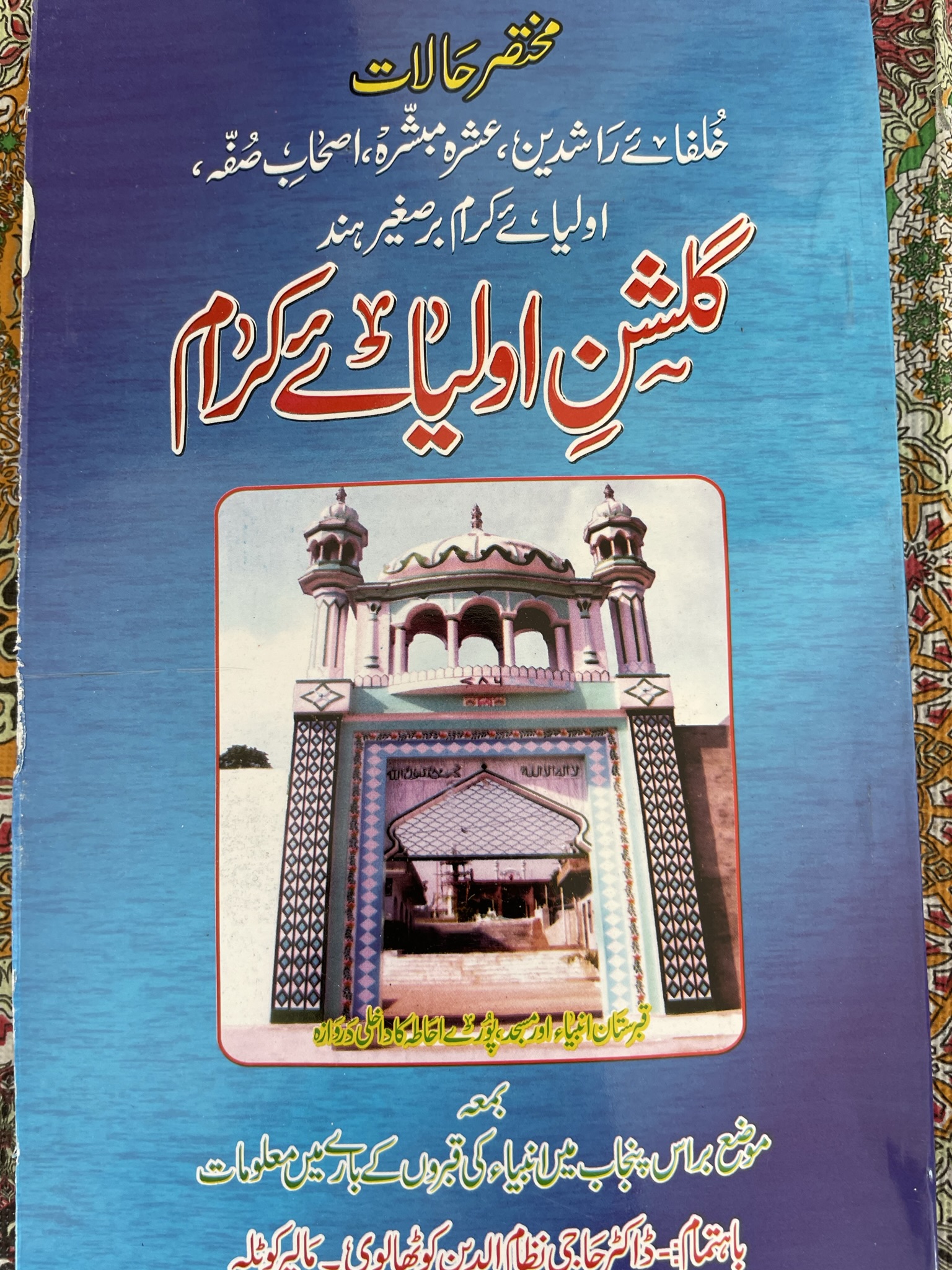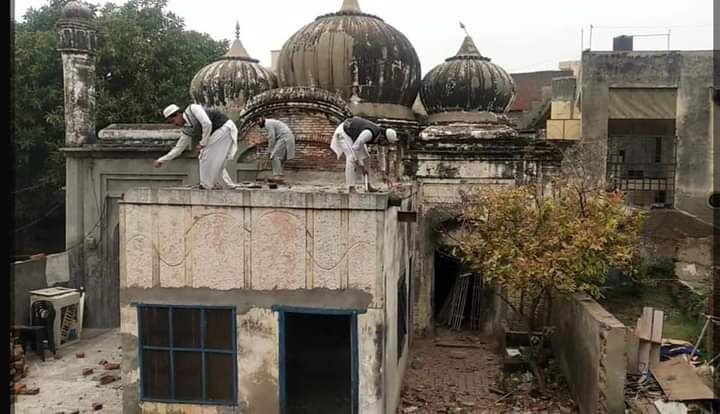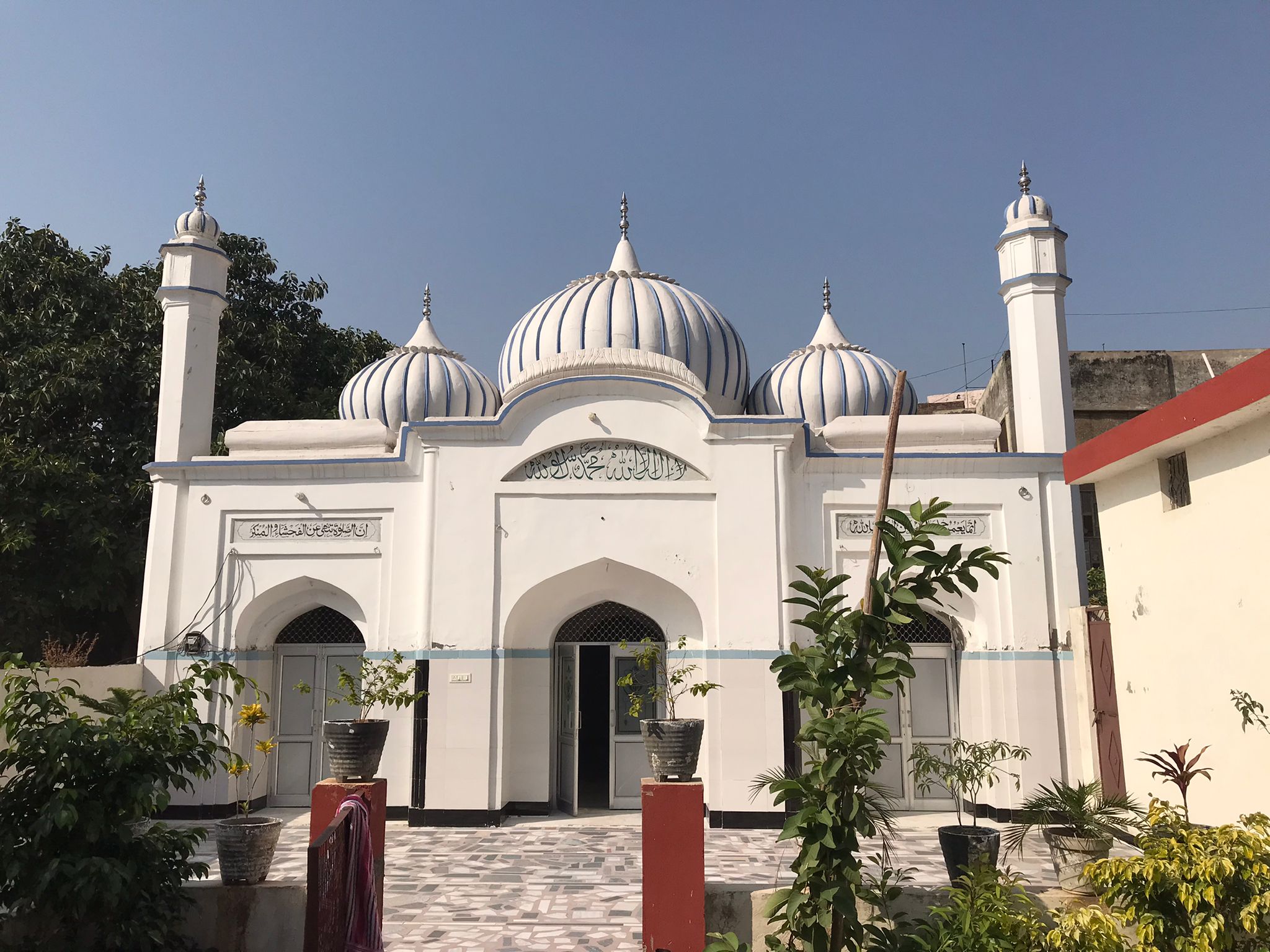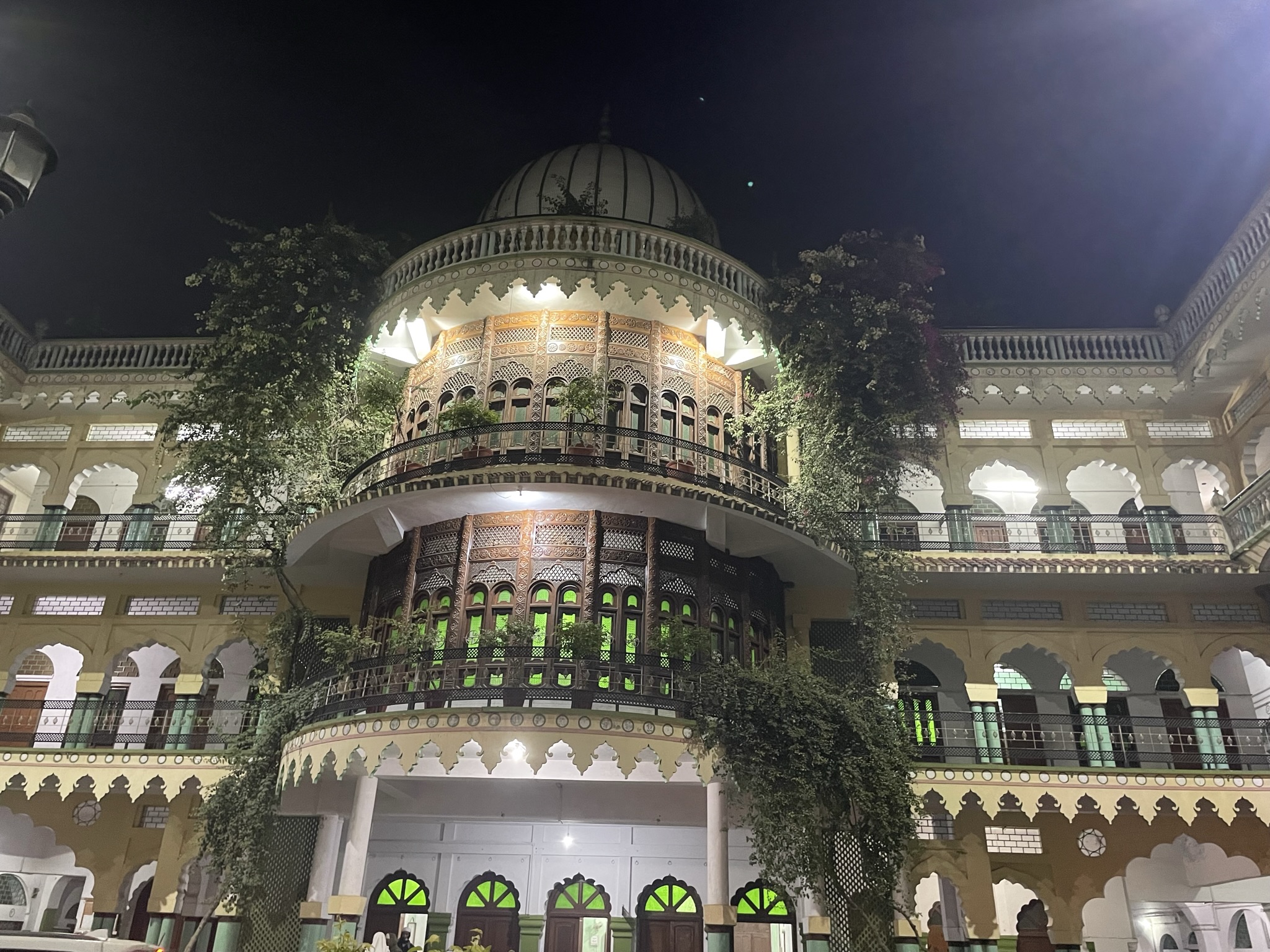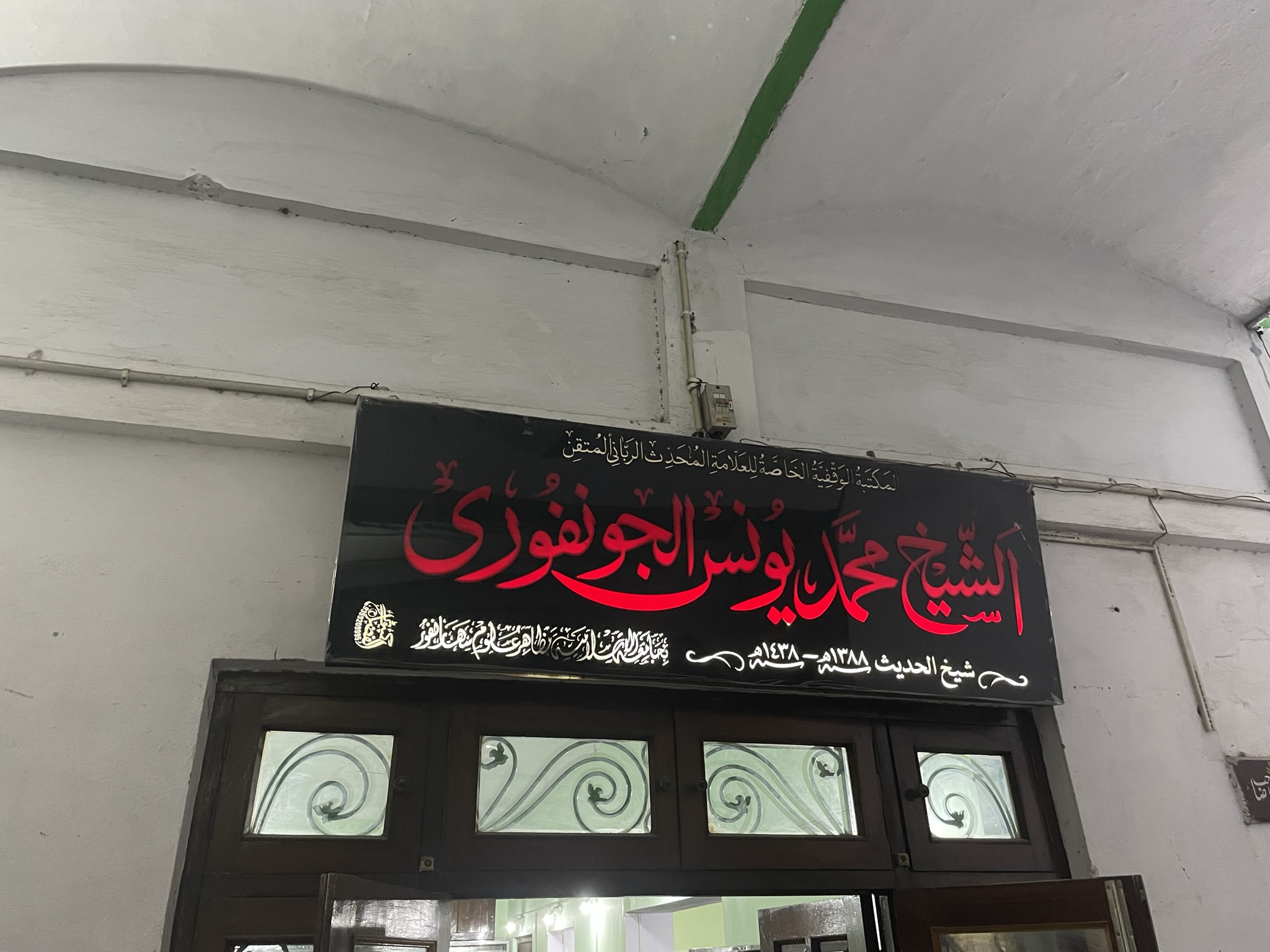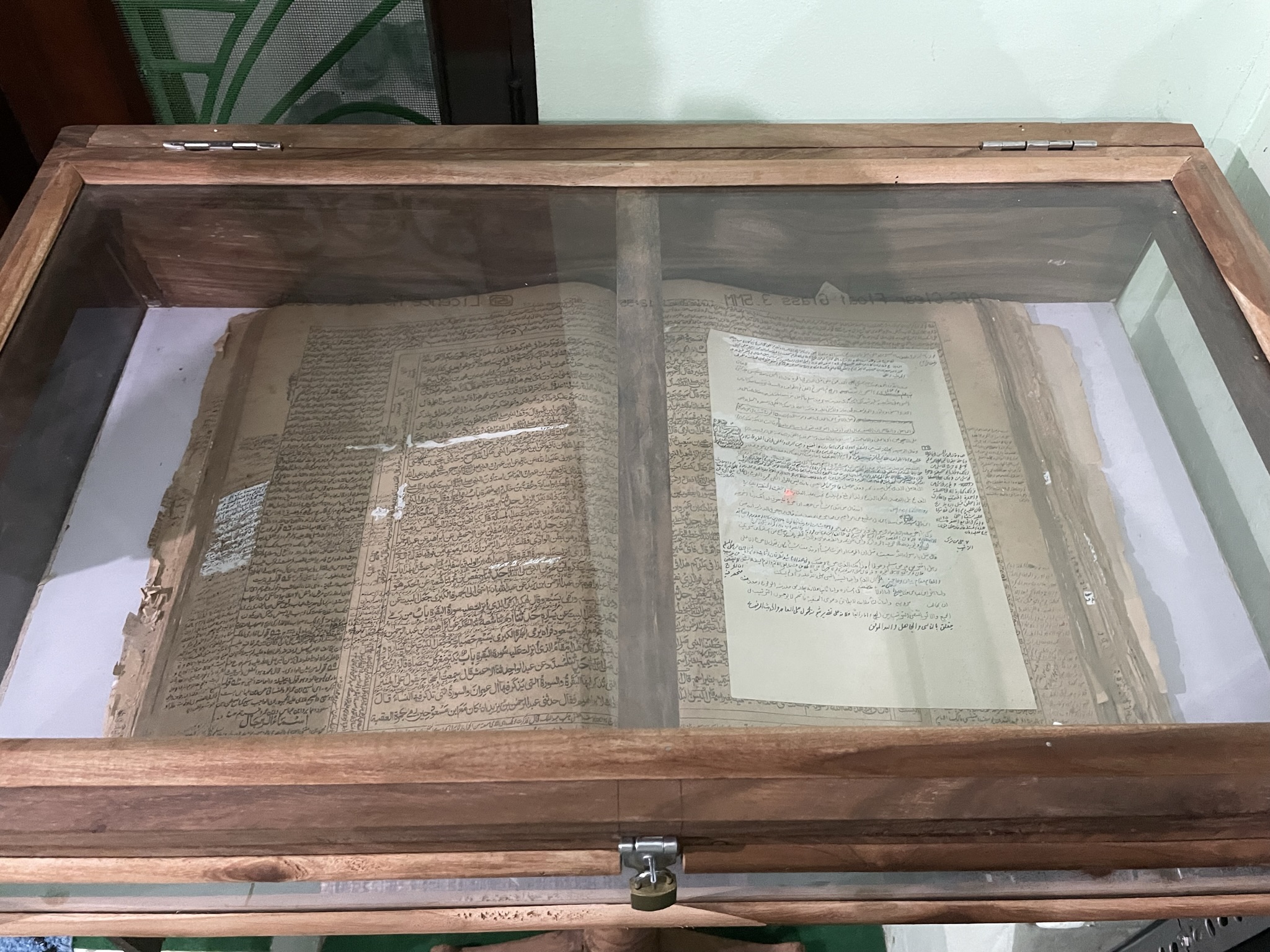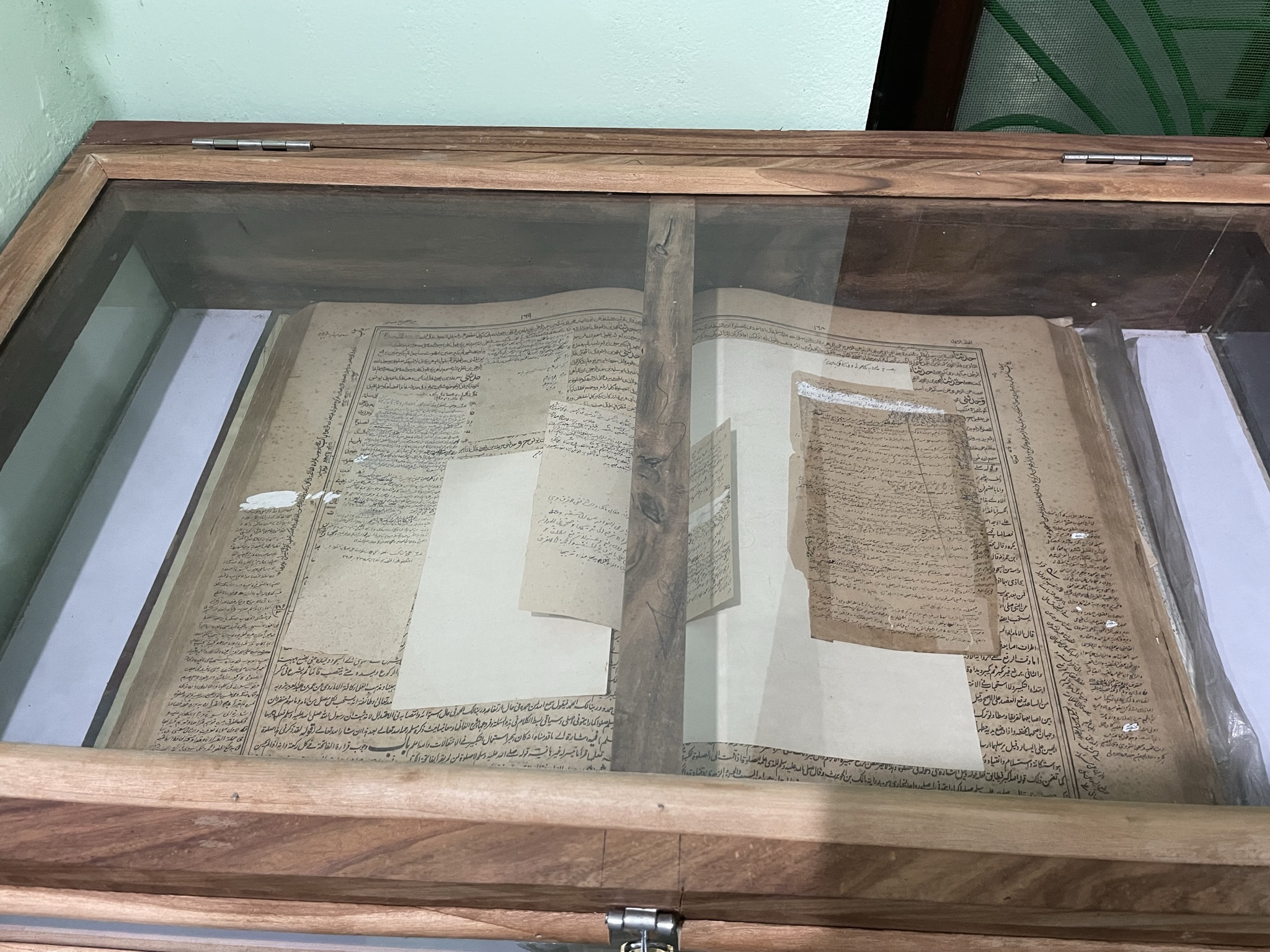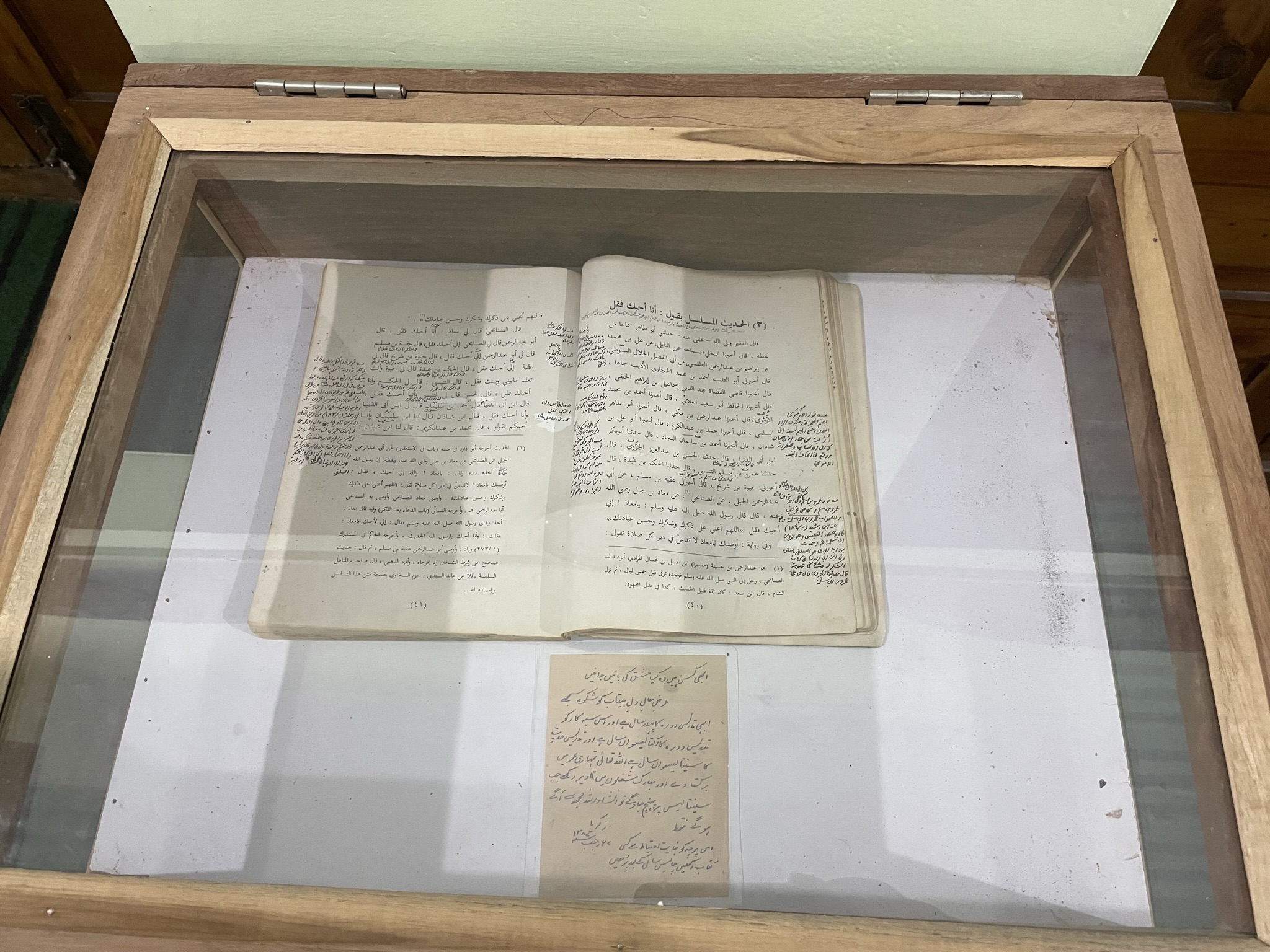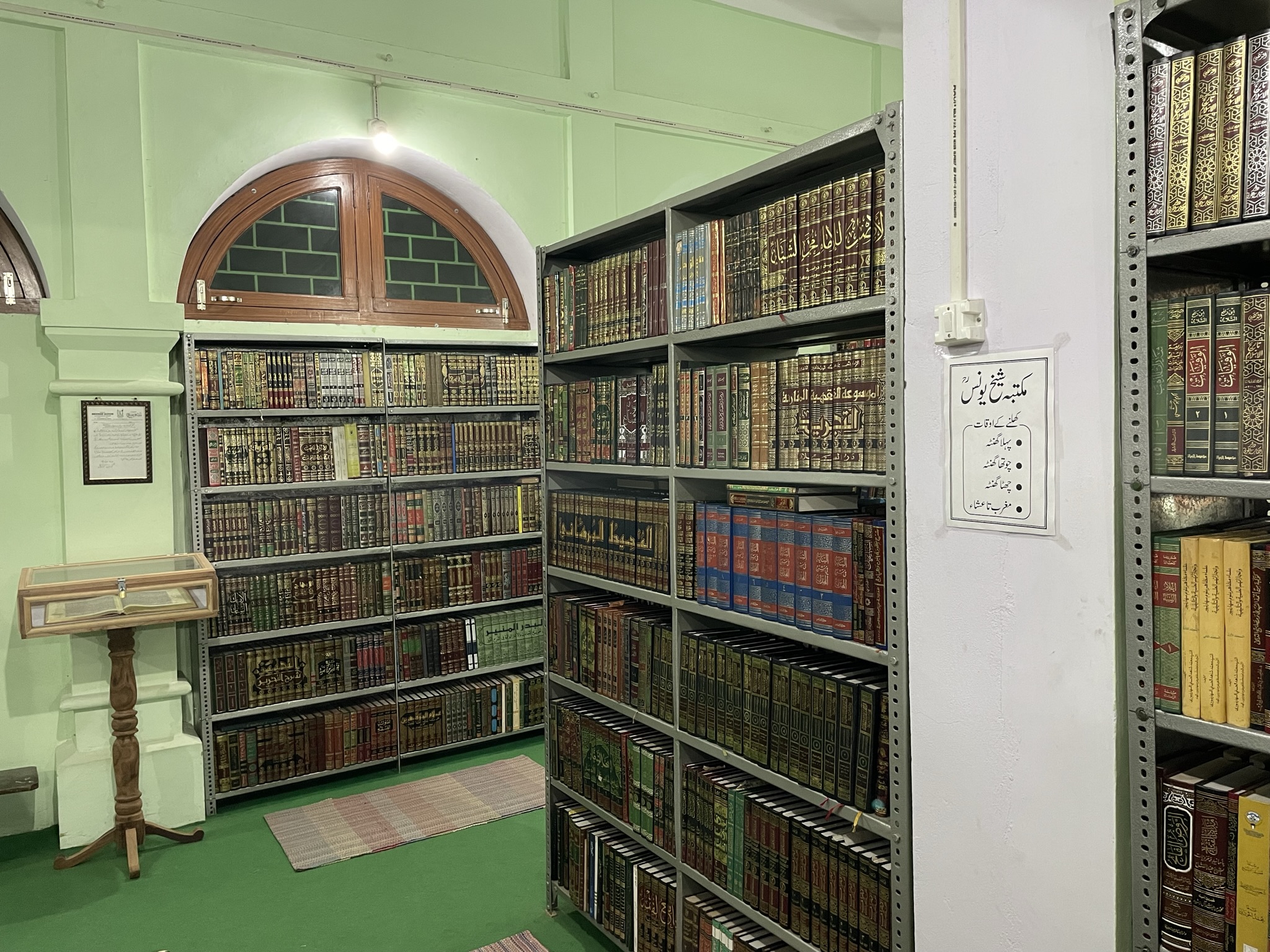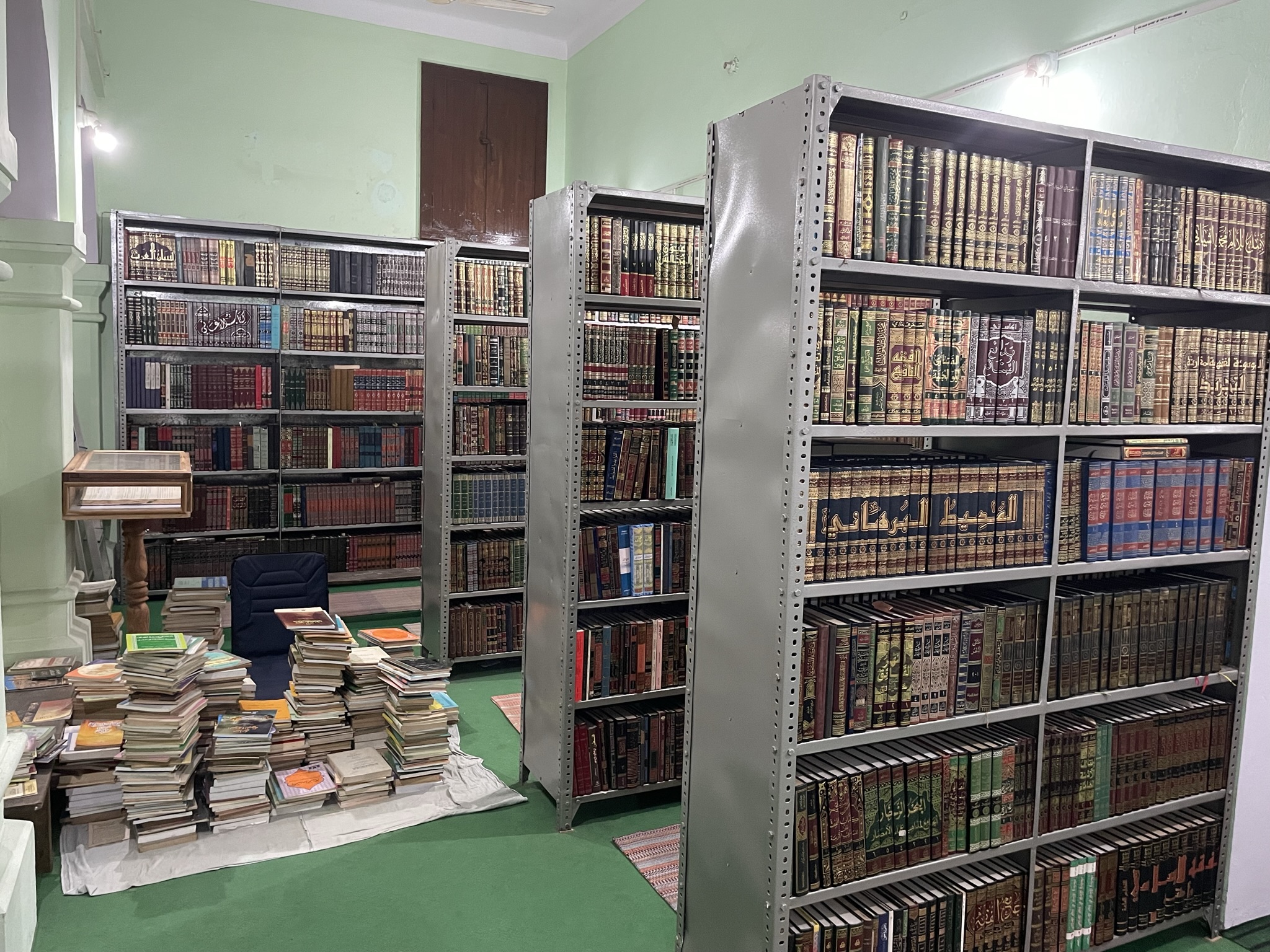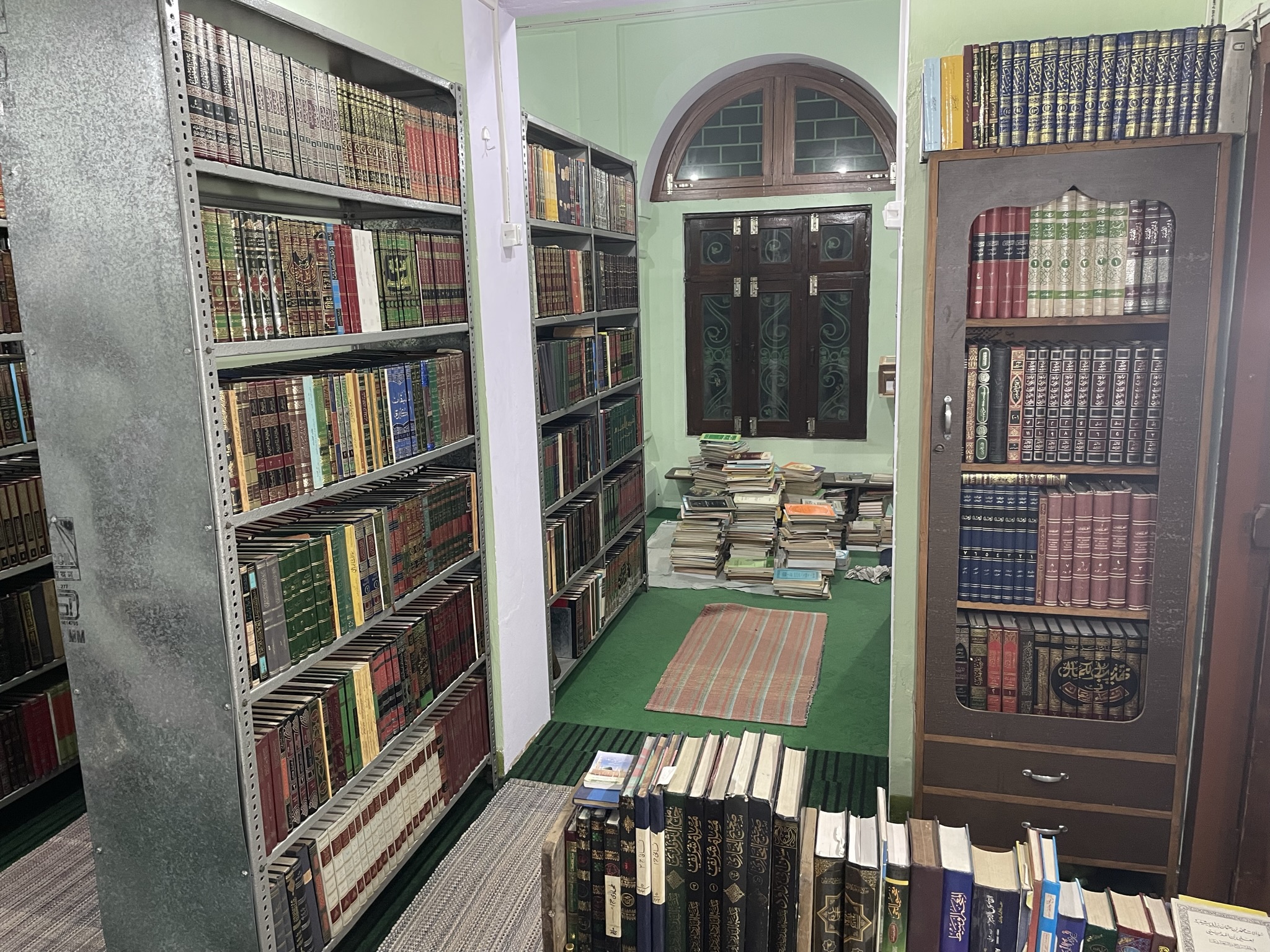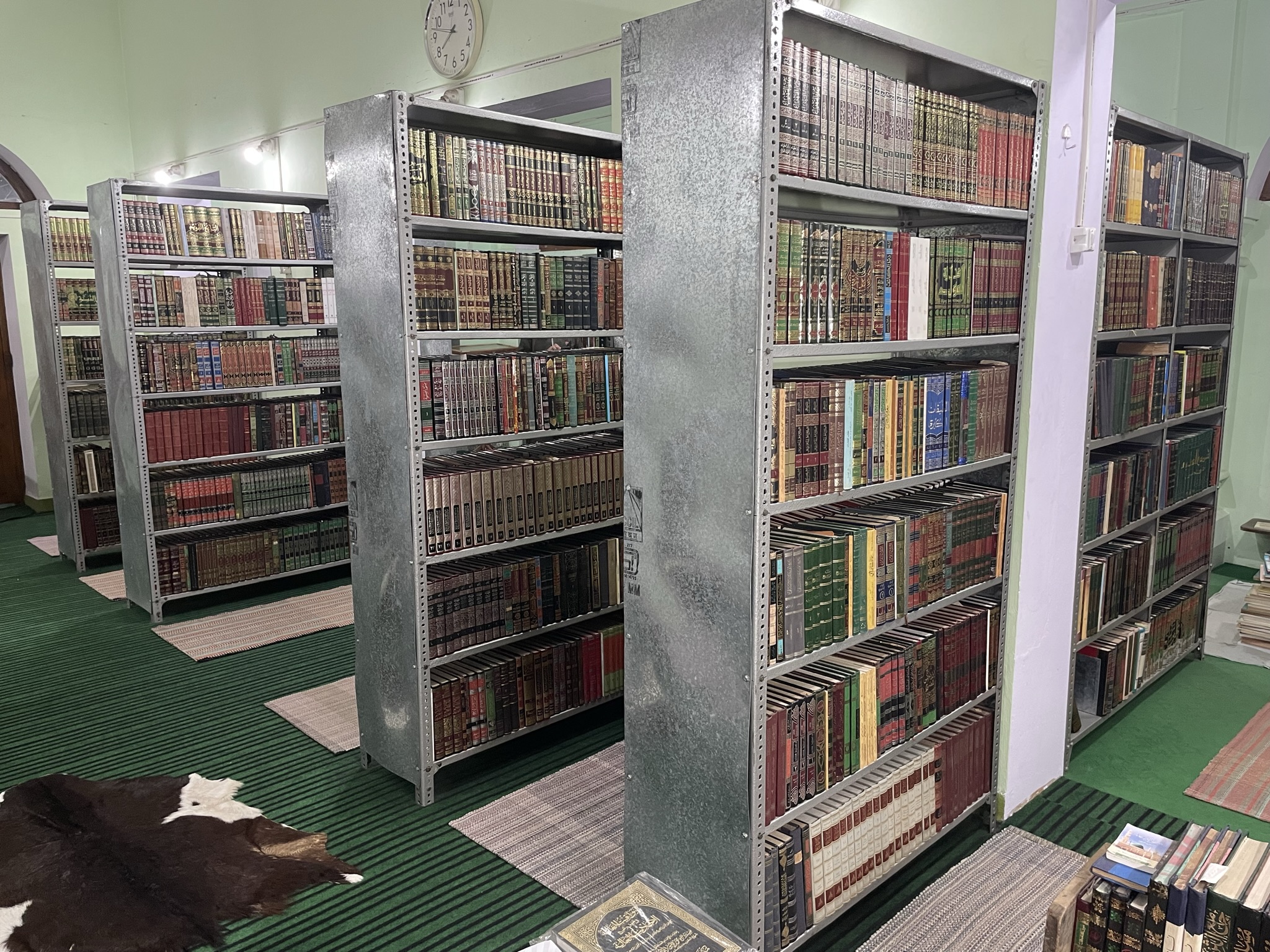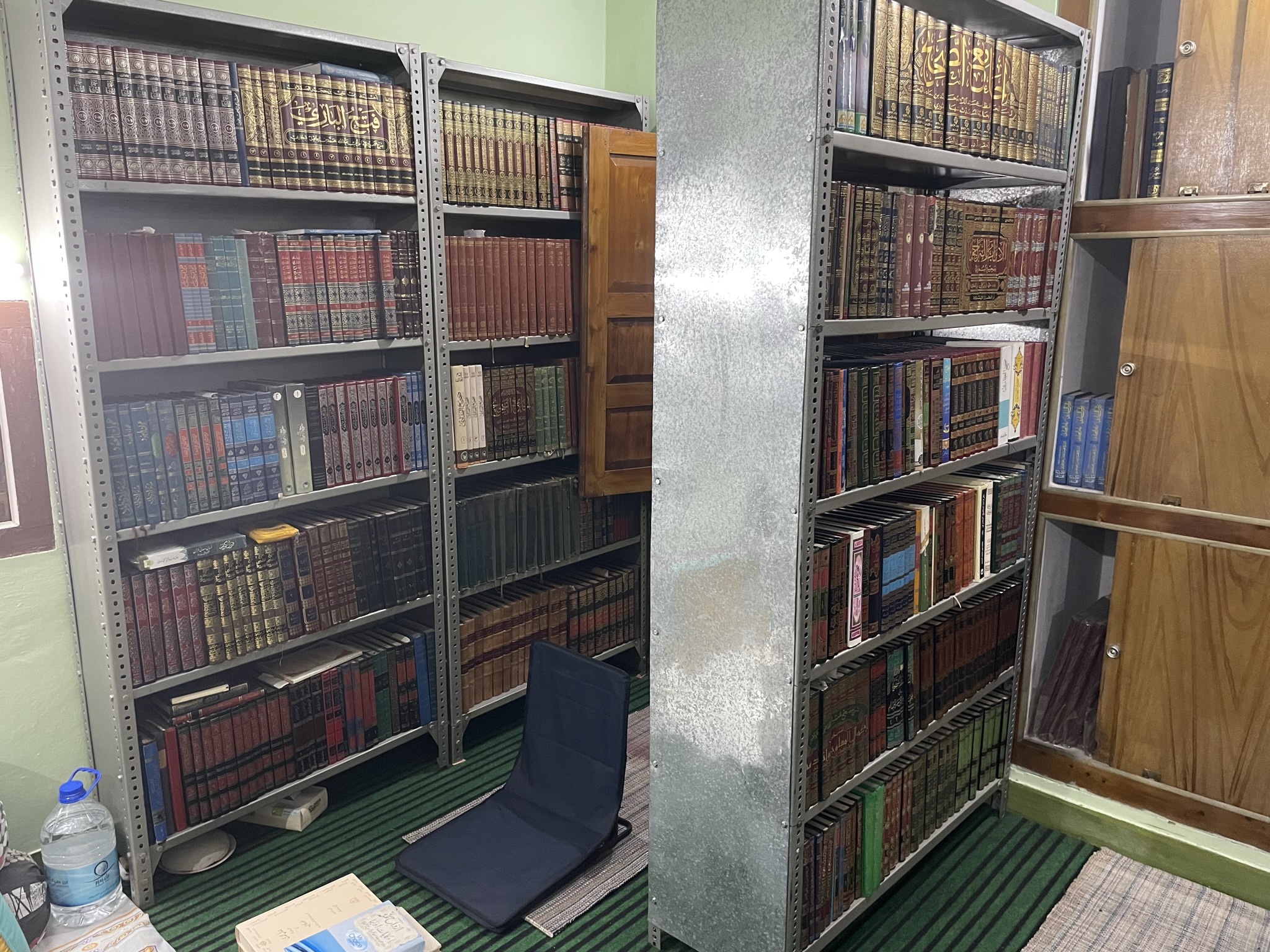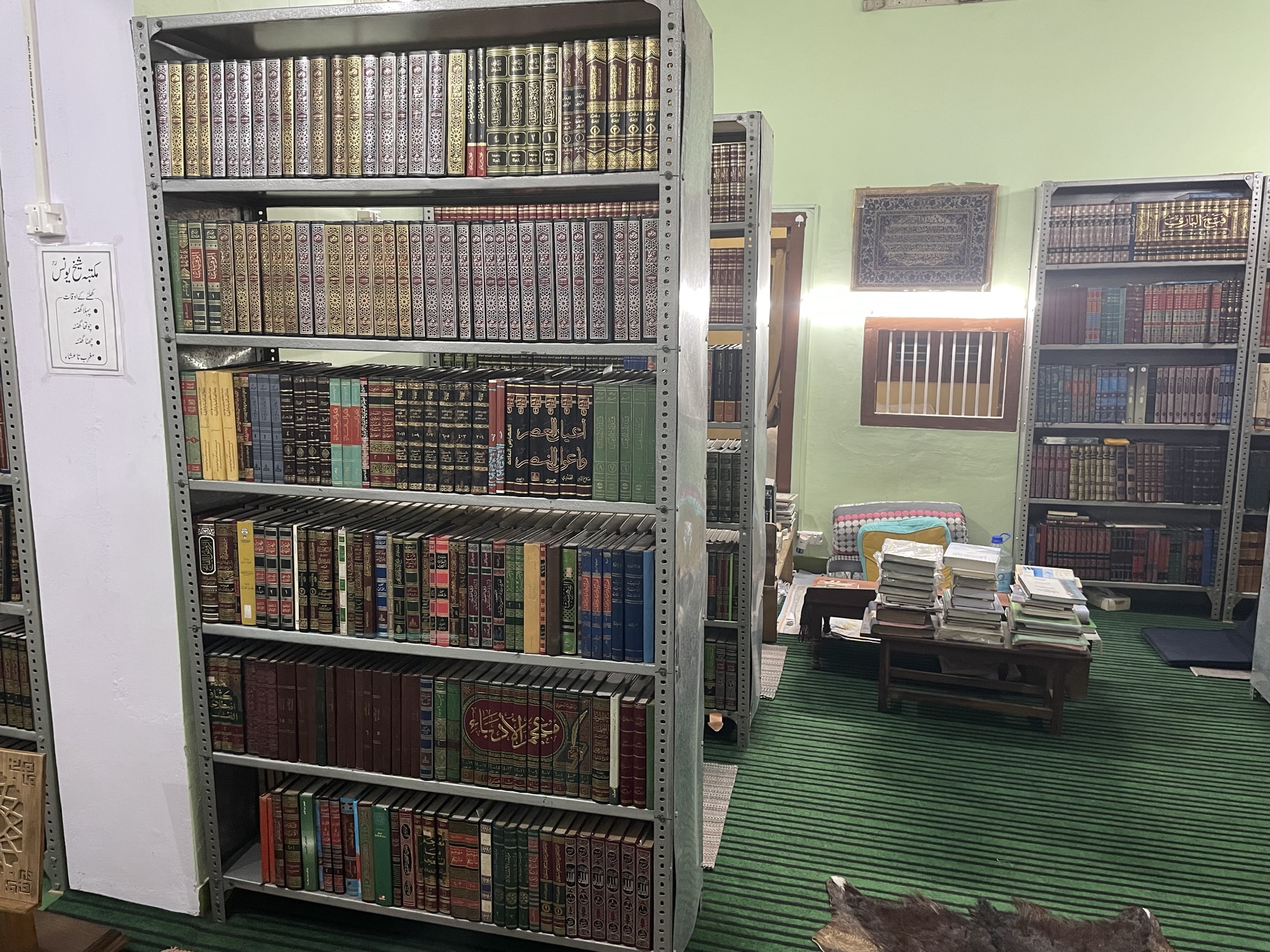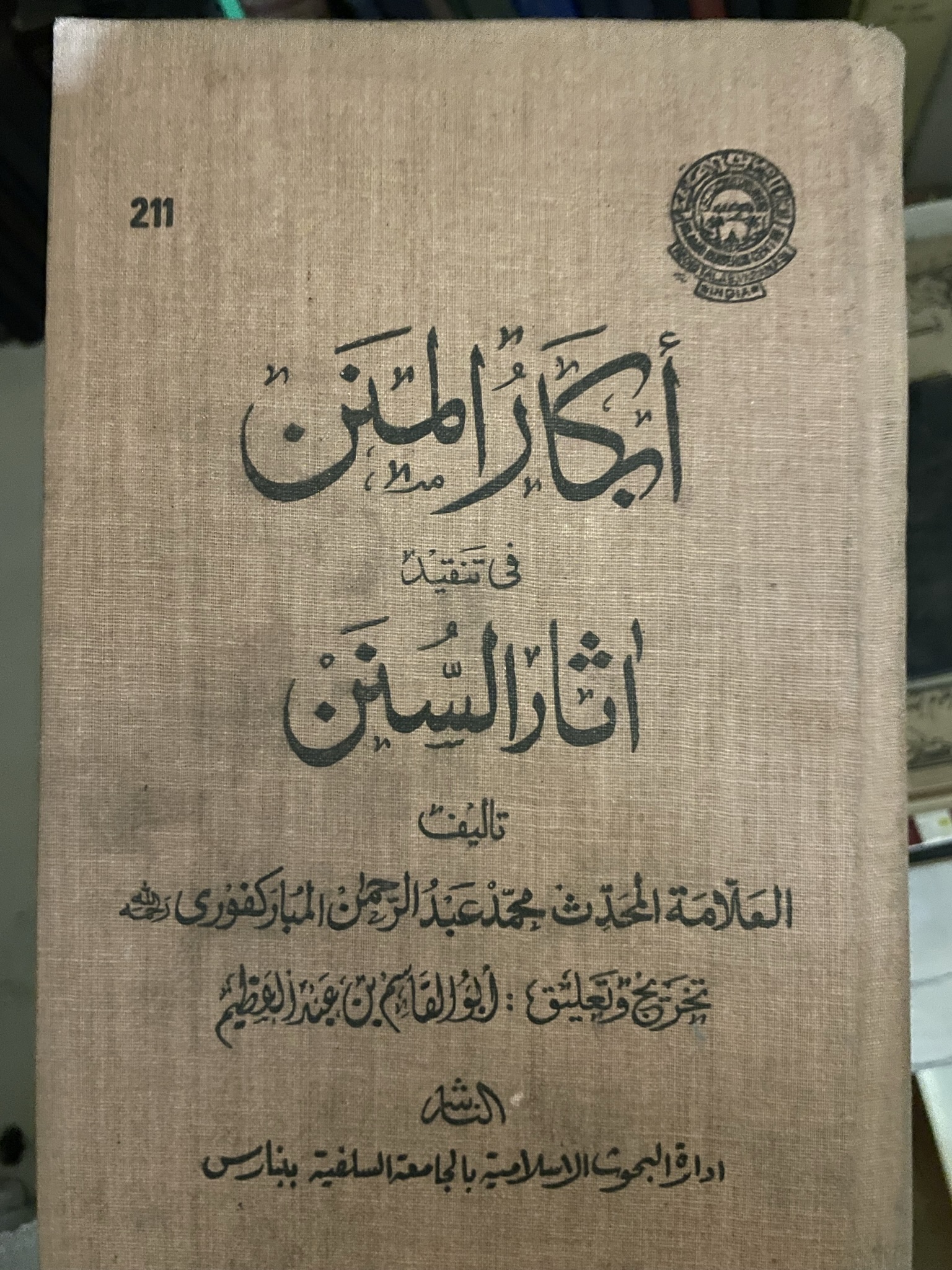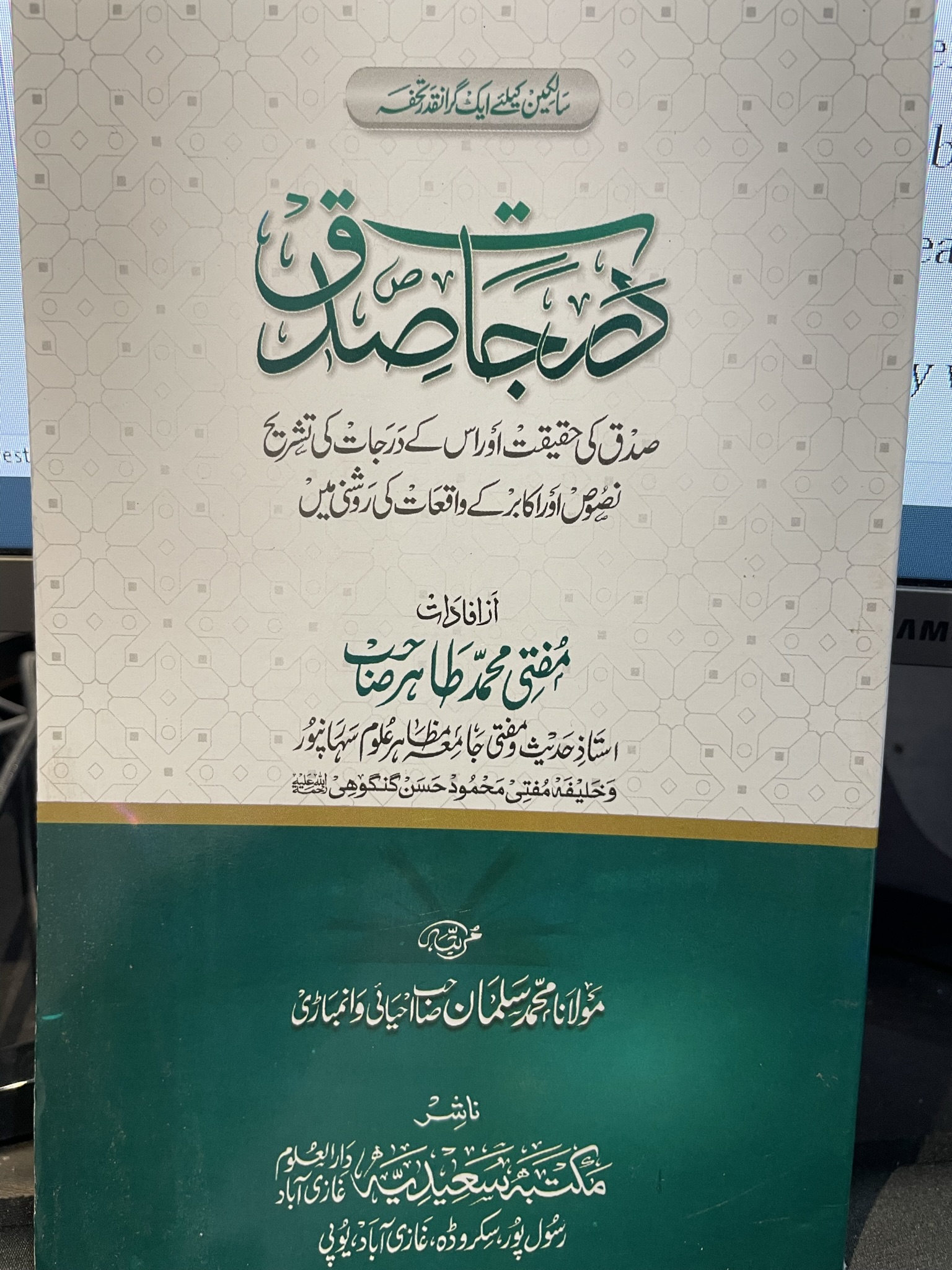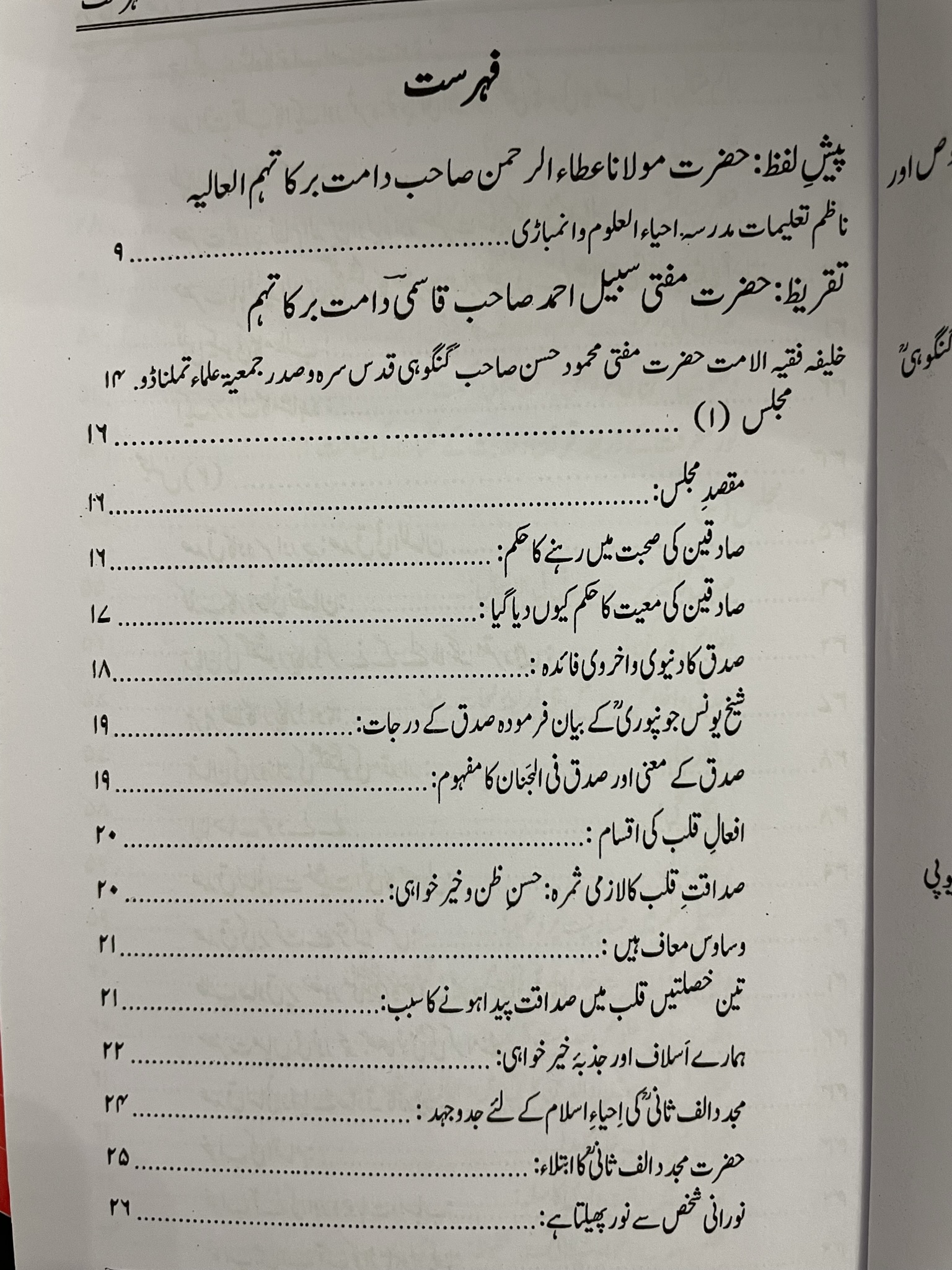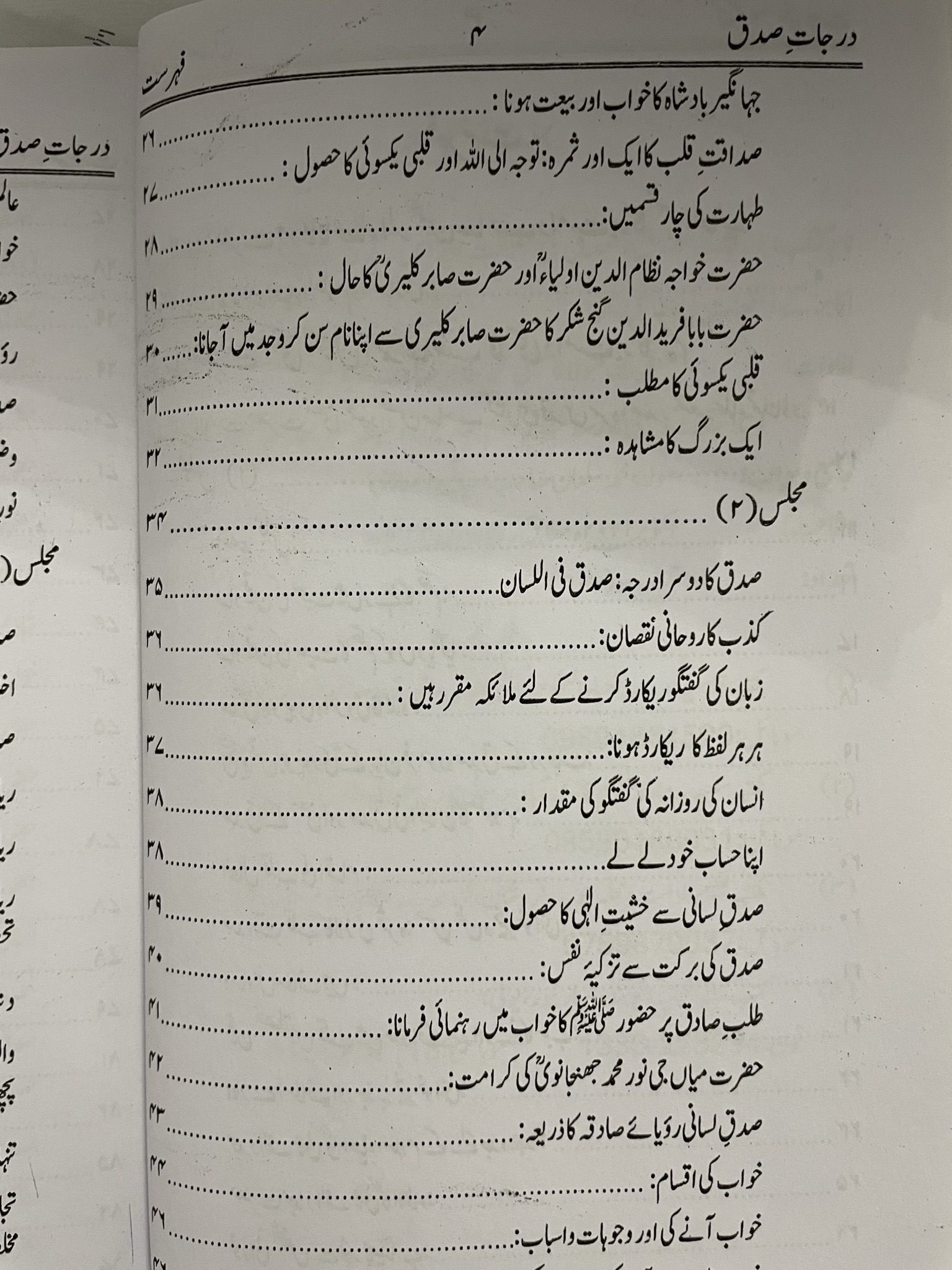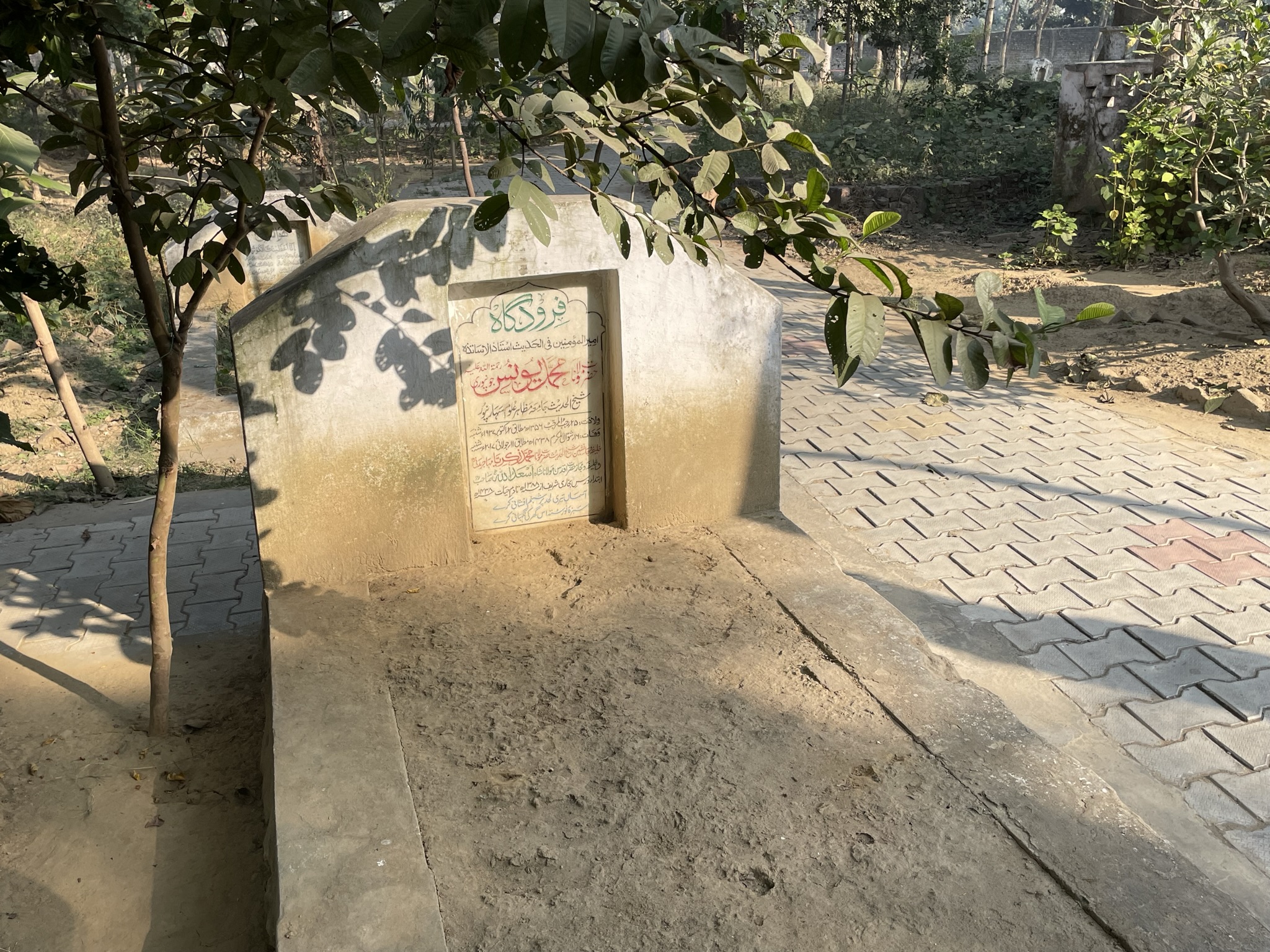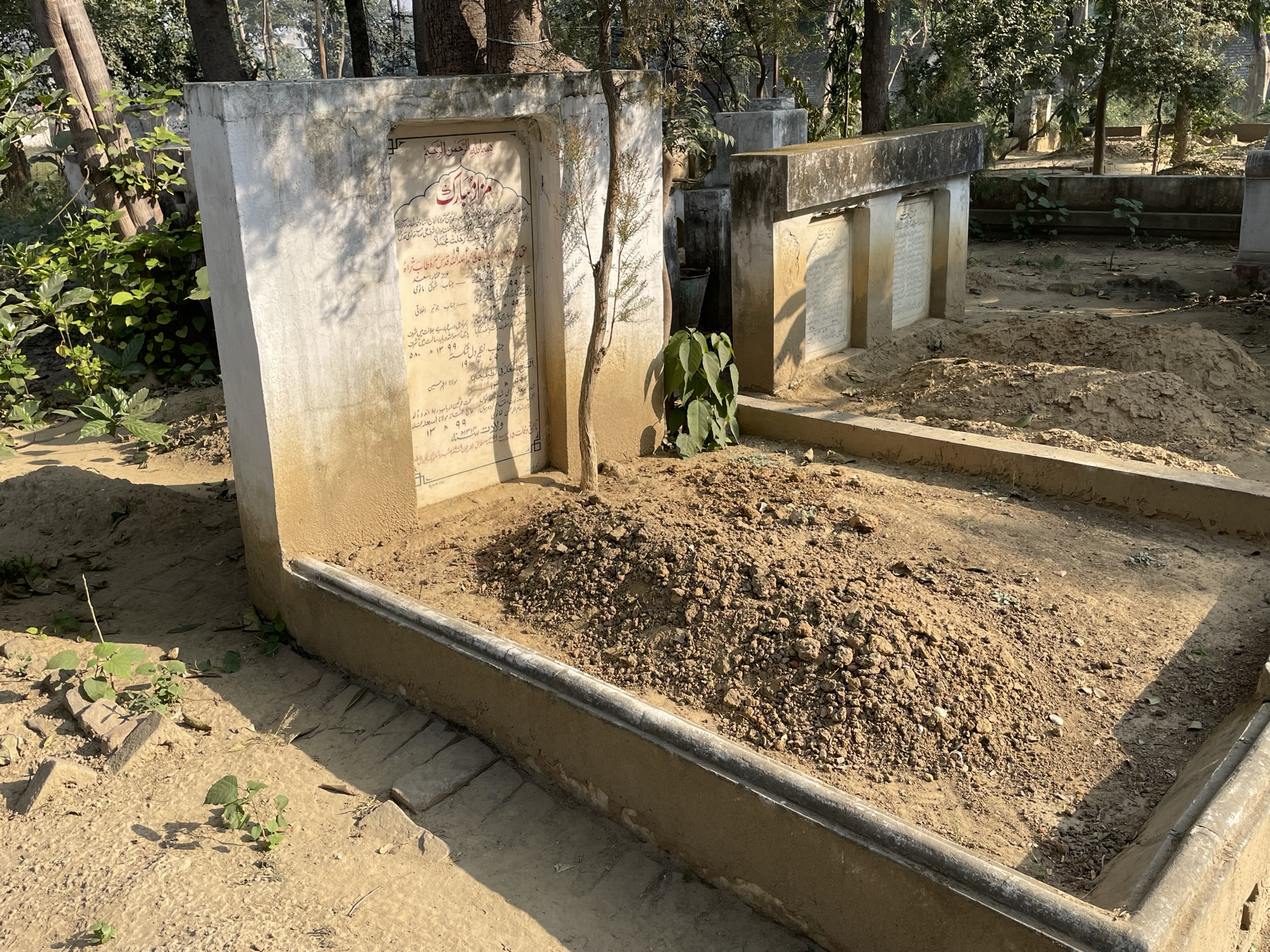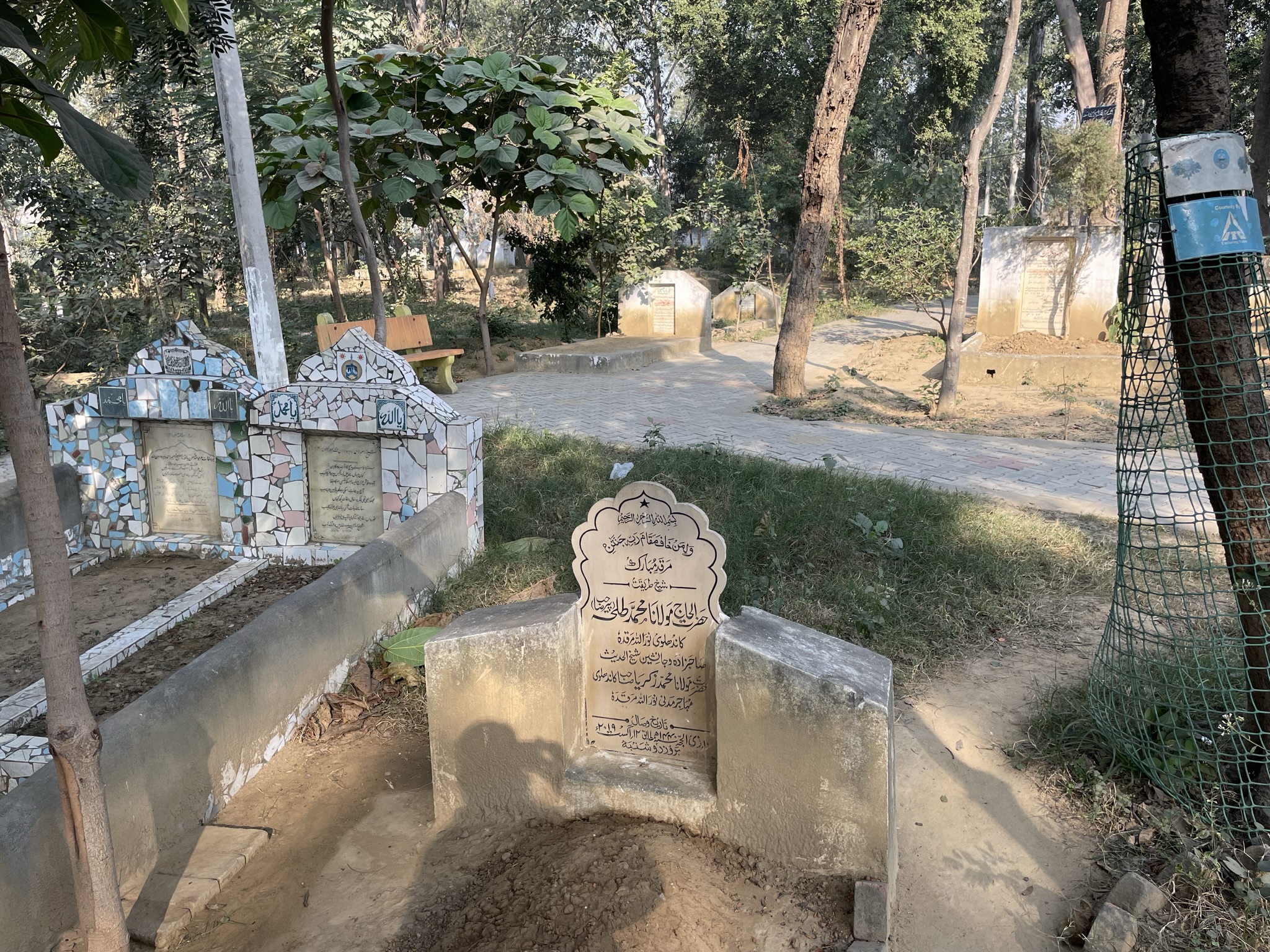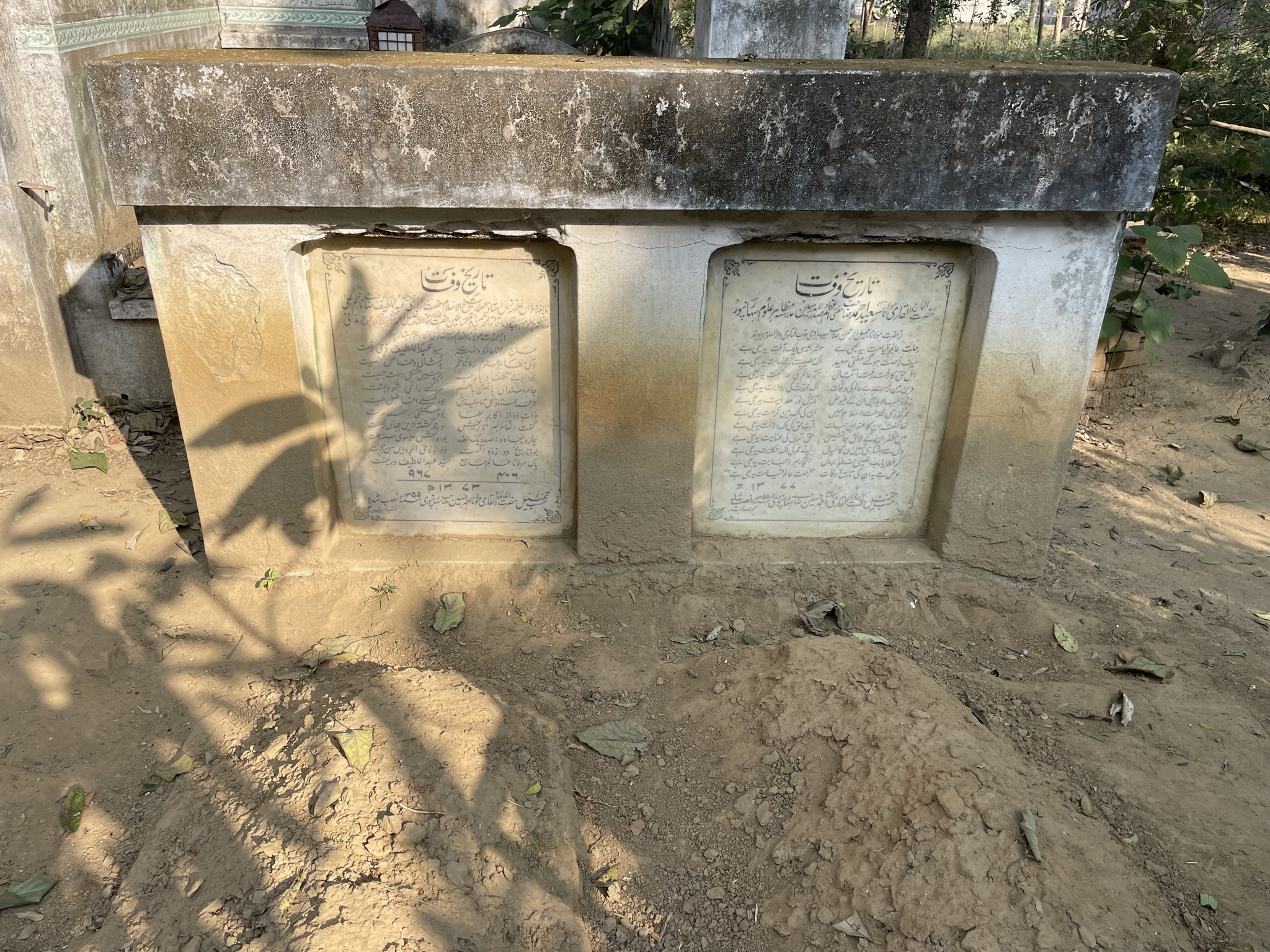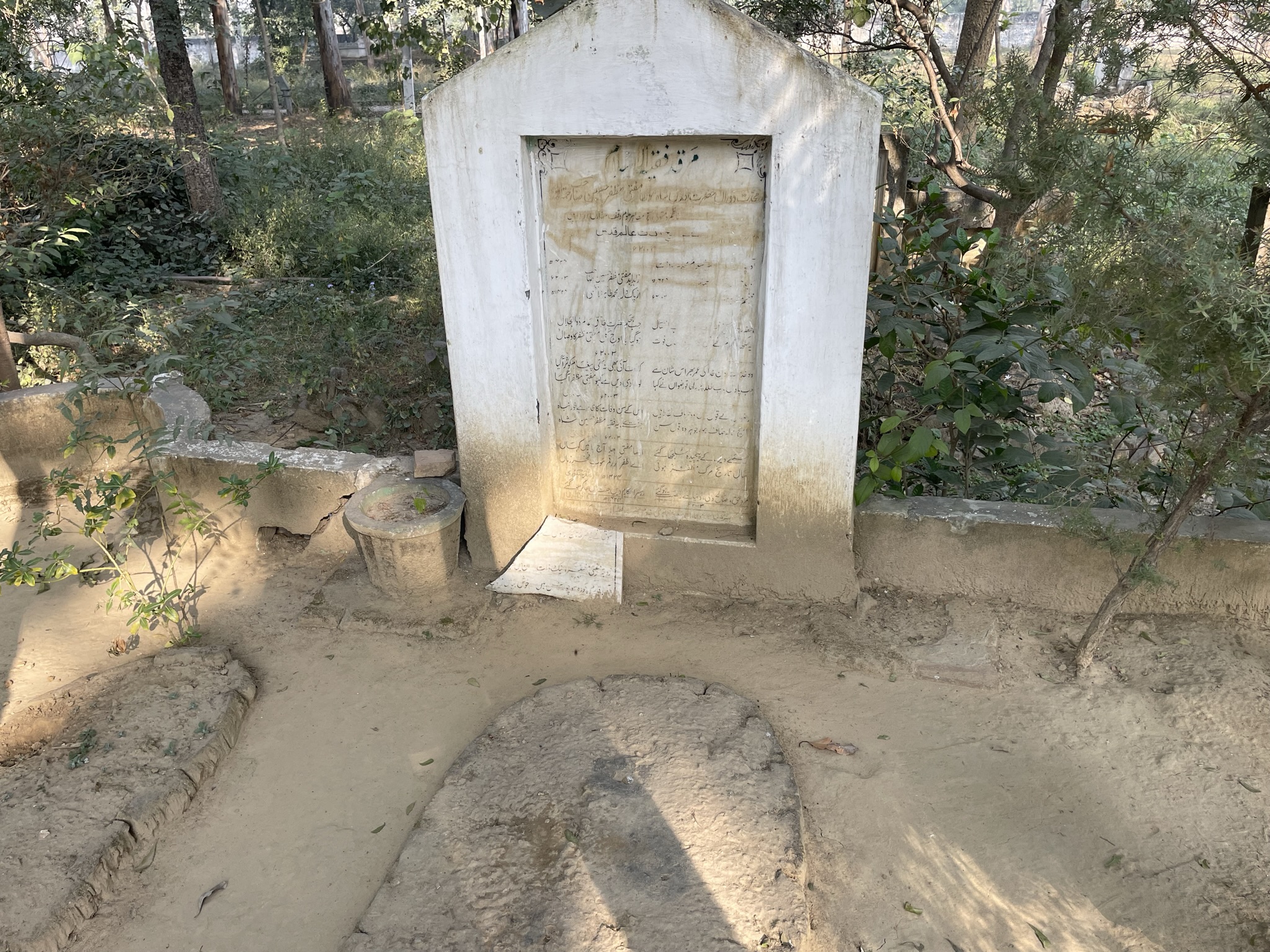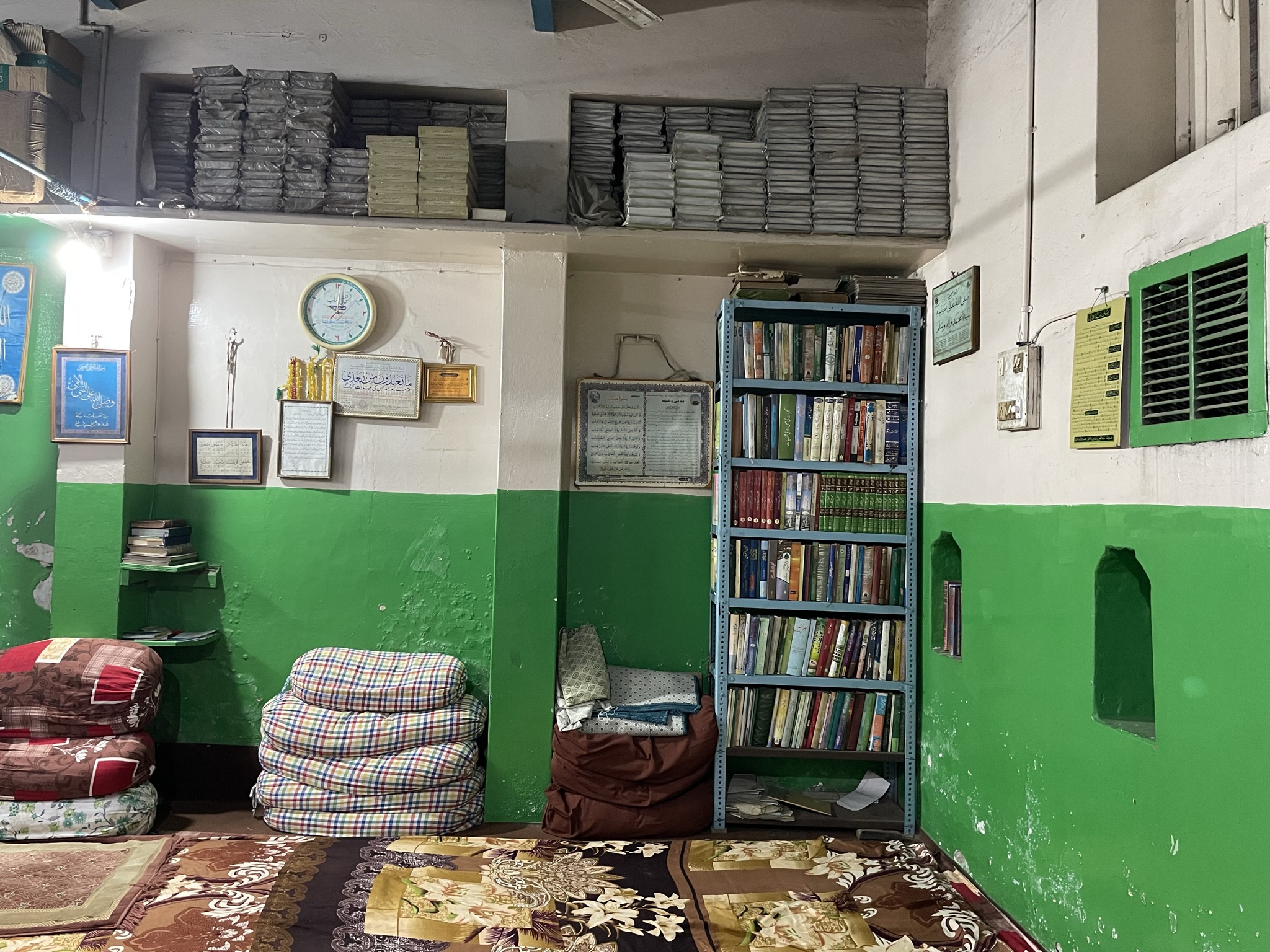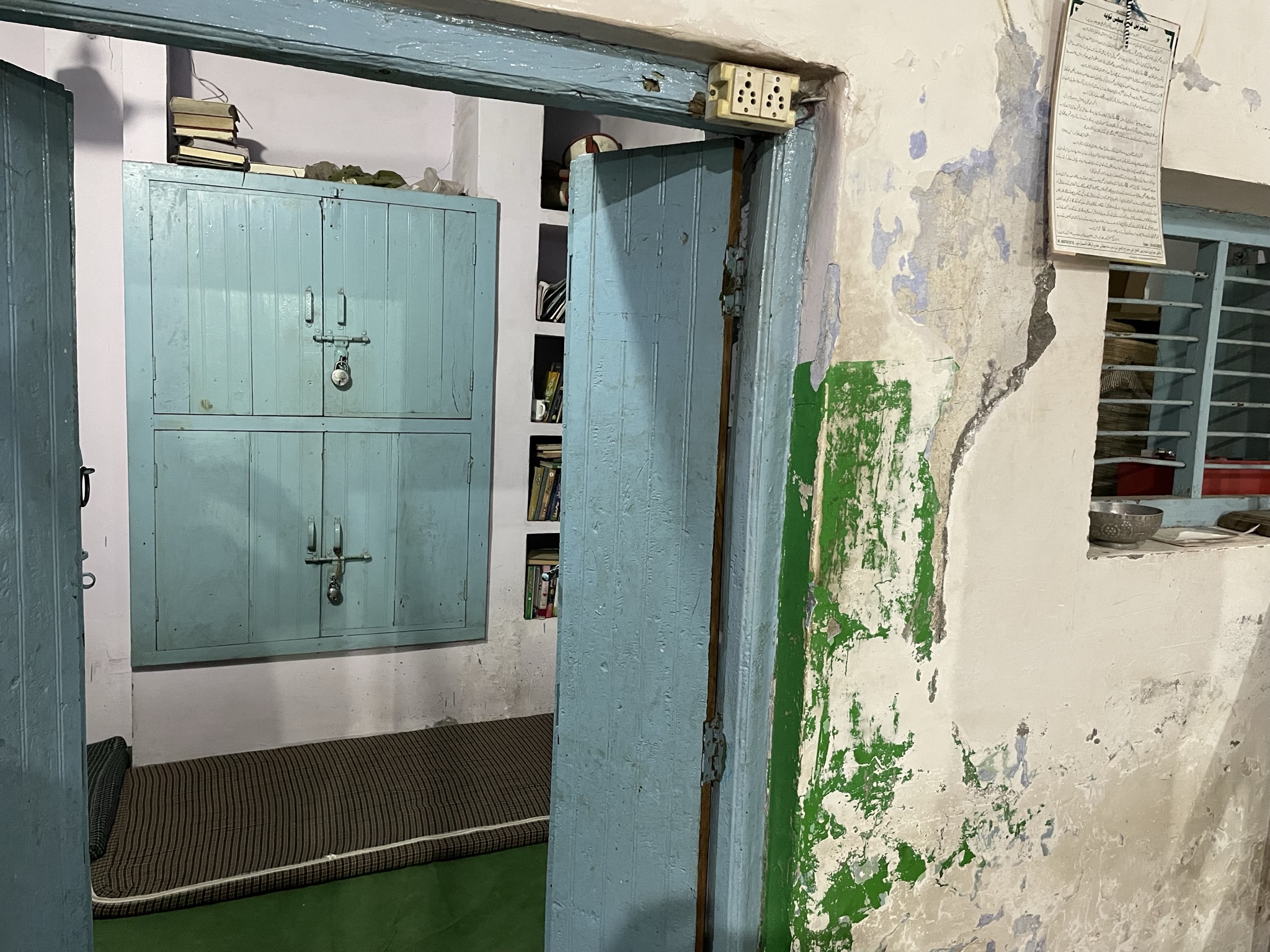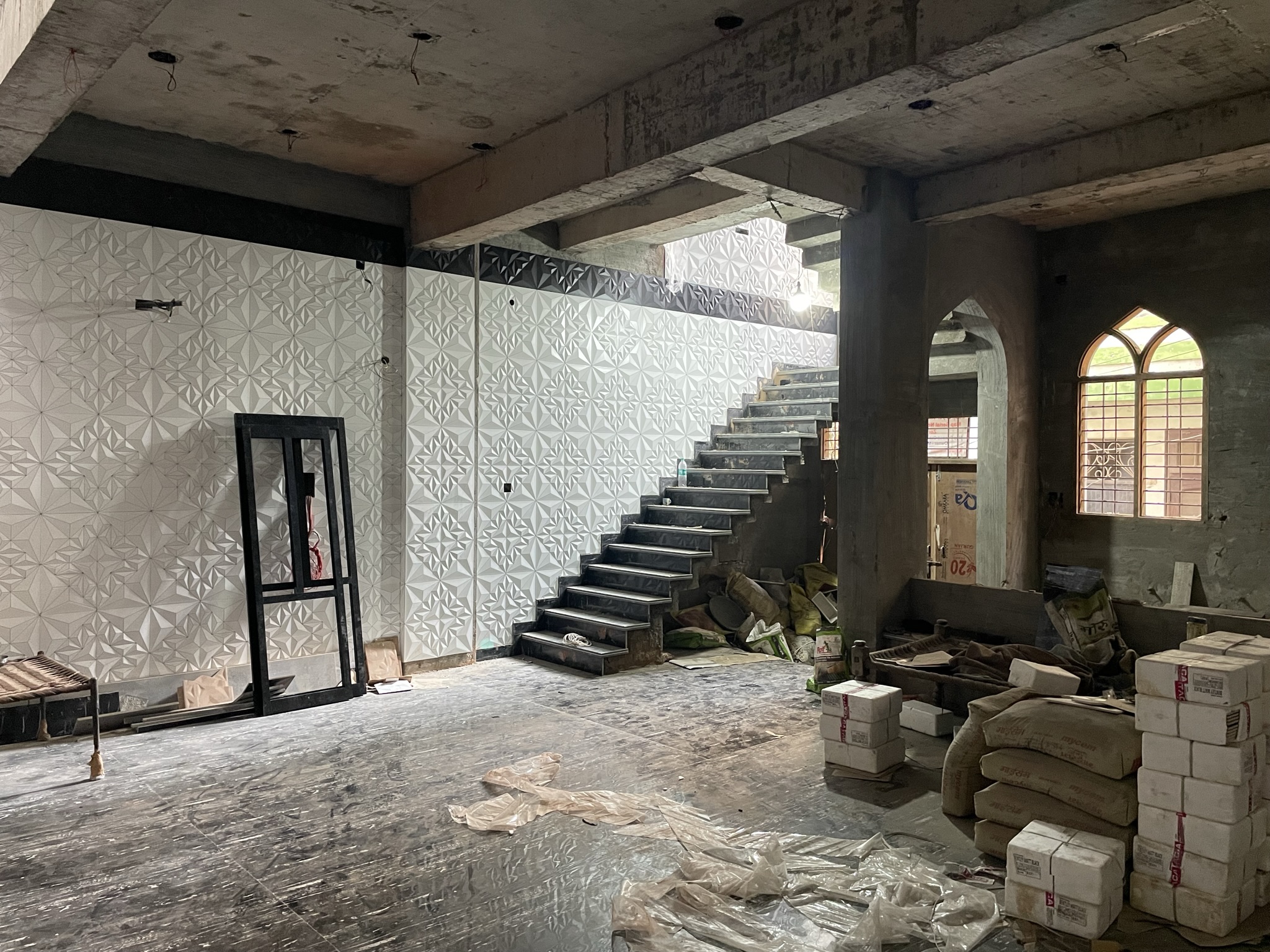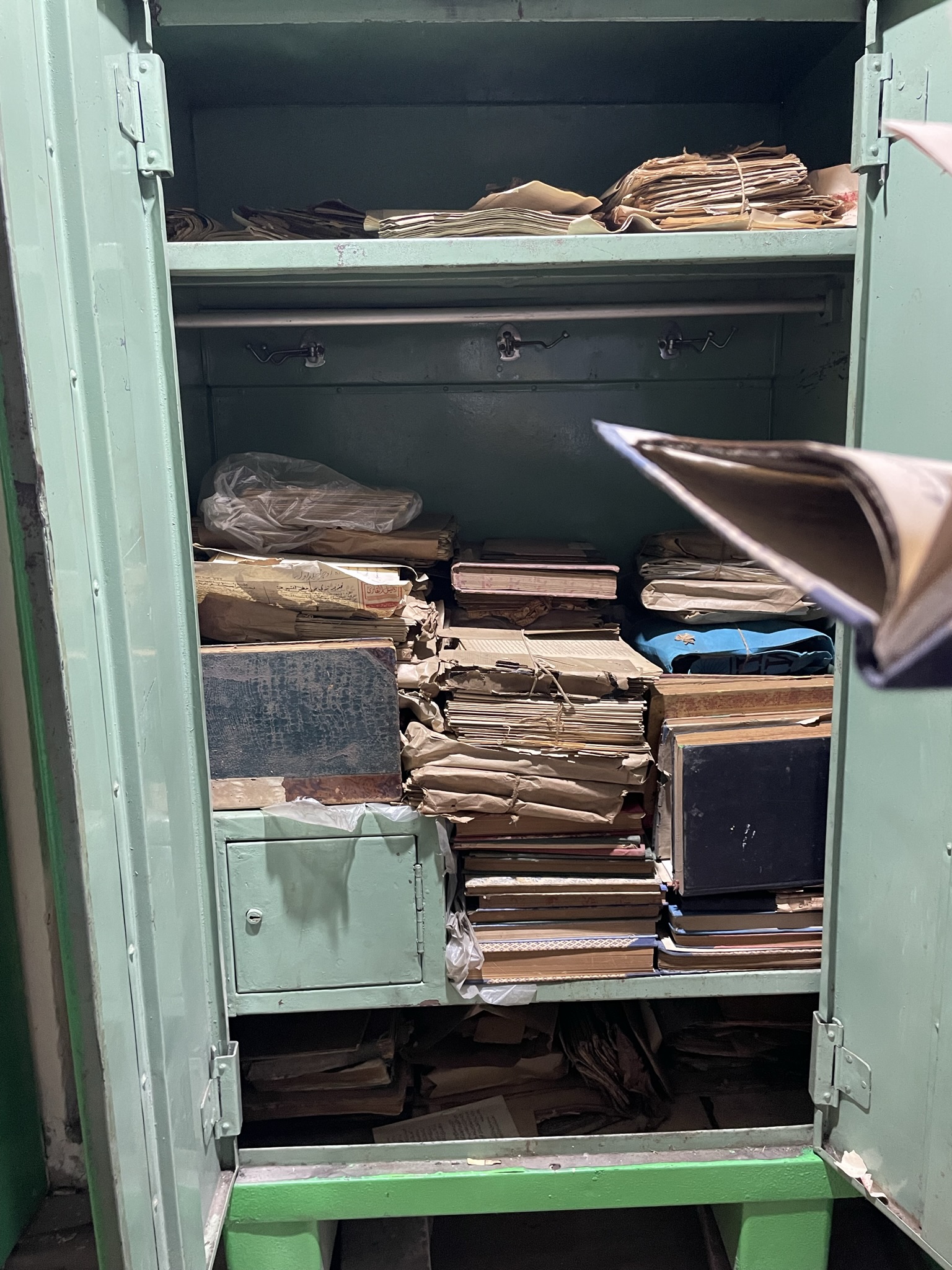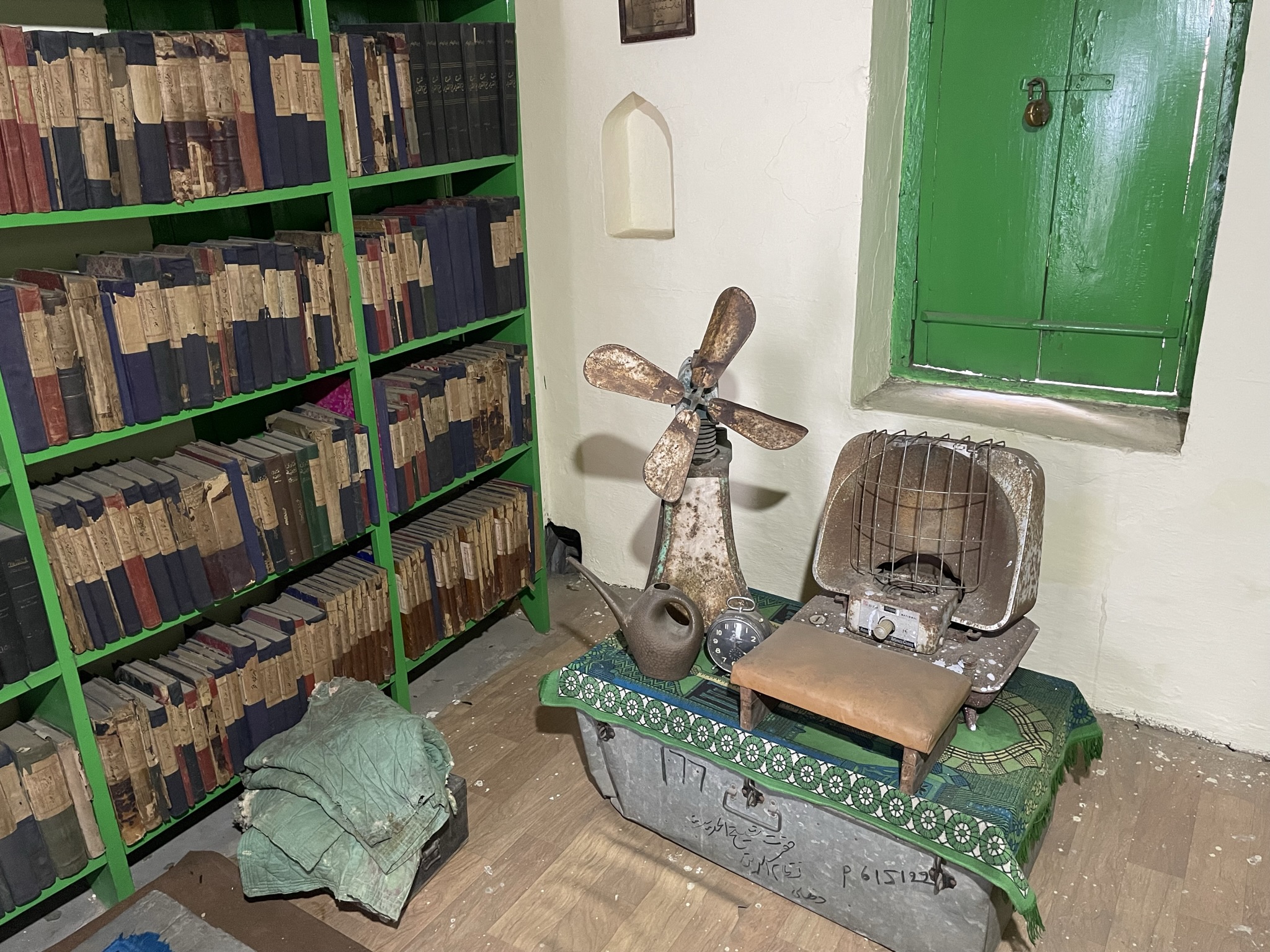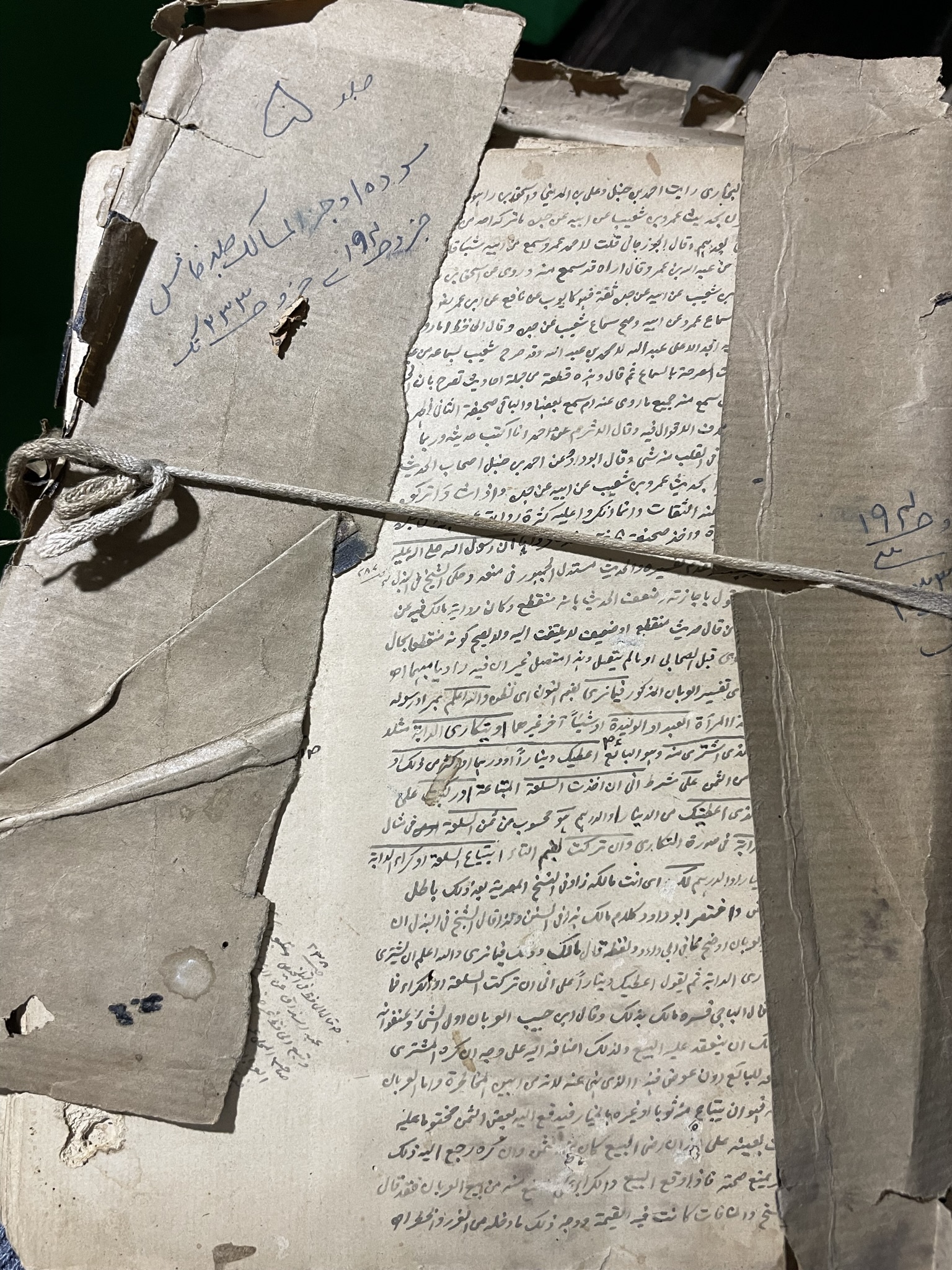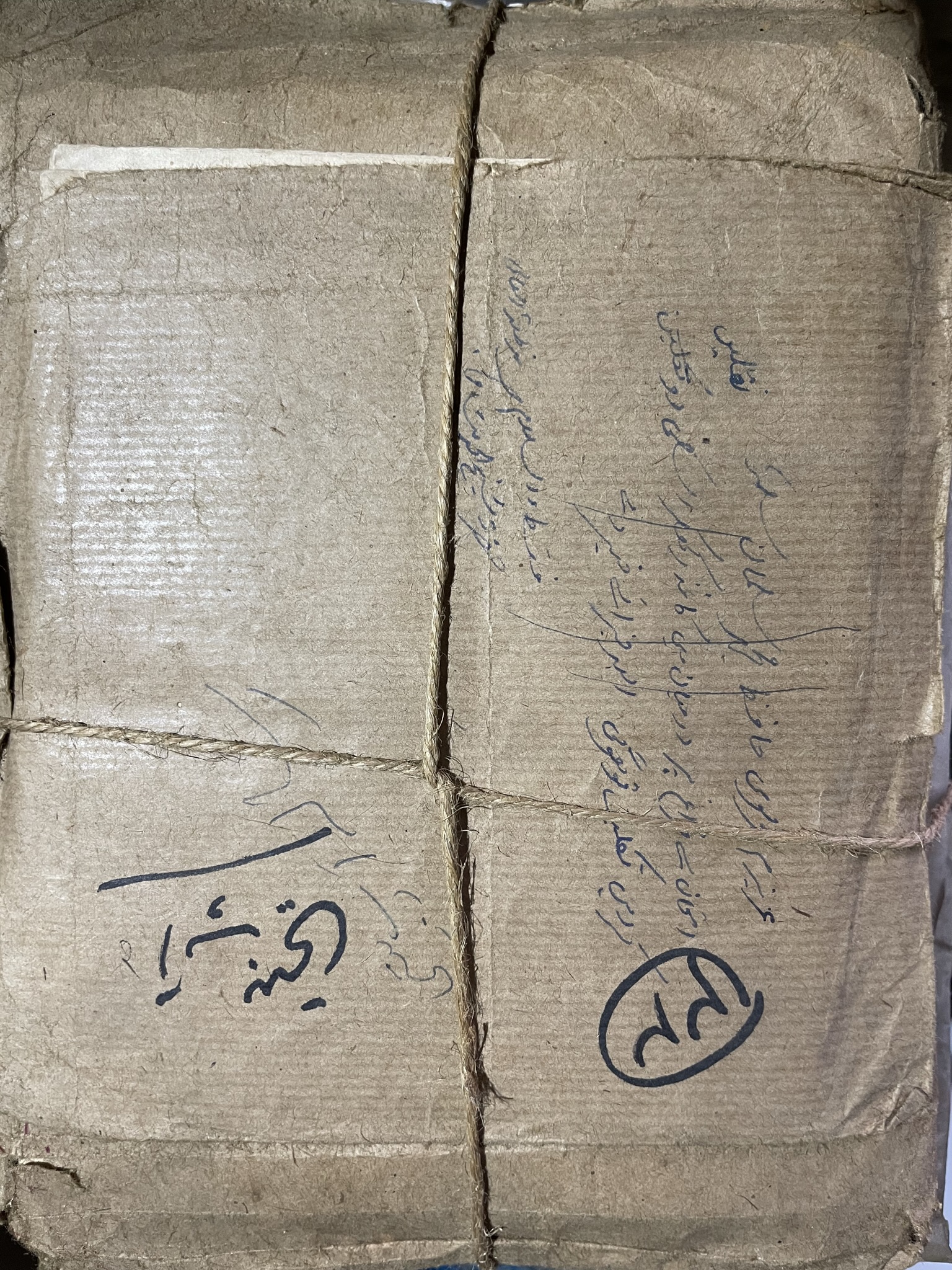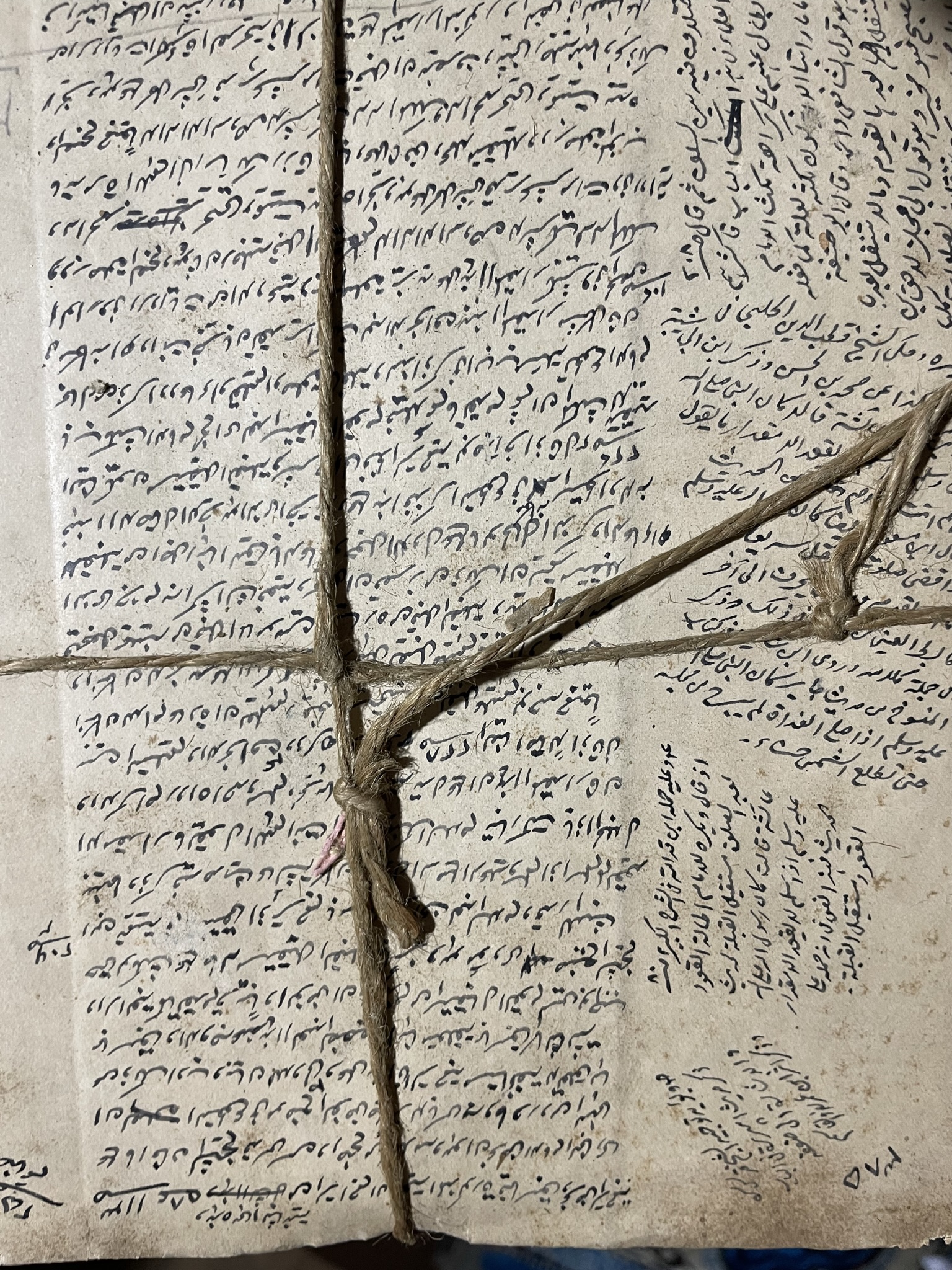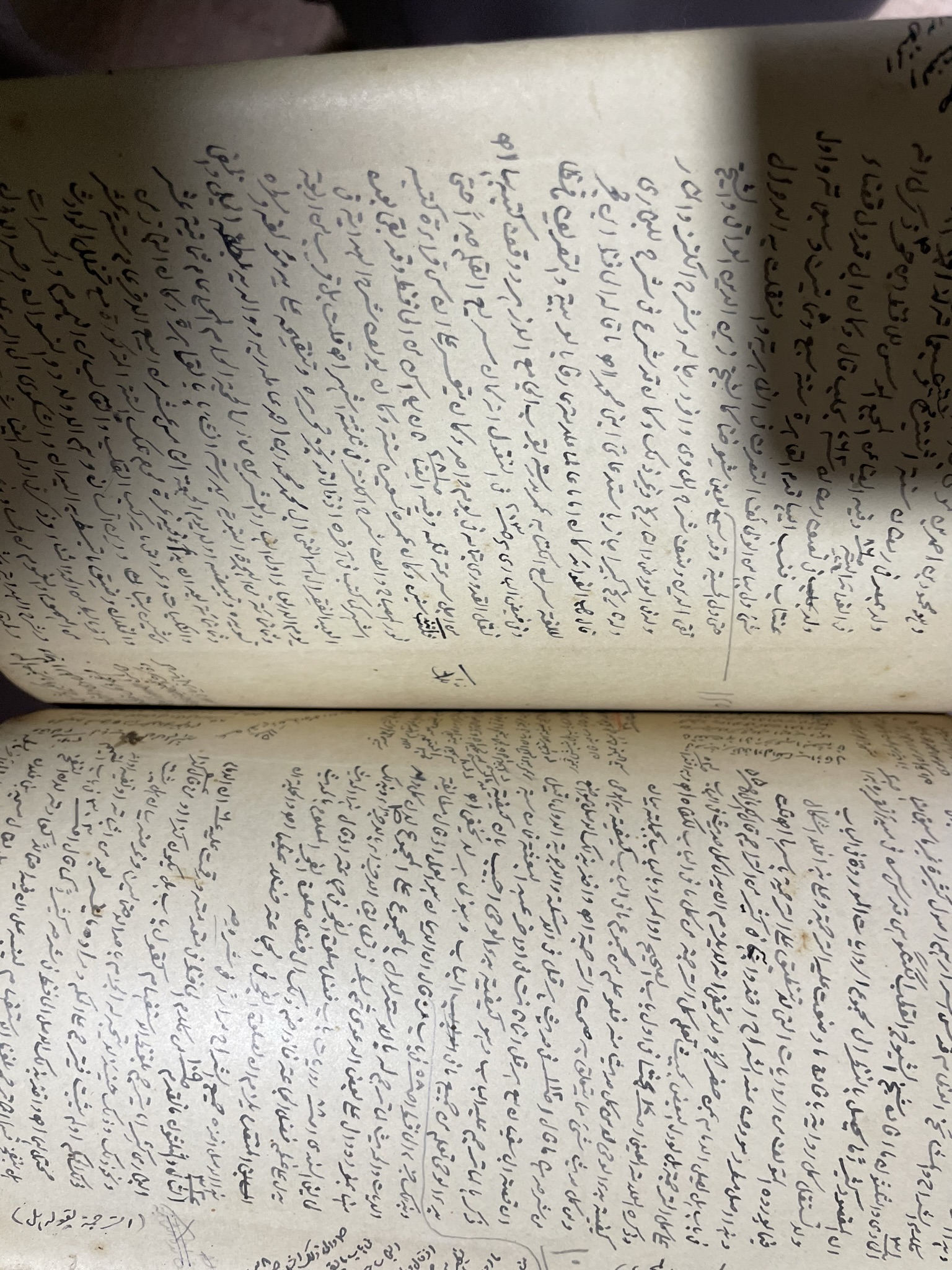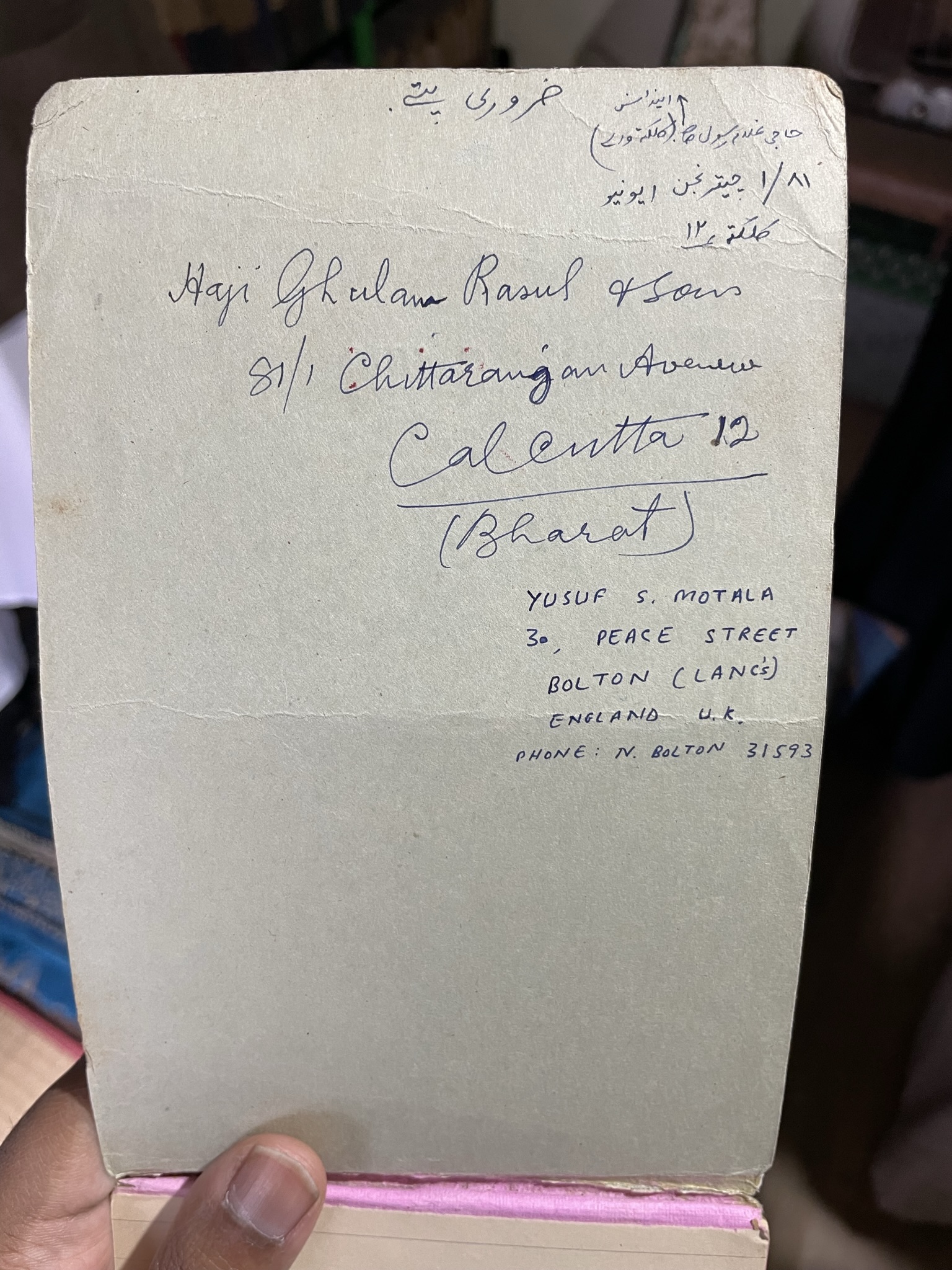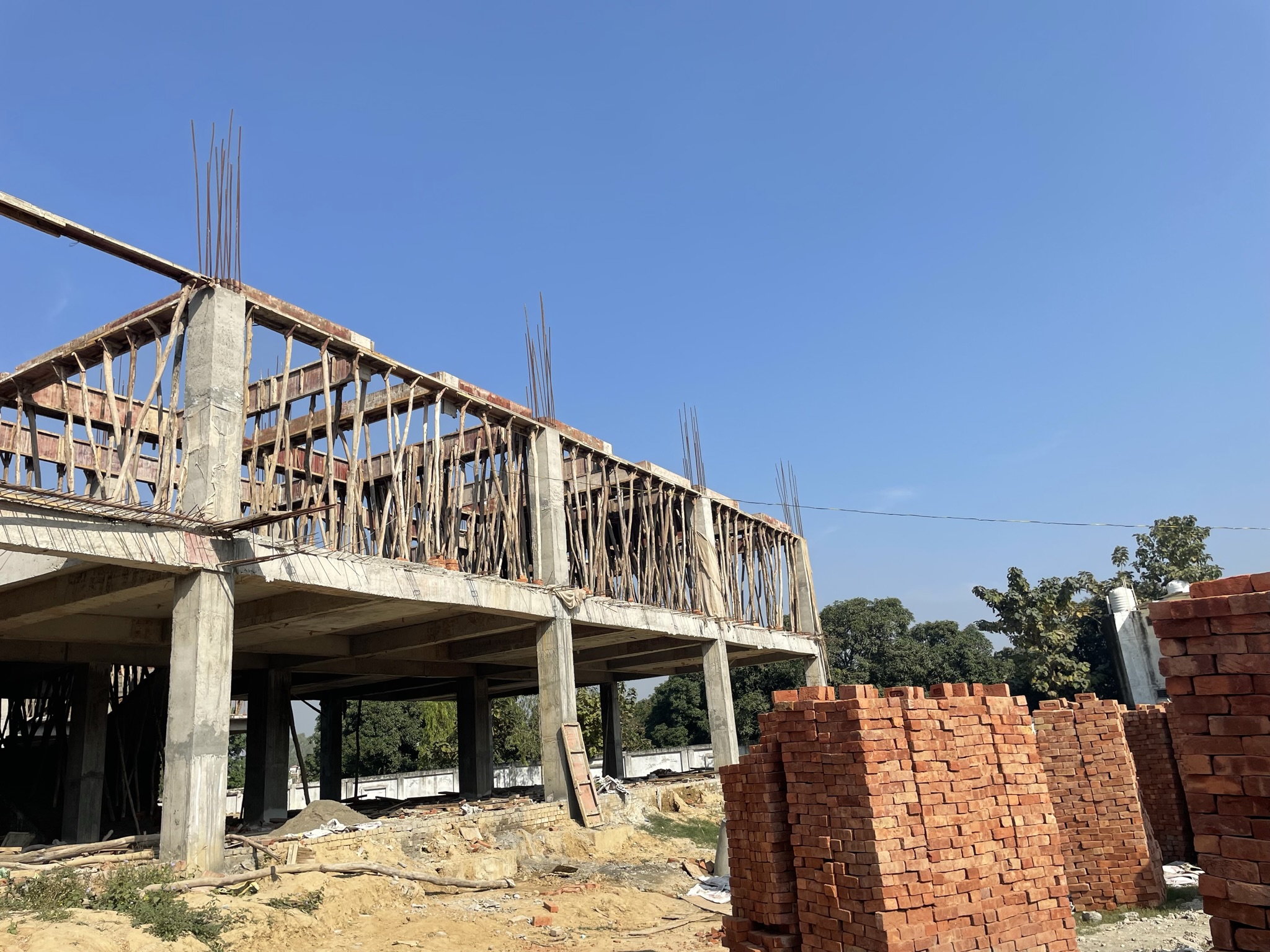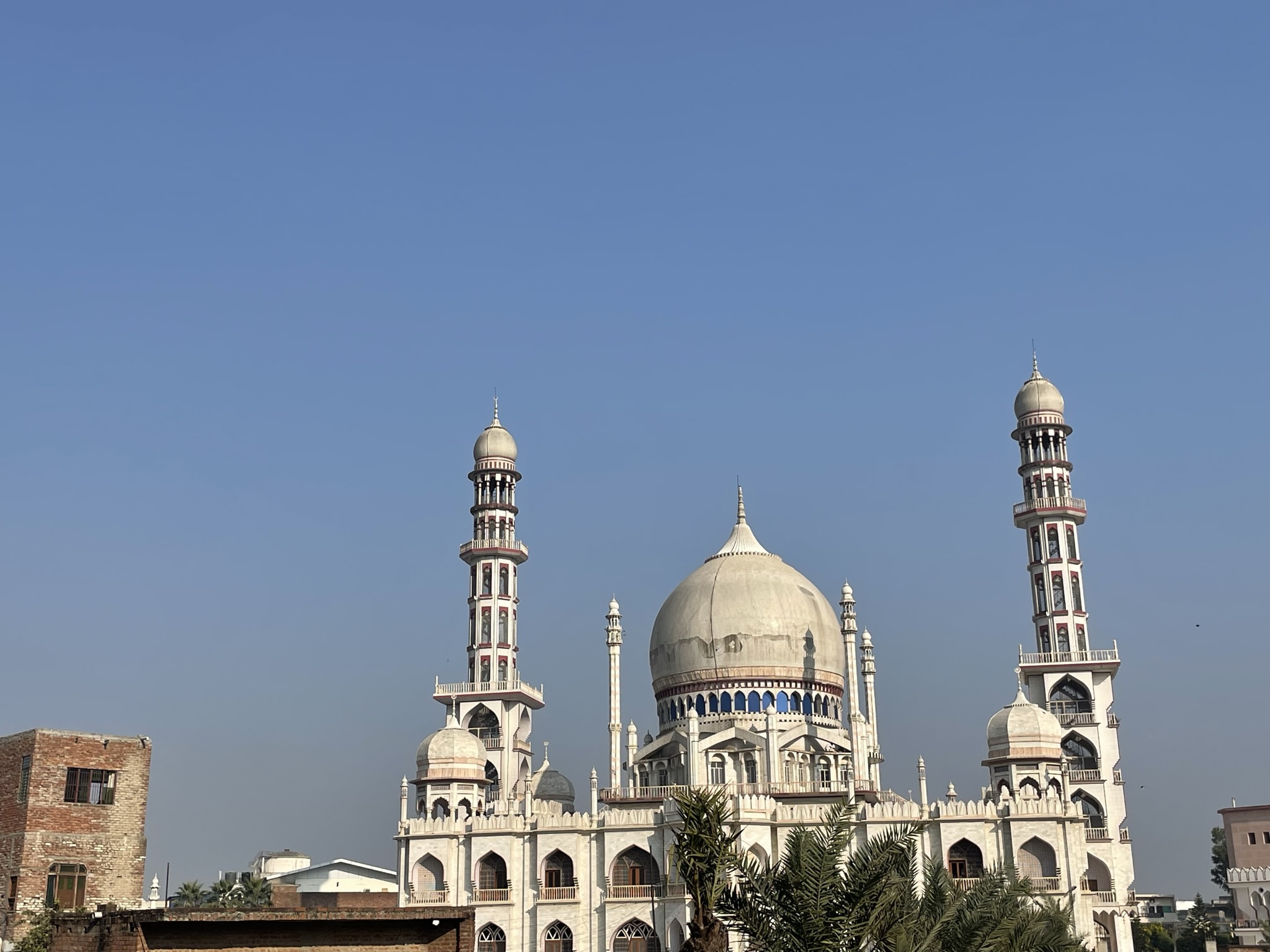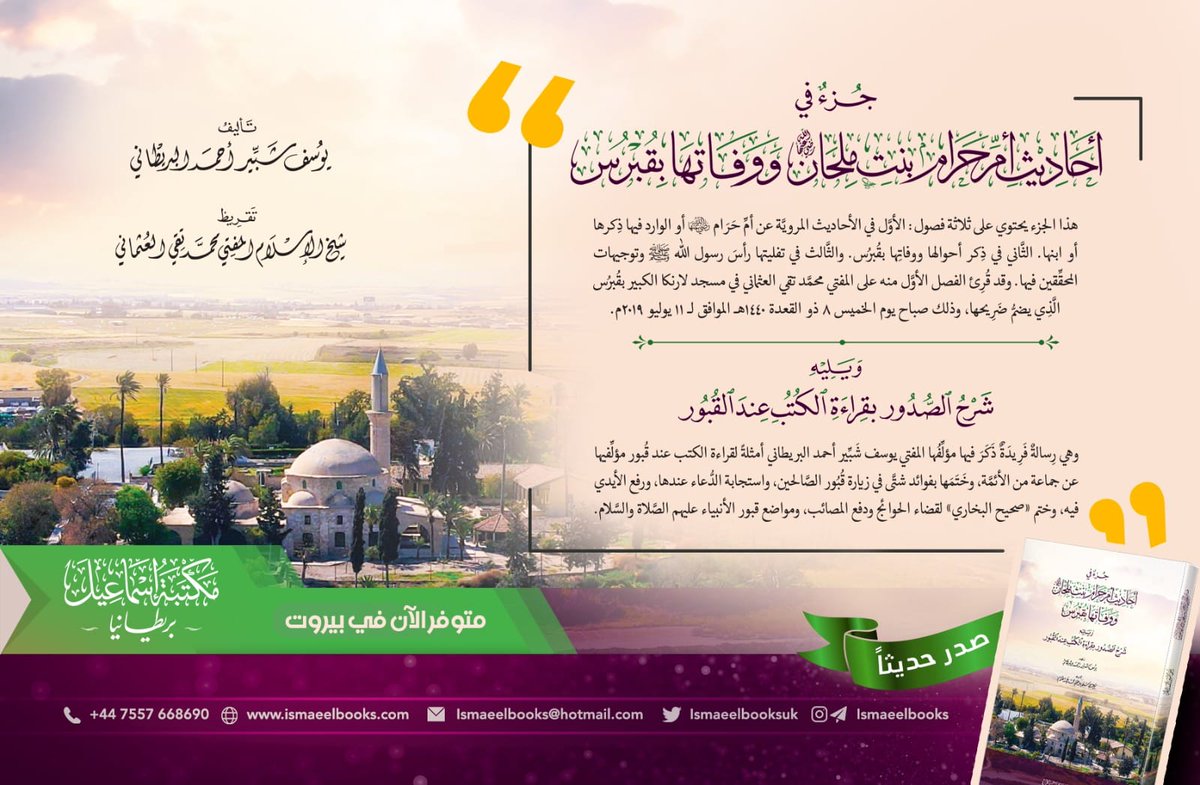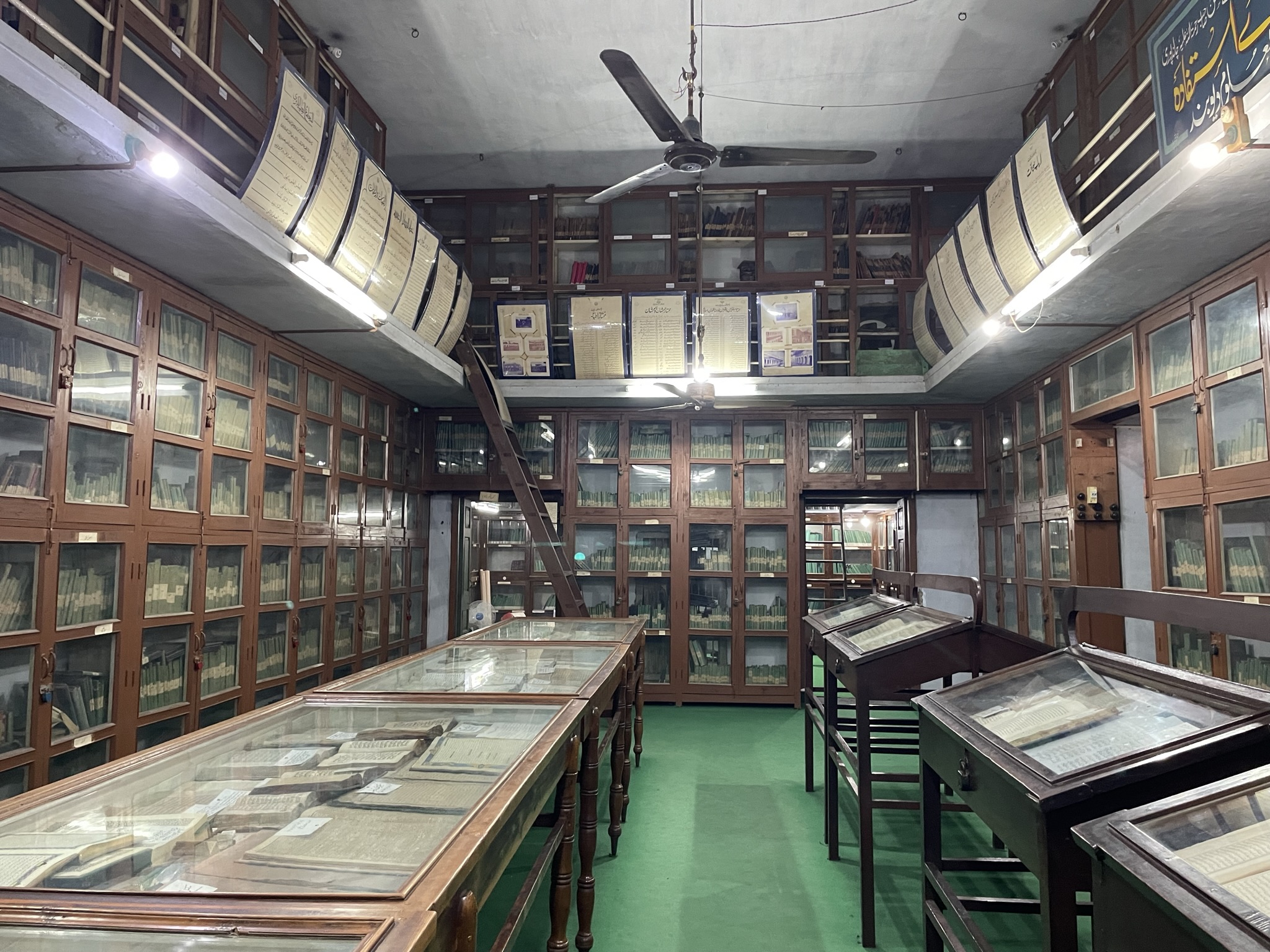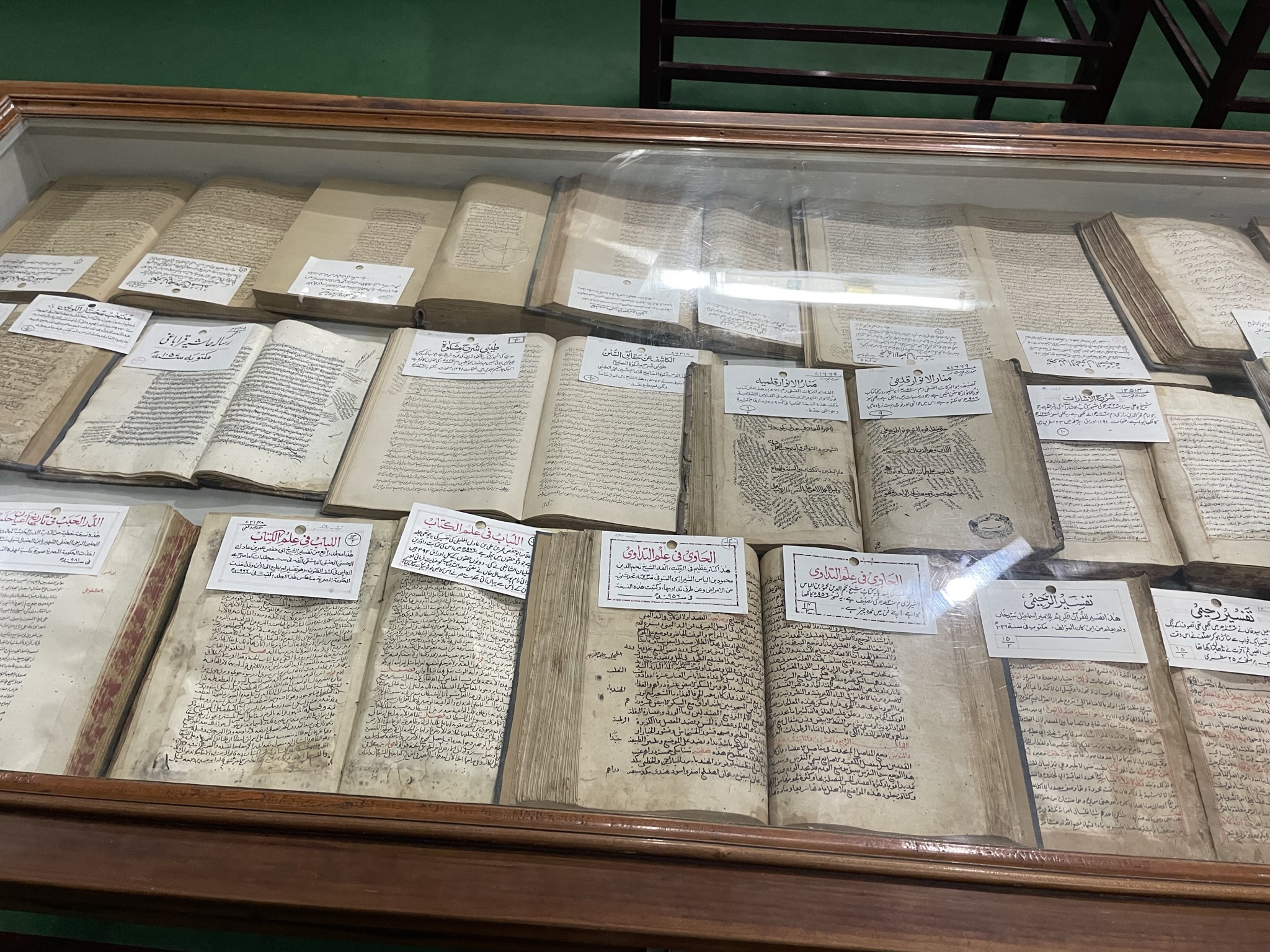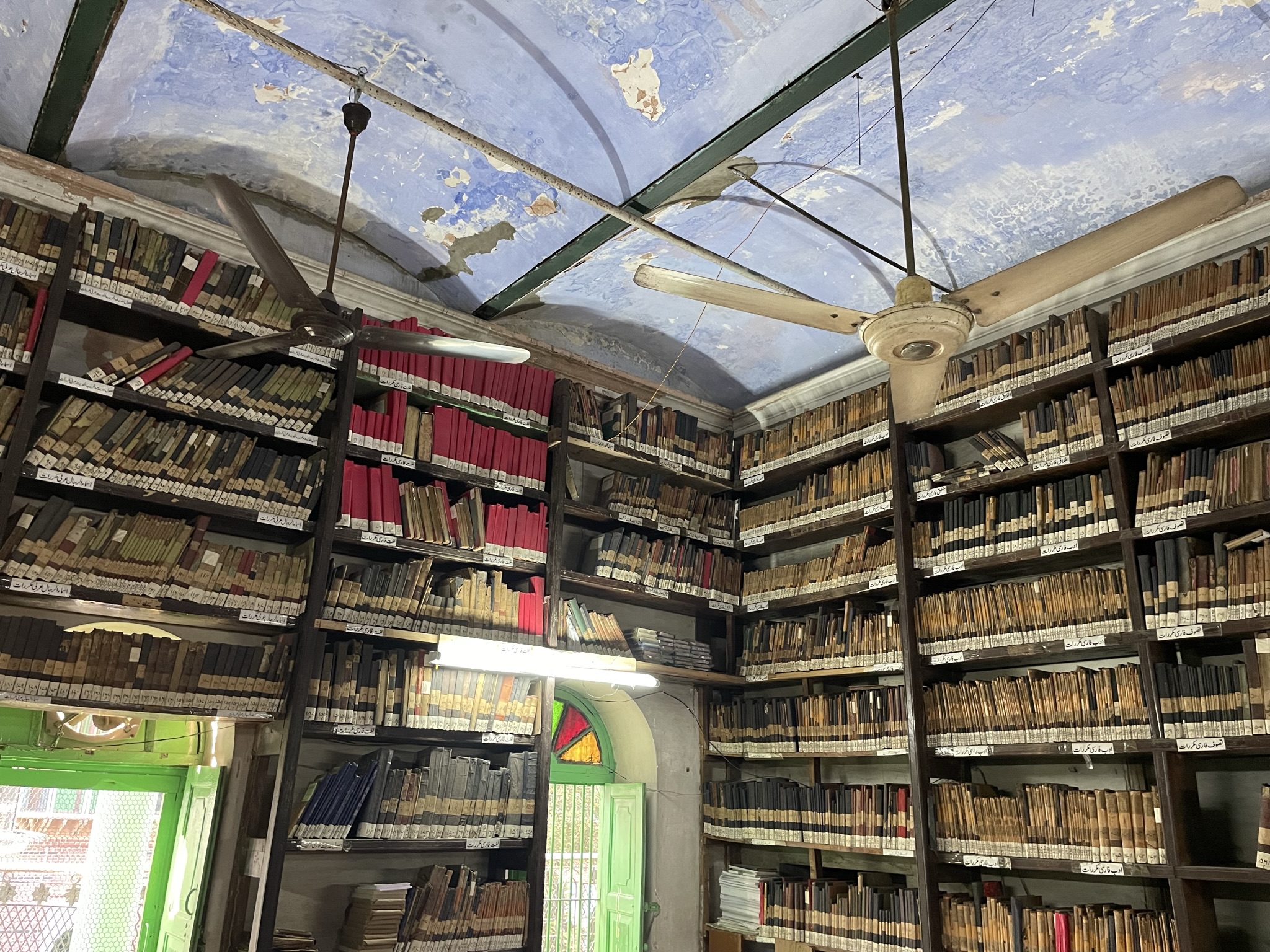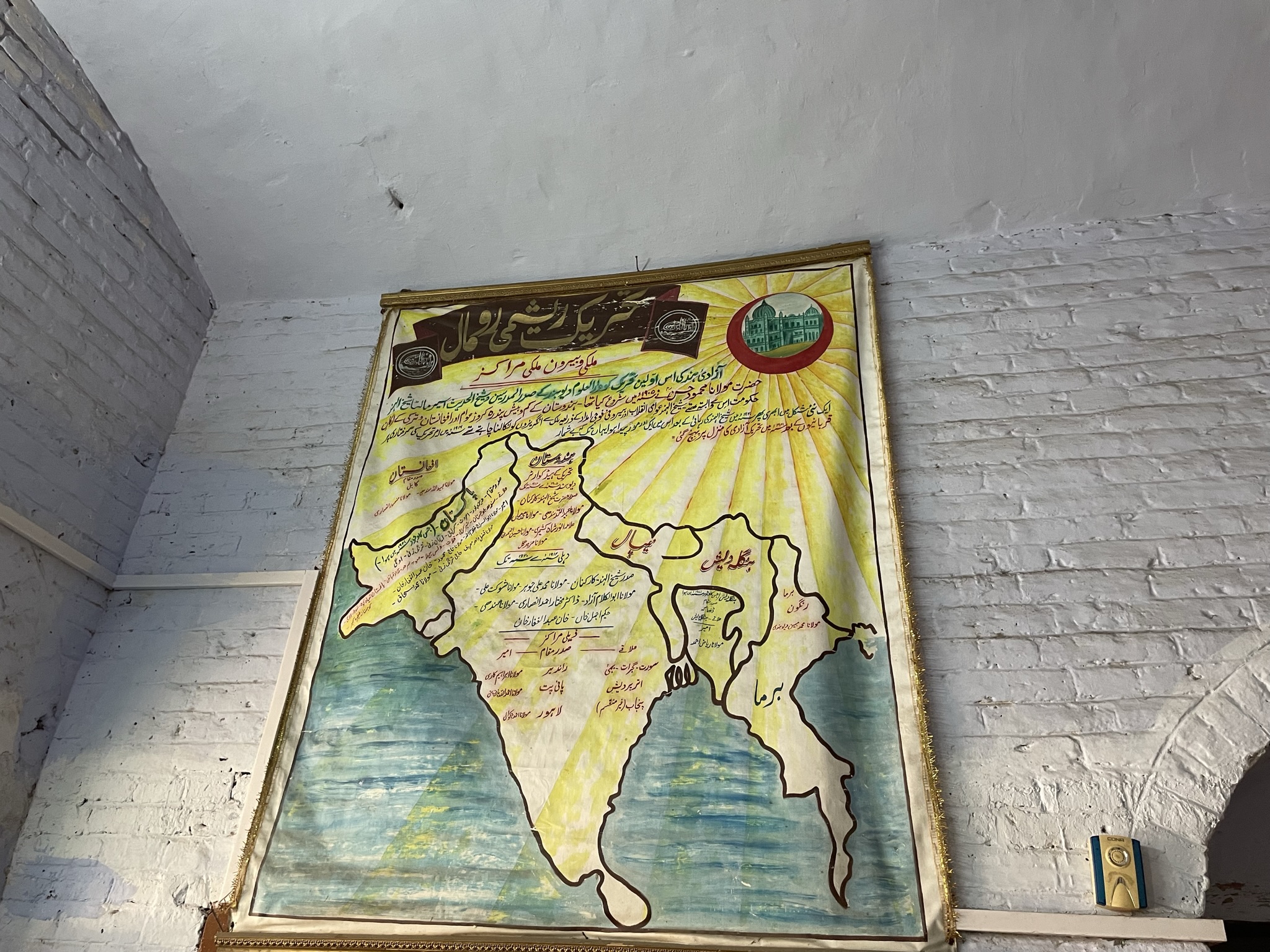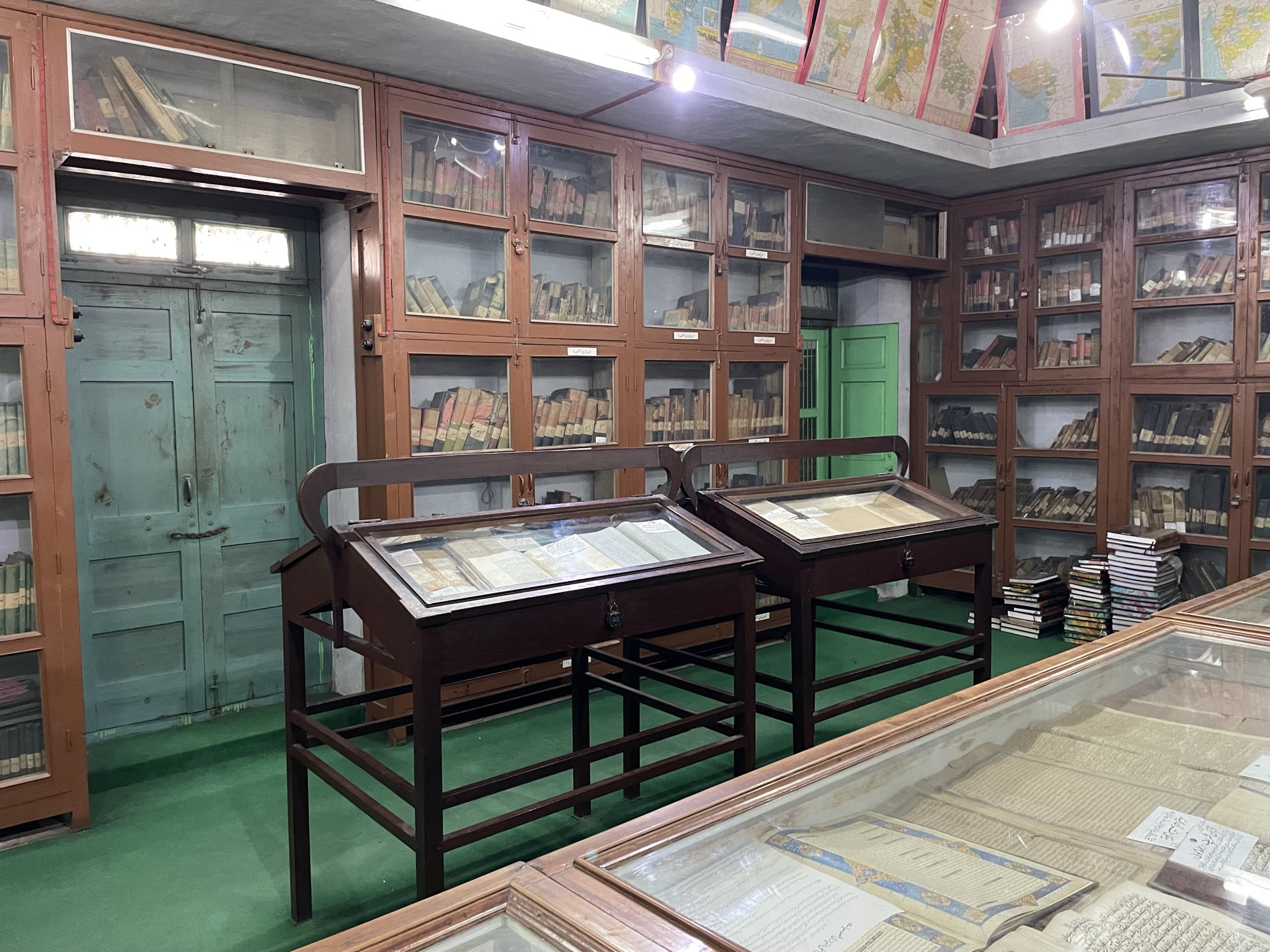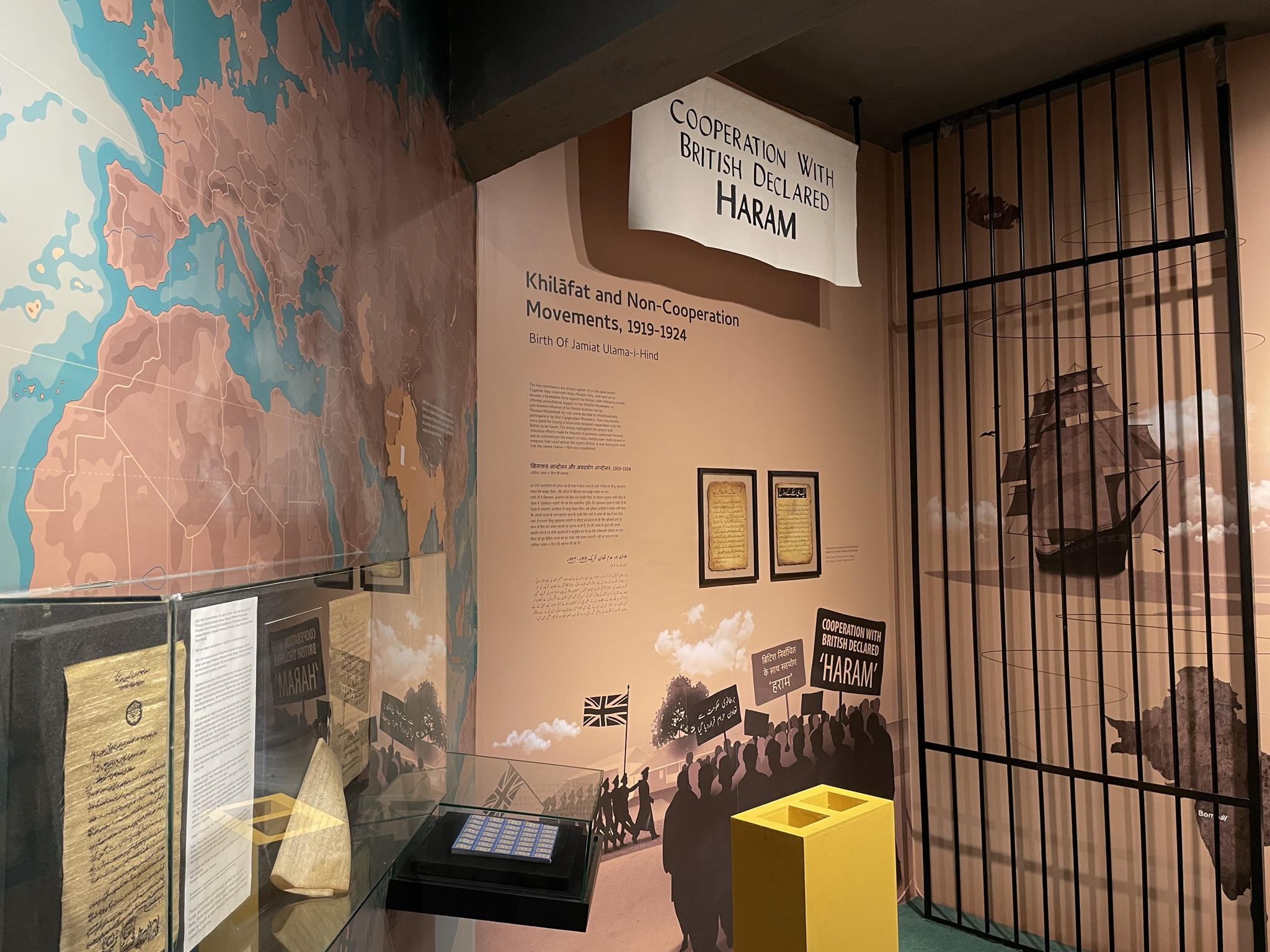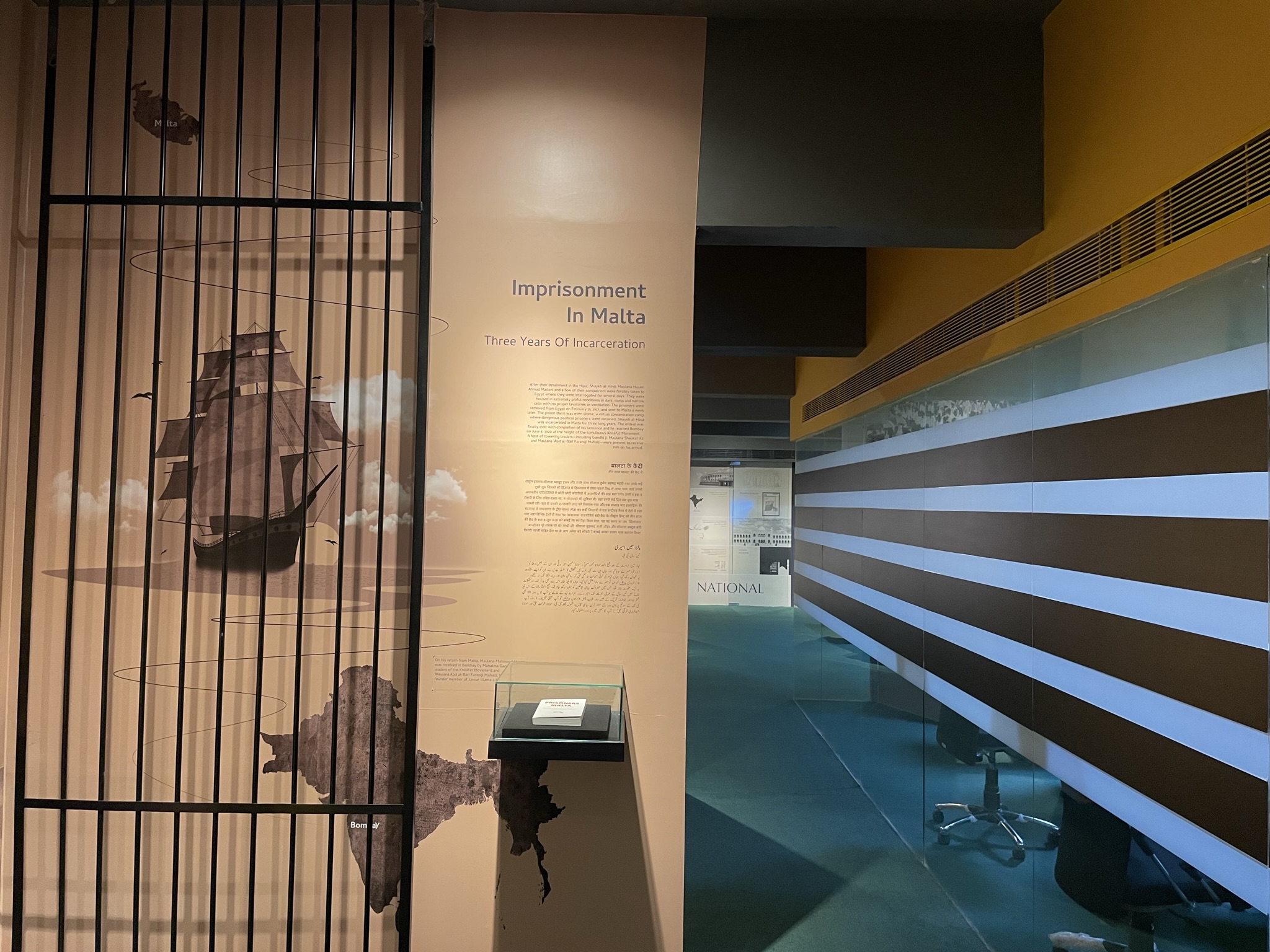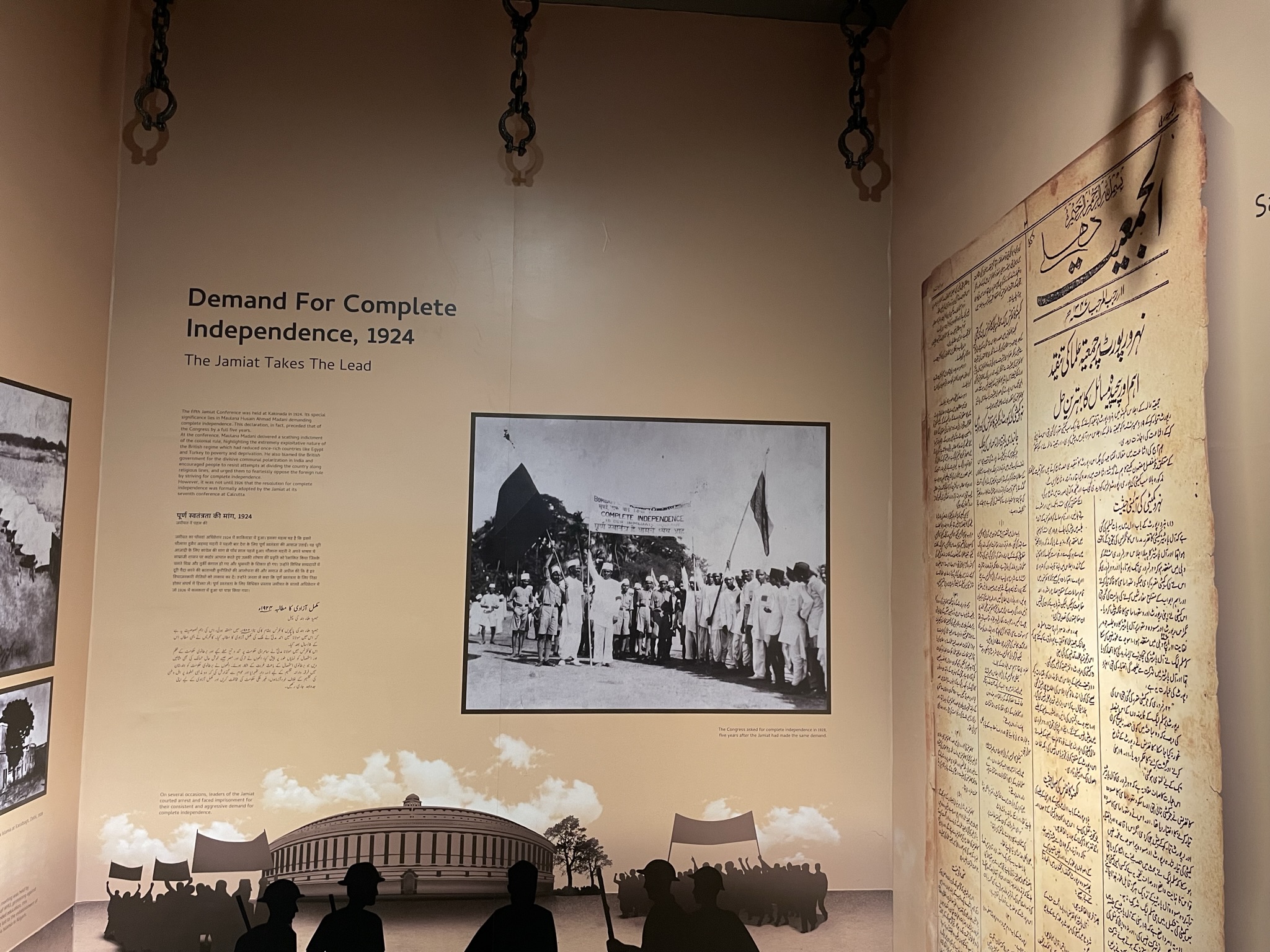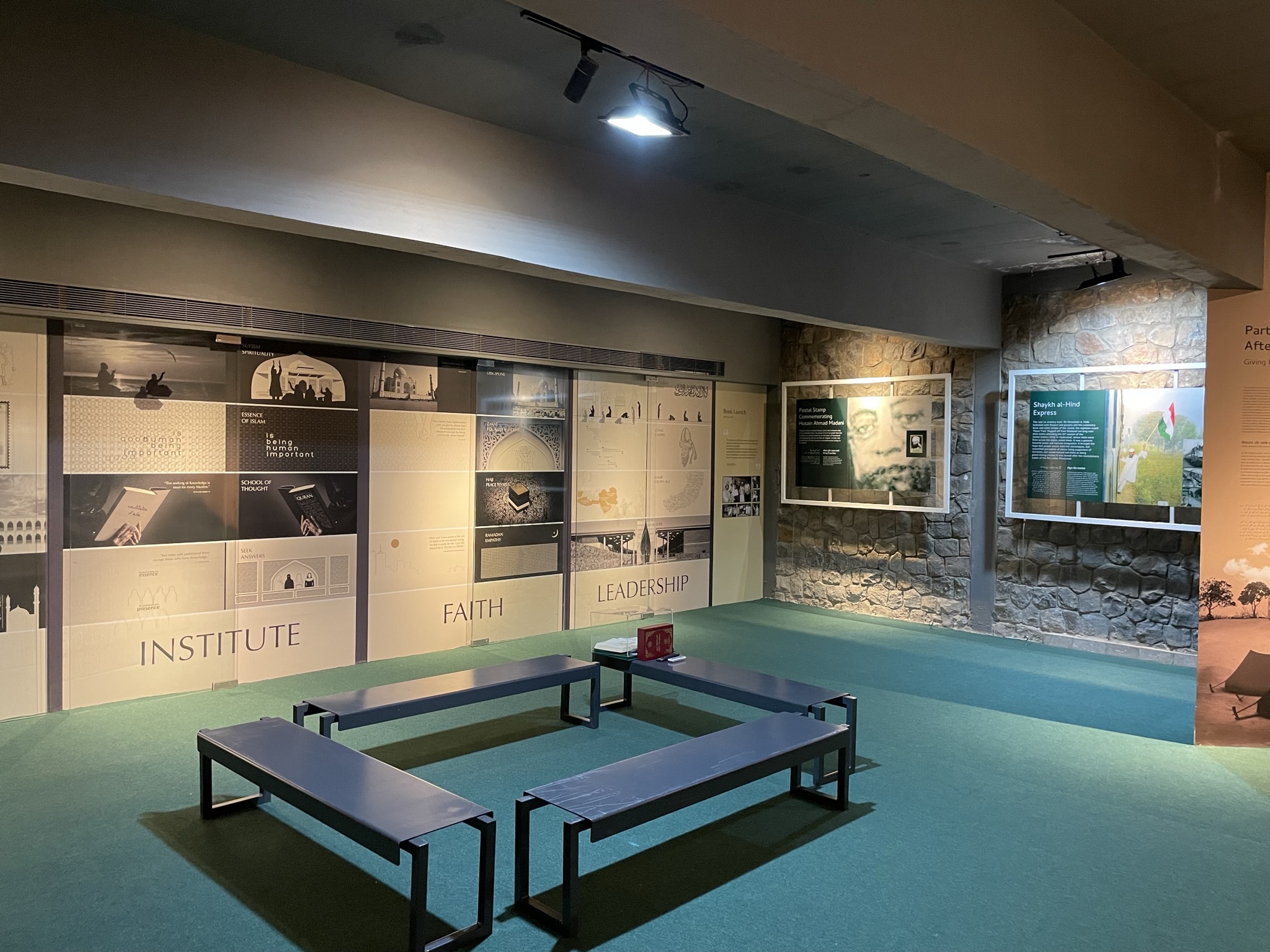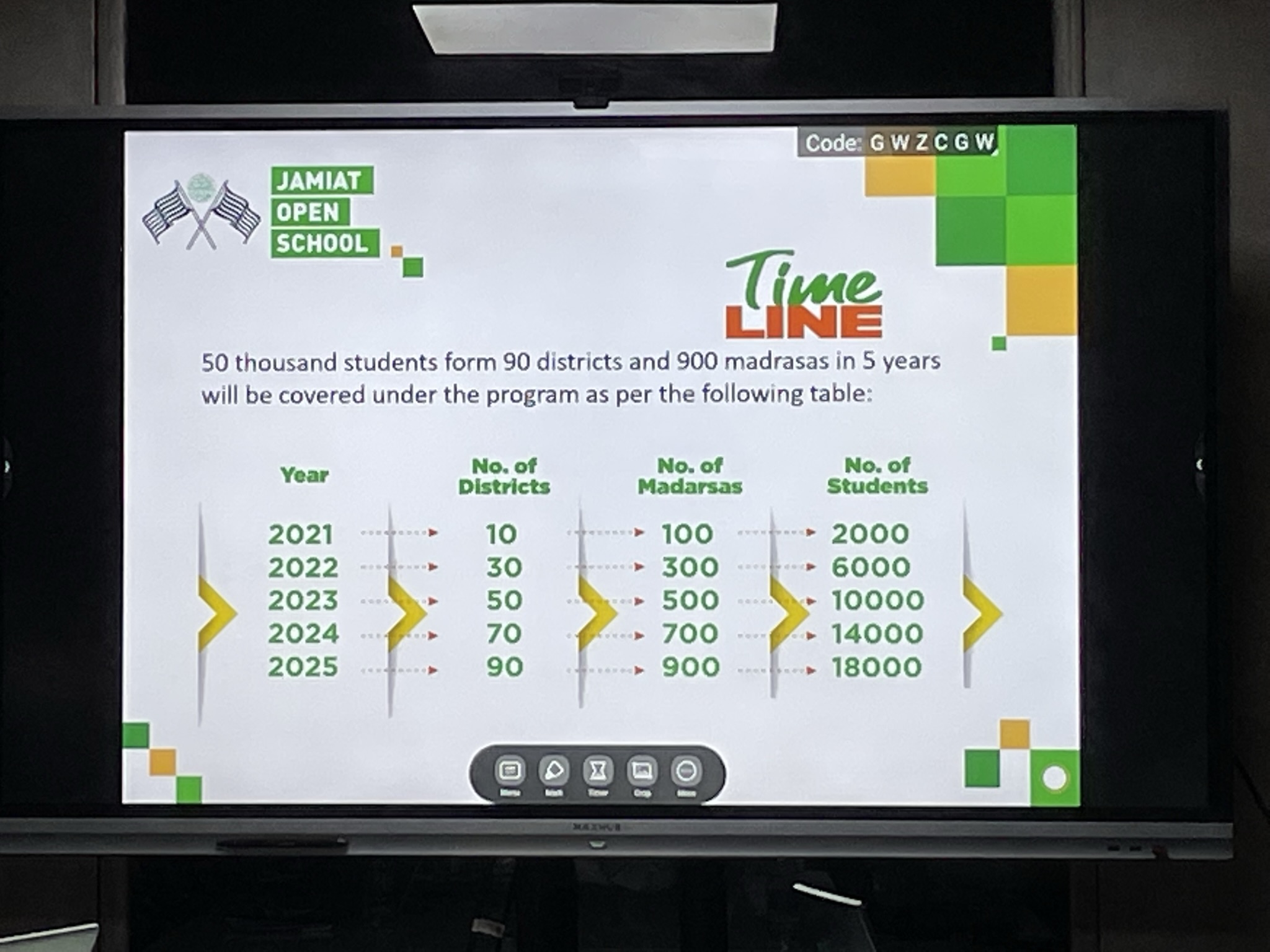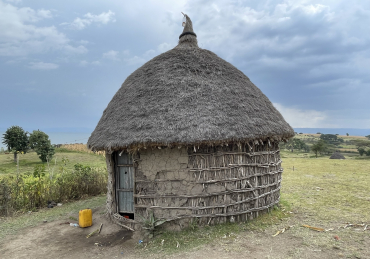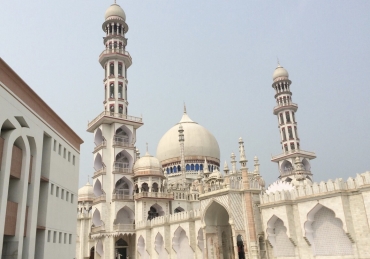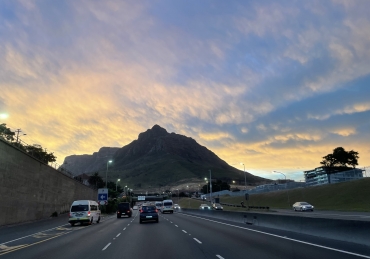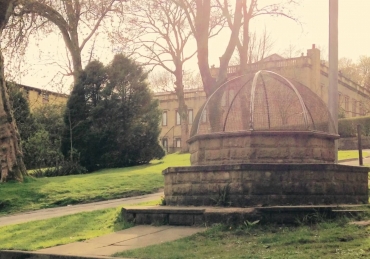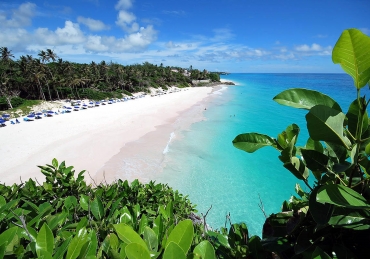Return to Bangladesh and India (Nov 2022)
In the name of Allah, the Compassionate the Merciful
A few weeks ago, our respected Mawlānā Sayyid Arshad Madanī (b. 1360/1941) phoned to inform me that he is visiting the UK for one day. I arranged to meet him in Walsall and during the conversation, he suggested I consider joining him on his forthcoming journey to Bangladesh.
My first ever visit to Bangladesh was in December 2007, when I travelled with Mawlānā Elyas Desai of Preston and Mawlānā Shafīqurraḥmān of the Blackburn based Muslim Welfare Institute (MWI) to the cyclone affected areas of south Bangladesh. During this trip, we visited Khulna and many rural areas in South Bangladesh along with the capital Dhaka. A partial account of this journey is available online. My lasting impression of the Bangladeshi people was that they are friendly, humble and welcoming. Throughout our visit of the rural areas, we were offered a variety of food dishes. However, after a week, we flocked to the Pizza Hut in Dhaka.
Three years later, I returned to Bangladesh on 27 February 2011 for a few days with my colleagues Mawlānā Ḥanīf Dūdhwālā and Mawlānā Rafīq Ṣūfī. During this trip, we visited Sylhet along with Kishoreganj and Netrokona. A brief account of this journey was published in the Muslim Welfare Institute’s Unity Magazine of May 2011, Issue number 114.
Subsequently, in 2015, I acquired visa to travel to Bangladesh, primarily to visit the Masjid built for the reward of our respected teacher Mawlānā ʿUmarjī Ṣāḥib (d. 1435/2014). However, this journey did not materialise. Likewise, earlier this year, I acquired visa but did not manage to travel within the three months visa period.
Bangladesh is home to many learned scholars some of whom I have been interacting with over the past few years. In addition, it is home to many Rohingya refugees and also many poor Bangladeshis. It was therefore my desire for a long time to return to Bangladesh for these multiple reasons, and there could not be a better opportunity than travelling in the company of Mawlānā Sayyid Arshad Madanī Ṣāḥib.
The Bangladeshi Government has also re-introduced visa on arrival for UK passport holders. I thus board the 1.10pm Emirates flight from Manchester to Dubai on Wednesday 16 November 2022 and thereafter take the 3.50am FlyDubai flight from Dubai to Chittagong. The transfer from the Emirates Terminal to the FlyDubai terminal takes 45 minutes. There is no Emirates flight to Chittagong. During the journey, I work on proofreading some articles and travelogues which shall be published soon, Inshāʾ Allah.
Day 1 – Thursday 17 November 2022
Arrival into Chittagong, Bangladesh
Bangladesh
Bangladesh, officially the People’s Republic of Bangladesh, is situated in South Asia and is the eighth-most populous country, with its population exceeding 165 million people in an area of 57,320 square miles. The country shares land borders with India to the west, north and east, and Myanmar to the southeast; to the south it has a coastline along the Bay of Bengal. It is narrowly separated from Bhutan and Nepal by the Siliguri Corridor and from China by the Indian state of Sikkim in the north. Formerly East Pakistan, the country came into being in 1971, when the two parts of Pakistan split after a bitter war which drew in neighbouring India. The country is low-lying and vulnerable to floods, cyclones and rising sea levels. Poverty is wide-spread and the influx of refugees from Myanmar has increased the challenge. The country’s capital and largest city is Dhaka, whilst Chittagong is the second largest city and the busiest port on the Bay of Bengal. The official language is Bengali. 91% of the population is Muslim.
Chittagong
The FlyDubai flight arrives into Shah Amanat International Airport in Chittagong at 10.30am following a four hours thirty minutes flight. I am received at the Airport by Mawlānā Hilāluddīn of Al-Manahil Welfare Foundation Bangladesh who kindly arranges my visa on arrival. My suitcase has not arrived and is expected to arrive tomorrow.
We depart from the Airport and travel towards the city. The Airport is located 20km from the city. This is my first visit to Chittagong. We pass the port area which is among the world’s oldest ports. The city has a long history. It features on ancient Greek and Roman maps and was located on the southern branch of the Silk Road. In the 9th century, merchants from the Abbasid Caliphate established a trading post here. Thereafter, the port fell to the Muslim conquest of Bengal during the 14th century. The Encyclopedia Britannica states:
“Chittagong’s fine natural harbour was known to the Mediterranean world from the early Common Era and to Arab sailors by the 10th century. It was called Porto Grande by Portuguese and Venetian voyagers and was described by João de Barros in 1552 as “the most famous and wealthy city of the Kingdom of Bengal.” It has been generally identified with the city of Bengala described by early Portuguese and other writers. Conquered by the Muslims in the 14th century, Chittagong passed to the Arakanese in the next century. The piratical raids of the Arakanese and their Portuguese mercenaries led to the dispatch of a strong force by Shaista Khan, the Mughal governor (nawab) of Bengal, who in 1666 occupied the region. Chittagong was ceded to the British East India Company in 1760.”
Al-Manahil Nurture General Hospital
As we travel to our first stop, the Al-Manahil Nurture General Hospital, Mawlānā Hilāluddīn gives me an overview of the charity he chairs, Al-Manahil Welfare Foundation and also about himself.
Mawlānā Hilāluddīn’s father, Mawlānā Jamīruddīn (pronounced: Ḍamīruddīn) was a reputable famous scholar in the region who established this Foundation in 1998. He was also the Principal of Jamia Islamia Ubaydiyyah in Nanupur, Fatickchari, which today serves 8500 students, which was established some 65 years ago by Mawlānā Amīruddīn. Mawlānā Hilāluddīn himself graduated from this seminary in 1992 and also studied at Imam Mohammad ibn Saud Islamic University in Riyadh for two years. He, along with his brothers, manages the Foundation along with several seminaries and institutes including the Al-Manahil Nurture General Hospital. The Foundation’s annual budget exceeds £10 million with most of its funding from the Middle East and some European countries including the UK. The Foundation has many projects throughout the country, including building Masjids, tube-wells, supporting 300 Darul Ulooms, medical projects, housing, empowerment and feeding the poor. The Foundation has also been heavily involved with the Rohingya refugees.
We arrive at the Al-Manahil Nurture General Hospital at 11.30am, located in Halishahar, 25 minutes from the Airport. The hospital was established many years ago but was taken over by the Foundation in 2018. It currently has capacity for 80 beds. Some of the specialist departments such as ICU are expected to begin soon. The hospital played a leading role during the Covid-19 pandemic.
Shaykh Jamīruddīn Islamic University
Our next stop is the Shaykh Jamīruddīn Islamic University near Rangamati, which is 50km from Chittagong city. This is a new project established by Mawlānā Hilāluddīn and is currently in the process of receiving accreditation from the Government. Graduates from this university will receive professional qualifications such as BA and Masters alongside their ʿĀlim programme. Currently, there are 450 students enrolled studying in various faculties including 27 in the specialization of Iftāʾ, 16 in Daʿwah and 12 in Arabic language. The earlier years provision is currently until Kāfiyah, and there is also provision for Ḥifẓ Quran.
The institute also serves 35 blind students which is commendable. We meet with the Takhaṣṣuṣ and blind students and gift them some money. We also distribute to some poor and disadvantages people of the area, who have been selected in advance by Mawlānā Hilāluddīn’s team. In total, we distribute 2000 Takas (£16) to 250 people each.
The Bangladeshi people are very hospitable and welcoming. When we arrived here and also at the hospital prior to this, we were greeted with flowers. We are also presented with a range of fruits. This is a good time of the year to visit Bangladesh, the weather remains between 20 and 30 degrees Celsius. The fruits here include pineapples, papaya, guava, banana, pomegranate and dragon fruit. Chittagong is an area of lush greenery and the land is fertile.
Mufti Muḥammad Mufīḍurraḥmān
Whilst at the university, we are delighted to meet one of the lecturers Mufti Muḥammad Mufīḍurraḥmān, who has authored many beneficial works. He was stationed in Pakistan for many years and worked with Bushra Publications to publish many books. His Arabic works include: ‘Al-Wardah al-Ḥāḍirah fī Aḥādīth Talāmīdh al-Imām al-Aʿẓam wa Aḥādīth al-ʿUlamāʾ al-Aḥnāf fī al-Jāmiʿ al-Ṣaḥīḥ li al-Imām al-Bukhārī’ and ‘Tadwīn Madhhab al-Aḥnāf wa Uṣūluhū fī al-Ḥadīth’ in addition to his footnotes on various works including ‘Fatḥ al-Mugaṭṭā Sharḥ Kitāb al-Muwaṭṭaʾ by Mullā ʿAlī al-Qārī’, ‘Nuzhat al-Naẓr fī Tawḍīḥ Nukhbah al-Fikr’, ‘Hidāyah’, ‘Mabādiʾ fī Uṣūl al-Fiqh by Shaykh Muḥammad Akram Nadwī’, ‘Sharḥ al-Wiqāyah’ and other books. An interesting discussion follows regarding the ḥadīths of Hidāyah.
According to the teachers here, the vast majority of the Bangladeshis adhere to the Ḥanafī school, however, they are not rigid. The salary range at this institute is between 12000 Takas (£100) and 40000 Takas (£320) monthly, which is significantly better than the average in India and Bangladesh. Several teachers are from the Middle East.
Return to Chittagong
We depart at 3pm and head back to Chittagong. Mawlānā Hilāluddīn had planned for us to visit the large Darul Uloom in Nanupur which serves 8500 students. Mawlānā and his brothers are responsible for running this seminary. However, due to travelling for 24 hours, I request Mawlānā to return to Chittagong as we have a busy schedule. I suggest in a light-hearted manner to Mawlānā that if everything is visited in one trip, no incentive will remain to return a second time.
We arrive into Chittagong at 4.30pm and check into the Radisson Hotel, a good hotel which provides rooms to Mawlānā Hilāluddīn Ṣāḥib for very cheap.
Al-Manahil Welfare Foundation Headquarters
We arrive at the Headquarters of Al-Manahil Welfare Foundation in Chittagong city at 6.30pm and discuss a range of issues including economic empowerment of scholars and the plight of the Rohingya refugees.
Some files are also inspected, particularly those related to the funding from Imdadul Muslimeen, Blackburn, via whom I was introduced to the Foundation. One of the strange things in Bangladesh is that along with securing approval for each project from the NGO Affairs Bureau prior to receiving any foreign funding, the Government charges NGOs a tax on each project. As mentioned above, the Foundation’s annual budget exceeds £10 million and has projects all over the country. Allah Almighty take them from strength to strength and accept all their efforts. At the end of the meeting, Mawlānā Hilāluddīn requests me to share some advice with the charity’s staff. I remind myself and those present to adopt Ikhlāṣ and do everything for the sake of Allah, the remuneration should not be the ultimate objective or the motive.
Shaykh Muḥammad Sulṭān Zawq (Dhawq) Nadwī
At 8.30pm, we arrive at the residence of the 84-year-old Shaykh Muḥammad Sulṭān Zawq (Dhawq) Nadwī, a disciple of Shaykh Abū al-Ḥasan ʿAlī Nadwī (d. 1420/1999), in the Bahaddarhat area of the city. He founded the Jamia Darul Jamia Darul Ma’arif Al-Islamia upon the instruction of Shaykh Abū al-Ḥasan ʿAli Nadwī who had written to him after his visit to Bangladesh to setup an institute on the model of Nadwatul Ulama, combining religious and worldly sciences so that the challenges of the 21st century can be addressed adequately. The institute was thus established in 1985 and currently serves 1600 students. Many of the alumni of the seminary have acquired doctorates from various countries.
Shaykh Muḥammad Sulṭān is a widely respected scholar. He warmly welcomes us and lays out food for us. He begins by praising and thanking our dear Abdur Rashid Bhai Geloo for all his assistance including when he visited the UK and for his support of hundreds of Darul Ulooms throughout the country. He gifts me an Urdu book providing insight into his life. I promise to send him my books tomorrow once the suitcase arrives.
Thereafter, I request Shaykh for Ijāzah in Ḥadīth. Shaykh very kindly reads the Musalsal bi al-Awwaliyyah, the Musalsal bi al-Maḥabbah and also the Musalsal bi al-Muṣāfaḥah. Thereafter, he also grants a written Ijāzah. Shaykh has Ijāzah from many scholars including Shaykh al-Ḥadīth Mawlānā Muḥammad Zakariyyā (d. 1402/1982), Ḥāfiẓ al-Ḥadīth Mawlānā Muḥammad ʿAbdullāh Darkhwāstī (d. 1415/1994), Shaykh ʿAbd al-Fattāḥ Abū Guddah (d. 1417/1997) and Qārī Muḥammad Ṭayyib Ṣāḥib (d. 1403/1983). However, his shortest chain is via Shaykh ʿUbaydullāh Amritsarī who narrates from Ḥakīm al-Ummah Mawlānā Ashraf ʿAlī Thānawī (d. 1362/1943) who narrates from Mawlānā Faḍlurraḥmān Ganjmurādābādī (d. 1313/1895) who narrates from Shāh ʿAbd al-ʿAzīz (d. 1239/1824). I am grateful to Allah Almighty for this opportunity and thereafter to my friend in London, Mawlānā Maḥfūẓ Aḥmad Sylhetī, who suggested I should meet him.
Before departing, I ask Shaykh for some advice. He says,
“Ḥājī Imdādullāh said: The closest route to reach Allah is to provide religious benefit to His creation.”
May Allah prolong Shaykh’s life and grant him ʿĀfiyah.
We take leave from Shaykh, visit the neighbouring Jamia Darul Jamia Darul Ma’arif Al-Islamia and proceed to the restaurant within The Peninsula hotel.
The food is good. A large lobster is served, which is not to my taste.
Mawlānā Hilāluddīn agrees that prawns and lobsters are not fish, and that if fish is ordered, prawns or lobsters would not be served. It is a separate matter that the wide consumption of these foods and the flexibility within other schools combined with the difference of opinion within ḥanafīs reduces the severity of the issue, as outlined in our detailed answer online.
It has been a long day and it is therefore time to rest.
Day 2 – Friday 18 November 2022
Bhasan Char, the world’s largest island prison
Bhasan Char
It is an early morning start at 7am as we travel to the port with a team of Al-Manahil Welfare Foundation staff which includes brother Meraj who converses in fluent English. Two fast speed boats are hired to take us to Bhasan Char Island, one for us passengers and the other to transport 500 blankets which I had requested the Foundation to purchase for distribution. This is because money cannot be distributed to the Rohingya refugees on the Island.
The background to this journey is that Bangladesh is home to approximately 1 million Rohingya refugees who do not possess Burmese citizenship, nor do they possess Bangladeshi citizenship. The vast majority of these refugees reside in Cox Bazar. However, in 2015, the Bangladeshi Government suggested to resettle the refugees on this island. This was opposed by the United Nations. Human Rights Watch described it “a human rights and humanitarian disaster in the making”. The Bangladeshi Government nevertheless proceeded and started to build homes. There are approximately 32,000 refugees on the island at the moment. The first influx arrived in December 2020. Once the refugees arrive here, they are unable to leave unless there is a compelling reason and this is one of the reasons the Government is not keen on donating cash to the refugees, so that they are unable to escape. This is what we were informed, and Allah knows best.
We depart on the high-speed boat at 8am and move deep into the Bay of Bengal. The distance between Chittagong and the island is approximately 50km, and the journey takes 80 minutes. The refugees however do not have the luxury of travelling on speedboats. They travel on large ships and the journey takes several hours. Many are forced to move here, whilst others assume the quality of life will be better.
We arrive at the office of the island authorities at 9.30am and await the main person. Movements here and charitable efforts here are strictly controlled. We interact with the officials who request us for gas and some other forms of support.
We tour parts of the island and interact with the Rohingya people. The housing is good here but there is no freedom. It is nothing short of a prison. It is probably the largest prison island in the world. It is a stain on the Bangladeshi authorities and the Bangladeshi people. The island was previously uninhabited and the government only started building houses here to isolate the Rohingya refugees and control their movements and whereabouts. This is against Islamic and humanitarian principles.
As the preparations are underway for the distribution of blankets, we visit a Madrasah. We interact with a teacher and meet with the main person, Mawlānā ʿAbd al-Jalīl, a graduate of the Hathazari Darul Uloom. He informs us that people are not happy on the island, they cannot go anywhere. There are four Madrasas here with ten teachers each. We gift some money to the teachers. The authorities built the houses along with Madrasah which is commendable. There are Christian missionaries operating here, although their presence in Cox Bazar is greater. Mawlānā confirms that there is a good Tablīg effort on the island. Five of the scholars have spent one year in the path of Allah. He also confirms that all forty teachers have no remuneration.
We return to the office of the island authorities where the refugees have gathered. We begin distributing the 500 blankets. This is one of the saddest days in my life. I have visited Palestine, Afghanistan, Syria, Kashmir and many countries. I have not visited Cox Bazar but have heard of the situation there. However, I have never come across a situation where 32,000 people are confined to a small island without any right of leaving the island, in effect being treated like lifetime criminals. This is no criticism on the officials on the island who treated us with a lot of respect and dignity and who are working very hard for the Rohingyas. It is, however, an attack on the state sanctioned policy which is shameful. The Bangladeshis and international community should take a moral stand and oppose this policy in every way possible. A few days after the visit, I tweet the following summing up the visit:
Last Fri was among the saddest days of my life. I visited Bhasan Char Island, Bangladesh where 32000 Rohingya Muslims reside. The housing is good but they cannot leave the island. It’s a prison. It took us 75 mins in a speedboat to reach. Ulama have no salary. Allah forgive us. pic.twitter.com/LwZbn3y6BK
— Dr Yusuf Shabbir (@ibn_shabbir) November 25, 2022
We depart from the island at midday and arrive in Chittagong at 1.15pm. The return journey is smoother than the outbound journey. In the rainy season, the water becomes very rough, I am informed.
Mawlānā Sayyid Arshad Madanī’s arrival
As soon as we reach mainland, we head to the Airport Masjid and perform Jumuʿah Ṣalāh. After Ṣalāh, I collect my suitcase, there are some delays as the Customs staff are not available. Bureaucracy in some developing nations tests your patience.
Our respected Mawlānā Sayyid Arshad Madanī’s flight is delayed by thirty minutes. He is flying from Delhi to Chittagong via Calcutta. He arrives at 3pm with his grandson, Mawlānā Khabbāb. Many of his students and well-wishers are at the Airport to receive him. It is renown and evident that the people of Bangladesh have a special attachment with Mawlānā’s father, Shaykh al-Islam Mawlānā Ḥusayn Aḥmad Madanī (d. 1377/1957) and the entire Madanī family. Mawlānā is delighted to see me and requests me to travel with him in the same car.
Mawlānā Ḥusayn Aḥmad Madanī and Bangladesh
We depart from the Airport and head to the famous Darul Uloom Hathazari, north of the city. I brief Mawlānā on my visit to the Bhasan Char island. He questions what the Government has achieved by this policy, as 32,000 is a very small fraction of the one million Rohingya refugees in the country. He further mentions that there are many scholars in jail in Bangladesh, many of whom were jailed simply for protesting against Modi’s visit in 2021. There is an overwhelming resentment against the Government both inside the country and also among the diaspora outside. Mawlānā adds that the judicial system here is worse than India; in India there is a slight degree of independence, whereas in Bangladesh the Judiciary is totally controlled by the executive.
On the way to Hathazari, Mawlānā Arshad Ṣāḥib shares with me the detailed story behind his father’s connection with Bangladesh and why he is deeply admired and loved here. The story starts with Mawlānā Ḥusayn Aḥmad Madanī travelling to Calcutta in 1920 at the request of his teacher and mentor Shaykh al-Hind Mawlānā Maḥmūd Ḥasan Deobandī (d. 1339/1920) and ends with the Iʿtikāf in Sylhet in 1947, which was attended by Mawlānā Arshad Ṣāḥib as a 5–6-year-old child. Mawlānā explains:
“Mawlānā Āzād of Calcutta requested Shaykh al-Hind who had just returned from Malta, to send a scholar to teach in his Madrasah in Calcutta, someone who was acquainted with the writings of Ibn Taymiyyah Raḥimahullāh and Ibn al-Qayyim Raḥimahullāh. Shaykh al-Hind mentioned this to ʿAllāmah Shabbīr Aḥmad ʿUthmānī and others, however they apologised. Shaykh al-Hind thereafter mentioned this to my father and he agreed to go. He departed from Deoband and upon reaching Amroha (140km from Deoband), received the news of Shaykh al-Hind’s demise. He returned to Deoband and upon his arrival saw the people returning from Shaykh al-Hind’s burial. Thereafter, he travelled to Kolkata and joined Mawlānā Āzād’s Madrasah. However, a short while later, Mawlānā Āzād was arrested and the Madrasah also closed. At that time, traders from Sylhet would frequently visit Calcutta, there were no borders, they convinced my father to move to Sylhet. My father moved to Sylhet and stayed here for several years before returning to Deoband after ʿAllāmah Kashmīrī left Deoband. It was during these few years in Sylhet that he worked very hard on developing and nurturing people. He was young and energetic and made his murīds (spiritual pupils) undertake difficult spiritual exercises. Many of his disciples are thus from this region, who later in life accomplished great things. Many of the renown pious people of Bangladesh are his disciples. My father would visit Sylhet for Iʿtikāf every year after returning to what is now India. The last Ramaḍān my father spent in Sylhet was in 1947 when the situation was very tense. I was only 5-6 years old. I remember that we travelled from Sylhet to Calcutta and from Calcutta we travelled by plane to Ilahabad because traveling by train was not safe. After partition, Bangladesh became East Pakistan and my father did not visit Sylhet thereafter.”
Darul Uloom Hathazari and Mawlānā Aḥmad Shafīʿ
We arrive into Darul Uloom Hathazari at 4pm. It had been my desire for a long time to visit this Darul Uloom, which is the most famous seminary in the country and has produced thousands of scholars. Thousands of students and people are lined up outside and inside the seminary to welcome Mawlānā Arshad Ṣāḥib and the convoy.
Mawlānā Arshad Ṣāḥib explains that the main purpose of visiting Darul Uloom Hathazari is that its former Principal, the famous Bangladeshi scholar, Mawlānā Aḥmad Shafīʿ Ṣāḥib passed away two years ago during the Covid-19 pandemic and he was unable to visit since for Taʿziyat. Mawlānā Aḥmad Shafīʿ Ṣāḥib was 104 years old when he passed away. He was a disciple of Shaykh al-Islam Mawlānā Ḥusayn Aḥmad Madanī and was regarded as the leading scholar of the country. In 2010, he founded the Hefazat-e-Islam pressure group which challenged many of the Government’s policies. Mawlānā was born in 1916 and passed away on 18 September 2020. We visit his grave within the Madrasah complex, which is neighboring the graves of Mufti ʿAbdussālām Chātgāmī (d. 1443/2021), whose Fiqh work I benefited from during my student days, and also the grave of Shaykh al-Ḥadīth Mawlānā Junaid Bābūnagarī (d. 1443/2021), another famous scholar of the country.
After visiting the graves, we perform Ṣalāh. The food is laid out in the guest house. We meet with Mawlānā Aḥmad Shafīʿ Ṣāḥib’s son and other scholars. Hundreds of scholars are present. The food is nothing short of a feast. Mawlānā Arshad Ṣāḥib has visited the Madrasah previously many times. So, I decide to take a brief tour with some teachers and students.
The Darul Uloom was established in 1901 by Mawlānā Ḥabībullāh and produced scholars like Mawlānā Aḥmad Shafīʿ and Mawlānā Junayd Bābūnagarī. Today, it serves 8000 students and is regarded as the largest and oldest Darul Uloom in the country. We visit the large Dawrat al-Ḥadīth class which currently has 2200 students, probably the largest Dawrat al-Ḥadīth class in the entire world.
We also visit the Iftāʾ class which currently has 150 students. The Iftāʾ class has a large collection of books.
This is in addition to the general library on another floor. Within the Iftāʾ library, I come across a manuscript of an Arabic commentary of al-Ashbāh in 10 volumes, written by a Bangladeshi scholar who is in the process of completing the commentary. Another title that catches my attention is the Amālī of Imam Abū Yūsuf (d. 182/798). However, when I open the book, it contains another book written by somebody else.
Whilst touring the Madrasah, a student approaches me and asks are you Mufti Yusuf Shabbir? I reply: Yes. How do you know me? He replies: By reading the Arabic article on the use of the term ‘Mawlānā’ published by Mawlānā Maḥfūẓ of London, in his collection of articles on Hidāyah. Al-Ḥamdulillāḥ.
Whilst at the Hathazari Madrasah, I also meet with Mufti Ḥabīburraḥmān who runs Al-Jamia al-Arabia Nasirul Islam in Nazirhat, which is not far from here. I remember seeing him in the UK some 15 years ago. He was in my father’s class in Saharanpur. His seminary serves more than 2500 students. Nanupur is also not far from here which was mentioned in yesterday’s account. This area is clearly a hub for Madāris, serving large numbers of students. This visit to the oldest Darul Uloom in the region will remain a lasting memory.
Return to Chittagong
We depart from Hathazari at 5.30pm and return to Chittagong. On the way, I ask Mawlānā Arshad Ṣāḥib who he studied Ṣaḥīḥ al-Bukhārī with. Mawlānā replies, “Mawlānā Fakhruddīn Ṣāḥib [d. 1392/1972]. He was an expert on ḥadīth and had an amazing memory. After he graduated, he travelled to Jaipur where people requested him to lead Ṭarāwīḥ Ṣalāh with the full Quran as they had been accustomed to the final few chapters of the Quran. They assumed that a Mawlānā would automatically be a Ḥāfiẓ of the Quran. Mawlānā did not regard it appropriate to disappoint them. Thus, he would spend the time between Fajr and Maghrib Ṣalāh memorising what is to be recited in Tarāwīḥ Ṣalāh, and like this he memorised the entire Quran in one month.”
We arrive at Ḥājī Inʿām’s house in Chittagong at 7pm and tea is served. Ḥājī Inʿām is a well-respected personality who is very close to Mawlānā Arshad Madanī Ṣāḥib.
International Islamic Conference
At 8pm, we arrive at the International Islamic Conference in the center of the city organised by Masjid Jamiyyat al-Falah. Earlier, Mawlānā Arshad Ṣāḥib explained that his elder brother Mawlānā Sayyid Asʿad Madanī Ṣāḥib (d. 1427/2006) had suggested to the scholars of the region to organise Sīrah conferences annually to tackle the prevalent innovations in the area. Instilling the love of our beloved ﷺ and sharing information about him is a positive way of changing the hearts and minds of people. Established practices and entrenched views are not easy to change overnight.
As we arrive at the open venue, it is a sight to see. This is the 36th annual conference here. According to organisers, 50,000 people are in attendance. Earlier, my dear friend, Mawlānā Maḥmūd Madanī (b. 1383/1964) delivered a speech. I understand the Principal of Darul Uloom Deoband, Mufti Abū al-Qāsim Ṣāḥib (b. 1366/1947) also delivered a speech. Mawlānā Arshad Ṣāḥib delivers an excellent speech focusing on the rights of other servants and adopting the Prophetic way in all aspects of life especially in financial dealings and inheritance for females. The attendees listen with full focus and attention. Mawlānā uses the first verse of Sūrah al-Muṭaffifūn to emphasise the importance of fulfilling everyone’s rights. He explains, “The Quran has given one example of Ṭaṭfīf related to buying and selling because everyone undertakes buying and selling. However, Ṭaṭfīf also includes other examples such as not renumerating as agreed, or an employee not fulfilling his role, or a husband not fulfilling his rights, or a brother not giving the inheritance to the sister.” He further says,
“Sīrah is not just about stories. Learn about the life and teachings of the Prophet ﷺ and bring them into your lives. This is the purpose of such conferences.”
He adds, “There have been continuous attempts over the past 1400 years to eliminate Islam, but Islam shall remain until close to Qiyāmah.”
He concludes by saying,
“I have been awake since 2am and had only planned to deliver a short talk. However, I have explained in detail, and hope that if one person acts upon what I have said, it could become a means of my forgiveness.”
Meeting Mawlānā Ḥanīf Jālandharī
After the programme, Mawlānā Arshad Ṣāḥib travels with Ḥājī Inʿām Ṣāḥib to his village, 90 minutes from Chittagong, whilst I return to the hotel, neighbouring the conference venue. Here, I meet with Mawlānā Ḥanīf Jālandharī Ṣāḥib of Pakistan who has also arrived to deliver a speech at the conference. I invite him to join us for dinner at the hotel, however he has to deliver his speech shortly so we take leave.
Mufti Muḥammad Rafīʿ Usmānī’s demise
We sit in the hotel restaurant with Mawlānā Hilāluddīn and his colleagues, discussing potential charity projects in mainland Bangladesh and also on Bhasan Char island. Within moments, we receive the sad news of the demise of the Grand Mufti of Pakistan, Mufti Muḥammad Rafīʿ Usmānī, who spent his life in the service of Islam and making Darul Uloom Karachi into a global centre of excellence and a point of reference. His demise is a great loss for the Ummah. Over the past two years, he was severely ill and would spend most of his time at home. I recall his visit to Blackburn in August 2019, when Imam Qasim brought him to Darul Uloom Blackburn and we ate lunch together. Allah Almighty forgive his shortcomings, grant him an abode in Jannat al-Firdaws and grant Ṣabr Jamīl to his family and all associates.
A few moments later, his only son Mufti Zubayr Ṣāḥib messages me from the UK informing me of his father’s demise and his plans to return to Pakistan immediately. This is the reason the Janāzah Ṣalāh is to be delayed until Sunday morning. This is within the Walī’s discretion and the delay of less than a day in such a scenario is tolerable. A discussion erupts on social media in this regard. (It does not stop here. When our respected Mufti Muḥammad Taqī Usmānī decides to read Sūrah al-Fātiḥah in Janāzah Ṣalāh, another discussion erupts. This despite the fact that many Ḥanafī scholars have permitted it to be read in Janāzah Ṣalāh. In fact, Imam Ḥasan ibn Ziyād (d. 204/819-20) has narrated its permissibility from Imam Abū Ḥanīfah (d. 150/767). In addition, some Ḥanafī scholars such as ʿAllāmah Shurunbulālī (d. 1069/1659), Mullā ʿAlī al-Qārī (d. 1014/1605), Shāh Walī Allah Dehlawī (d. 1176/1762), Qāḍī Thanāʾ Allah Pānīpattī (d. 1225/1810), ʿAllāmah ʿAbd al-Ḥayy Laknawī (d. 1304/1886), Muḥaddith al-ʿAṣr Shaykh Muḥammad Yūnus Jownpūrī (d. 1438/2017) and my respected father Mufti Shabbīr Aḥmad (b. 1376/1957) have given preference to it, a view shared by Mufti Muḥammad Taqī ʿUsmānī. Unfortunately, there is no shortage of keyboard warriors who think they are doing a great service to Islam, and behaving as though Mufti Ṣāḥib committed a major sin by reading Sūrah al-Fātiḥah. They attribute themselves to the elders, but are detached from their methodology and approach. Many examples can be cited but I suffice with one. Mufti Muḥammad Shafīʿ Ṣāḥib (d. 1396/1976) narrates that Ḥakīm al-Ummah Mawlānā Ashraf ʿAlī Thānawī (d. 1362/1943) at one point in his life in Kanpur started reciting Quran behind the Imam in Ṣalāh, based on his research. He wrote to Mawlānā Rashīd Aḥmad Gangohī (d. 1323/1905) regarding this, and Mawlānā Gangohī, the spiritual and intellectual powerhouse of Deoband, did not stop him. Imagine the reaction of the keyboard warriors if this occurred today. Allah guide us all and use our talents for the service of his Dīn and not for creating division and discord within the Ummah).
Day 3 – Saturday 19 November 2022
From Chittagong to Dhaka
Farewell to Chittagong
It is another early start at 7am as I arrive at the residence of Ḥājī ʿAbd al-Raʾūf for breakfast. Mawlānā Arshad Ṣāḥib setoff at 5am and arrived here at 6am. After breakfast, we travel to Chittagong Airport and sit in the VIP lounge. I gift Mawlānā three of my books, al-ʿIqd al-Thamīn fī Ḥubb al-Nabī al-Amīn ﷺ, Al-Sirāj al-Wahhāj fī Khidmat al-Azwāj and also Juzʾ fi Aḥādīth Umm Ḥarām bint Milḥān Raḍiyallāhu ʿAnhā wa Wafātuhā bi Qubrus. Mawlānā takes a particular interest in the final collection and reads many parts of it.
Thereafter, he requests his grandson, Mawlānā Khabbāb to gift me Fatḥ al-Karīm fī Siyāsat al-Nabī al-Amīn ﷺ, authored by Mawlānā Mushāhid Ṣāḥib (d. 1391/1972) of Sylhet, a student of Mawlānā Ḥusayn Aḥmad Madanī.
The book is in Urdu and Mawlānā requests me to read it. He says,
“I have not come across a better book on Islamic politics, governance and administration than this. My father preferred this book over the book of Mawlānā Ḥifẓurraḥmān Ṣāḥib.”
We board the 11am Biman flight and start the short journey to Dhaka. There are many scholars on the flight accompanying us. On the flight, I read the entire book of Mawlānā Mushāhid Ṣāḥib and am amazed by the structure, selection and wide range of sources used by Mawlānā despite the book being brief and to the point. The additional work carried out under the supervision of Mawlānā Arshad Ṣāḥib has made the book more accessible and reader friendly. The book should be translated into Arabic.
Helicopter journey from Dhaka to Gazipur
We arrive in Dhaka at midday and immediately head to the Domestic departures where we board a helicopter with Mawlānā Arshad Ṣāḥib to Gazipur. Gazipur is only 20km from the Airport, but the traffic in Dhaka is horrendous. Sometimes it can take two to three hours to reach from one part of the city to the other. The rest of the convoy remains at the Airport.
Within ten minutes, we arrive in Gazipur where many people welcome us. We head to a very large new thread factory co-owned by brother Qamar al-Ḥasan who invited Mawlānā to visit the factory. Brother Qamar al-Ḥasan and his family have a close relationship with Mawlānā.
Lunch at the residence of brother Qamar al-Ḥasan
We return to Dhaka Airport via helicopter and thereafter travel to the residence of brother Qamar al-Ḥasan in the city. After lunch, Mawlānā Arshad Ṣāḥib rests briefly and thereafter brother Qamar al-Ḥasan’s young child starts the memorisation of the Quran at the hands of Mawlānā Arshad Ṣāḥib. Mawlānā makes him recite the first few verses of Sūrah al-Qāf, and if I recall correctly, mentions that this was his father’s practice.
Conference in Madaninagar Madrasha, Narayanganj
We perform Magrib Ṣalāh and thereafter travel south to Madaninagar Madrasha in Narayanganj, just outside of Dhaka city. A large Iṣlāḥī conference is taking place here. It is difficult to estimate the numbers, but there are at least 10,000 people present. The halls and hallways are full of people. There is a vibrant atmosphere. Mawlānā Arshad Ṣāḥib delivers a speech on the importance of the Dhikr of Allah Almighty. He says, “The purpose of Taṣawwuf is neither Ijāzat nor Khilāfat. Rather it is to be conscious of Allah at all times and to always remember him.” He says, “Shaykh al-Islam [Mawlānā Ḥusayn Aḥmad] would be heard saying اللهم لك الحمد والشكر and immediately thereafter he would be heard snoring.” He also says, “The biggest barrier to the continuous remembrance of Allah is the failure to realise that Allah is watching.”
We eat dinner with Mawlānā and take leave. Mawlānā is residing the night here. Ḥājī Inʿām Ṣāḥib of Chittagong kindly drops me to the Westin hotel. Due to some medical issues and the need for electricity throughout the night, Mawlānā agrees I should reside in the hotel.
One thing I note about Mawlānā Arshad Ṣāḥib over the past two days is that he rebukes anyone without a beard and requests them to repent to Allah. Another observation is that he is vehemently opposed to people taking his photos and videos and makes this known. Irrespective of one’s views on digital photography, this prevalent problem of taking photos and videos without permission particularly in private settings is against Islamic teachings. Mawlānā is a clean hearted person, he does not hesitate in speaking his mind but bears no ill feelings towards anyone.
Day 4 – Sunday 20 November 2022
Visit to Masjid Mawlānā ʿUmarjī Ṣāḥib
Breakfast at Mawlānā Gāzī Zahīrul Islām’s residence
At 6am, Mawlānā Arshad Ṣāḥib arrives at the residence of Mawlānā Gāzī Zahīrul Islām, I also arrive. Mawlānā is a graduate of Darul Uloom Deoband and active in the field of charity. He is responsible for large charitable programmes in Bangladesh on behalf of a Kuwait based charity and is also involved with funding from other Gulf countries. Breakfast is served and Mawlānā Arshad Ṣāḥib requests us both to connect with each other. Mawlānā Arshad Ṣāḥib plans to rest and thereafter travel to the Airport for his return journey to India. I take leave and agree to meet Mawlānā in India.
Journey to Mymensingh
At 7.15am, we depart for Salura, Muktagacha in Mymensingh, which is 130km from Dhaka city. I was warned in advance that although the distance is not much, the journey can take up to five hours due to traffic particularly when leaving Dhaka. Al-Ḥamdulillāḥ, we do not encounter much traffic. Leading this journey is brother Junduddīn, the son of Mawlānā Farīduddīn Masʿūd, who was our host in 2007 and 2011. Brother Junduddīn is a qualified barrister from the UK and is now responsible for the charity Islahul Muslimeen Parishad.
The purpose of our journey to Mymensingh is to visit Masjid Mawlānā ʿUmarjī which was constructed in 2014-15 for the reward of our respected teacher Mawlānā Umarji Ṣāḥib Raḥimahullāh. The entire project cost £20,000 and was financed by the family, students and well-wishers of Mawlānā Raḥimahullāḥ and was constructed via Islahul Muslimeen Parishad. Further details about Mawlānā are available in my article entitled: Our beloved teacher, Mawlānā ʿUmarjī Ṣāḥib Raḥimahullāh (1360/1942 – 1435/2014). In the article, I mentioned that
“On 16 March 2015 at Fajr time, I saw a dream. I was walking in the upstairs passage of Darul Uloom Bury’s main building from the library towards the bank. Mawlānā ʿUmarjī Ṣāḥib was coming towards the library and had passed Ḥāfiẓ ʿAlī’s class. I meet him in the passage. He mentions that Mawlānā Ḥanīf (Dūdhwālā) phoned regarding the Masjid and they both agreed that I (Yusuf Shabbir) should visit the Masjid. (Unfortunately, I have been unable to visit Bangladesh since).”
Al-Ḥamdulillah, eight years on, I am able to visit the Masjid and thereby fulfil Mawlānā’s wish.
We arrive at 11am and are welcomed by the local Imams and residents who express their gratitude. Al-Ḥamdulillāḥ, 500 people attend Jumuʿah Ṣalāh and 60-70 pupils attend the Maktab classes. The number of attendees in the five Ṣalāh is 30-40. Allah Almighty accept the donations of all those who contributed and continue to benefit our respected teacher and elevate his status. A brief video is available for this visit on the following link:
Blanket Distribution
One of the main partners of Islahul Muslimeen in the UK is the Blackburn-based Muslim Welfare Institute, established by nine graduates of our Darul Uloom Bury and currently managed by Mawlānā Ḥanīf Dūdhwālā. Every year, they arrange for blankets to be distributed during the winter months in various parts of the country. A distribution has also been arranged in Salura outside the Masjid. We distribute the blankets and start the return journey to Dhaka.
Al-Ḥamdulillāh, we arrive in Dhaka at 3pm, and thereby miss the afternoon traffic.
Iṣlāḥi Conference at Iqra Masjid and Madrashah
Later in the evening, I attend the Iṣlāḥī conference at Iqra Masjid Madrashah in the Chowdhuripara area of the city. Approximately, 2000 people are in attendance. This has been organised by Islahul Muslimeen Parishad. As I arrive, my dear friend Sayyid Mawlānā Maḥmūd Madanī is delivering a talk. Thereafter, Mawlānā Farīduddīn Masʿūd delivers a talk. He then requests me to deliver a talk. I briefly talk on the importance and definition of Tawbah.
Meeting Shaykh ʿAbd al-Matīn, the commentator of Sunan al-Tirmidhī
My respected father had messaged me to try to obtain a copy of the recently published Kifāyat al-Mugtadhī, an Arabic commentary of Sunan al-Tirmidhī. When I enquired earlier about the author Shaykh ʿAbd al-Matīn, I was informed by Mawlānā Maknūn ibn Mawlānā Farīduddīn Masʿūd that I will meet him at the conference. However, he left earlier than envisaged. Mawlānā Maʿruf, the brother of Mawlānā Farīduddīn very kindly accompanies me to Shaykh ʿAbd al-Matīn’s residence. Shaykh ʿAbd al-Matīn welcomes us and gifts me the six volumes that have been published to date.
He explains that the remaining volumes are ready and will be printed soon. He mentions that he has paid particular attention to correcting the actual text of the Sunan and used several manuscripts in this regard. When I inform him of my respected father’s attachment with Sunan al-Tirmidhī, he requests to share the book with him and also request him to write a foreword and provide feedback and corrections.
Dinner and meeting Mawlānā Maḥmūd Madanī
Next, we head to the residence of Mawlānā Farīduddīn Masʿūd and eat dinner. Mawlānā Maḥmūd Madanī Ṣāḥib is also present. We discuss some of the initiatives of Jamiat Ulema Hind. Mawlānā requests me to visit the Jamiat office in Delhi so that the initiatives can be discussed in more detail.
Day 5 – Monday 21 November 2022
From Bangladesh to India
Meeting Mufti Muḥammad Ḥifẓurraḥmān Kumillāʾī
There are two scholars of Bangladesh I have long desired to meet, one is Mawlānā ʿAbd al-Mālik Ṣāḥib (b. 1389/1969) the author of Al-Madkhal ilā ʿUlūm al-Ḥadīth al-Sharīf and also the research on ‘there is no consideration for different Maṭāliʿ’ not being part of ẓāhir al-riwāyah within the ḥanafī school. Mawlānā is based in the other side of Dhaka and due to traffic, it will not be possible to meet him. The other person is Mufti Muḥammad Ḥifẓurraḥmān Kumillāʾī, the author of al-Budūr al-Muḍiyyah fī Tarājim al-Ḥanafiyyah, a 23-volume collection featuring the profiles of Ḥanafī scholars, in addition to many other works.
I have benefited a great deal from this book and exchanged several letters and phone calls with the author. These letters are published for the first time here.
- Letter to Mufti Hifzurrahman Kumillaee Bangladesh (Number 1)
- Letter to Mufti Hifzurrahman Kumillaee Bangladesh (Number 2)
- Letter to Mufti Hifzurrahman Kumillaee Bangladesh (Number 3)
- Letter to Mufti Hifzurrahman Kumillaee Bangladesh (Number 4)
- Letter to Mufti Hifzurrahman Kumillaee Bangladesh (Number 5)
Last night, I spoke to Mufti Ṣāḥib and requested him if we could meet in the morning. He informed me that he is travelling immediately after Fajr Ṣalāh and he is based at an hour’s distance from my hotel. He suggested we meet at a Madrasah on his route which would be 15 minutes from my hotel. However, it got late last night and I am not feeling too well. I thus inform the organiser that I will struggle to arrive to the Madrasah on time and we should therefore cancel the meeting. A short while later, the organiser informs me that Mufti Ṣāḥib wishes to meet me and will come to the hotel. I am struck by his humility despite his status, elderly age and busy schedule. We meet in the hotel lobby. He is a simple person. He gifts me the new copy of al-Budūr al-Muḍiyyah in 30 volumes which also has a Takmilah in seven volumes along with several of his other works including the eight volume Al-Yawāqīt wa al-Jawāhir fī Tarājim Nubalāʾ Bangāl wa al-Akābir, a collection featuring the profiles of the scholars of Bangladesh, Burma and the Bengal region of India.
Mufti Ṣāḥib explains that many people particularly in Arabia think that Bangladesh does not have scholars because their interaction is with the Bangladeshi workers. He further informs us that he is now working on a more focused collection featuring the ḥanafī scholars of the sub-continent and requests me to share with him some profiles of scholars of Gujarat and also the UK. Previously, I shared with him some profiles of my teachers and at the time I recall him complaining to me that people do not send him profiles which he could really do with. Later, he sends me a photo of his book Muʿjam al-Shuyūkh wherein he has included the profile of my respected father which I sent him. This is downloadable from the following link: Profile of Mufti Shabbir Ahmad UK in Mujam al-Shuyukh by Mufti Hifzurrahman Kumillaee
Mufti Ṣāḥib then shares with me the importance of this task which I fully appreciate. He quotes Shaykh ʿAbd al-Fattāḥ Abū Guddah (d. 1417/1997) who complained that the profiles of many senior scholars of the sub-continent are in Urdu. This gap has now been filled to a great extent. I inform Mufti Ṣāḥib that I have personally benefited a great deal from his collection, and it has made it very easy to find profiles of the scholars of the sub-continent in particular, otherwise one has to search through many sources just to locate the death of demise of a scholar. Mufti Ṣāḥib recalls that Mawlānā ʿAbd al-Rashīd Nuʿmānī (d. 1420/1999) once said,
“زندگی میں کچھ کام کرکے جاو”
(Accomplish some work in your lifetime and then depart).
I gift Mufti Ṣāḥib my books and share with him some details of the forthcoming work on the ḥadīths of Hidāyah. He is very pleased to hear about this and very appreciative of the books published thus far. He requests me to visit his Madrasah.
Mufti Ṣāḥib is a man of principle. I gift him some funds for his Madrasah. A few days later, he personally sends me a receipt via WhatsApp although I did not request this. All praise belongs to Allah for this fruitful and beneficial meeting albeit brief.
Meeting with Mawlānā Farīduddīn Masʿūd
At midday, I meet with Mawlānā Farīduddīn Masʿūd Ṣāḥib, who was mentioned above. During Covid-19, he fell severely ill. He is feeling much better now. We discuss a number of issues. His talented son Mawlānā Maknūn is also present.
Kuwait Society for Relief
The final meeting at 1.30pm is with Mawlānā Gāzī Zahīrul Islām who I met yesterday. We meet at the offices of Kuwait Society for Relief, which is headed by him. This is not far from the Airport. The Society undertakes £20 million worth of projects throughout the country annually and focuses on construction of Masjids, tube wells, orphans, hospitals and schools. Mawlānā is also involved in Sharjah Charity International along with a local NGO, Progressive Society for Bangladesh. We eat lunch together and discuss potential areas of collaboration. The office atmosphere is very good. All workers perform Ẓuhr Ṣalāh together in the Muṣalla upstairs. The setup is professional.
We take leave from Mawlānā Zahīrul Islām and head to the Airport. Mawlānā Maknūn kindly drops me and I board the 4.15pm flight to Delhi. Allah reward him for making all the necessary arrangements in Dhaka.
Concluding thoughts on Bangladesh visit
As I depart from Bangladesh, I have mixed feelings and emotions. On the one hand, it was extremely pleasing to visit the Madāris and meet with some of the scholars of Bangladesh, most of whom are underrated. Many of the Arabic publications of the Bangladeshi scholars are now starting to convey the talent and scholarship of the Bangladeshi scholars to the wider world. The love of scholars and Dīn among the masses is also worth noting. On the other hand, it was extremely saddening to visit the Bhasan Char island and observe the plight of 32,000 brothers and sisters of ours who are practically imprisoned. This is a stain on the country. At a wider level, there is widespread resentment among ordinary people as well as scholars against the government’s policies. Many scholars are also in prison. It is suggested that the country is but a shadow state of India. May Allah preserve the faith, honour, dignity of all of our brothers and sisters in the region and grant the leadership compassion and mercy. Āmīn.
Arrival into India
The Indigo flight arrives into Delhi at 7pm, ten minutes earlier than scheduled. Although I have a connecting domestic flight to Chandigarh at 9.10pm, immigration takes place in Delhi and customs also takes place here. I collect my suitcase, and walk to Terminal 2. My friend Ilyas Satia has also arrived from Surat to join me to Chandigarh. We board the 9.10pm flight to Chandigarh and arrive 30 minutes later. We stay the night at Ramada Plaza Hotel, a hotel I have stayed in previously.
Al-Ḥamdulillāh, I have visited India many times, and written several travelogues. The remainder of this travelogue will therefore be brief.
Day 6 – Tuesday 22 November 2022
Allah is the best of planners
From Chandigarh to Ambala
My dear friend Mawlānā Jāwed Nadwī Ṣāḥib collects us and gives us a quick tour of the city. Chandigarh is a new planned smart city, it is very clean and organised. There are no people selling things on the road. There are speed cameras and also cameras for not wearing a seat belt. We visit the Jama Masjid.
From Chandigarh, we travel to Jamia Darus Salam Ambala run by Mawlānā Jāwed.
Earlier this morning, my parents and my elder brother arrived in Delhi and we agreed to meet in Ambala. My respected parents requested me to make an itinerary for today and tomorrow with a view of reaching Saharanpur by tomorrow evening. Mawlānā Jāwed and I agree that we should visit several Masjid projects in different parts of Punjab today and tomorrow and spend the night in Malerkotla, the only remaining Muslim stronghold in Punjab, as detailed in my July 2022 travelogue entitled: Two-day tour of Punjab, India. I discuss with Mawlānā Jāwed the possibility of residing in a hotel in Malerkotla or a Madrasah guest house. Allah Almighty had planned otherwise.
My respected parents and elder brother set off from Delhi in car and arrive in Ambala at 3.30pm. They inform us on the way that on the plane, my mother had met with a respected aunty for the first time and that she had invited them to visit her area in Punjab and they exchanged numbers. When they left from the Airport, her husband who had come to collect her also phoned my father to re-extend the invite. I ask my father their location as I had already planned a route. My father replies: Malerkotla. Subḥānallah! I explain that this is where we are planning to stay the night so we can meet them tonight or in the morning. I request Mawlānā Jāwed to phone the lady’s husband, Mohammad Owais, and arrange a suitable time. He insists we eat dinner with him and also stay the night with him.
From Ambala to Patiala
My parents arrive at 3.30pm. We eat lunch and depart at 4.15pm for Patiala. Mawlānā Jāwed briefs my father on the situation of Muslims in 1947 in Punjab. The rich and elite Muslims migrated, the others were either killed or forcefully converted. Mawlānā then mentions a touching story of the mother of a Sikh leader who requested to be treated a Muslim when she dies, a request he fulfilled. The toll road to Patiala is closed and the one-hour journey takes two hours.
We arrive at 6.15pm at Masjid Zubayr (M006) in Sanour, Patiala.
This is one of the Masjids that has been released recently and refurbishment works are ongoing.
The five Ṣalāh have already begun.
We perform Magrib and Ishā Ṣalāhs here and my respected father makes duʿāʾ. The locals have prepared some tea. My respected father advises that all the Masjid projects in Punjab need to factor in facilities and provisions for sisters. Islam is under threat here and the ladies have no or minimal exposure to Dīn. Classes should be arranged. My father adds that if anyone objects then Mawlānā Jāwed should refer the objectors to him. This is about preserving the Īmān of these people, many of whom have turned away from Islam altogether.
From Patiala to Malerkotla
We depart from Sanour at 6.45pm and head to Malerkotla. We arrive at the residence of respected brother Mohammad Owais, which is a very large mansion. We are warmly welcomed and made to feel home. We experience brotherhood in action. Dinner is served and many issues are discussed. Brother Mohammed’s father was Mawlānā ʿAbdurraʾūf Raḥimahullāh, who did a lot of work in the region to preserve and propagate Islam and challenge Qādiyānīs. He lived a simple life and authored several books. His son Mohammad Owais runs many charitable projects and is the founder of the Sega Shoes business, a reputable business in India with offices in the UK. He has constructed many Masjids and funded many other projects. He runs a school with more than 6000 pupils, which he invites us to visit in the morning. We rest for the night. Allah Almighty reward him and his family for their warmth and hospitality. Āmīn.
Day 7 – Wednesday 23 November 2022
From Malerkotla to Saharanpur
Fajr Ṣalāh and visit to The Town School
We wake up at 5am and perform Fajr Ṣalāh together in the Masjid neighboring the grand mansion. Al-Ḥamdulillāh, members of the family wake up early and perform Fajr Ṣalāh together. After Fajr Ṣalāh, they also have a short Taʿlīm daily. Today, they request my father to speak. He delivers a short speech on the importance of Tahajjud Ṣalāh, the two Rakʿat before Fajr and the two Rakʿat Fajr Ṣalāh.
At 8.30am, we arrive at The Town School, a school that serves 6000 students. The school was established by brother Mohammad Owais only four years ago. The fees here are nominal because of which some neighbouring schools are not happy. The setup is impressive. We tour the school and are requested to deliver a speech to the staff and students of the upper secondary class. We return to the residence of brother Mohammad Owais, eat breakfast and take leave. As my respected father comments,
“It is amazing in the current climate that despite not knowing us at all, they insisted after a brief encounter on the plane that we visit them in their home. We did not know where Malerkotla is, nor did we know we were scheduled to visit it. Everything occurs with the will of Allah Almighty. We only booked the tickets on Sunday evening and flew out on Monday morning from London Heathrow. Normally we fly out from Manchester. Allah Almighty is the best of planners.”
Mawlānā Jāwed comments that it is remarkable indeed adding that the lady must have seen something extraordinary to have insisted upon this.
Meeting with Mufti Azam of Punjab
Prior to departing from Malerkotla, we visit the Mufti Azam of Punjab who I was unable to meet in person on my previous journey. The Mufti Azam post is an official governmental post with its history going back to the era of the Nawab of Malerkotla.
The current Mufti Azam is Mufti Irtiqāul Ḥasan, a graduate of Darul Uloom Deoband. He is the grandson of Mawlānā Iftikhār al-Ḥasan’s (d. 1440/2019) brother, and is married to the granddaughter of Mawlānā Arshad Madanī Ṣāḥib, the sister of Mawlānā Khabbāb Ṣāḥib who was with us in Bangladesh. He is delighted to meet us and welcomes us into his Dārul Iftāʾ office. Interestingly, the office is home to some books previously owned by Darul Uloom Deoband. Some books have invaluable notes written in Arabic. They include Hidāyah and Shāmī. Mufti Ṣāḥib explains that it appears that the Nawab of Malerkotla requested some books from Darul Uloom Deoband. They are currently under the ownership of the State Government. The notes were most probably written over a 100 years ago by the senior teachers of Deoband. My father requests Mufti Ṣāḥib to transcribe these invaluable notes.
Sirhind
We depart from Malerkotla at 11.30am and arrive in Sirhind at 1pm. We visit the grave of Mujaddid al-Alf al-Thānī, Shaykh Aḥmad Sirhindī (d. 1079/1668), more details are outlined in a previous travelogue. We also visit a Masjid project liberated and repaired by some friends several years ago.
This is a remarkable project, to liberate Masjids from the control of non-Muslims, and thereafter renovate and populate them. According to the Punjab Waqf Board, some 20,000 Masjids were lost during the 1947 partition.
We leave Sirhind and head to another new Masjid (M009) project which has been liberated recently and where the renovation work is ongoing. This is located in Kotla Fazal, Fatehgarh Sahib, 10km from Sirhind. The Masjid was in a very bad state. Trees and plants had grown within it.
Al-Ḥamdulillāh, work began here a few weeks ago and the Masjid will be ready within the next two months.
Once a Masjid project is complete, an Imam is appointed and a room is also built within the Masjid complex for the Imam. The appointment of an Imam is necessary to start bringing people closer to the Masjid.
Bras village, where perhaps Prophets are buried
We are now returning to Ambala. On the way, we stop at Bras village for a few minutes. There is a large Masjid and complex built here.
It is suggested that several Prophets are buried here. There is a local Mawlānā selling a book which contains some information in this regard. Mawlānā Jāwed mentions that this is based on some Mukāshafāt of some pious people.
My respected father comments that this can neither be affirmed with certainty nor denied, and Allah knows best. In relation to the size of the grave, Mawlānā Jāwed mentions that this was also estimated based on the Mukāṣhafāt. My respected father comments that the length of the grave in itself is not an indicator even if the grave was like this originally. This is because in previous times (and also during Covid-19), large graves were dug and many people were buried either horizontally or vertically. We have detailed in an answer online that other than the grave of our beloved Prophet ﷺ, and Prophet Ibrāhīm (peace be upon him), there is no certainty with regards to the location of the graves of other prophets.
We arrive in Ambala city and visit Masjid Juwayriyyah which I visited in November 2021.
This is another Masjid that was liberated and repaired. From here, we return to Jamia Darus Salam, and distribute £100 each to twenty of the most disadvantaged men and women from the region.
From Ambala to Saharanpur
We depart from Ambala at 4.30pm and arrive into Saharanpur at 6.30pm. We head to Mazahirul Uloom and meet with Mawlānā Thawbān ibn Mawlānā Salmān Ṣāḥib and Mufti Ṣāliḥ ibn Mawlānā Shāhid Ṣāḥib within the room of our respected Shaykh Muḥammad Yūnus Jownpūrī (d. 1438/2017), now converted into a library featuring Shaykh’s personal collection.
We discuss the preservation of Shaykh’s books. Whenever I visit Shaykh’s library, I am mesmerised at the variety of Shaykh’s collection. The catalogue is currently being prepared which will be beneficial. One book that catches my attention is Abkār al-Minan fī Tanqīd Āthār al-Sunan by Mawlānā ʿAbdurraḥmān Mubārakpūrī (d. 1353/1935).
Meeting Mufti Ṭāhir Ṣāḥib
Whilst at Mazahirul Uloom, we meet with my father’s friend, Mufti Tahir Ṣāḥib, who is the Head Mufti here and also lectures parts of Sunan al-Tirmidhī and Sunan Abī Dāwūd. He gifts us the first volume of his commentary on Mishkāt al-Maṣābīḥ in Urdu, Miṣfāt al-Yanābīʿ and also his small book on Ṣidq (truthfulness). This is a collection of five speeches of his wherein he has attempted to elaborate on one sentence of Shaykh Muḥammad Yūnus Jownpūrī regarding the four categories and levels of Ṣidq (truthfulness). The name of this book is Darajāt Ṣidq and it is 128 pages. It is invaluable for students and scholars and contains many gems. Mufti Tahir Ṣāḥib is very humble. He requests my father, a genuine request, to review his works and provide any feedback for corrections. He mentions that rarely a month passes in which he does not see Shaykh Yūnus Ṣāḥib in his dream. He then requests me to work on my father’s works and publish them.
Mufti Ṣāḥib gifts us the second volume of his commentary on al-Ashbāh. He mentions that it was Mufti Saʿīd Aḥmad Pālanpūrī (d. 1441/2020) who had insisted on him to write a commentary on al-Ashbāh. He checked the draft of the first volume thoroughly and also made corrections. He also sent him the draft of the second volume just before he travelled to Mumbai where he passed away. My father comments that Allah Almighty had given Mufti Saʿīd Ṣāḥib a sayyāl (flowing) pen and that he has benefited from his works a great deal. He mentions that a scholar from Barbados, Mufti Saʿīd saw a dream in which he saw my respected father giving Dars in Makkah al-Mukarramah with Mufti Saʿīd Pālanpūrī listening attentively. He was very pleased by the Dars. My father adds that even when Shaykh Yūnus Raḥimahullāh would write, he would make many corrections and revisions.
We head to the library in the new building of Mazahirul Uloom and meet with the librarian and discuss the various methods of preservation. We also look at some manuscripts here.
We eat dinner at the residence of a family friend, Gulfam Ahmed, and rest here for the night.
Day 8 – Thursday 24 November 2022
Meeting with luminaries of Saharanpur and Deoband
Haji Shah Graveyard
It is another early morning start as we head to the Haji Shah graveyard near Mazahirul Uloom. Many great luminaries and giants of knowledge and piety are buried here in close proximity to each other. They include our respected teacher Shaykh Muḥammad Yūnus Jownpūrī (d. 1438/2017), Mawlānā Asʿadullāh Rāmpūrī (d. 1399/1979), Mawlānā Mufti Saʿīd Aḥmad (d. 1377/1957) the author of Muʿallim al-Ḥujjāj, his son Mufti Muẓaffar Ḥusayn (d. 1424/2003), Mawlānā ʿAbd al-Laṭīf (d. 1373/1954), Mawlānā Ṭalḥāh (d. 1440/2019) and others.
Allah Almighty grant them Jannat al-Firdaws and unite us with them in the hereafter.
Residence of Shaykh al-Ḥadīth Mawlānā Muḥammad Zakariyyā Kāndhelwī
Our next stop is the residence and Khānqāh of the teacher of our teachers Shaykh al-Ḥadīth Mawlānā Muḥammad Zakariyyā Kāndhelwī (d. 1402/1982), which is currently being managed by Mawlānā Salmān Ṣāḥib’s (d. 1441/2020) eldest son.
There is currently a Masjid construction programme within the small area which will make it easier for more people to congregate.
I have visited this house many times. However, this is the first time, thanks to Mawlānā Thawbān, that I am able to visit the upper floor, which is home to the small room wherein Shaykh al-Ḥadīth Mawlānā Muḥammad Zakariyyā Kāndhelwī authored many works. We observe the old fan in the room along with the handwritten drafts of many of Shaykh’s works including Awjaz al-Masālik, Lāmiʿ al-Dirārī, Āp Betī and other books. Ḥaḍrat Shaykh’s handwriting is very good.
A small clip of the room is also taken.
This is the modest room on the upper floor of his residence in Saharanpur, where the teacher of our teachers, the great Shaykh al-Hadith Mawlana Muhammad Zakariyya Kandelwi authored many works including Awjaz al-Masalik. Honoured to visit it and see his beautiful handwriting. pic.twitter.com/0tSOewac5N
— Dr Yusuf Shabbir (@ibn_shabbir) November 30, 2022
There many monthly journals like al-Furqān in the room, which indicates that Ḥaḍrat Shaykh would take a great interest in them. Ḥaḍrat Shaykh also has a few handwritten notes on Itḥāf al-Sādat al-Muttaqīn. I recall our teacher, Ḥaḍrat Mawlānā Yusuf Motala (d. 1441/2019) describing many times the scene in this room including when Shaykh Yūnus Ṣāḥib would come and assist Ḥaḍrat Shaykh in the writing of books.
Mawlānā ʿĀqil Ṣāḥib
We return to Mazahirul Uloom and meet with Mawlānā ʿĀqil Ṣāḥib, my respected father’s teacher, who is currently the Shaykh al-Ḥadīth as well as the Principal. Mawlānā mentions that he is extremely busy as a result. My father gives condolences upon the passing of his wife. Mawlānā is extremely appreciative of my father’s continuous support. Mawlānā mentions that his work on Sunan al-Tirmidhī in Urdu is currently being typeset and will be published soon. He also mentions that his focus is now on Duʿāʾs, his short booklet on Duʿāʾs is now available in four languages. He is not too keen on Taʿwīdhs and instead directs people towards Masnūn Duʿāʾs.
Return to Shaykh Muḥammad Yunus Jownpūrī’s library
We return to Shaykh Yūnus’s library and agree a way forward to preserve his books. Our very dear family friend and my father’s classmate, Mawlānā Muḥammad ibn Mufti Yaḥyā Ṣāḥib comes and we sit for over an hour discussing various things. We remember his brother, Mawlānā Salmān Ṣāḥib whose leadership of the Madrasah was second to none.
From Saharanpur to Deoband
At midday, we depart from Saharanpur and head to Deoband. On the way, we visit a new hospital construction site which is being spearheaded by Ḥāfiẓ ʿAbdurraḥīm Mullā of London. Our dear friend, ʿAẓīm Bhai who is a Trustee of the project, kindly gives us a tour. He has been with us since yesterday and makes all the arrangements for our stay in Saharanpur and leaves no stone unturned in making our visit comfortable. Allah reward him and protect him from all harm.
We arrive into Deoband shortly after 1pm and arrive at the residence of our respected Sayyid Mawlānā Arshad Madanī Ṣāḥib. Mawlānā is currently in Delhi at the Jamiat offices, however, his son Mawlānā Azhad Ṣāḥib receives us.
Within 10-15 minutes of our arrival, the food is laid out. There are approximately 10-12 food dishes. I am surprised, not because the Madanī hospitality is not known of, but because I had only informed Mawlānā Azhad Ṣāḥib 45 minutes ago of our arrival today. He had no prior knowledge of this, nor did his father. Allah Almighty bless him and the family.
After lunch and Ṣalāh, we visit the grand library of Darul Uloom, a project I visited previously. The Dawrat al-Ḥadīth class is ongoing. Most of the construction work is complete. However, the inner work on the library bookcases is ongoing. The upper floors will house the library whilst the two lower two floors will serve as the Dawrat al-Ḥadīth and auditorium for conferences.
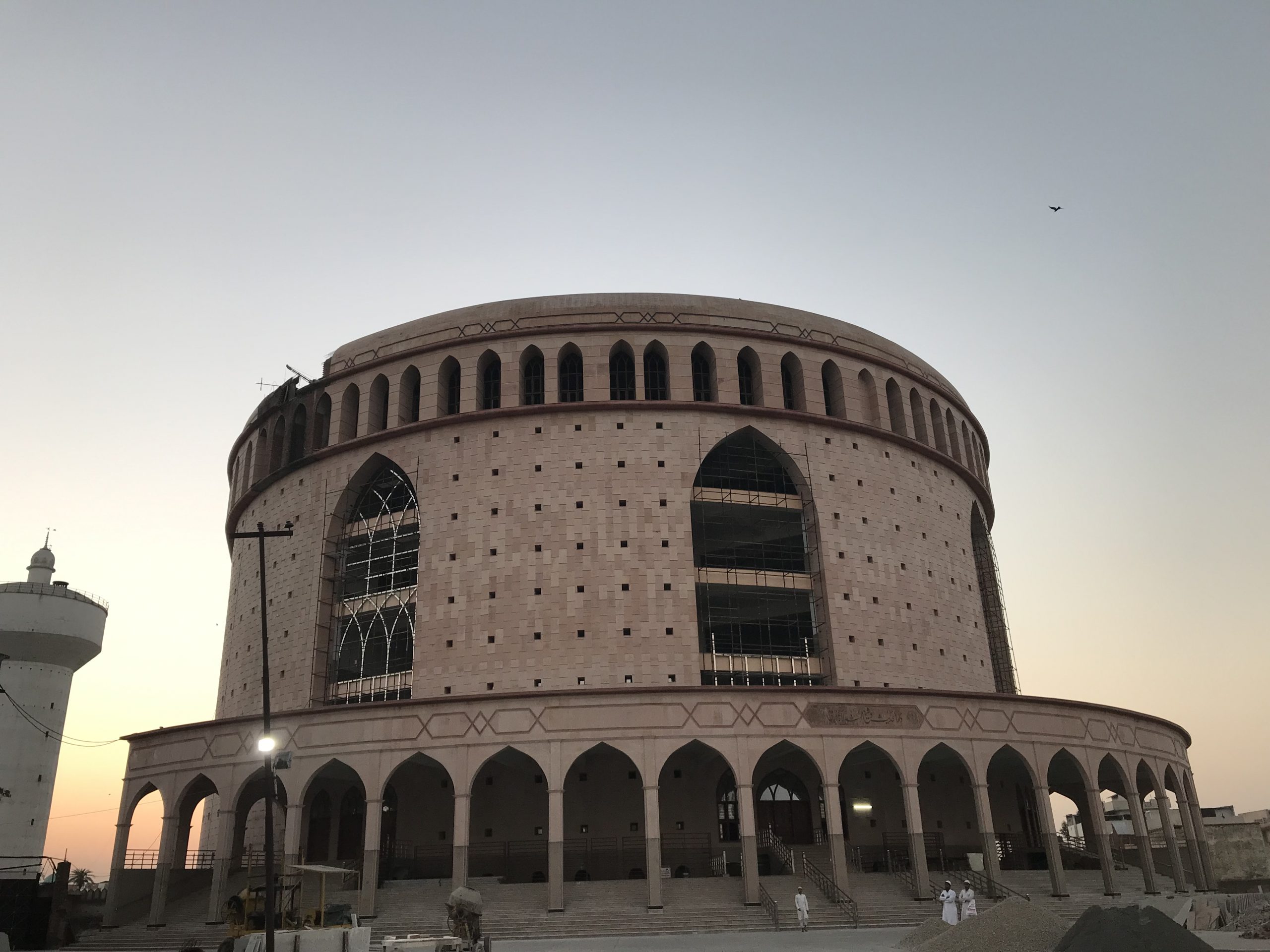
Mufti Muḥammad Salmān Manṣūrpūrī
As our time is limited, we request Mawlānā Azhad Ṣāḥib to take us to meet the various luminaries of Darul Uloom. He mentioned to us earlier that his cousin Mufti Muḥammad Salmān Manṣūrpūrī (b. 1386/1967), who is also married to his sister, maybe travelling outside of Deoband. However, as we are on our way to visit the Principal, Mufti Abū al-Qāsim Ṣāḥib (b. 1366/1947), we see Mufti Salmān Ṣāḥib walking towards the Chatta Masjid. He sees us and takes us inside. This is where he is currently based, in the same room where Mufti Maḥmūd Ḥasan Gangohī (d. 1417/1996) would reside when in Deoband. My respected father shows us where Mufti Maḥmūd Ḥasan’s bed was positioned in the room and informs us all that during Darul Uloom’s 100th anniversary conference, he accompanied Shaykh Yūnus Ṣāḥib to Deoband, and Mufti Maḥmūd Ḥasan made Shaykh Yūnus sleep on his bed whilst he slept on the floor.
Mufti Muḥammad Salmān Manṣūpūrī Ṣāḥib moved from Moradabad to Deoband after the demise of his father Qārī ʿUthmān Ṣāḥib (d. 1442/2021). Until then, he preferred to remain in Moradabad. In Moradabad, he wrote many Fatwas which are published in Kitāb al-Nawāzil. This is a very good collection of Fatwas in 19 volumes, which are well referenced. Some fond memories are shared of Shaykh Muḥammad Yūnus Jownpūrī. One day, Mufti Salmān Ṣāḥib accompanied his father to Shaykh. Shaykh did not let them leave and made them sit for 3-4 hours. My father comments that Shaykh only did this with certain people. Shaykh had a lot of love for Shaykh al-Islam Mawlānā Ḥusayn Aḥmad Madanī.
My father gifts my publications to Mufti Ṣāḥib. Mufti Ṣāḥib comments that al-ʿIqd al-Thamīn fī Ḥubb al-Nabī al-Amīn ﷺ is a very good book and that he read it before he wrote the foreword therein. In relation to Juzʾ fi Aḥādīth Umm Ḥarām bint Milḥān Raḍiyallāhu ʿAnhā wa Wafātuhā bi Qubrus, he mentions that he received a photo of the cover on his mobile.
Mufti Salmān Ṣāḥib has recently selected and translated parts of Shaykh Muḥammad ʿAwwāmah’s (b. 1358/1940) book, Maʿālim Irshādiyyah li Ṭālib al-ʿIlm. He gifts us a copy and insists on serving us tea.
Mufti Abū al-Qāsim Ṣāḥib
We take leave from Mufti Salmān Ṣāḥib and head to the residence of Mufti Abū al-Qāsim Nuʿmānī (b. 1366/1947) who has been waiting for us. Recently, he had an operation and has not been feeling so well. He is much better. He is a disciple of Mufti Maḥmūd Ḥasan Gangohī (d. 1417/1996) and remembers my cousin Mawlānā Khalīl ibn Mawlānā Hāshim Ṣāḥib very well, as the latter spent time in the company of Mufti Maḥmūd Ḥasan Ṣāḥib in Deoband. I gift Mufti Ṣāḥib al-ʿIqd al-Thamīn fī Ḥubb al-Nabī al-Amīn ﷺ and he is very happy to receive a copy. He also kindly wrote a foreword to it. He mentions that Imam Ibn Saʿd (d. 230/845) has narrated the Marthiyah (elegy) of Sayyidah Fāṭimah (d. 11/632, may Allah be pleased with her) in his Ṭabaqāt and it is worth including this, in the way that you have included other Marāthī including of Sayyidunā Abū Bakr al-Ṣiddīq (d. 13/634, may Allah be pleased with him), thereby indicating that he read the draft of the book.
Darul Uloom Deoband Library (current)
Our next stop is Darul Uloom Deoband’s current library where we meet the very helpful librarian, Mawlānā Muḥammad Shafīq who along with his team have acquired specialist training on preserving manuscripts. He gives us a tour of the library and shows us some of the invaluable manuscripts. There are thousands of manuscripts in the library and the process of scanning, digitising and preserving is ongoing. Many books have already been preserved and some books are shown to us. The work is professional. He offers his full support to preserve the books of Shaykh al-Ḥadīth Mawlānā Muḥammad Yūnus Jownpūrī.
Baḥr al-ʿŪlūm, Mawlānā Niʿmatullāh Ṣāḥib
After ʿAṣr Ṣalāh, we meet with the great Muḥaddith of Darul Uloom known as Baḥr al-ʿUlūm (the ocean of knowledge), Mawlānā Niʿmatullāh Aʿẓamī (b. 1356/1937). He recognizes my father immediately despite his elderly age and despite having only met twice. He reminds my father that they first met in Saharanpur when he came to visit Shaykh Yūnus Ṣāḥib and it was during that visit, he realised Shaykh’s special relationship with my father. He also makes reference to Shaykh’s sincerity and gives an example of Shaykh accepting his gift despite their differing views on a matter, whilst in the same gathering, Shaykh did not accept a much larger gift from a businessman of Meerut.
Mawlānā Niʿmatullāh then mentions that he visited Uzbekistan. Some people in Deoband started to think how he was invited there. He explains that this is because he would teach Uzbek students who were not admitted into Darul Uloom in his spare time whilst many others would refuse to do so for one reason or another. My father highlights that the potential and talent of students should never be under-estimated as is the habit of some. You never know there maybe one student whom Allah chooses to become a great scholar.
I gift my books to Mawlānā. Mawlānā first takes Juzʾ fi Aḥādīth Umm Ḥarām bint Milḥān Raḍiyallāhu ʿAnhā wa Wafātuhā bi Qubrus and starts to read it. My father briefs him on my visit to Cyprus with Shaykh al-Islam Mufti Muhammad Taqi Usmani. Mawlānā comments, “I thought Qubrūṣ is only written with a Ṣād, but you have written it with Sīn.” Both are valid as mentioned in the book. He is also very happy to receive al-ʿIqd al-Thamīn fī Ḥubb al-Nabī al-Amīn ﷺ, the draft of which he had read prior to writing the foreword. In relation to the collection featuring Al-Sirāj al-Wahhāj fī Khidmat al-Azwāj and al-Sirāj al-Wahhāj fi Nidāʾ al-Azwāj, my father mentions the context behind the second treatise, which is the increasing practice of wives addressing their husbands by name. Mawlānā suggests that this is becoming more common in this area of UP also but not in the area where he is from. He then looks at the index and comments that
“You have done well in gathering how the husbands were addressed in the era of the Prophet ﷺ.”
Mawlānā gifts some money to my father and my father also gifts an envelope to him. Both were not aware in advance of each other’s gifts in advance. A short but memorable meeting with Mawlānā. May Allah Almighty keep his shadow over us for long.
Kitchen
Mawlānā Azhad takes us next to the Darul Uloom’s kitchen. 16,000 rotis are cooked here on a daily basis. It is a phenomenal operation.
The entire operation of the Darul Uloom is well organised. One of the reasons behind the success of Darul Uloom among many reasons is the governance principles laid out by the elders and founders. Darul Uloom’s supreme authority is the Shūrā, that comprises of leading scholars from all over the country. This provides checks and balances and also ensures long term sustainability, as it is not run by or dependant on one person. Allah Almighty protect and preserve Darul Uloom and all Madāris globally.
Mufti Ḥabīburraḥmān Ṣāḥib
After Magrib Ṣalāh, we meet the Grand Mufti of Darul Uloom, Mufti Ḥabīburraḥmān Ṣāḥib. He is very happy to meet us. However, he cannot hear and his hearing aids are not working. My father requests his son to arrange for his hearing tests and new hearing aids and agrees to cover the costs. Today, we have to write on a piece of paper to communicate with him and he replies verbally. My father informs him of the demise of Mawlānā Muḥammad Dīdāt (d. 1439/2018), whom he met when he visited Darul Uloom Bury. He mentions that he was “bādhawq”. Mufti Ṣāḥib then enquires about me and refers to my writings. Currently, he only teaches in the Iftāʾ class due to his medical condition. His health has deteriorated significantly since I last met him a year or two years ago. He is extremely appreciative of us visiting him. We take our ears for granted. When a person cannot hear, it becomes so difficult. Allah Almighty give us the Tawfīq to value His bounties and favours upon us, and grant Āfiyah to Mufti Ṣāḥib.
From Deoband to Delhi
A short while ago I booked to travel tomorrow on Air India from Delhi to Birmingham. Initially, I also planned to visit Gujarat to meet with our respected Mufti Aḥmad Khānpūrī (b. 1365/1946). This, however, is postponed. I depart from Deoband at 6.15pm with my friend Ilyas Satia whilst my parents and elder brother visit a bookshop in Deoband and return to Saharanpur thereafter. They are scheduled to stay in Saharanpur for another two days and thereafter visit Gujarat, and from there travel to Saudi Arabia.
Meeting with Mawlānā Sayyid Arshad Madanī
The road between Deoband and Delhi is now very good. My friend Abdul Vahid came to collect us from Delhi and we discussed many things on the way. I thought it would take us four hours to reach the centre of Delhi. However, we arrive at 9pm. Originally, I had planned to meet Mawlānā Sayyid Arshad Madanī in the morning. However, I phone him and request if we can visit now. We arrive at the Jamiat Ulema Hind office and discuss with Mawlānā several issues including an important matter my father had requested me to discuss. Mawlānā then requests for the food to be laid out. I mention to Mawlānā that we were planning on eating at Karims or elsewhere this evening. This was the Qadr of Allah and Mawlānā’s Maḥabbat that both lunch and dinner were at his venue, despite not planning either.
As we leave the Jamiat office, Mawlānā very kindly comes out of his office to bid us farewell. This is his humility and character. He also requests we rest the night at his office. I mention to Mawlānā my observation that he rebukes those who do not have a beard. Mawlānā says, “Today, no one rebukes and people have stopped doing forbidding from evil. Shaykh al-Islām (Mawlānā Ḥusayn Aḥmad Madanī) Raḥimahullāh would, particularly after partition, rebuke those without a beard. He had so much Ruʿb that people would start shivering. On one occasion, one person who he rebuked for this said: I make Tawbah. Immediately, it was as if nothing had happened.”
We leave the Jamiat office. This is the first time Ilyas is visiting Delhi, so we have some ice cream at one of the shops in Connaught Place and also visit the India Gate by car.
Day 9 – Friday 25 November 2022
Final day in India
Return to Jamiat Ulema Hind Office
It is another early morning start as we arrive at the Jamiat Ulema Hind office with Mawlānā Ḥakīmuddīn Ṣāḥib at 7am. I have visited the Jamiat office many times before. However, I am very impressed with the current setup. There is a modern looking exhibition featuring the history of Muslims in India and the role of Muslim scholars and activists in the liberation of India.
In the centre of the exhibition hall is the boardroom. The wall of the boardroom features brief profiles of the leading figures of the liberation movement as well as Jamiat. The purpose of visiting Jamiat’s office is to update ourselves with the various initiatives of the organisation. My dear friend, Mawlānā Sayyid Maḥmūd Madanī (b. 1383/1964) had requested me a few times over the past three years to allocate some time for this. I had intended to spend a whole day at the office. However, my flight is at 1.15pm so I suggested to Mawlānā that we have an early morning start at 7am and conclude all meetings by 10am.
Throughout the morning, various teams of Jamiat present updates on the various programmes and strategic objectives of the organisation. Presentations are delivered on the following:
- Deeni Taleemi Board chaired by Mufti Abū al-Qāsim Ṣāḥib, which directy runs 268 Maktabs and focuses on streamlining the curriculum in these and other Maktabs and making them more organised and structured.
- Legal project which focuses on defending those wrongly accused of terrorism and also other legal related matters such as defending Masjids and homes from being demolished. This is a very worthwhile cause.
- Jamiat Open School wherein Madrasah students undertake the 10th and 11th The learning takes place via digital classrooms. There are currently 200 digital classrooms in 200 Madrasas whilst 100 Madrasas have onsite provision. 8000 students have thus far taken the 10th exams. The cost of one digital classroom is £1500 whereas the cost of one sponsoring one student is £100. The context of this initiative is that the Government is now mandating schools’ examinations for Madrasah students.
- JEM (Justice and Empowerment for Minorities) – This is a much-needed project which documents cases of Islamophobia and in a structured manner, similar to the work of MEND in the UK.
- Millat Fund – This is centred on empowering local Jamiat units. Individuals are requested to undertake regular small donations to the local Jamiat units. 60% of the donations remain with the local units, 20% are used by the state branch of Jamiat whilst 20% are forwarded to the central Jamiat Office in Delhi. This is an excellent initiative to make Jamiat sustainable and also empower local units.
- Youth Club and Scouts which focuses on empowering the confidence and leadership skills of Muslim youth and developing their physical abilities.
- National Sīrah initiative.
- 15-day curriculum to preserve the Islamic creed.
- Jamiat Sadbhavna project, which involves engagements and meetings with various faith communities across India, in a structured manner. These can be described as community cohesion events.
- Finance system – The Jamiat finance system is unique in terms of its transparency. Monthly financial accounts are shared online, and detailed expenses are made available to those who require it. Mawlānā suggests he will give me the password, which will enable me to access every single expense of the organisation and its personnel, including expenses as small as purchasing a train ticket. This level of transparency is much-needed and welcome.
There are many other projects of Jamiat and our time is limited. One particular project that I wish to learn about in the future is the work of the Jamiat Halal Trust.
Mawlānā Sayyid Maḥmūd Ṣāḥib has clearly taken the organisation to another level, and made it professional, strategic and fit for purpose. Undoubtedly, there is more work to do and the challenges are not small. Some of the challenges include the use of the media against Muslims, for example in the case of Mawlānā Kalīm Ṣiddīqī (b. 1377/1957). They also include authorities misusing the judiciary and official institutions against Muslims in a discriminatory manner. For example, the income tax department has been reported to harass Muslim businessmen and also enquiring about why they donate to Muslim organisations. It is not therefore a surprise that many Muslim businessmen are relocating their businesses to other countries.
The Jamiat in India is active and vibrant, fulfilling the aim for which it was established, which is to address the social and communal challenges facing the Muslims, complimenting the educational work of Darul Uloom Deoband and other Madāris. It is humbly requested from Jamiat Ulema UK to focus on addressing the challenges of British Muslims in a similar manner.
Mawlānā Maḥmūd Ṣāḥib arranges breakfast, but I have another meeting with the Shade Trust so apologise. We meet with the Shade Trust at 10am and thereafter travel to the Airport. Ilyas takes the 12.40pm flight to Surat, whilst I take the 1.15pm Air India flight to Birmingham, arriving into Birmingham at 5pm. I take the 5.55pm train and arrive into Preston at 8pm.
May Allah Almighty preserve the Īmān, dignity, honour and wealth of Muslims in India and all over the world and safeguard the Islamic institutions and scholars. Āmīn.
Yusuf Shabbir
9 Jumādā al-Ūlā 1444 / 4 December 2022
Note: To read earlier travelogues, visit the following link: https://islamicportal.co.uk/category/articles/travelogues-articles/.

